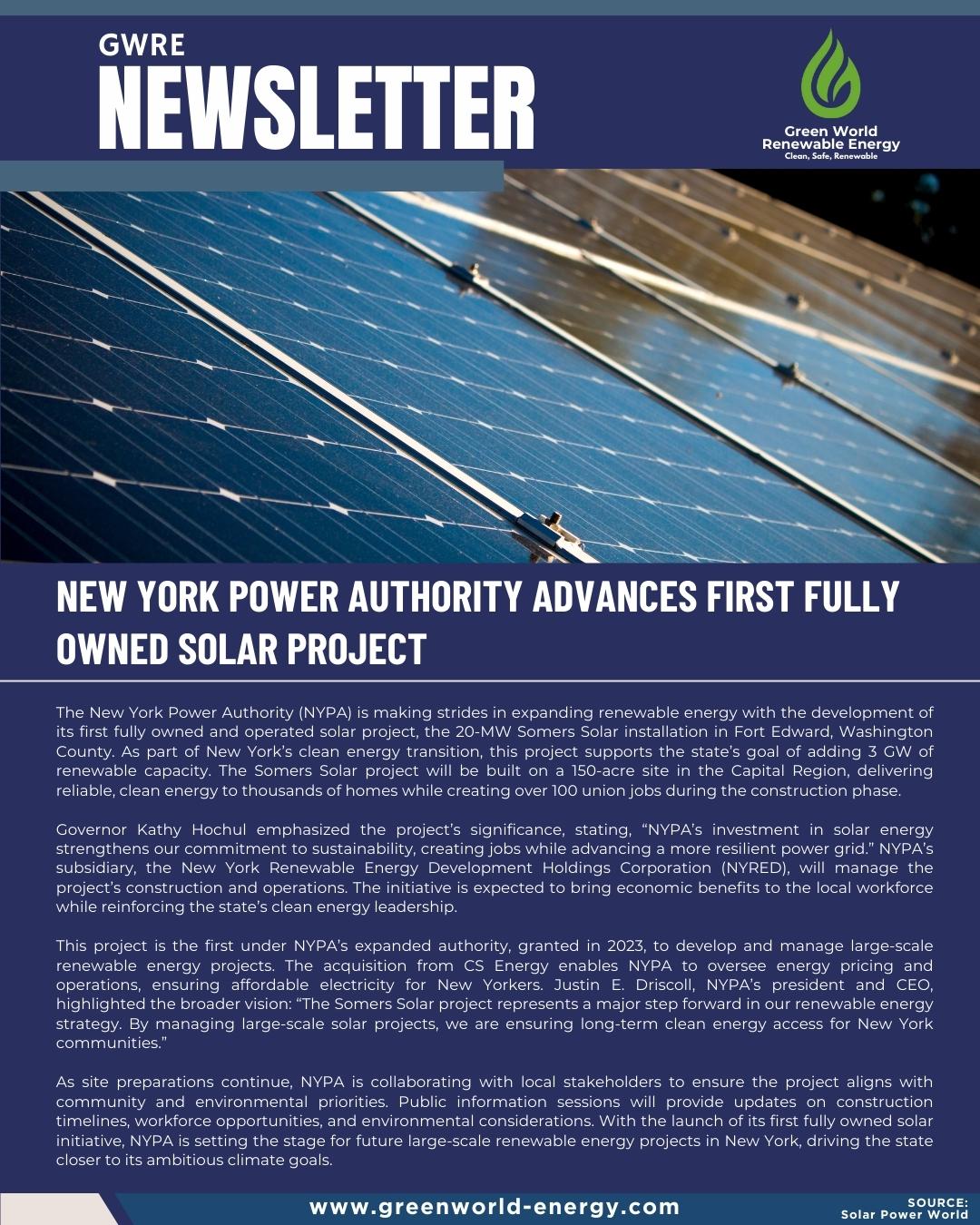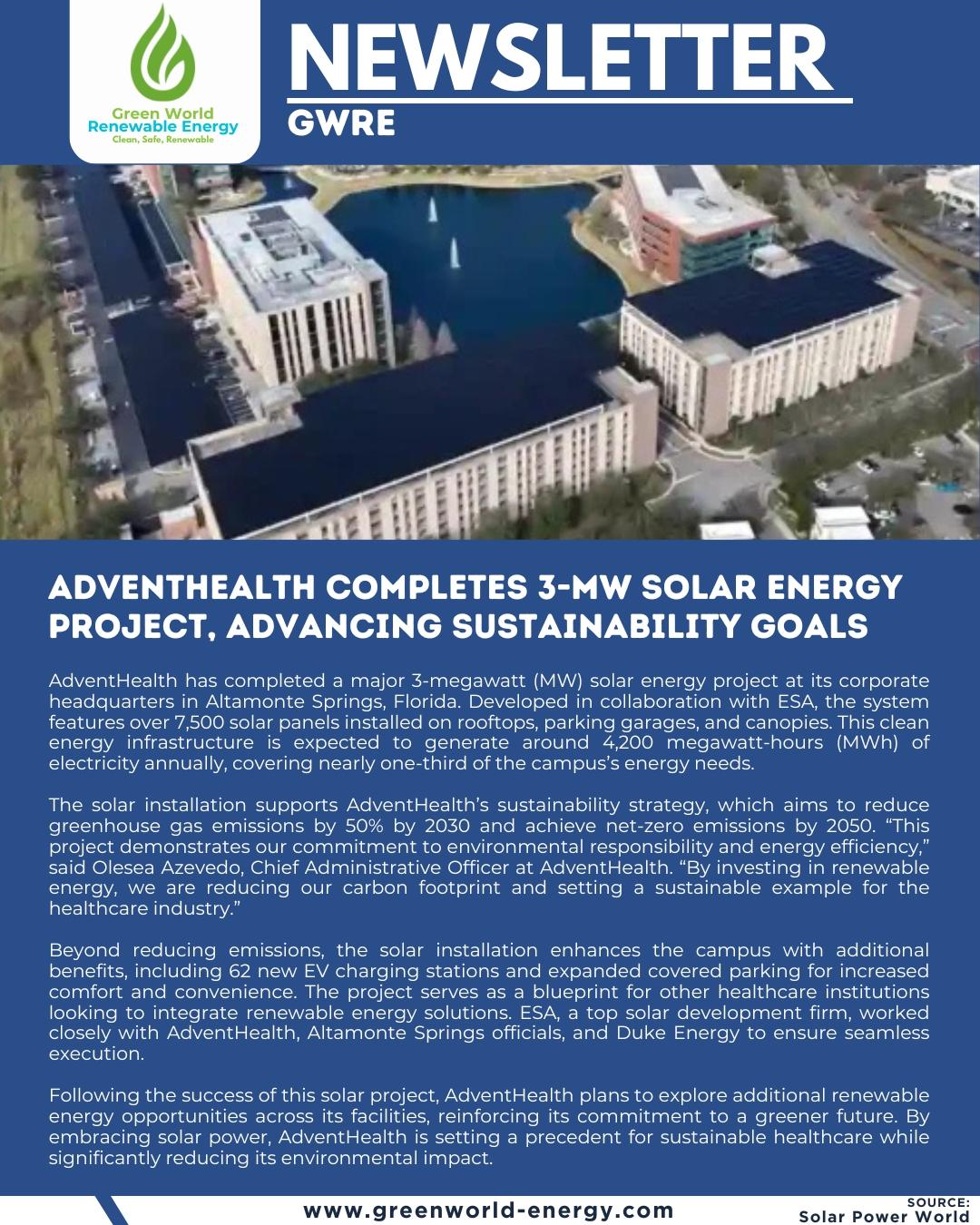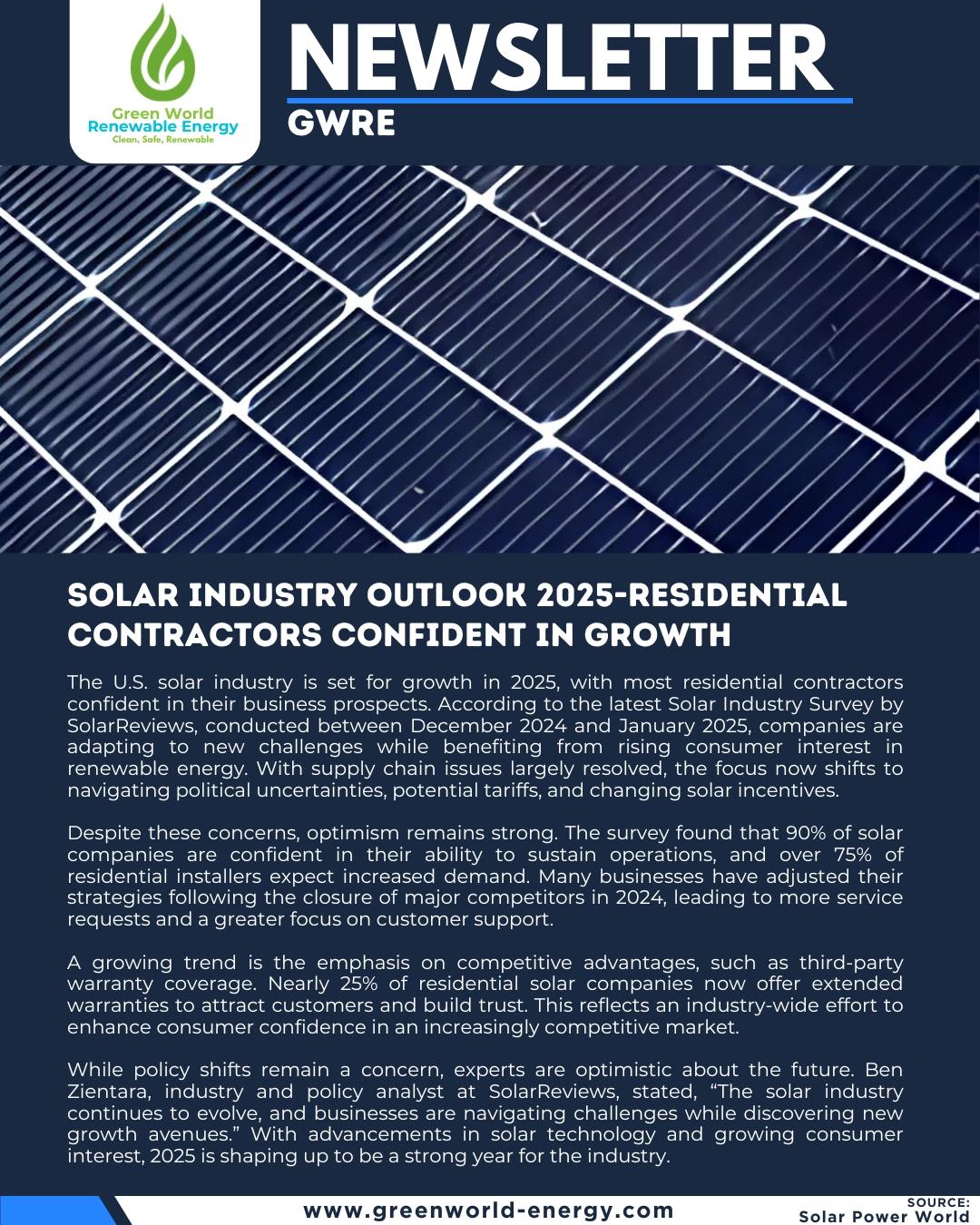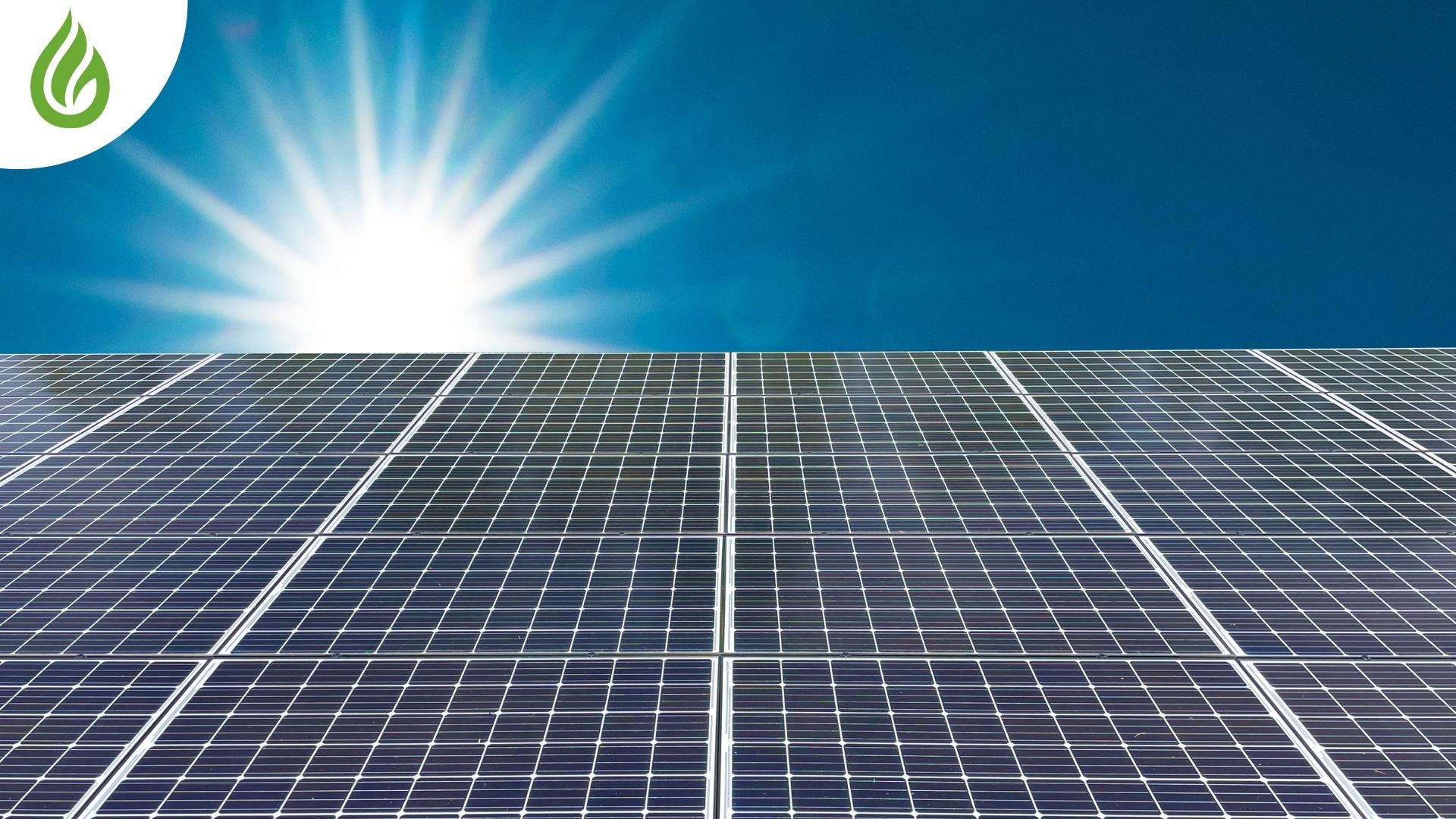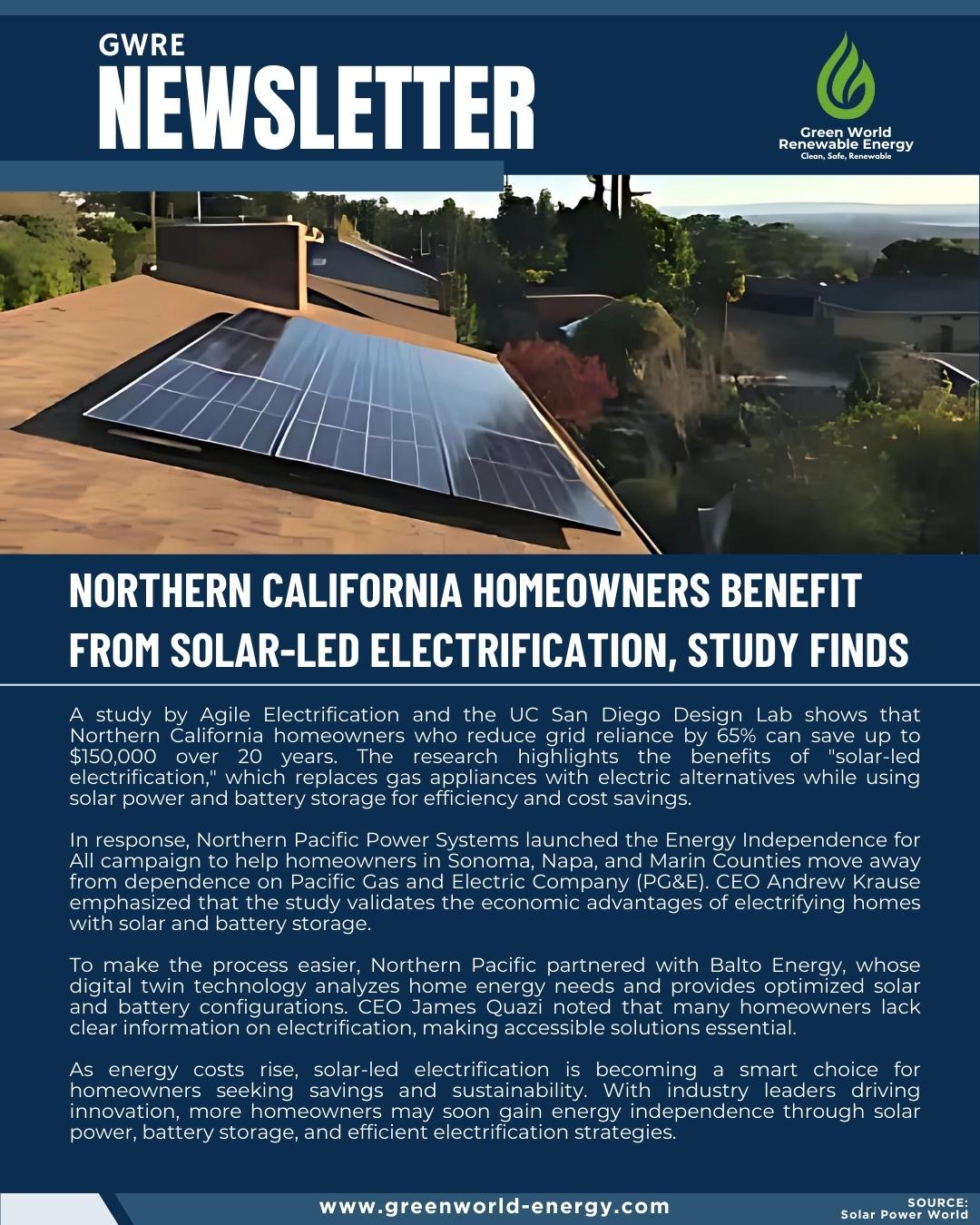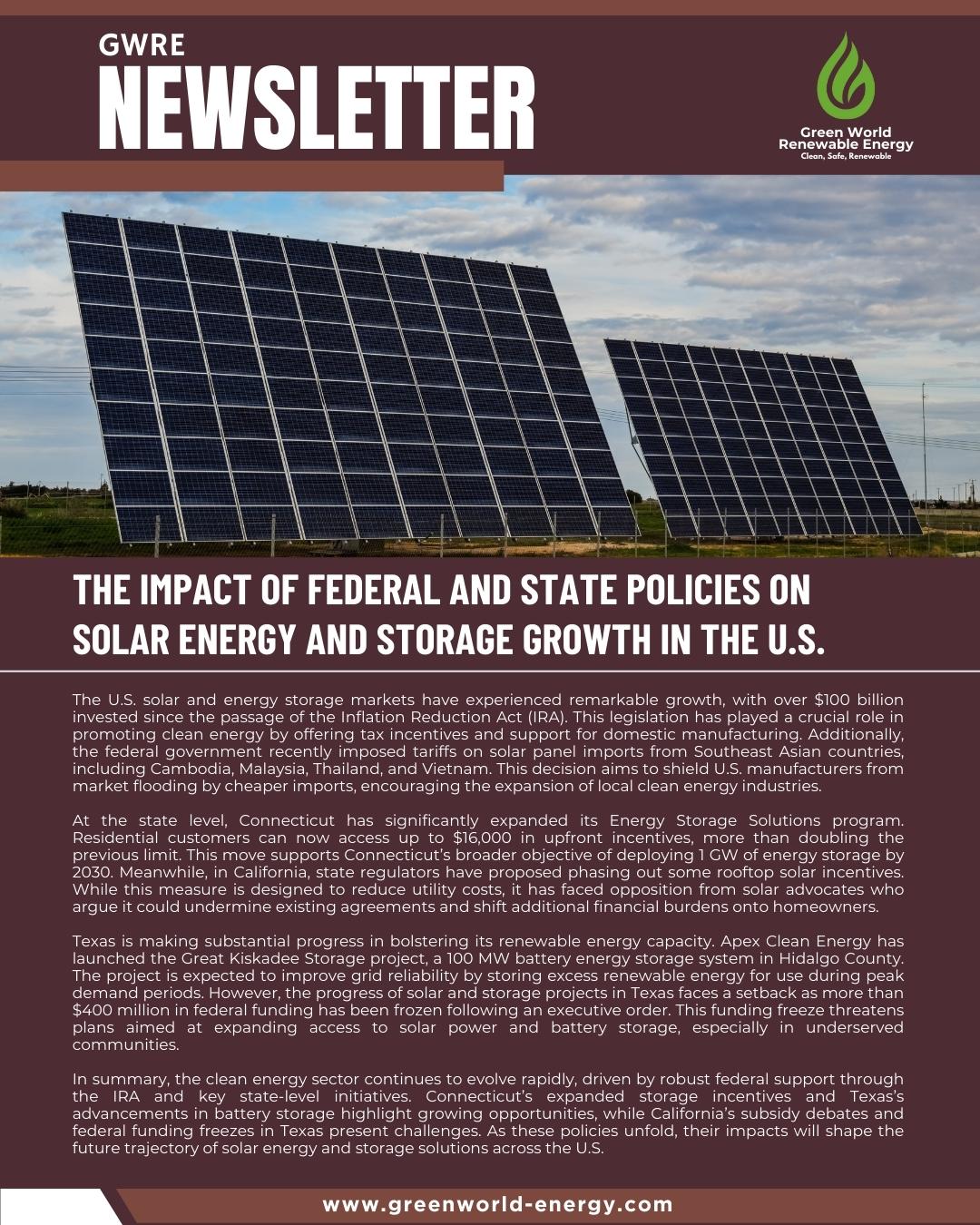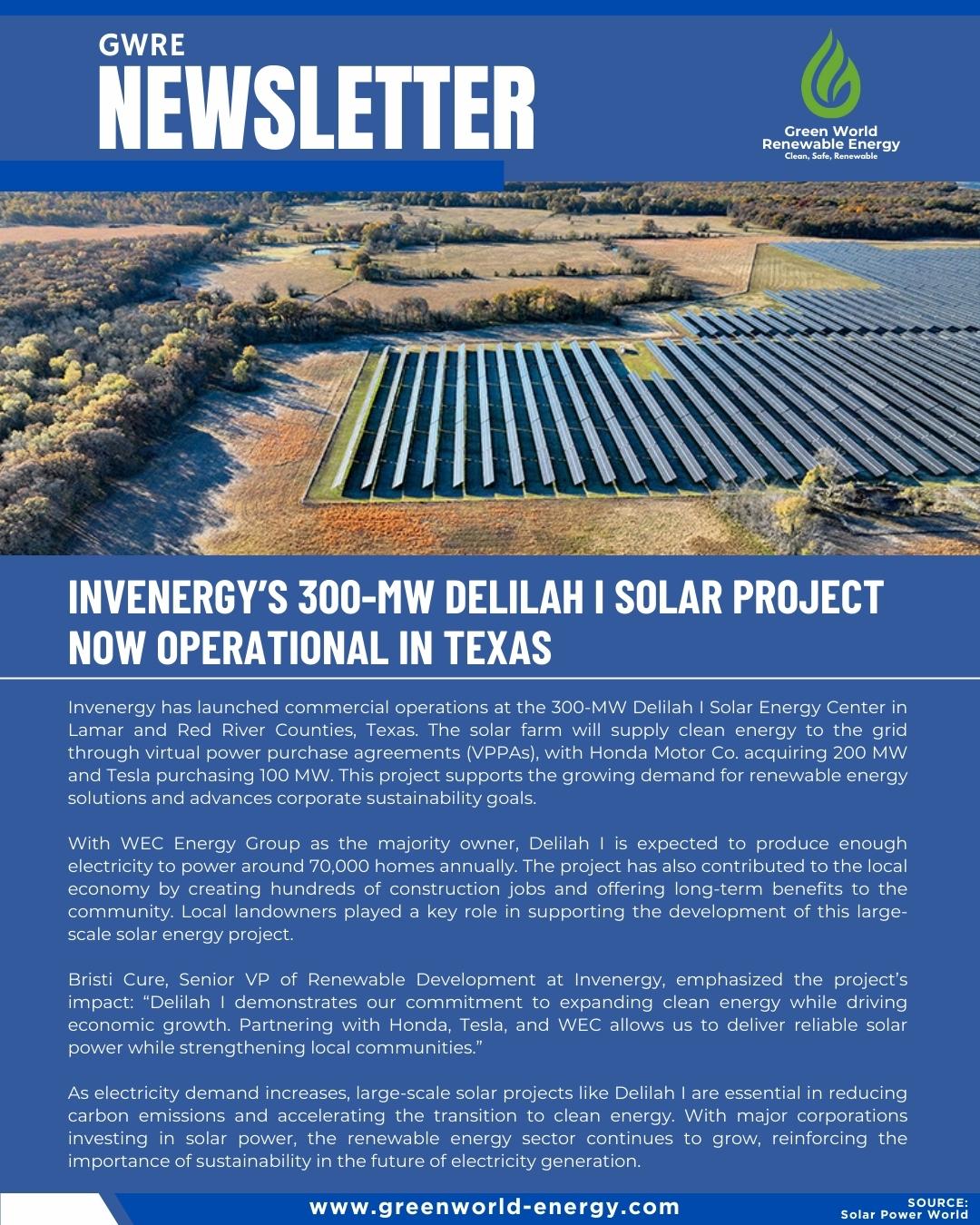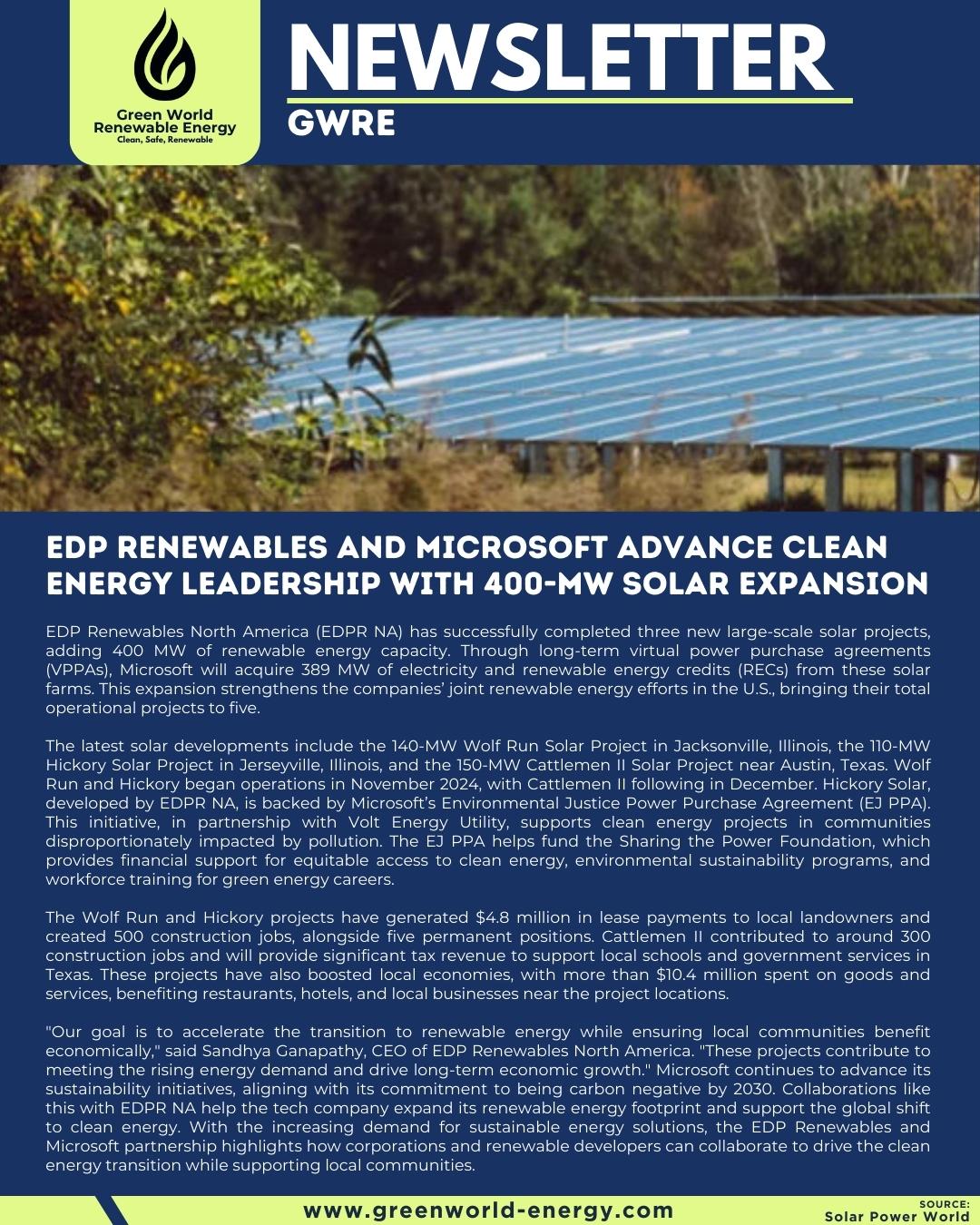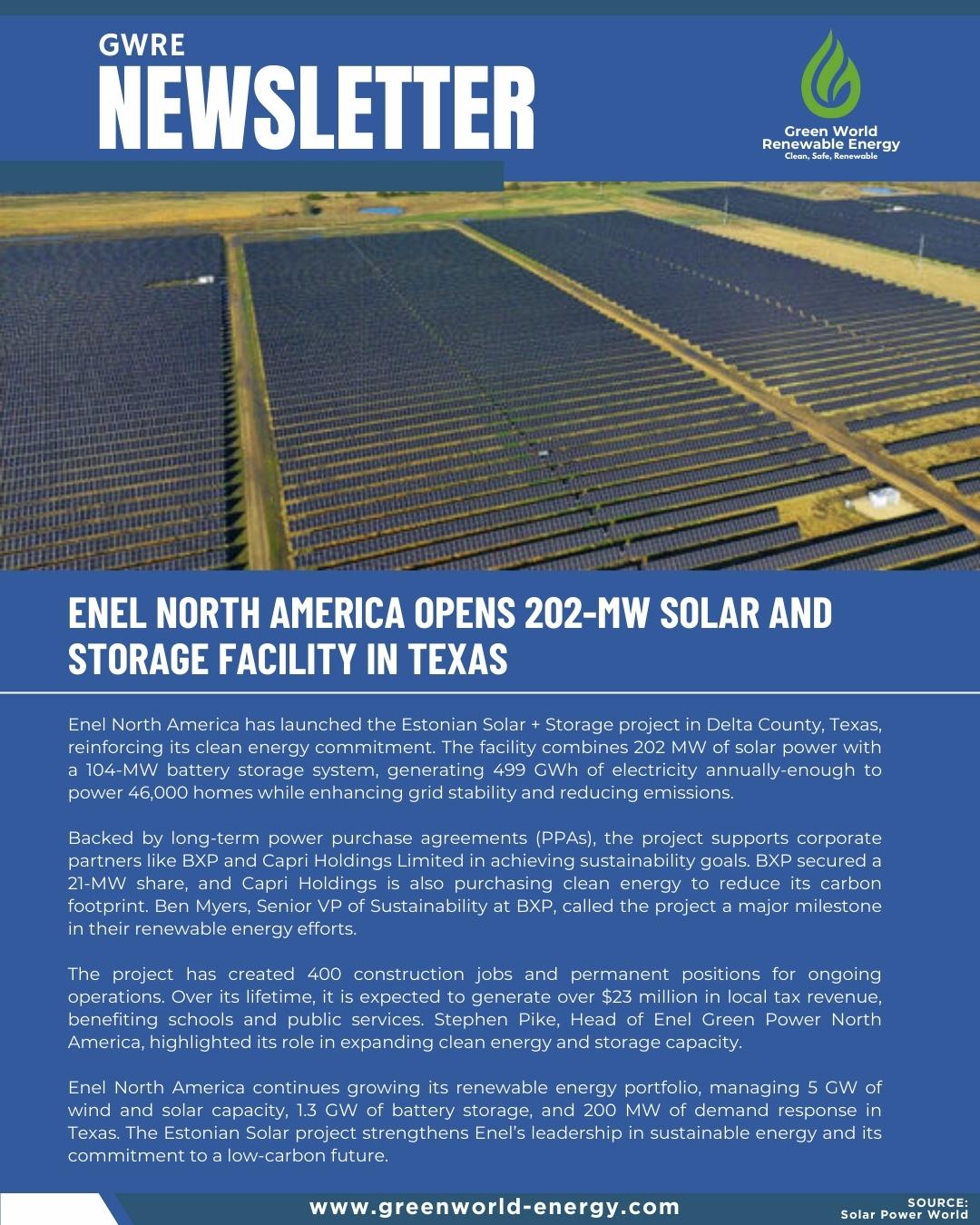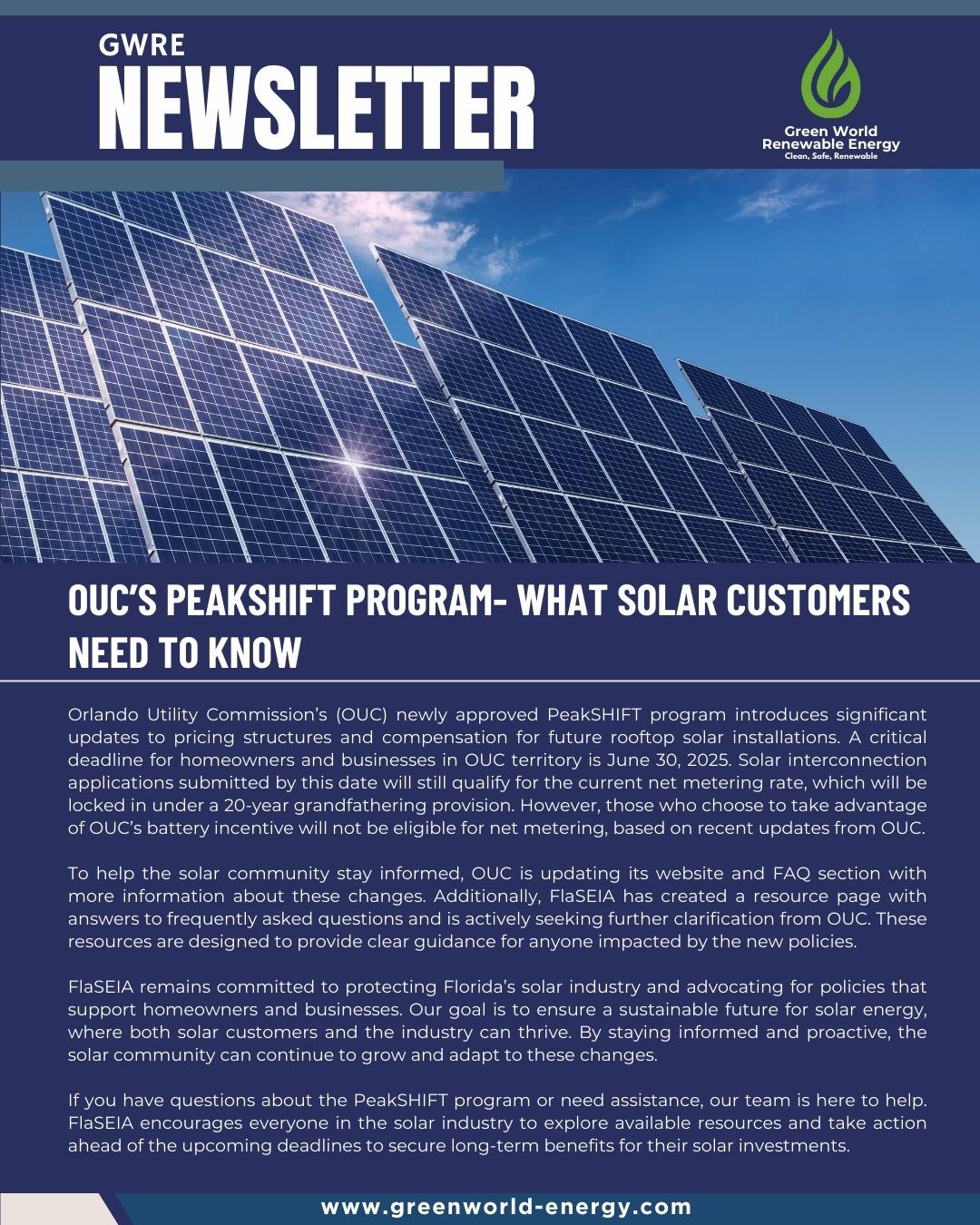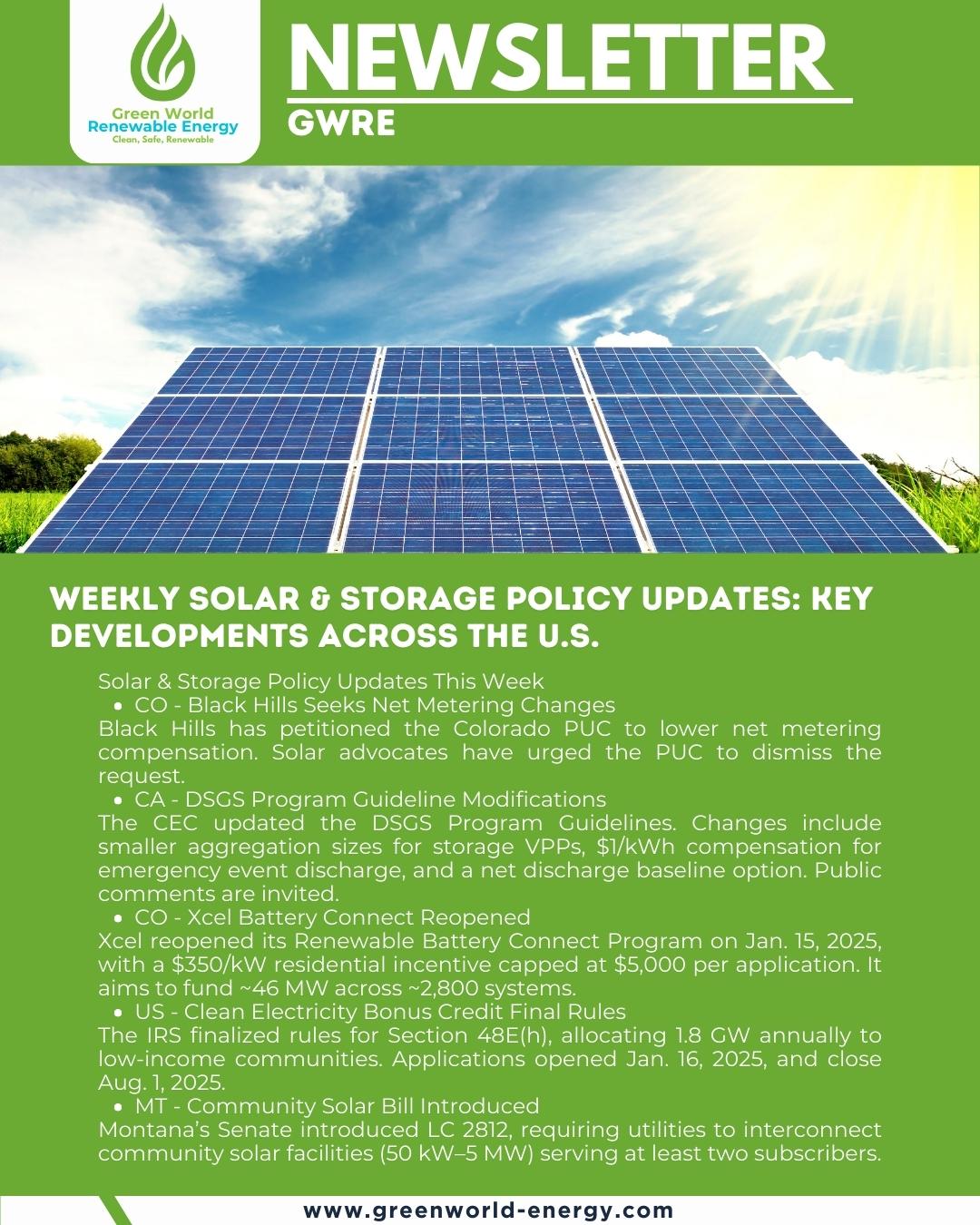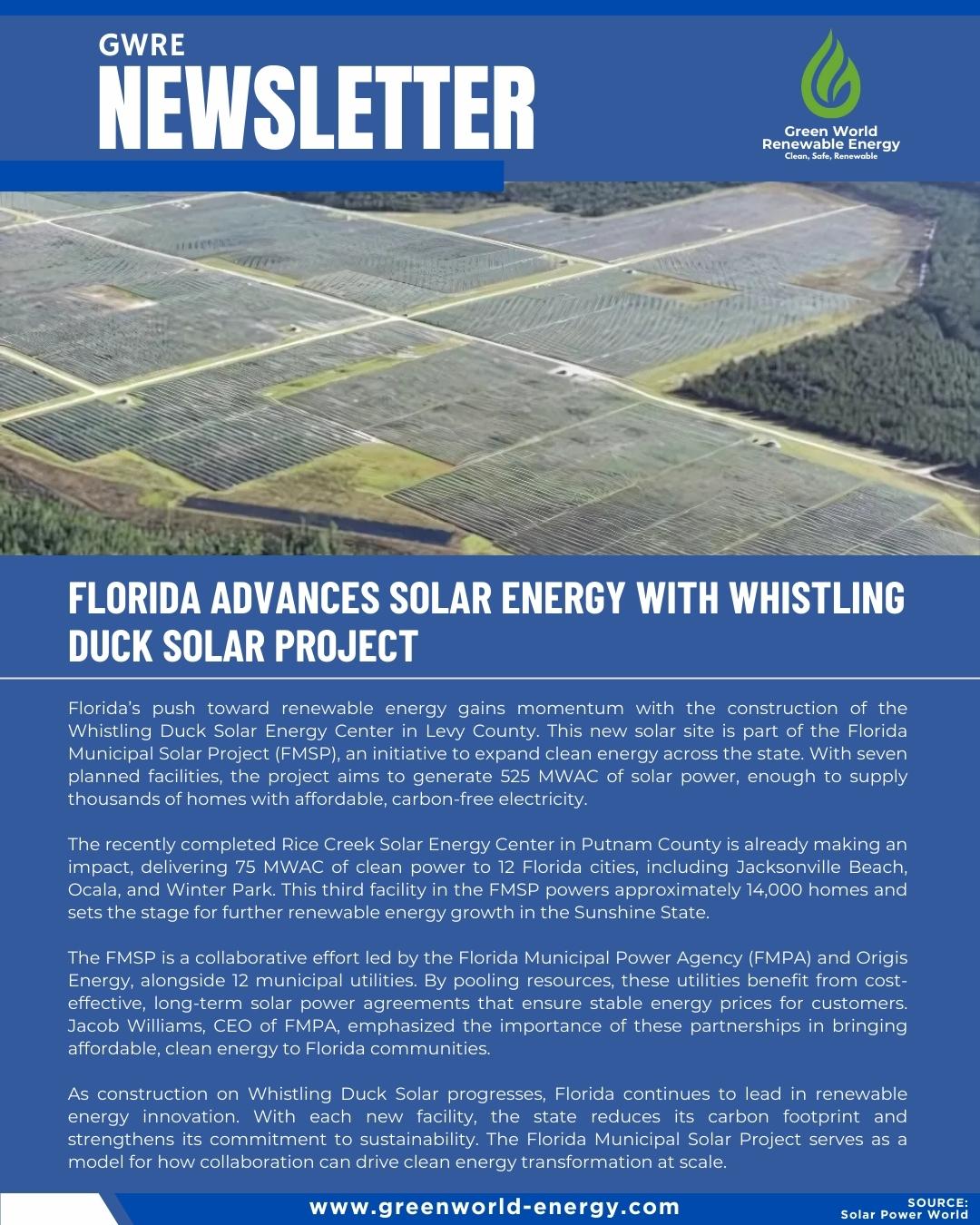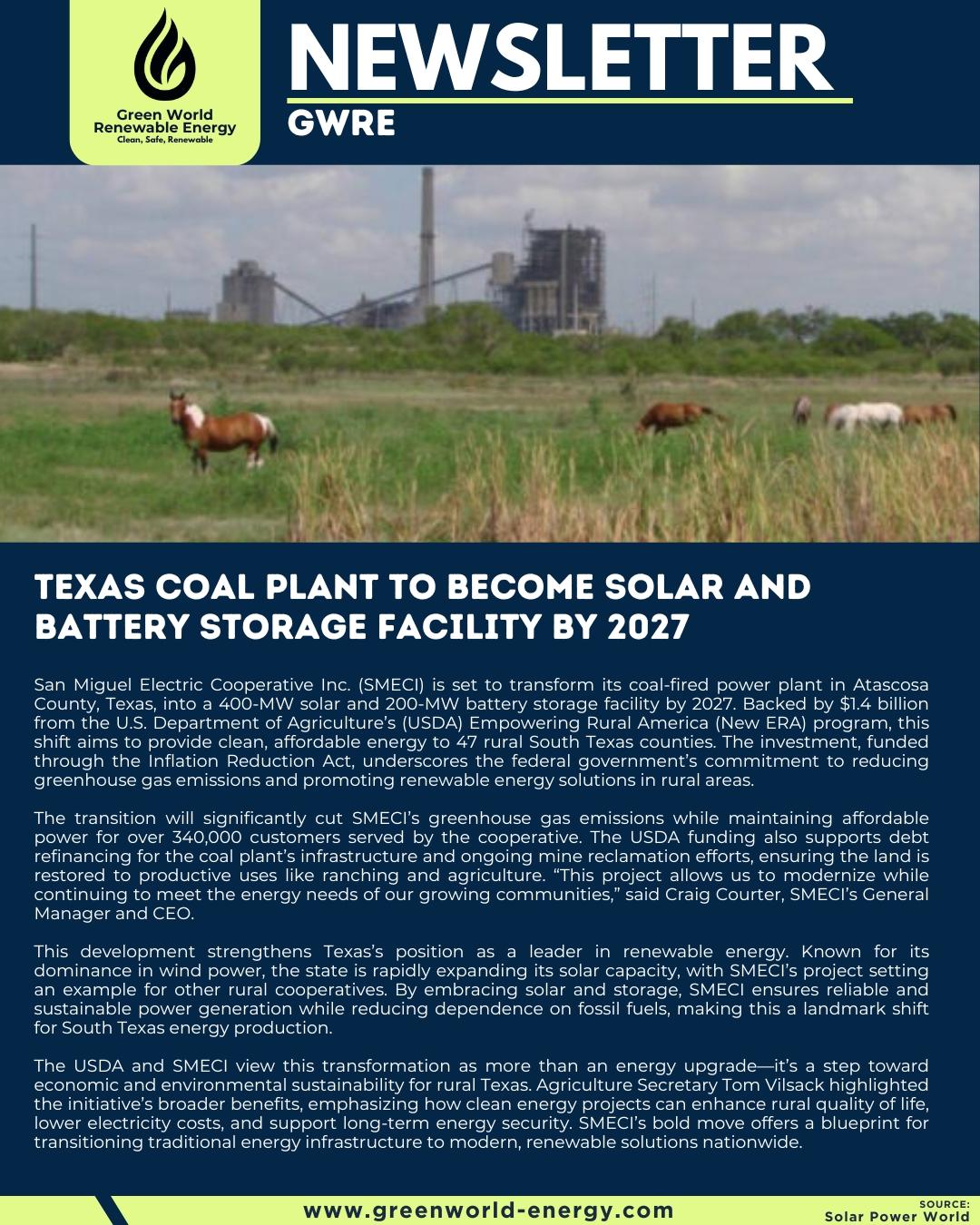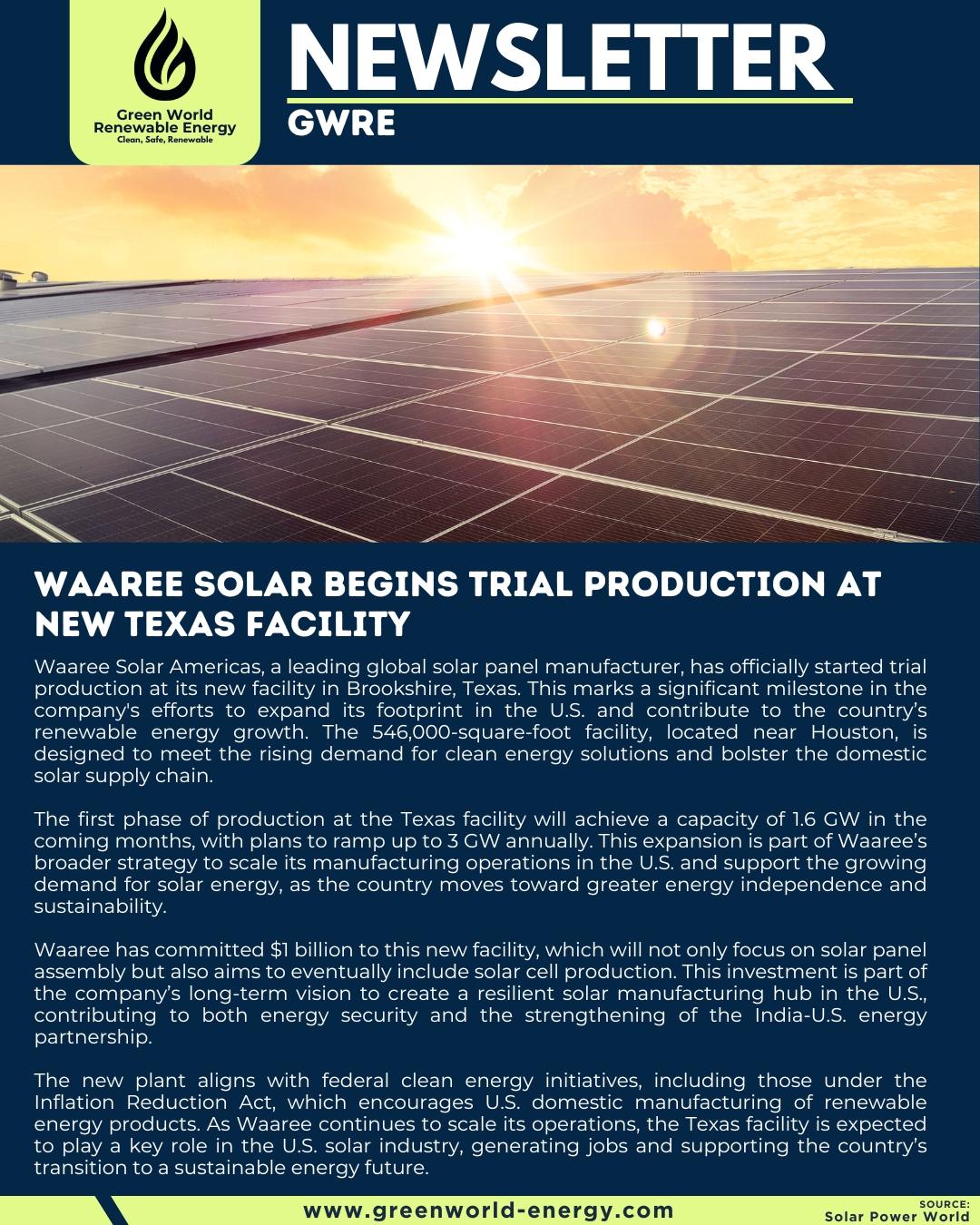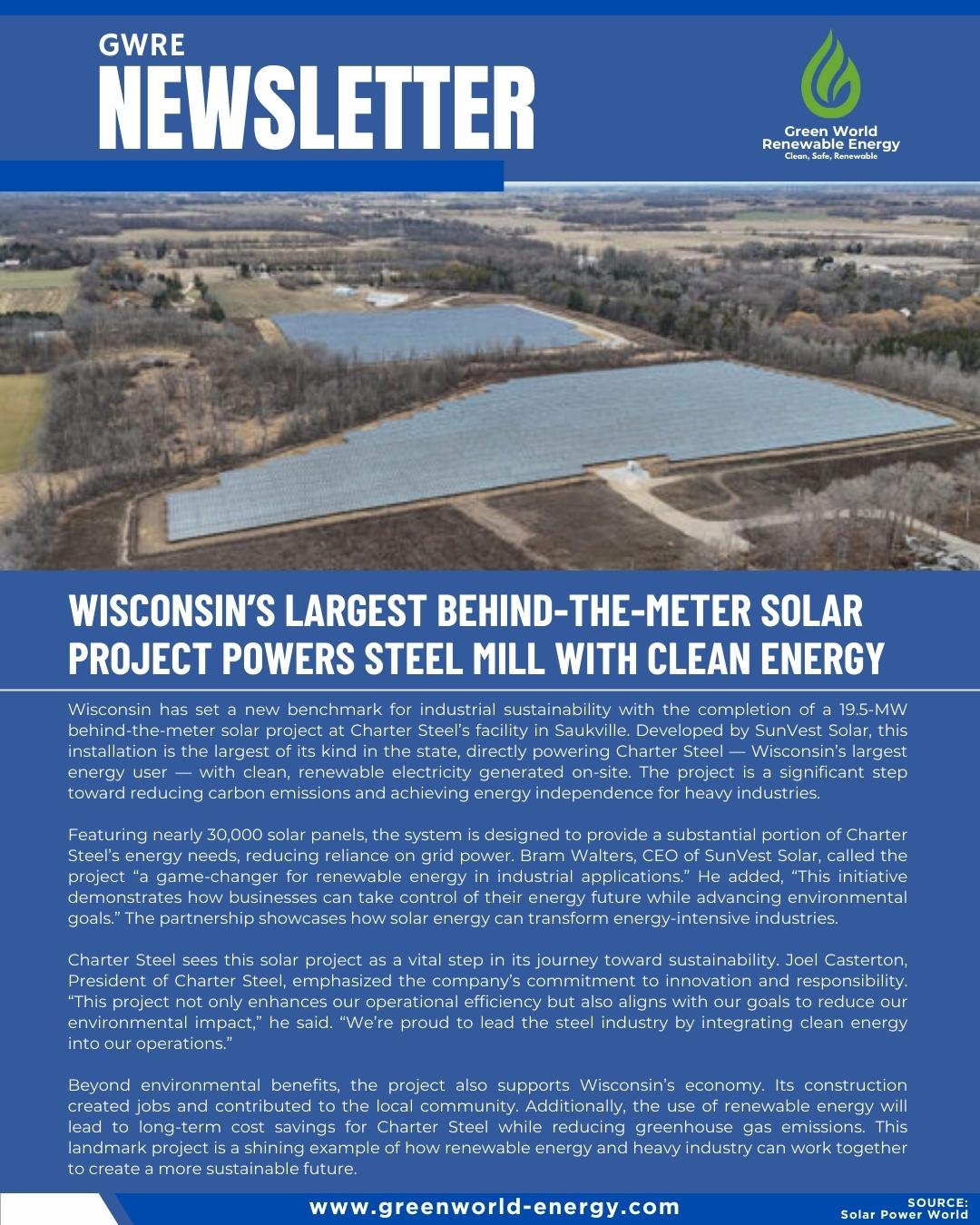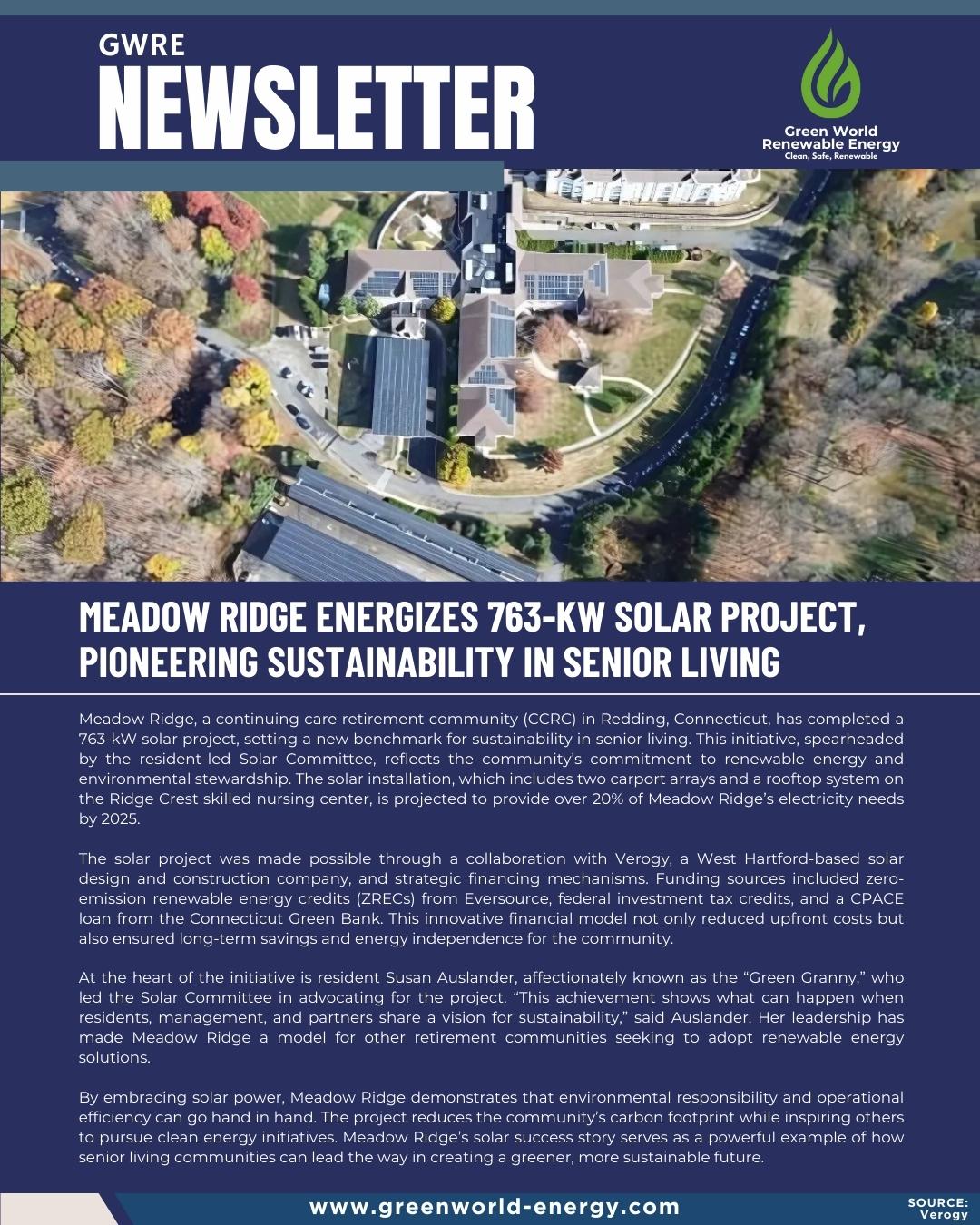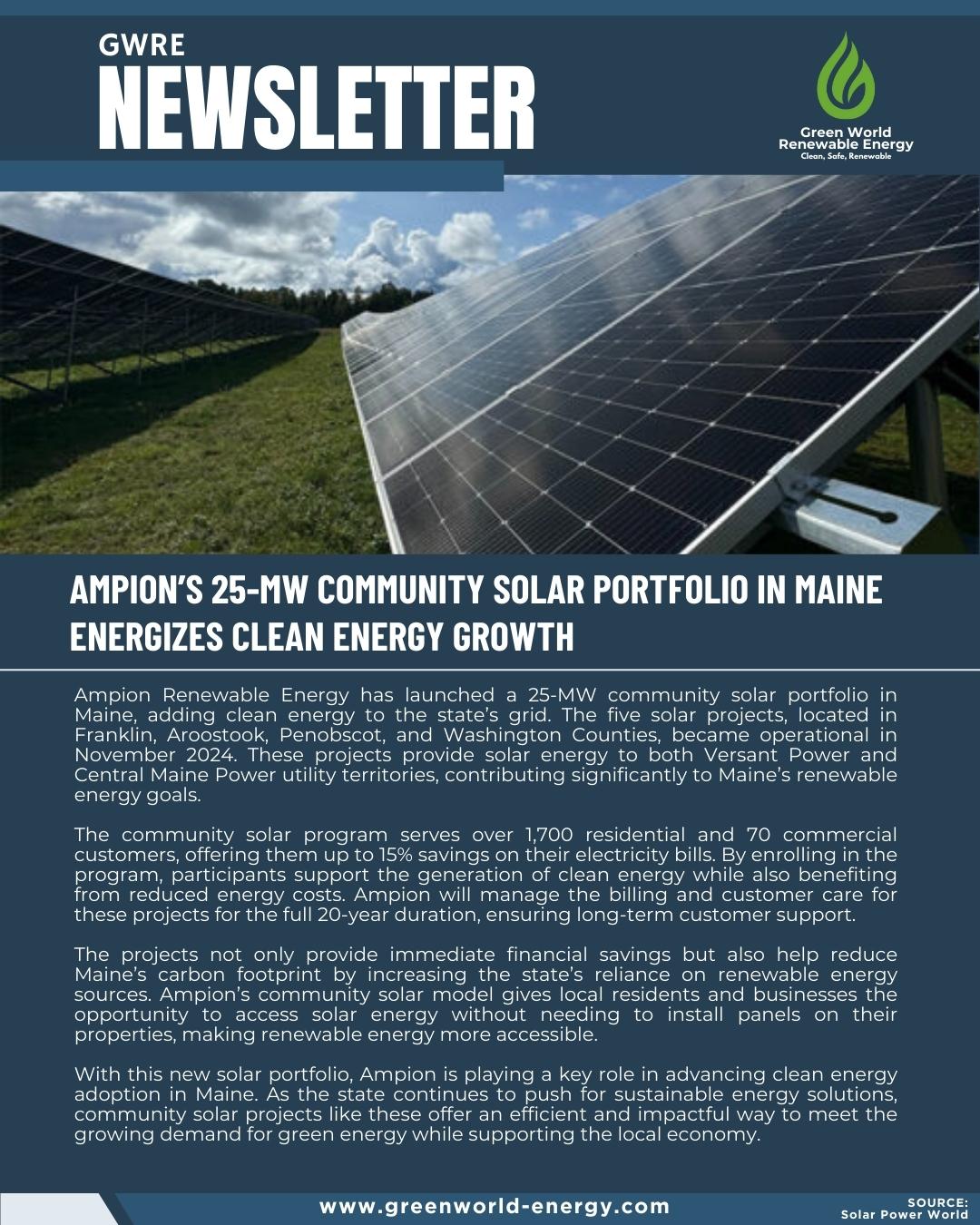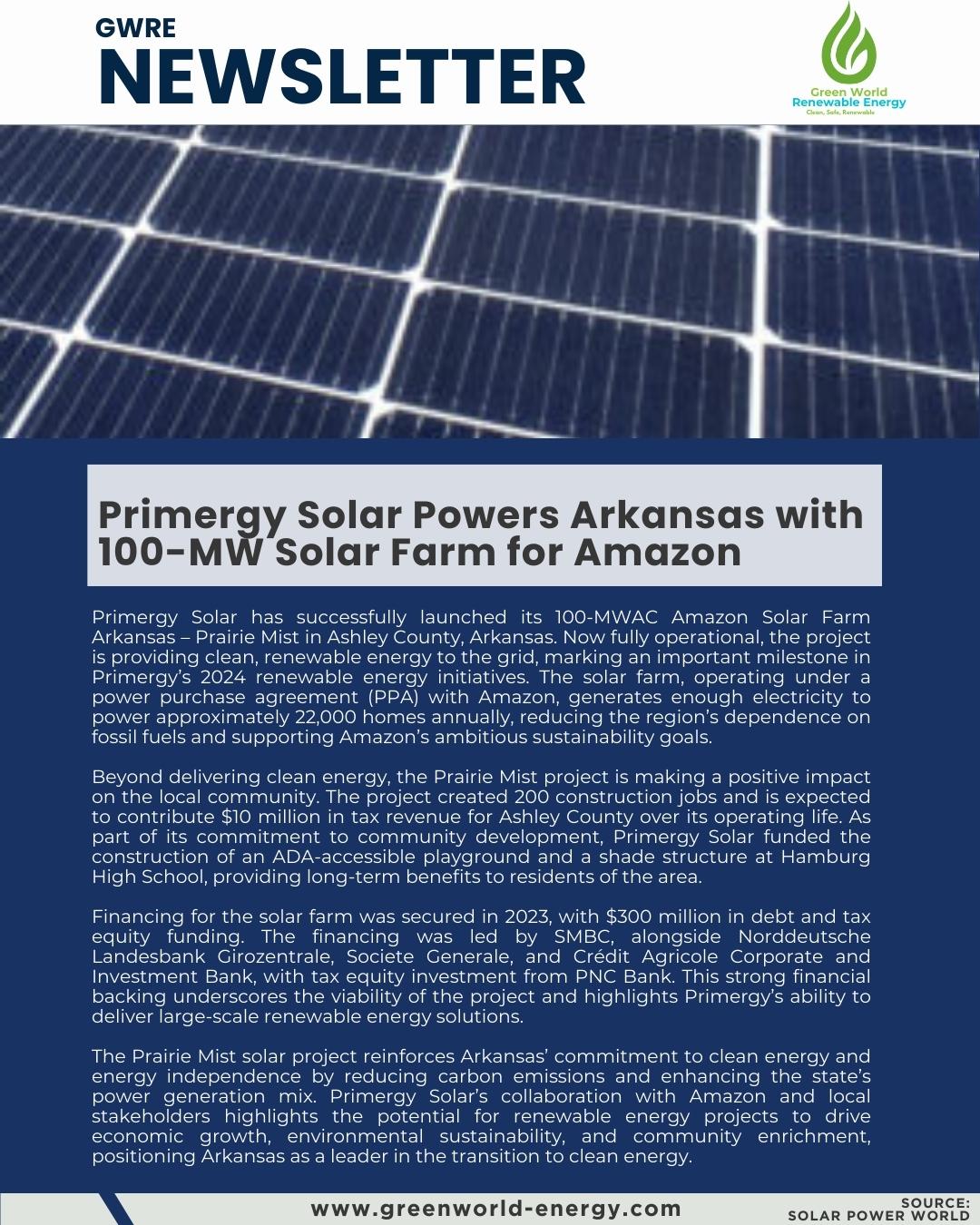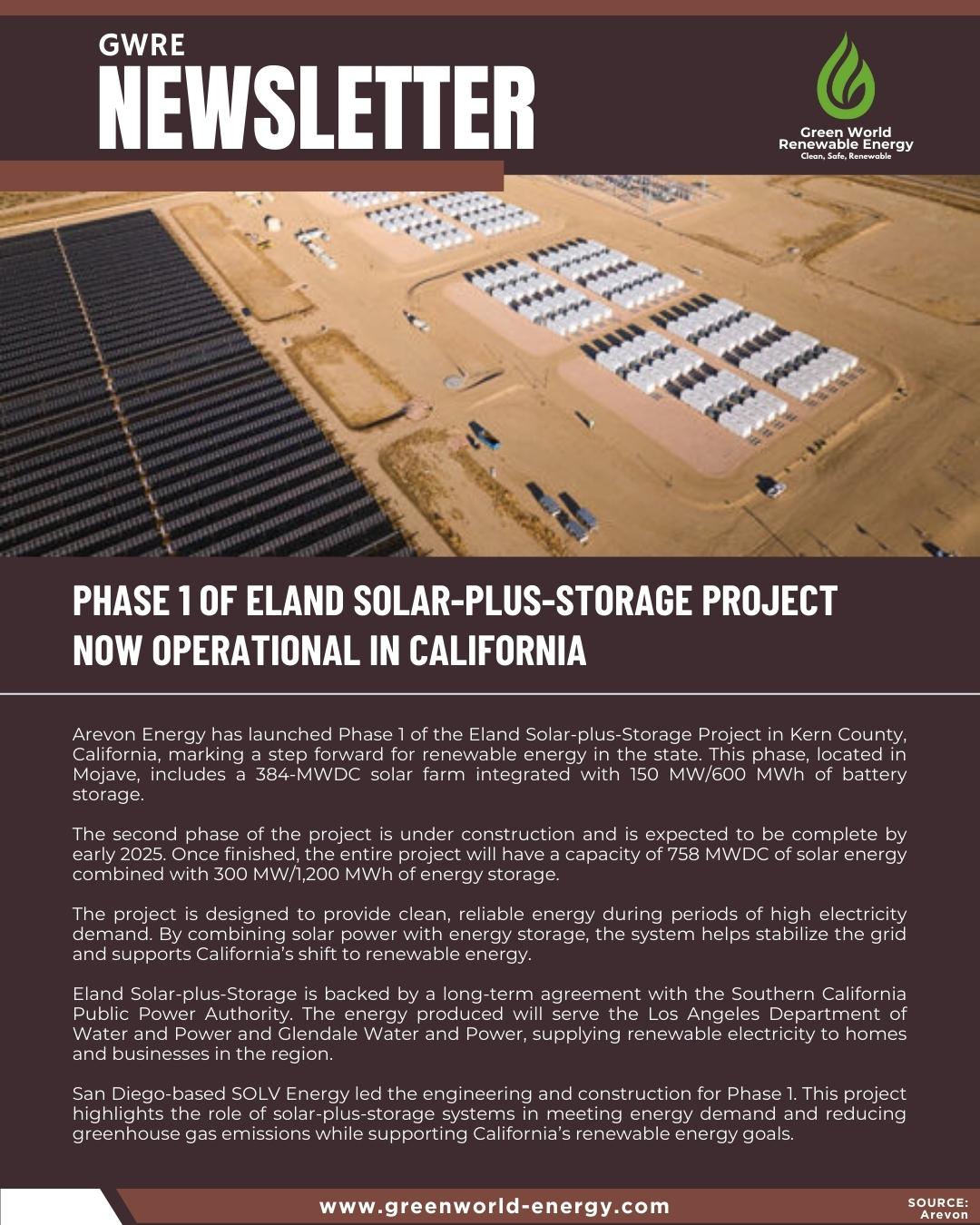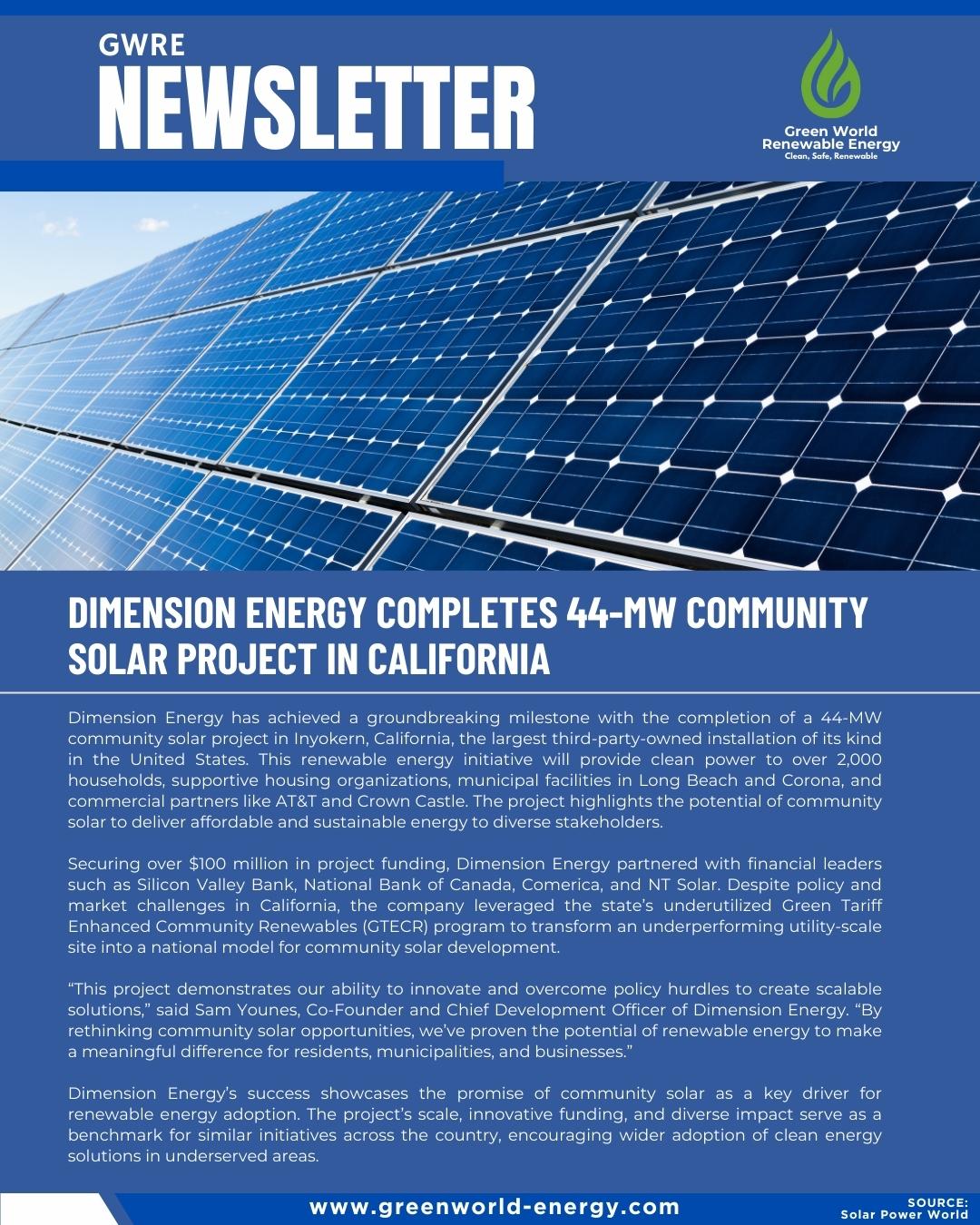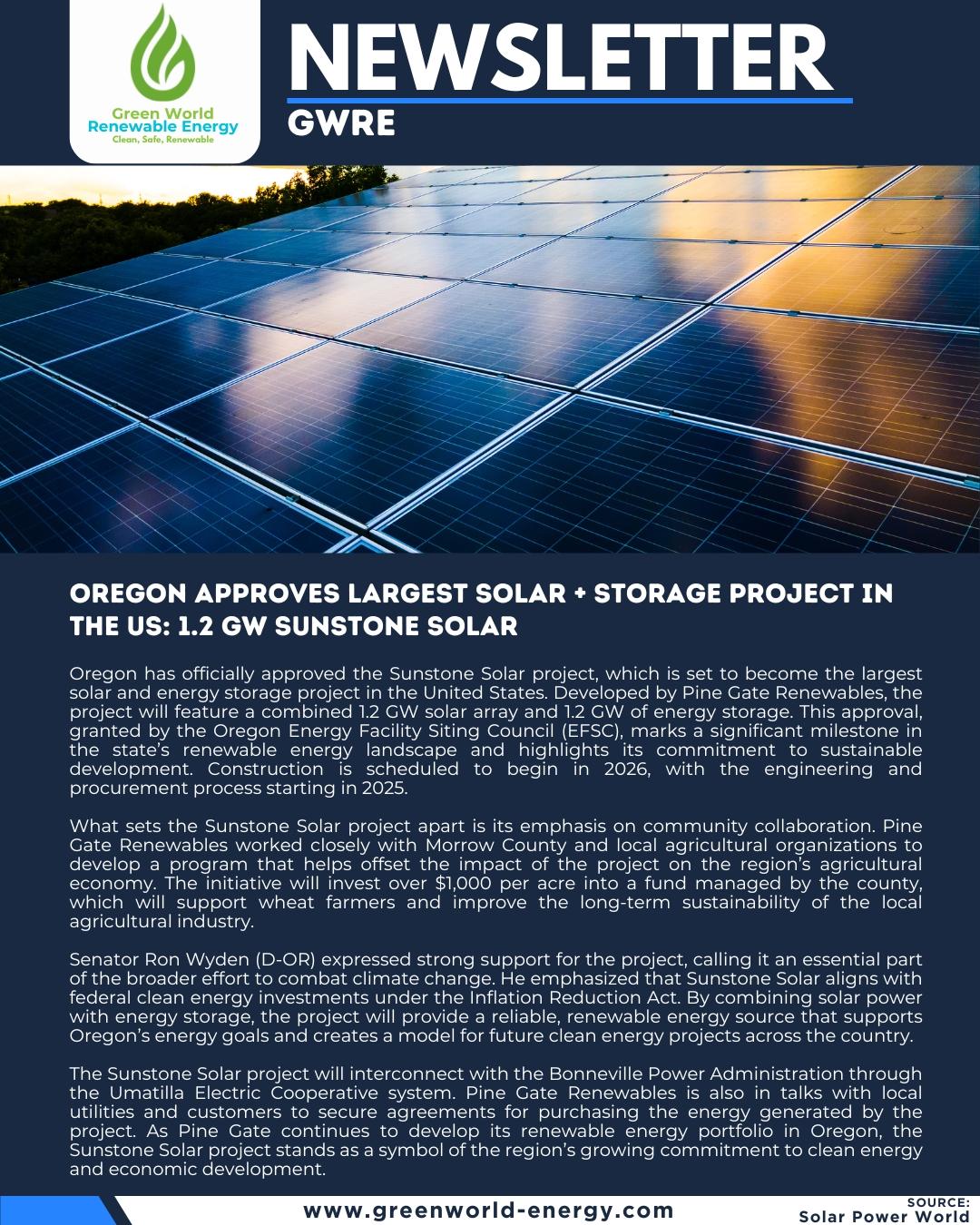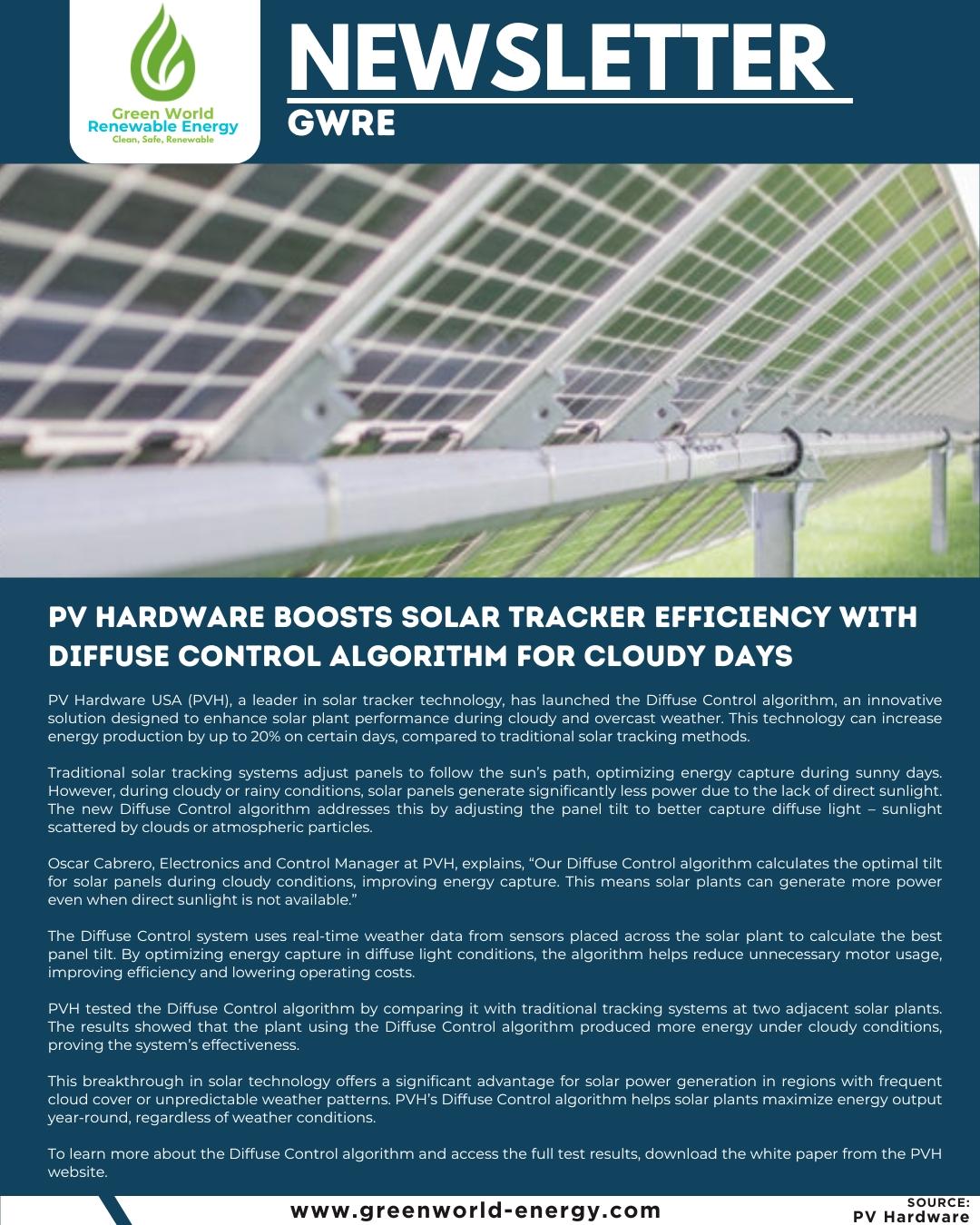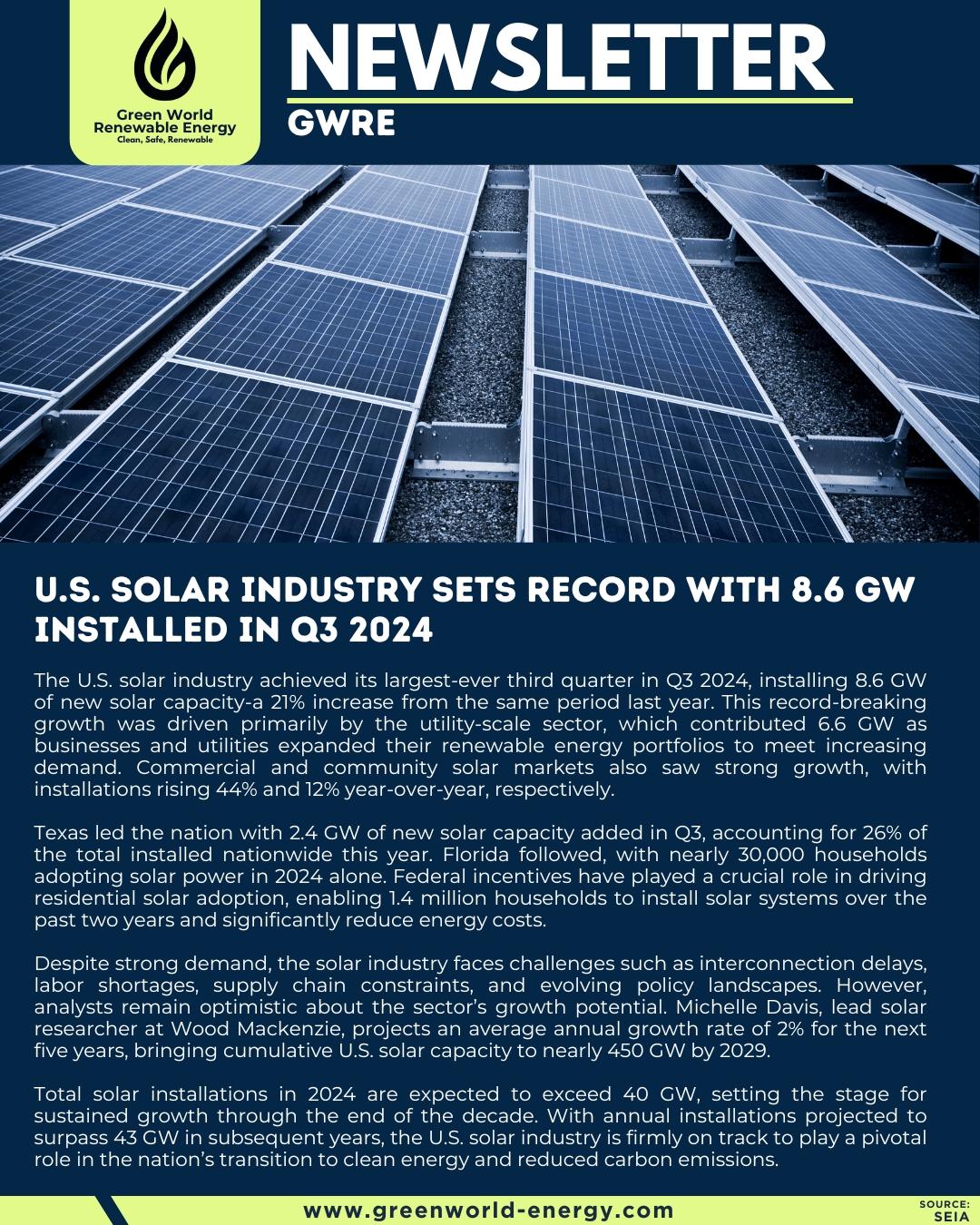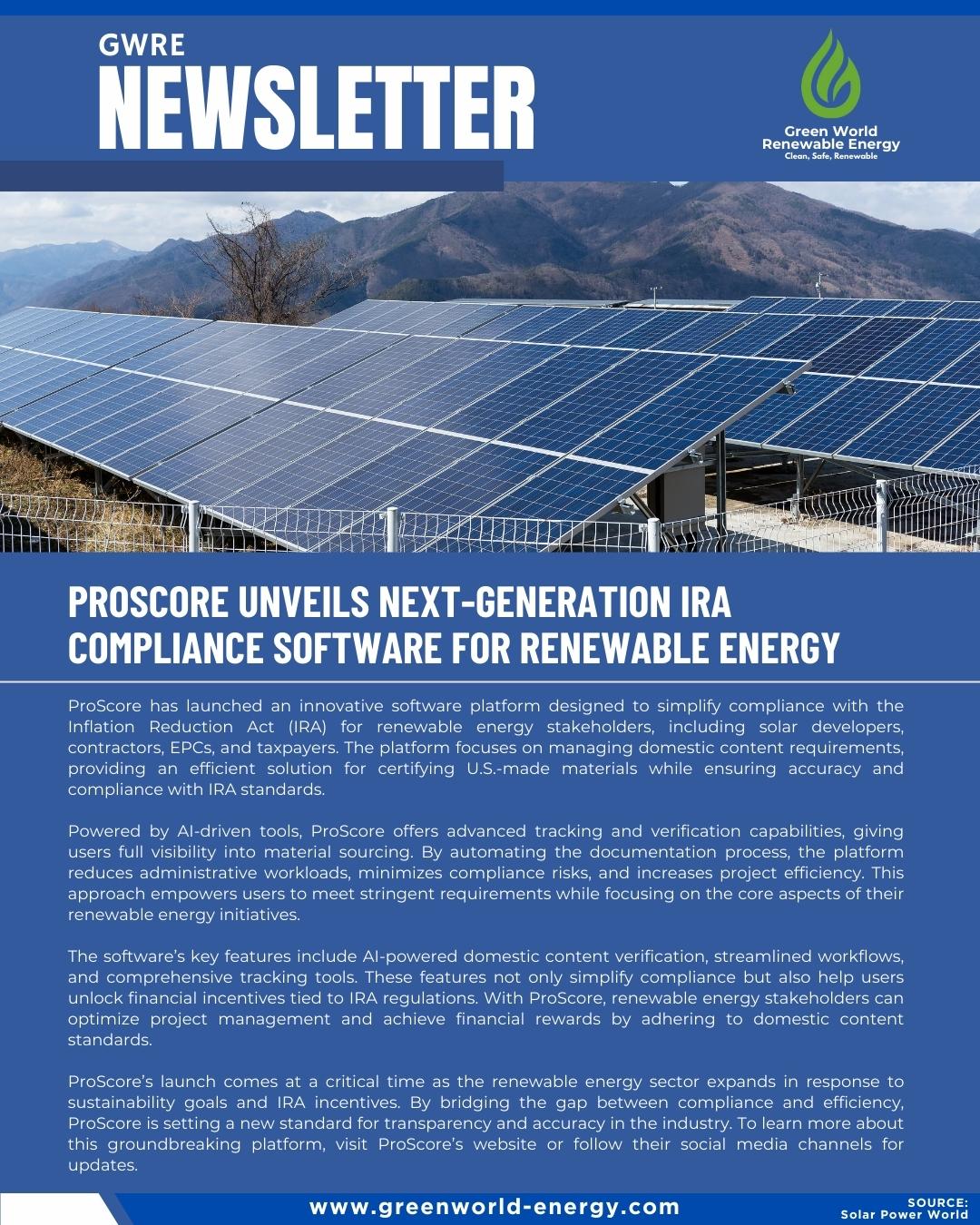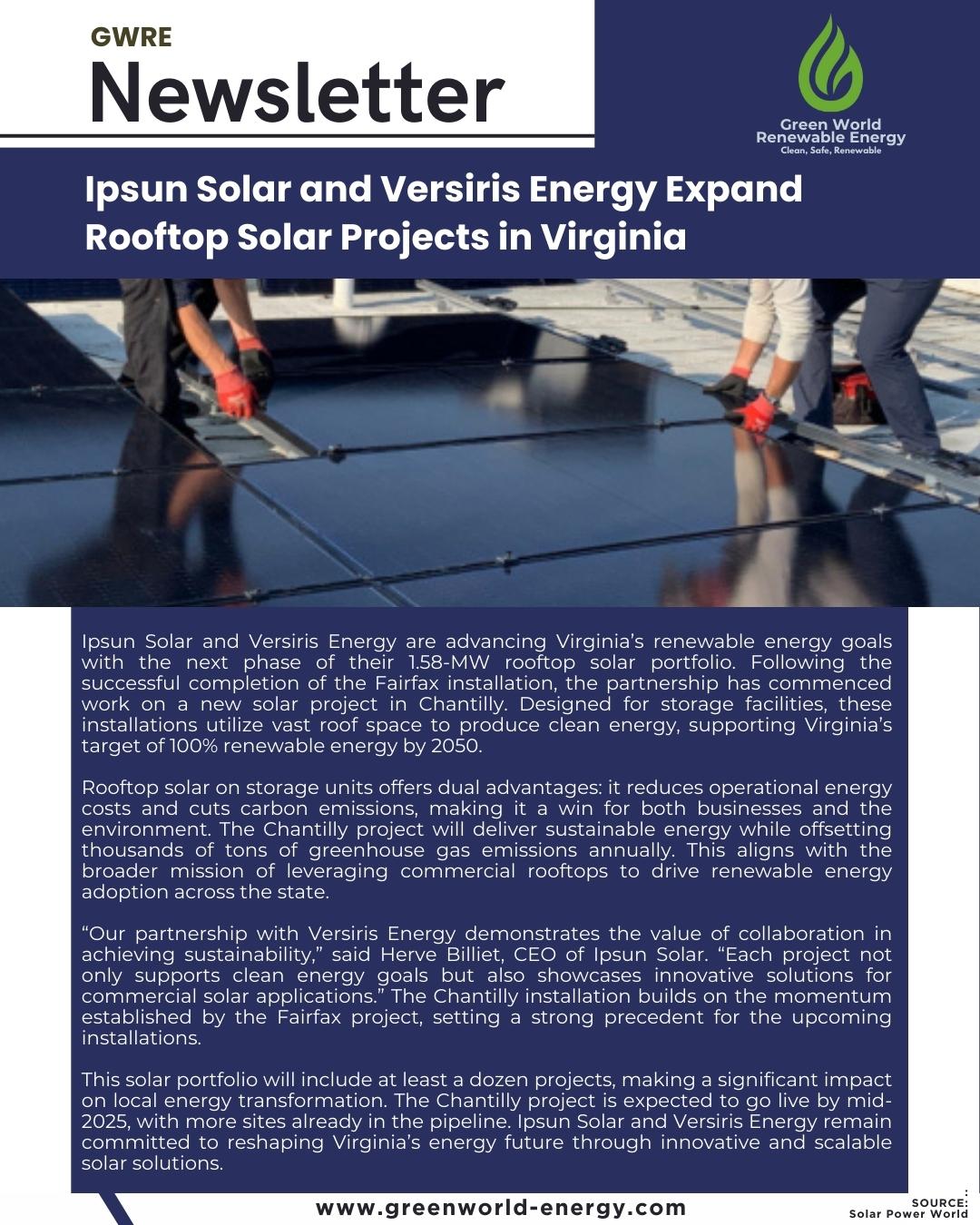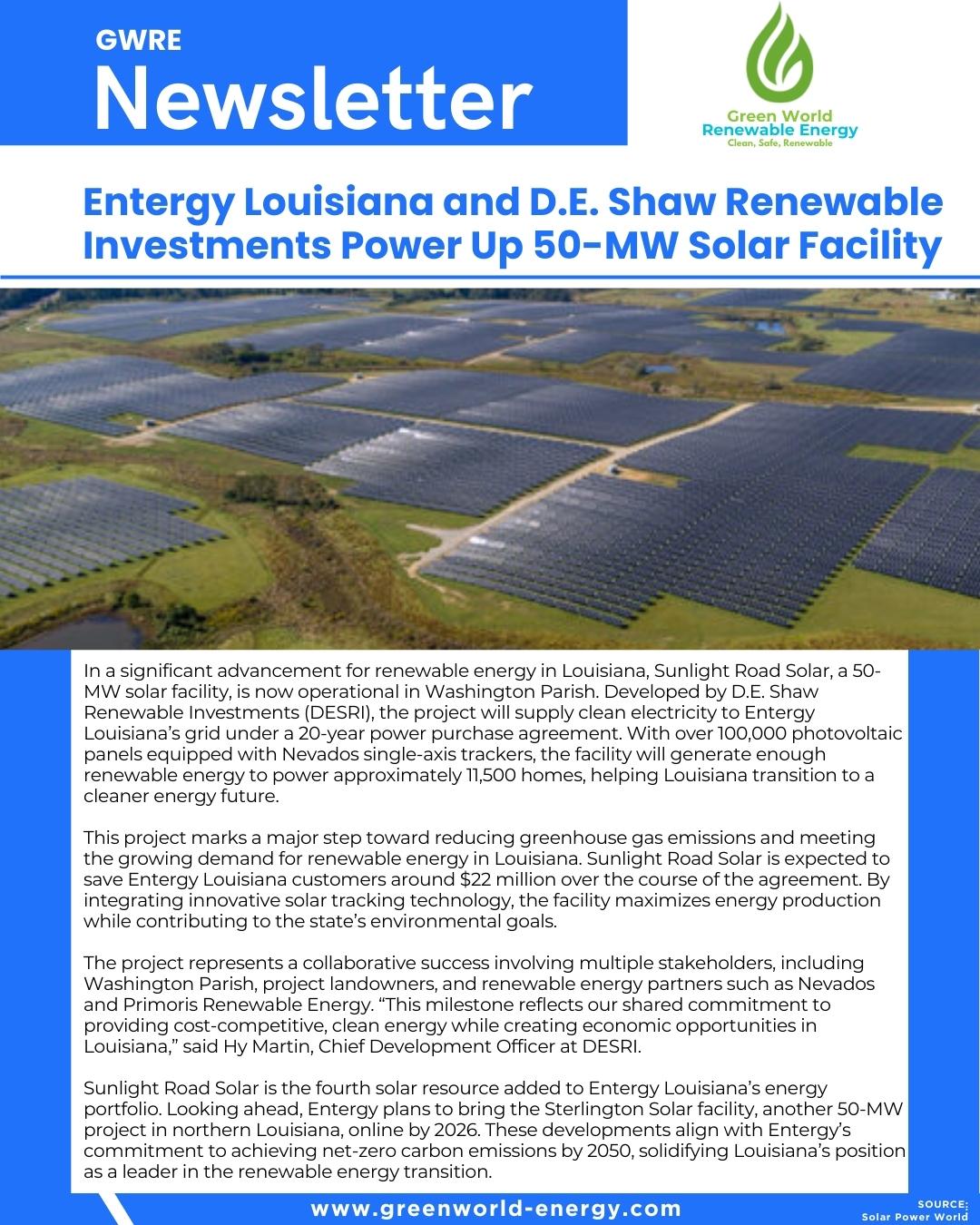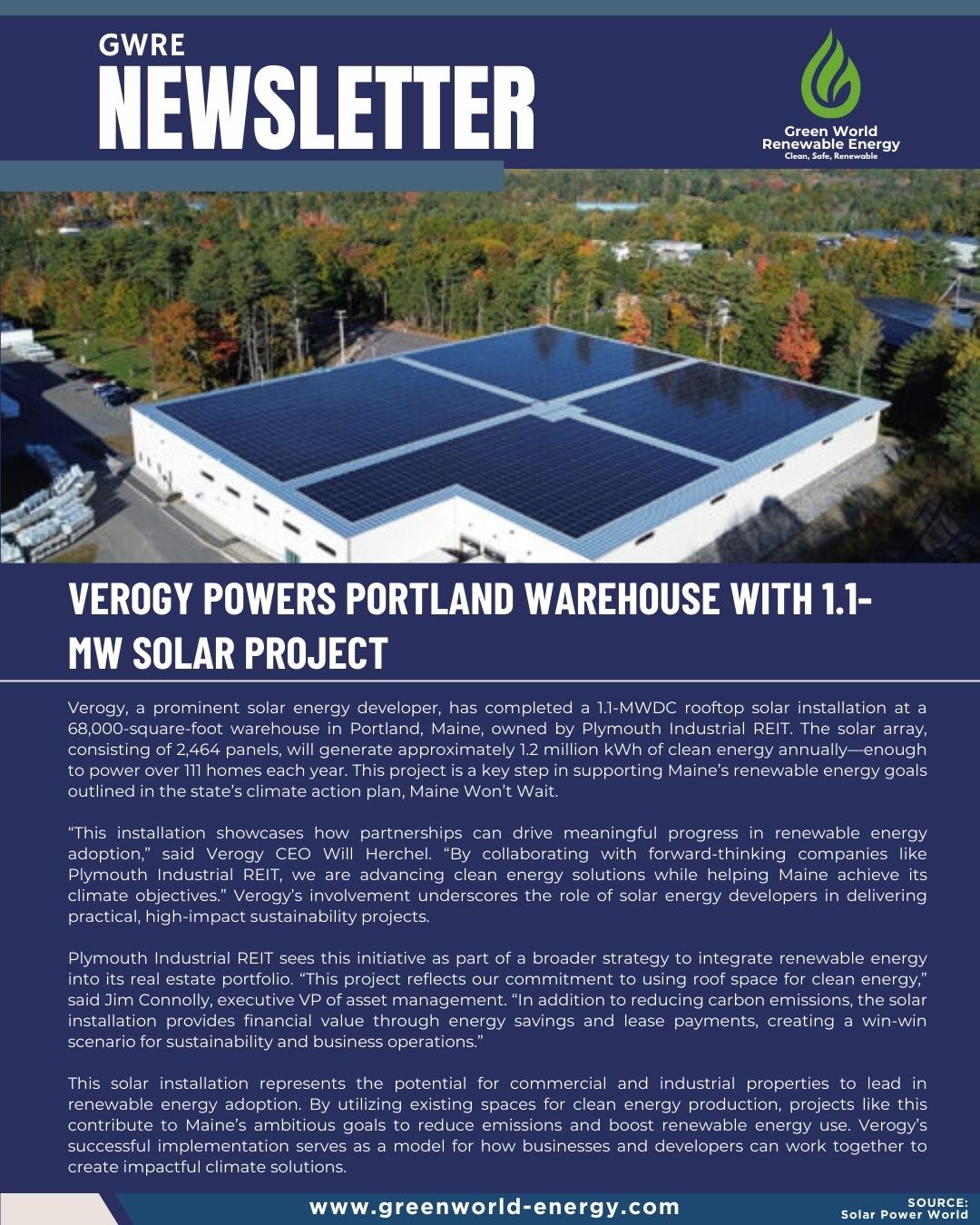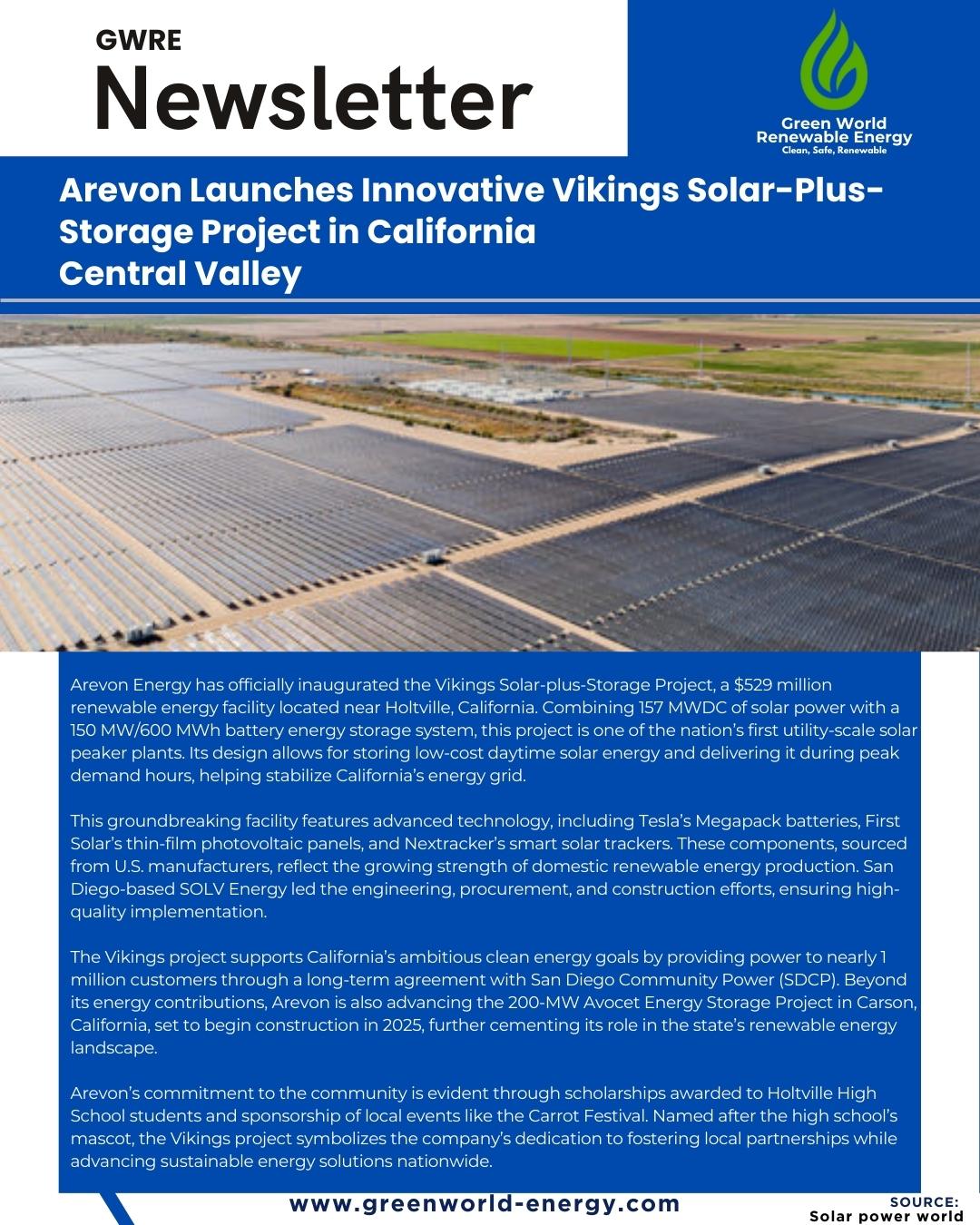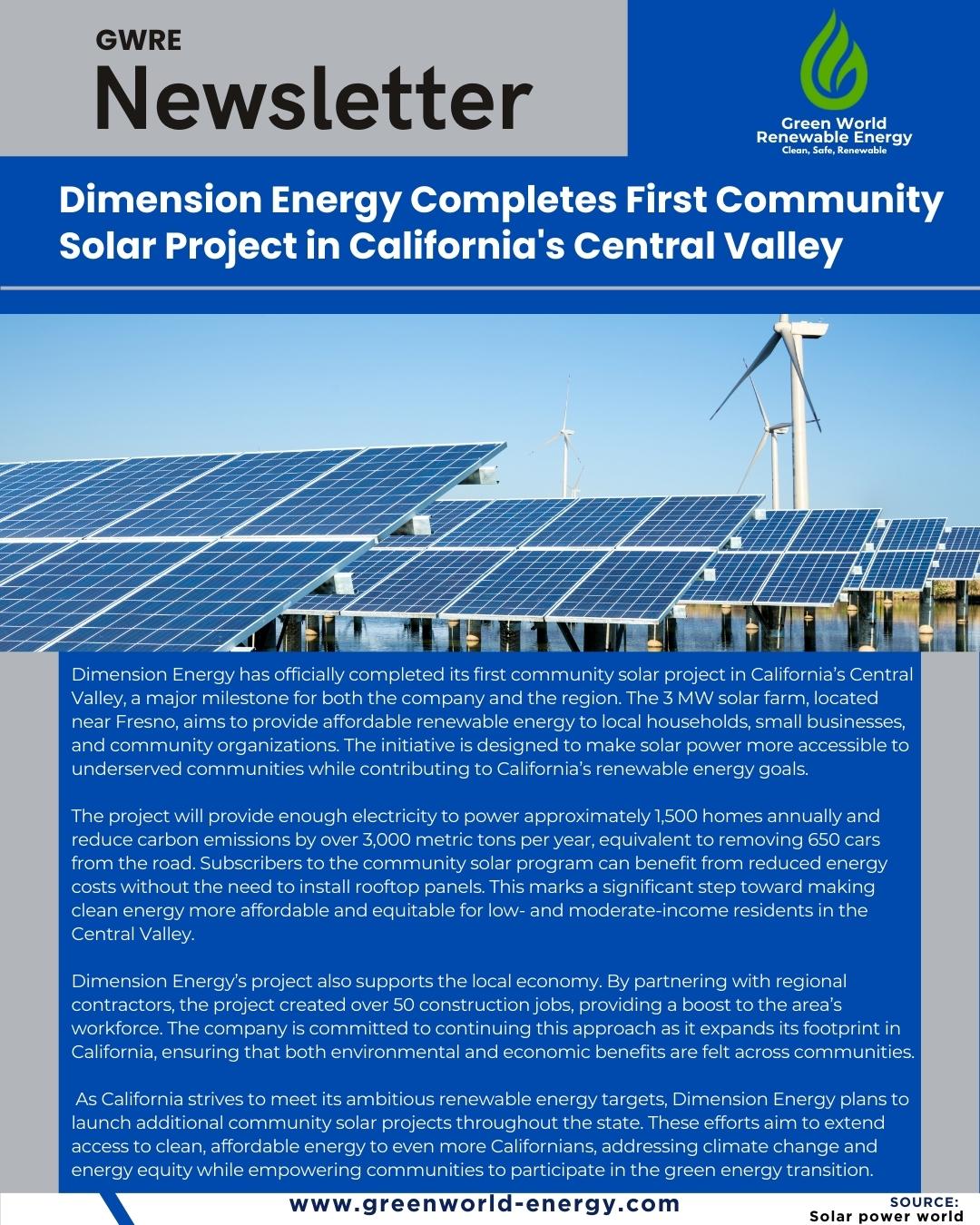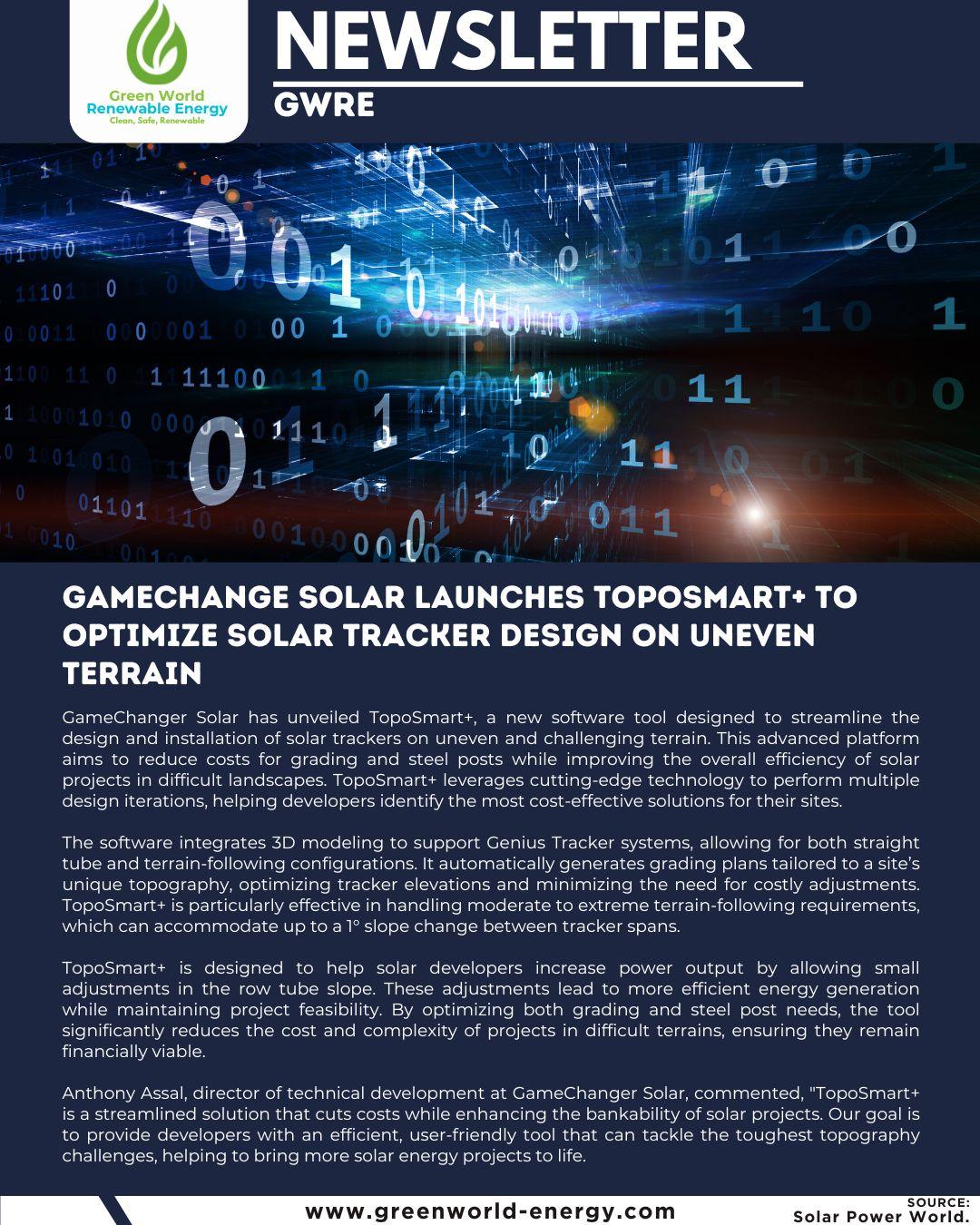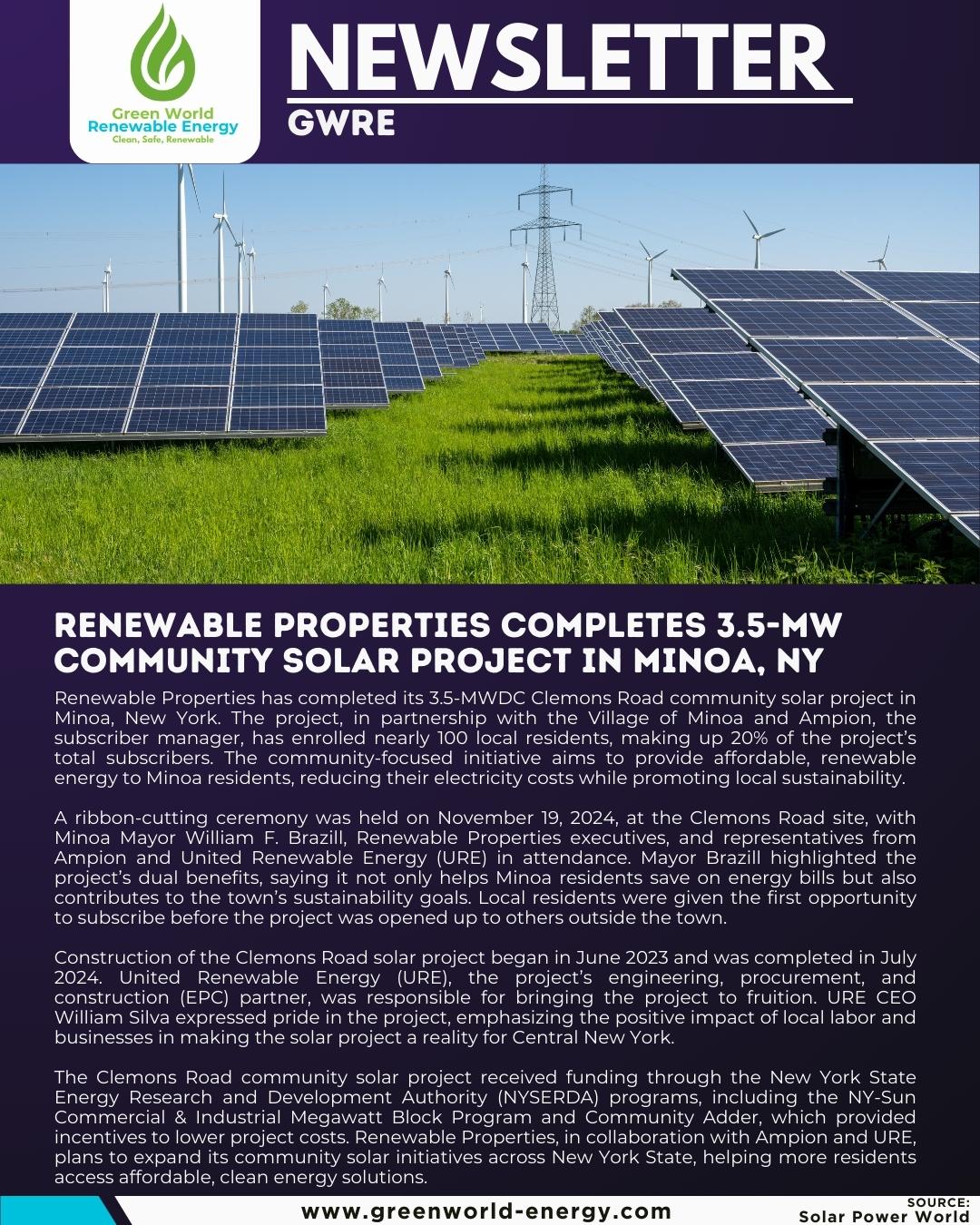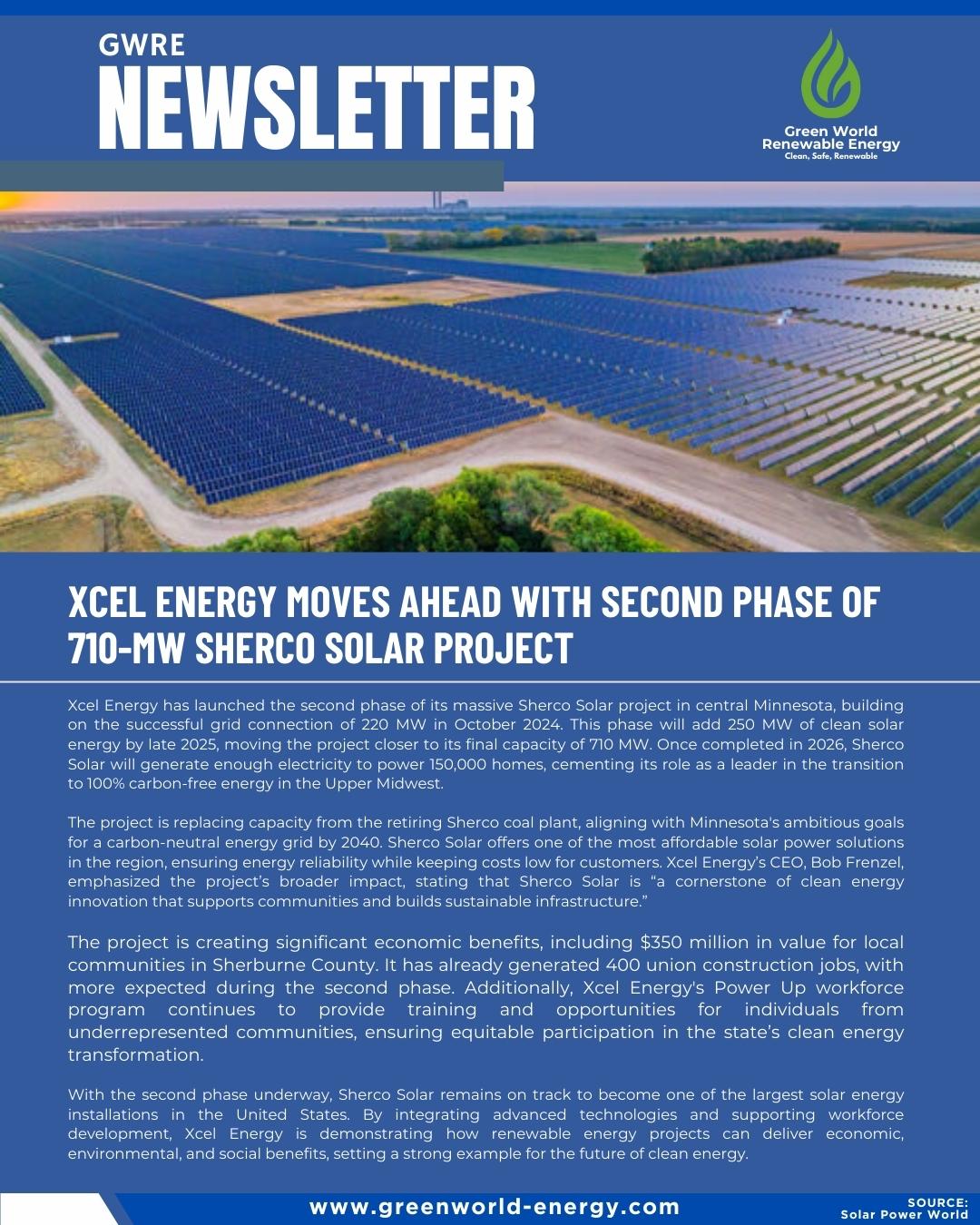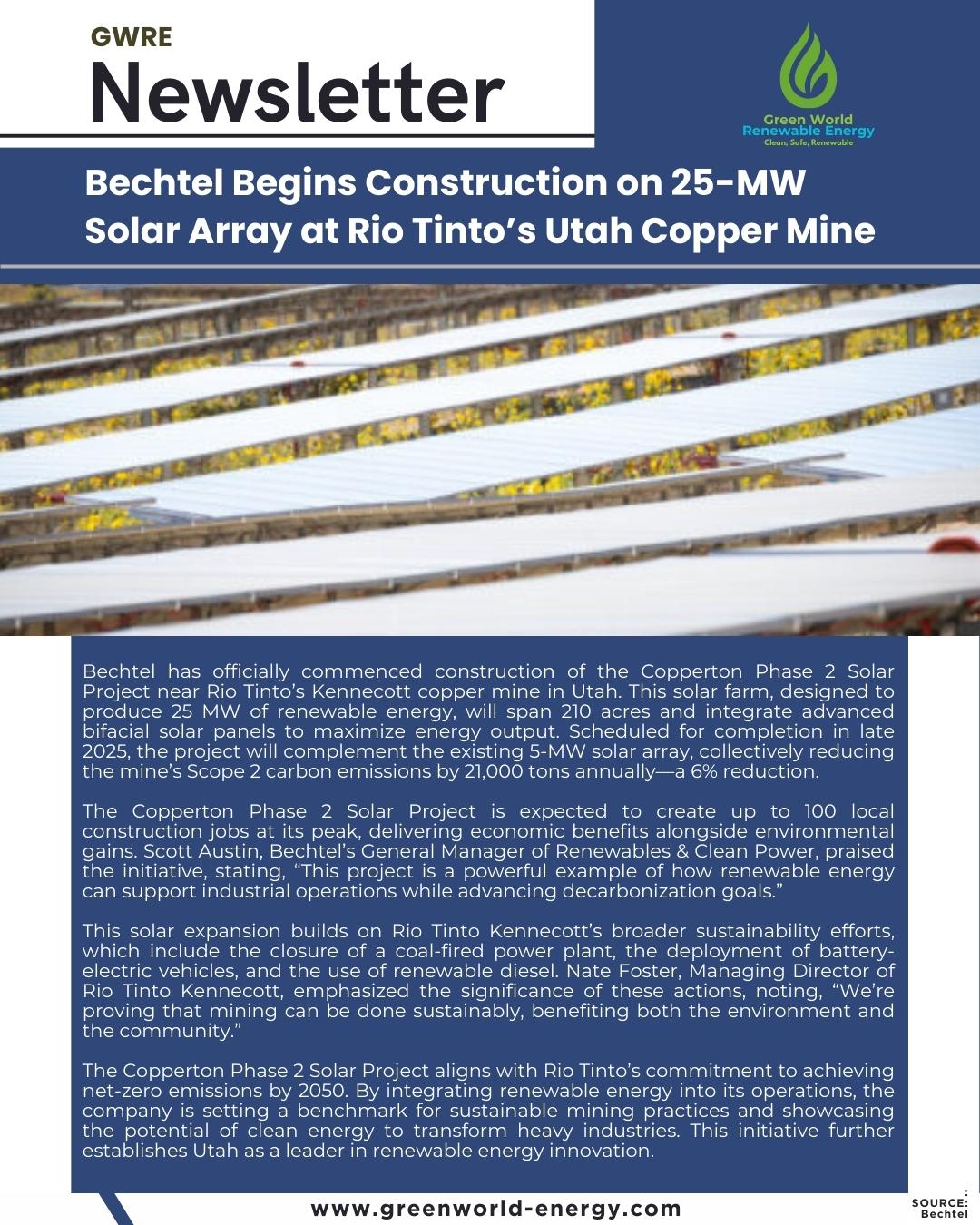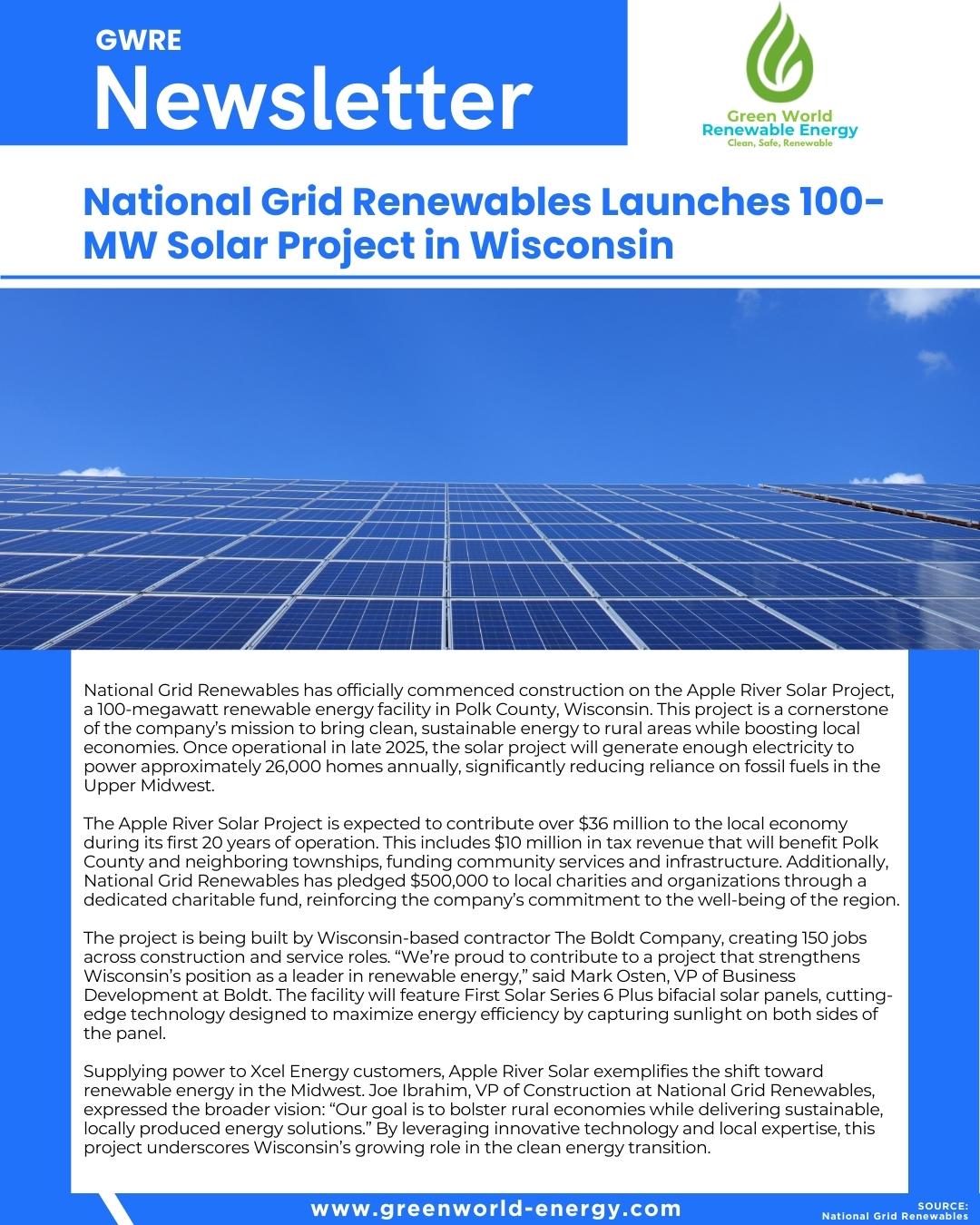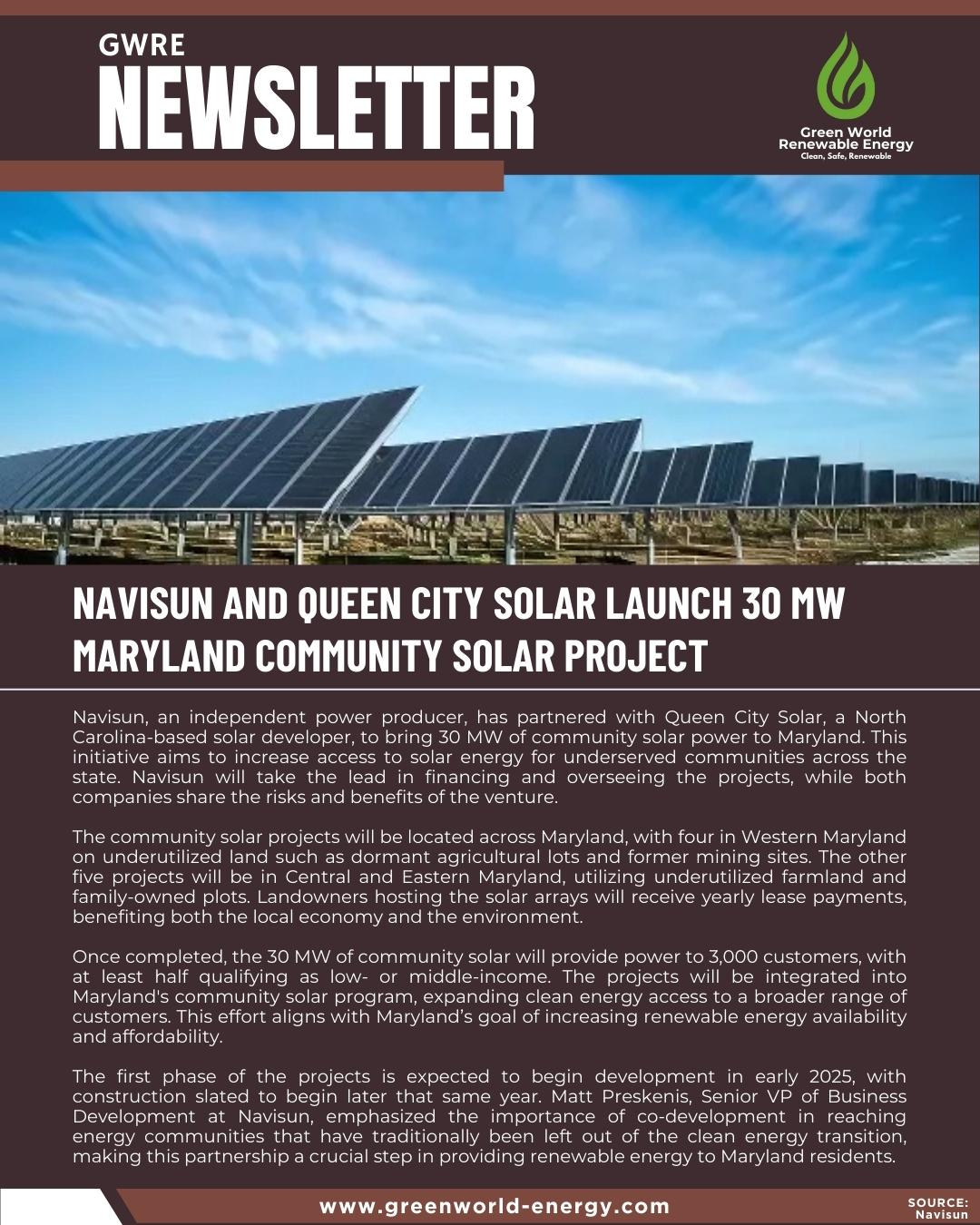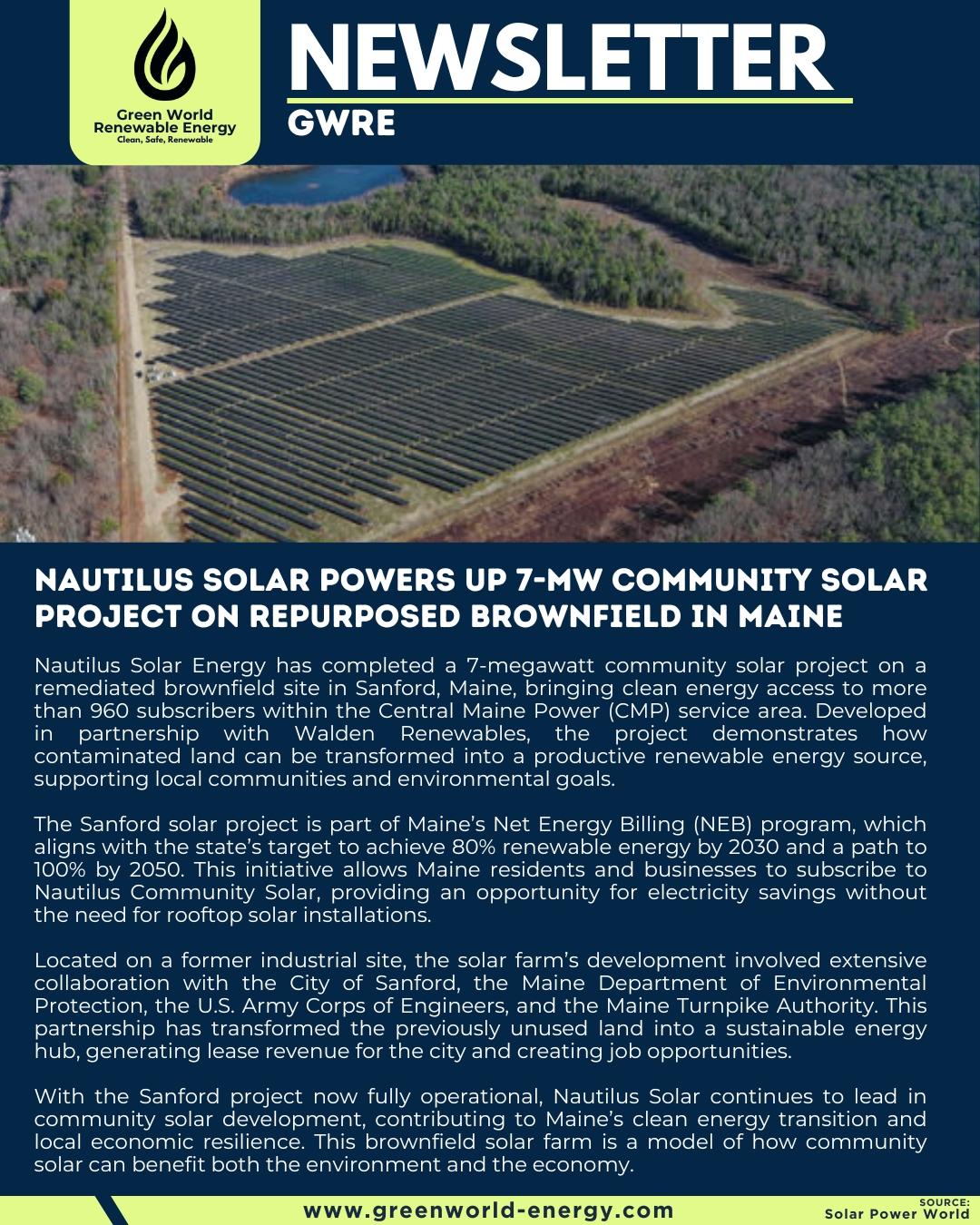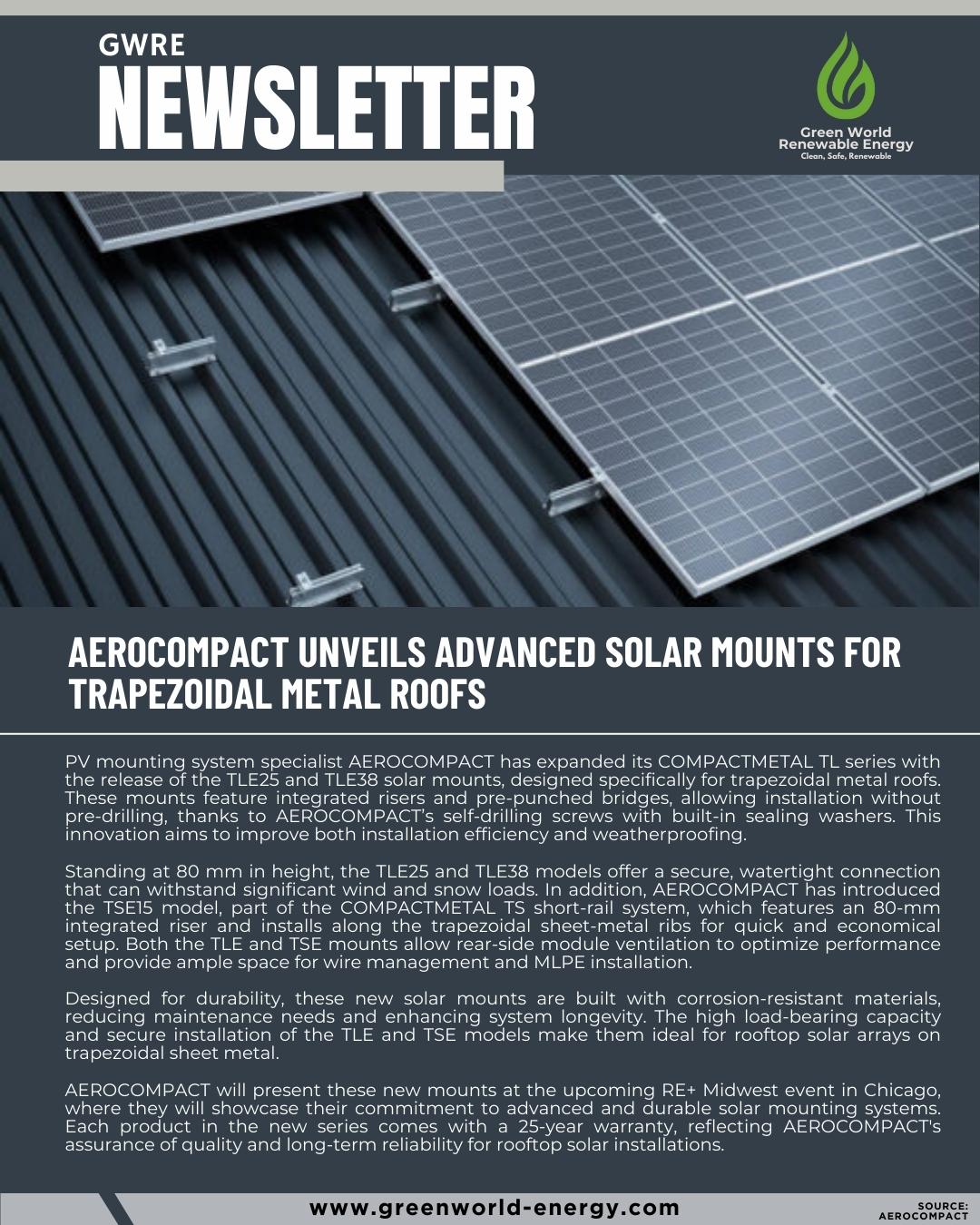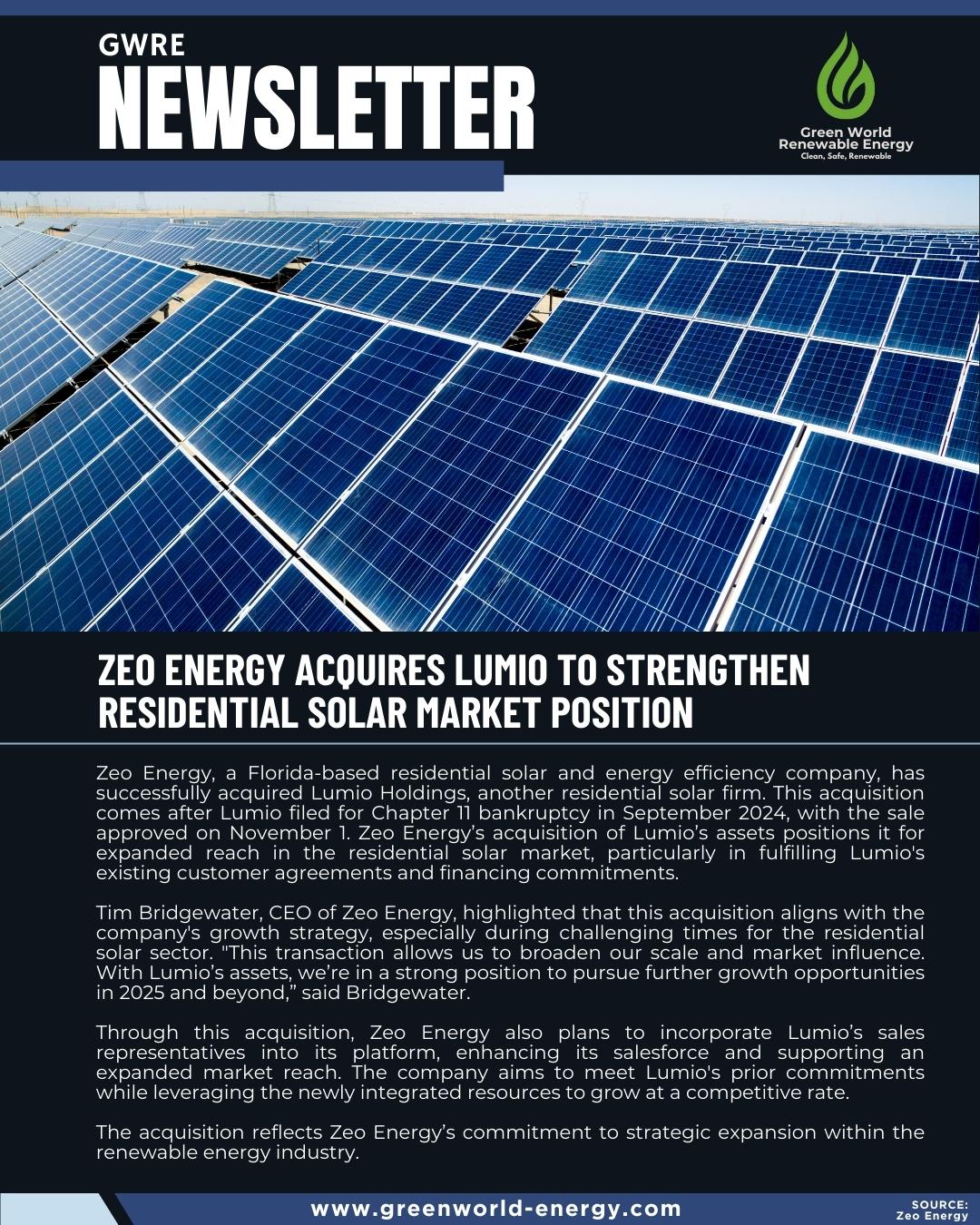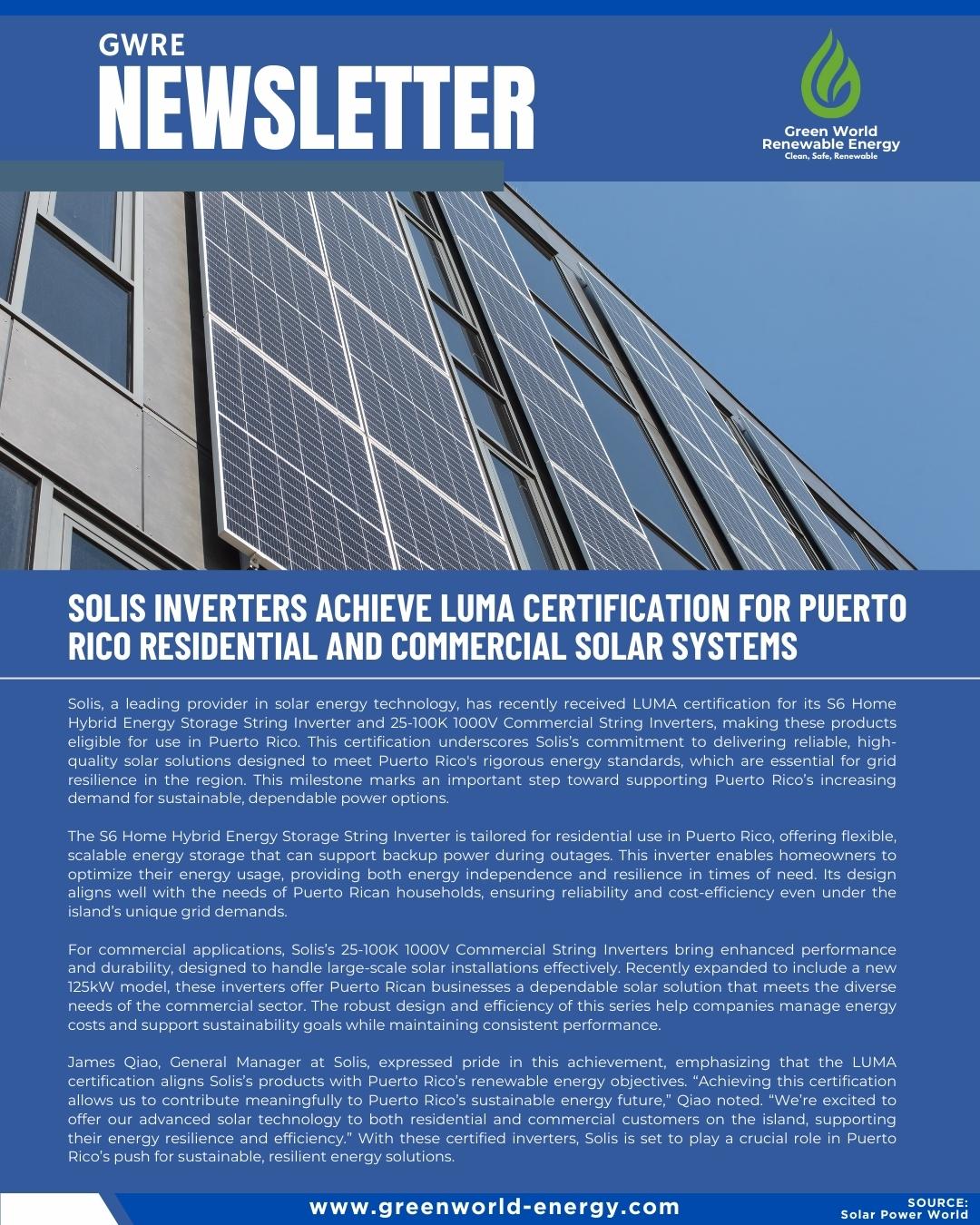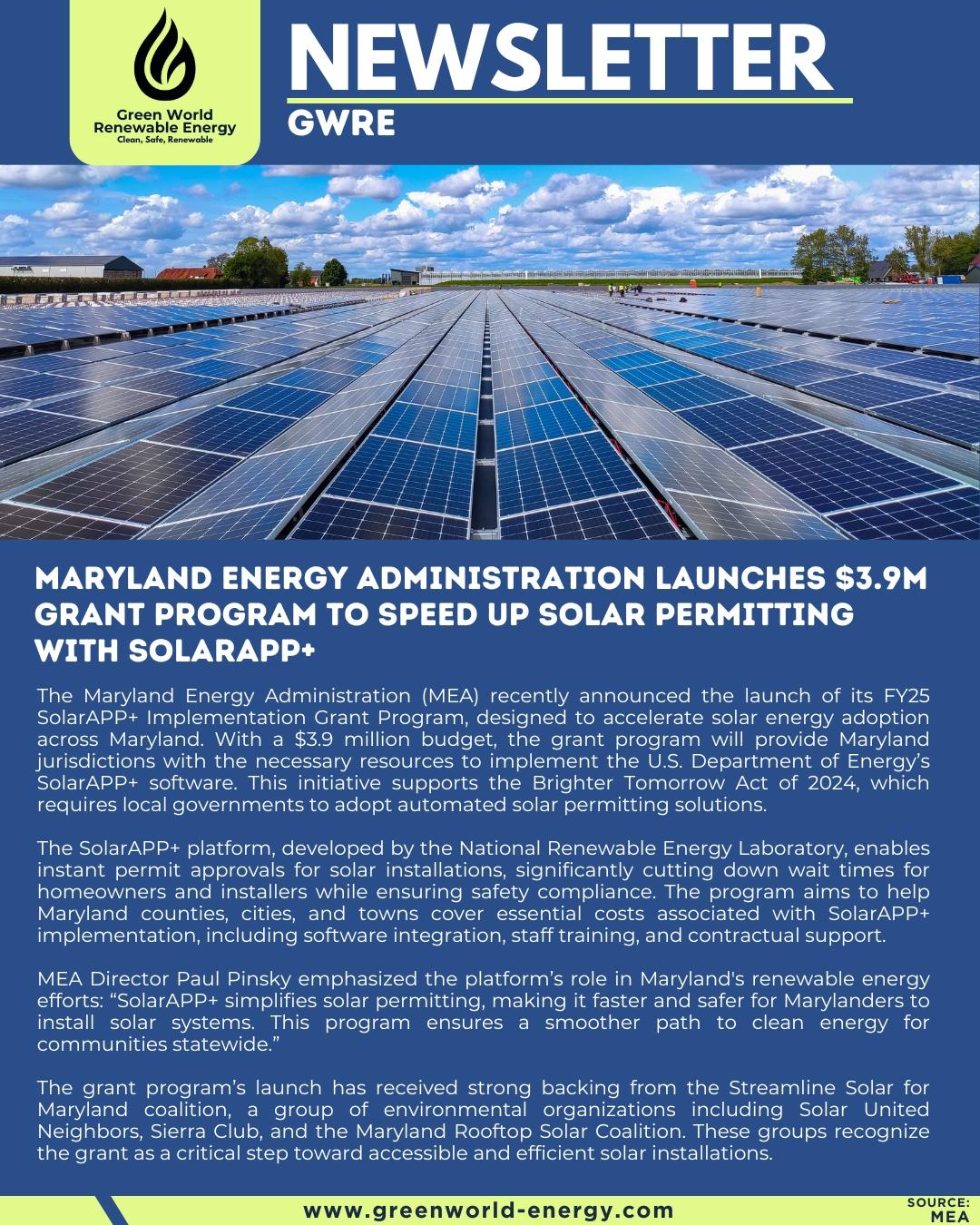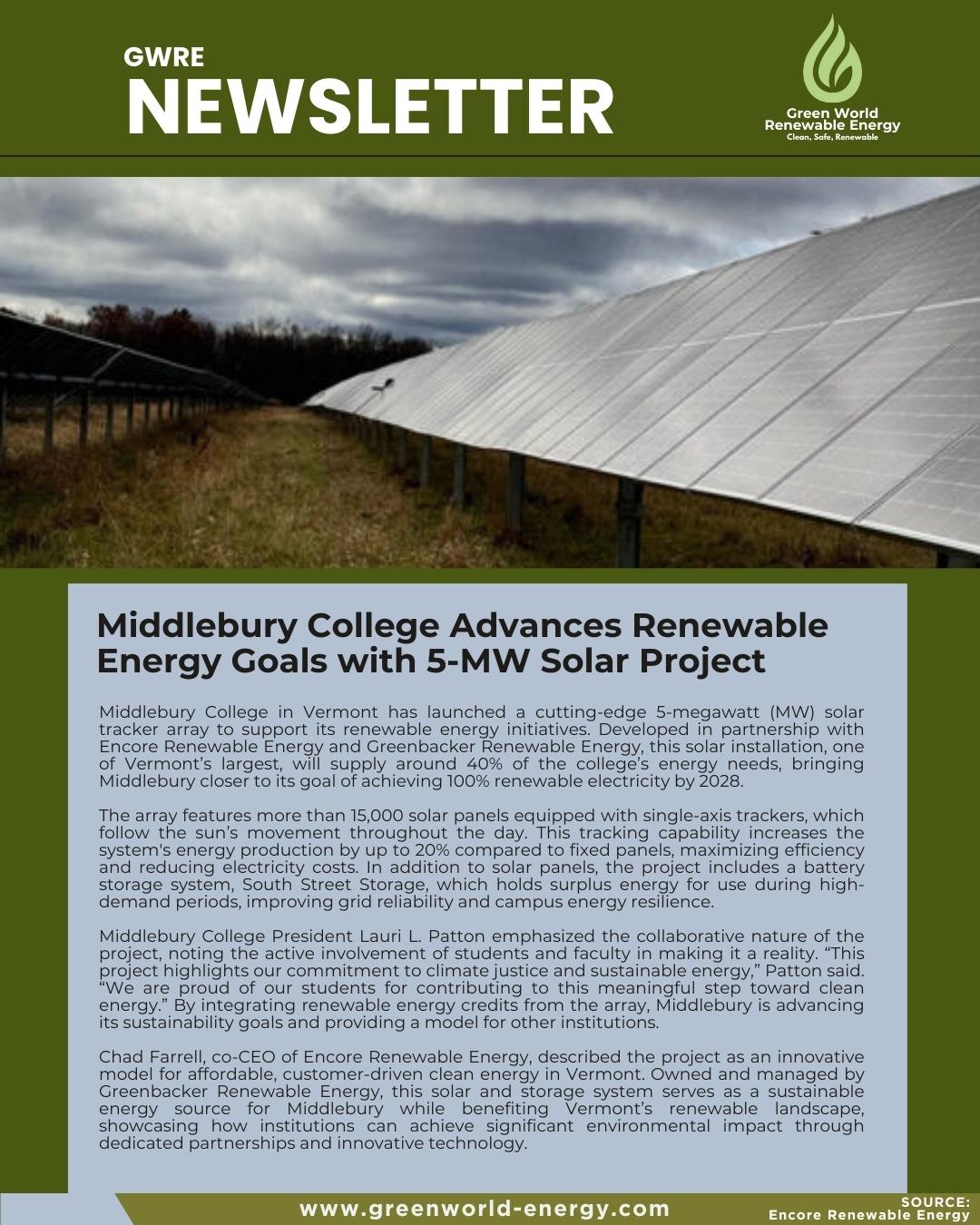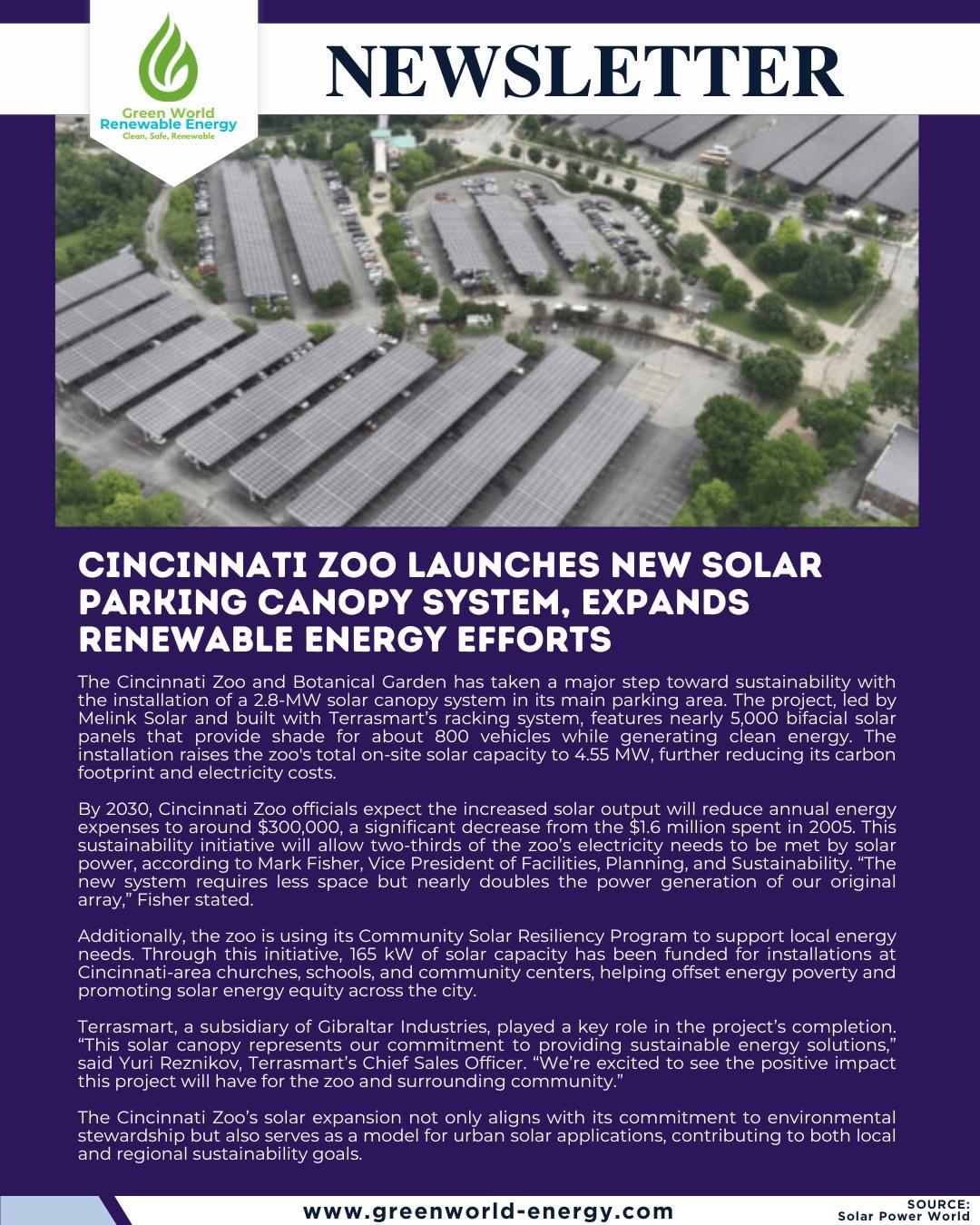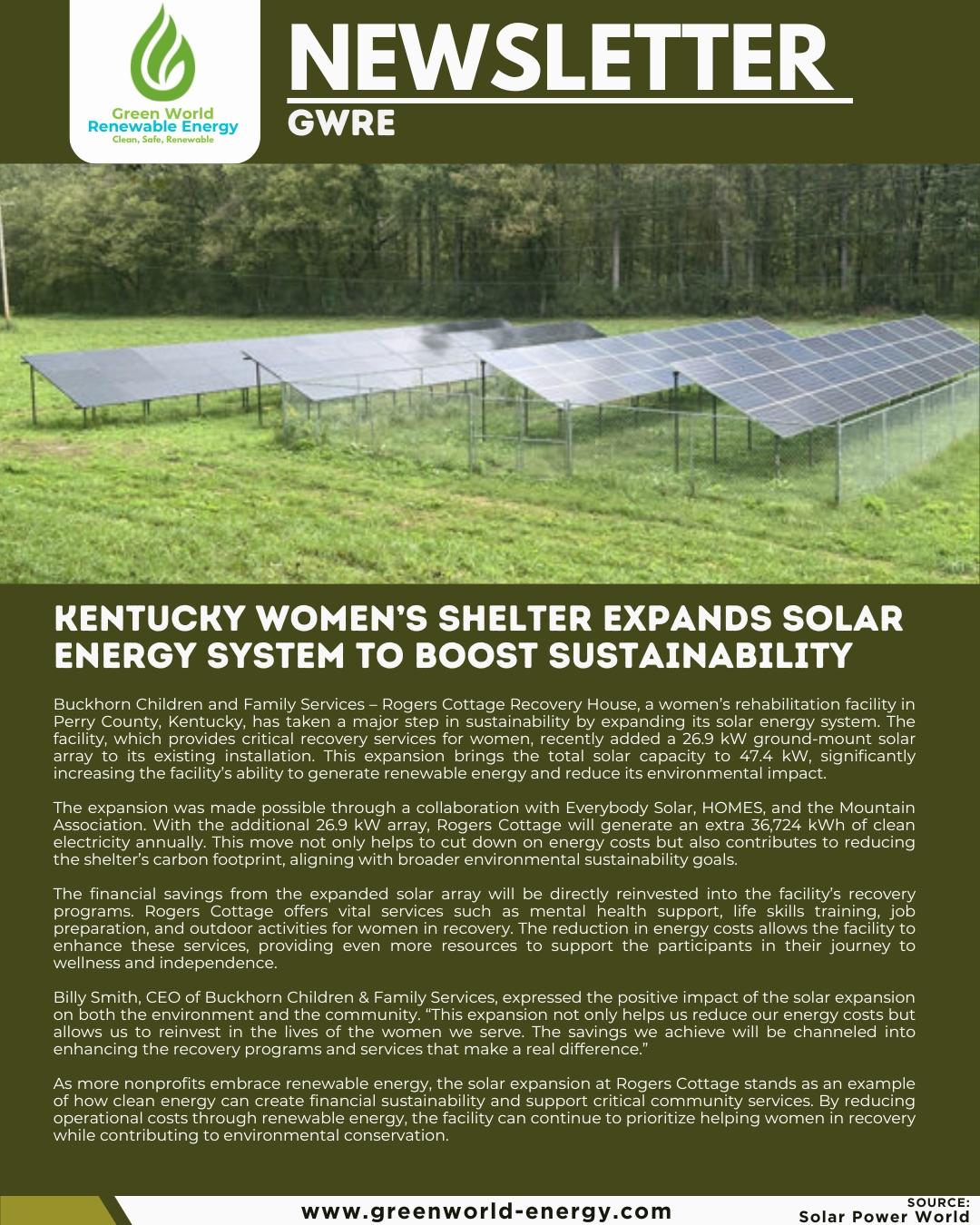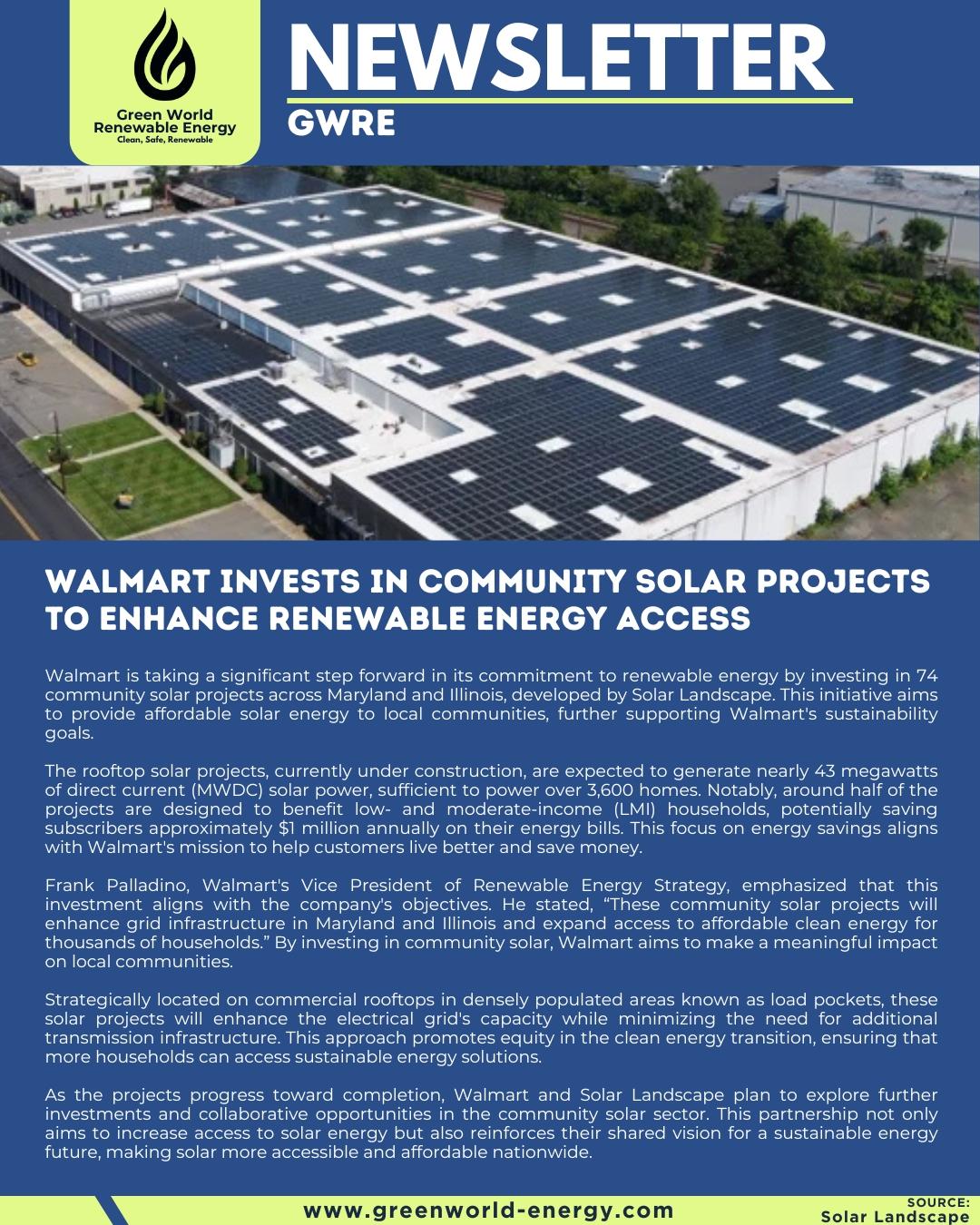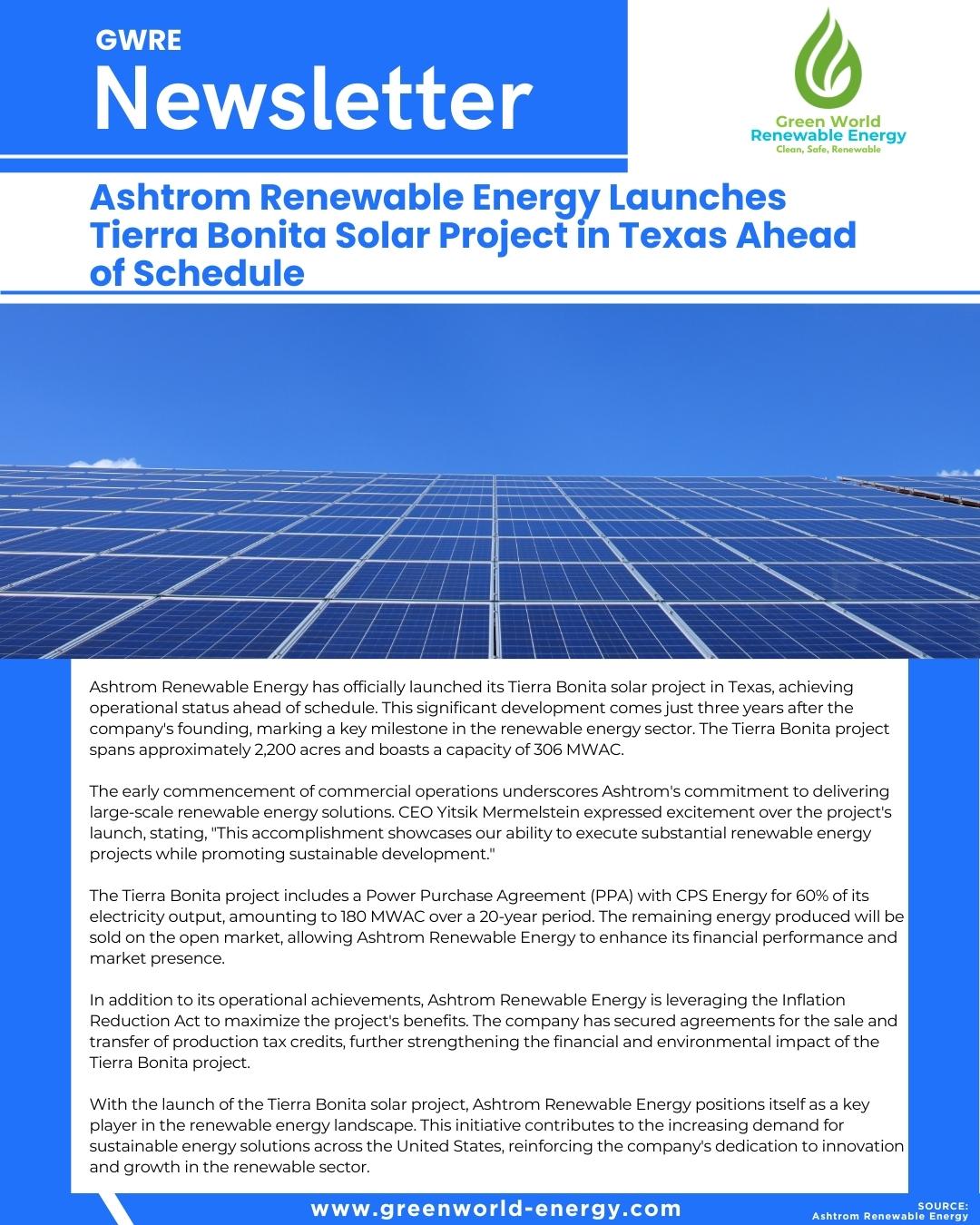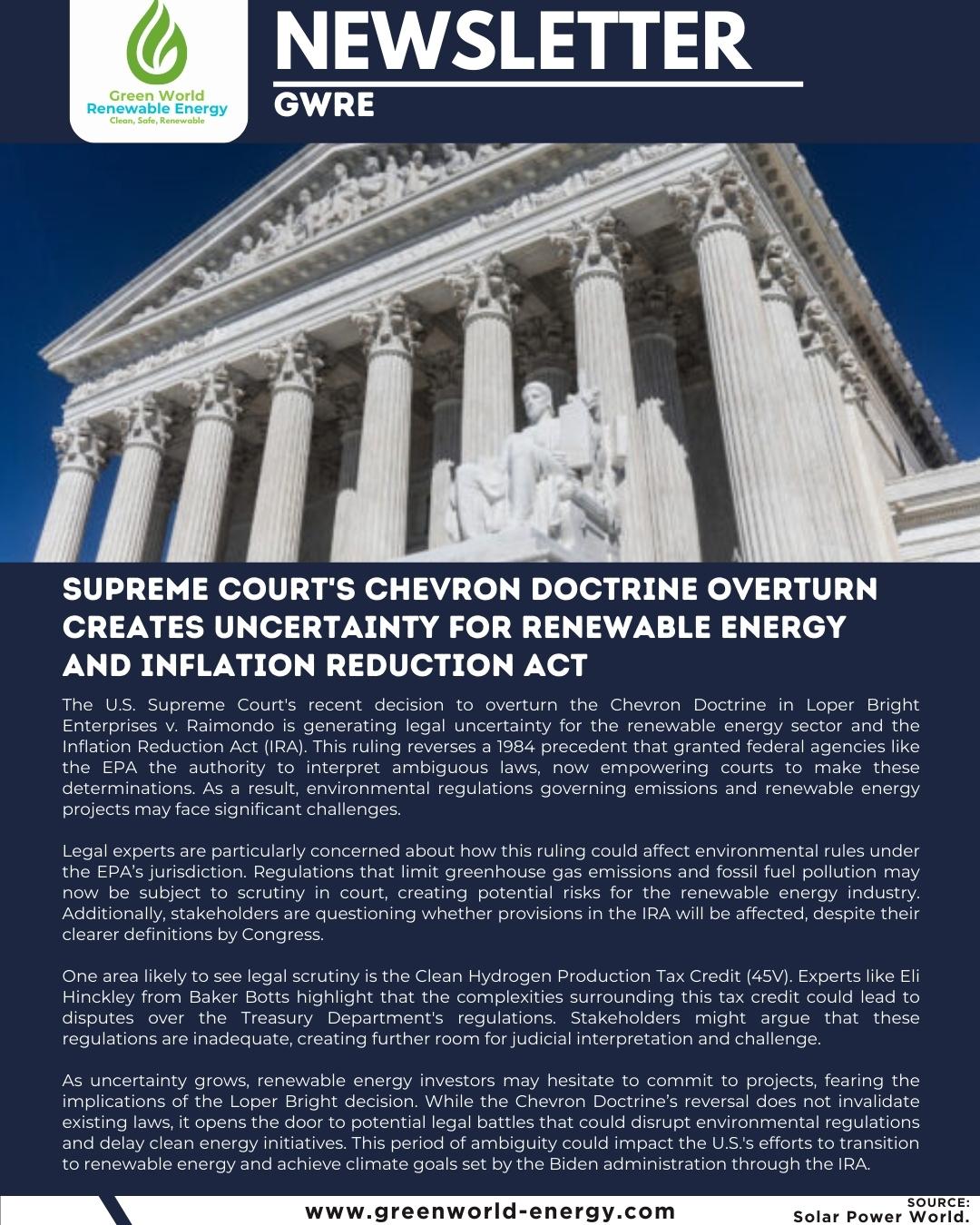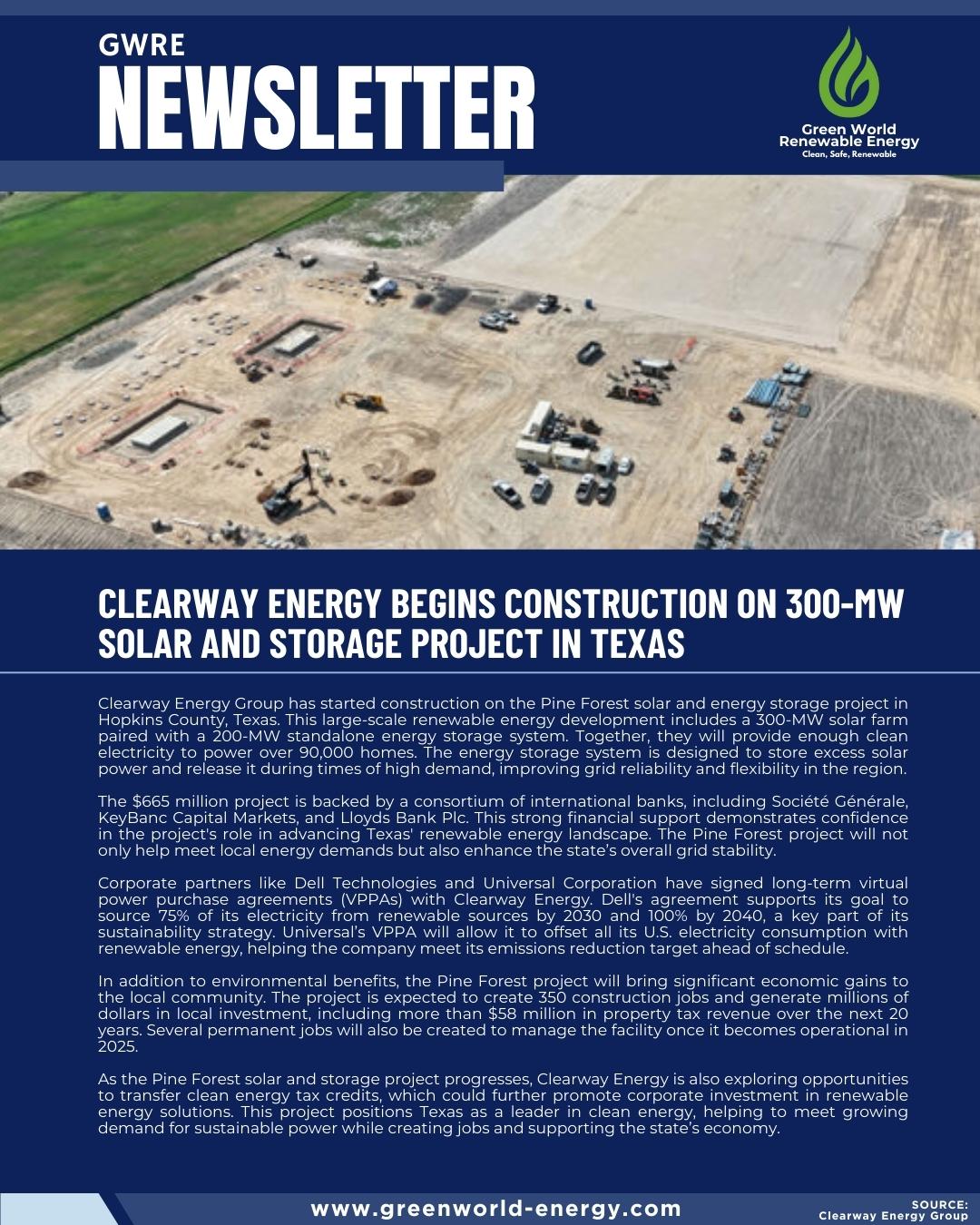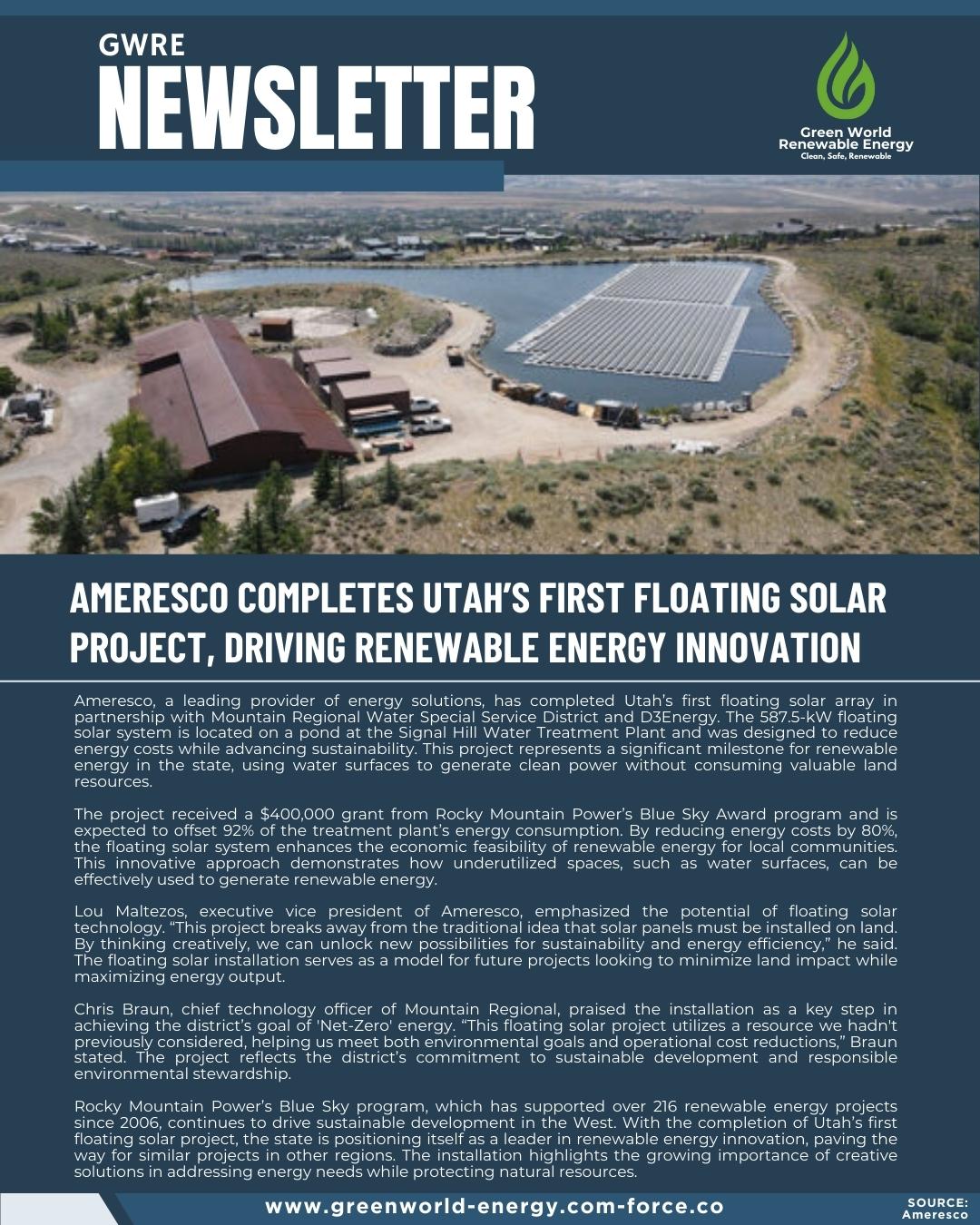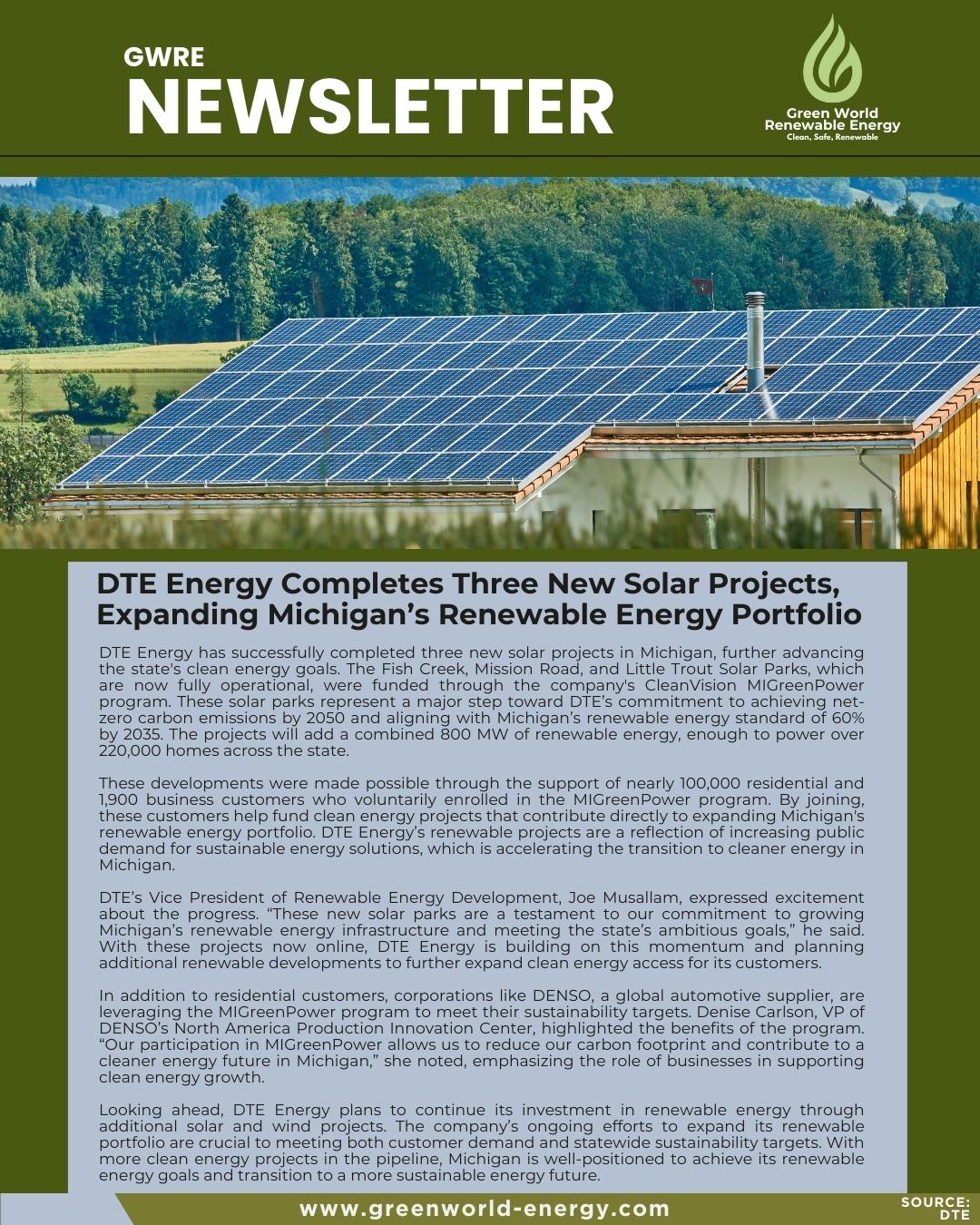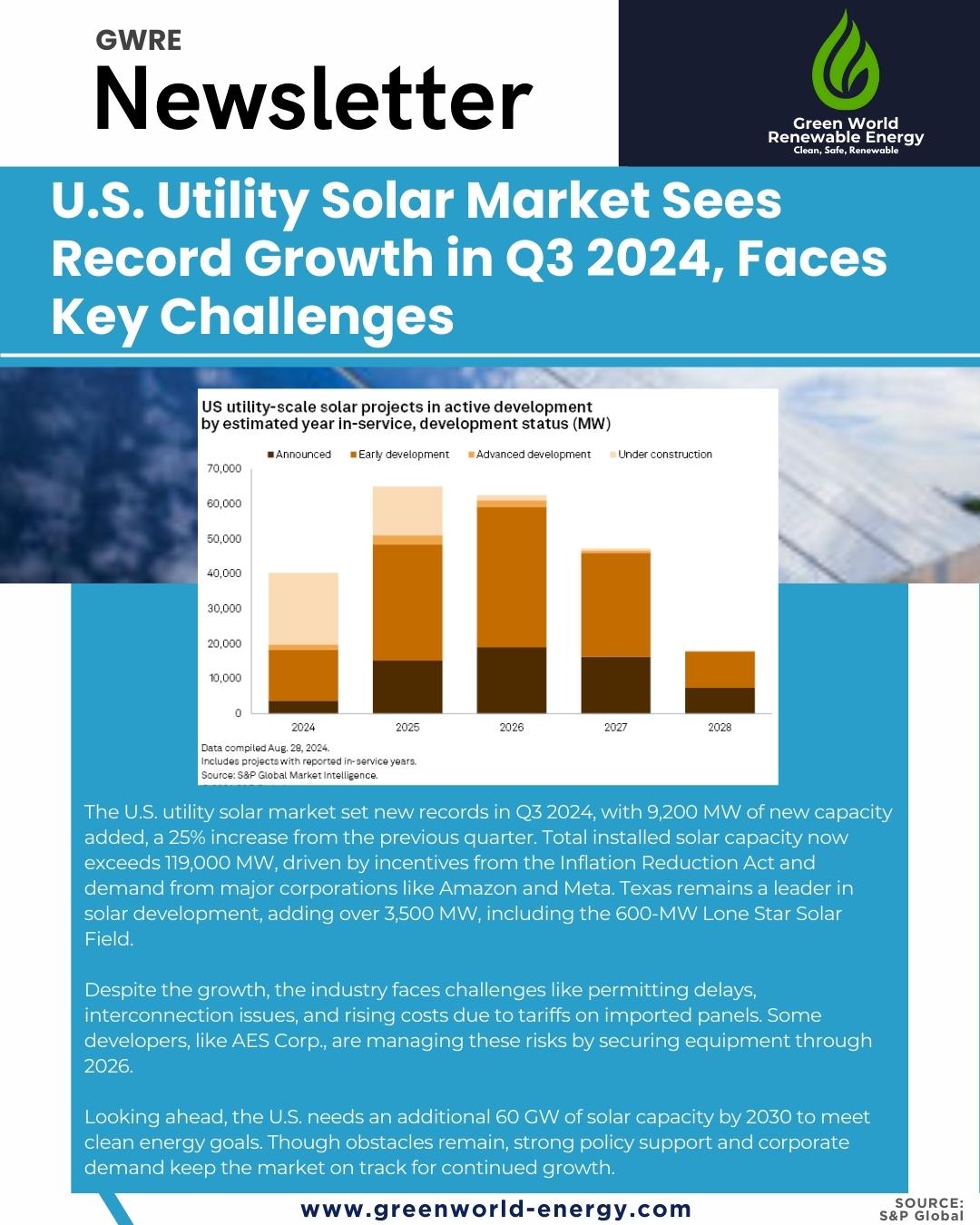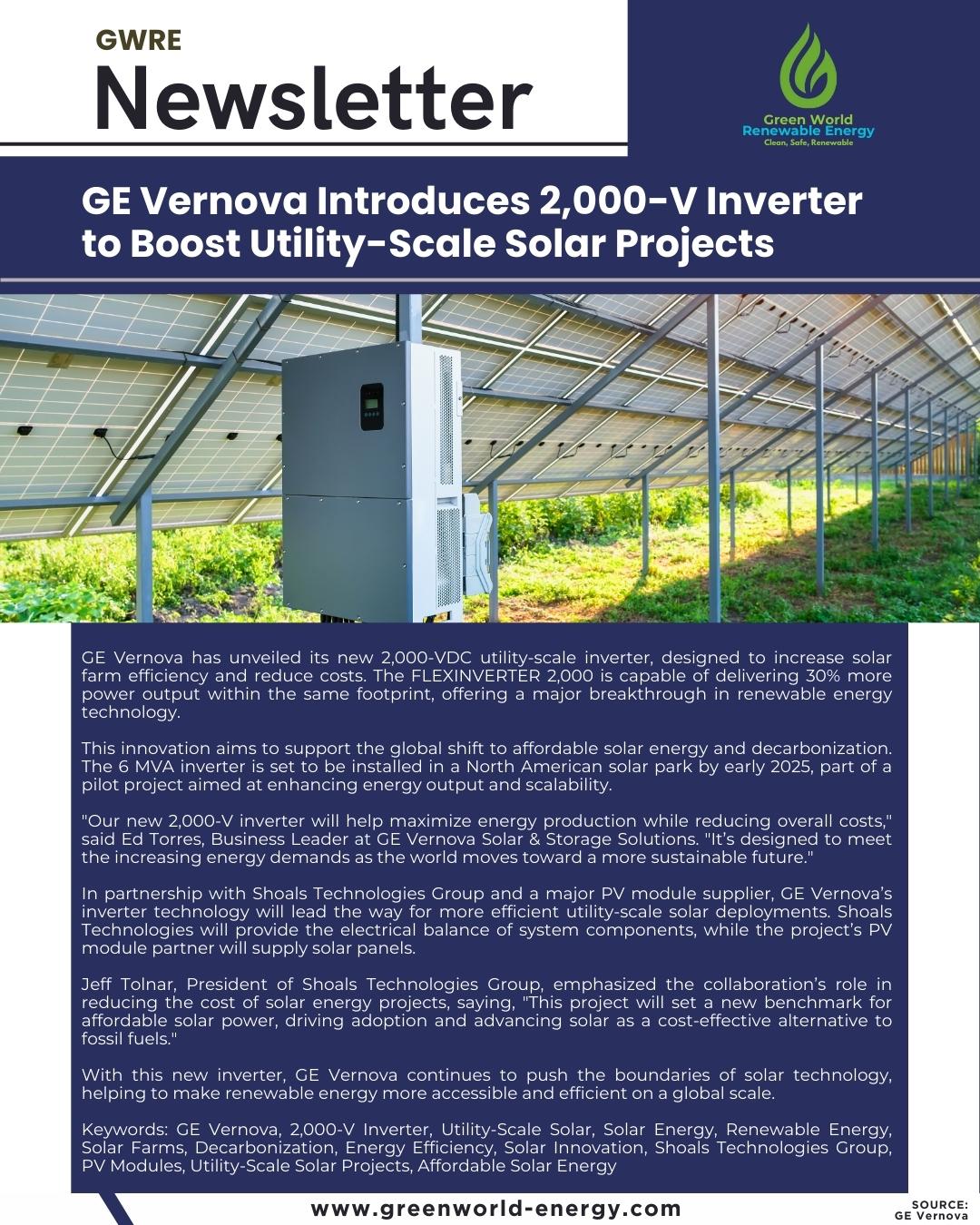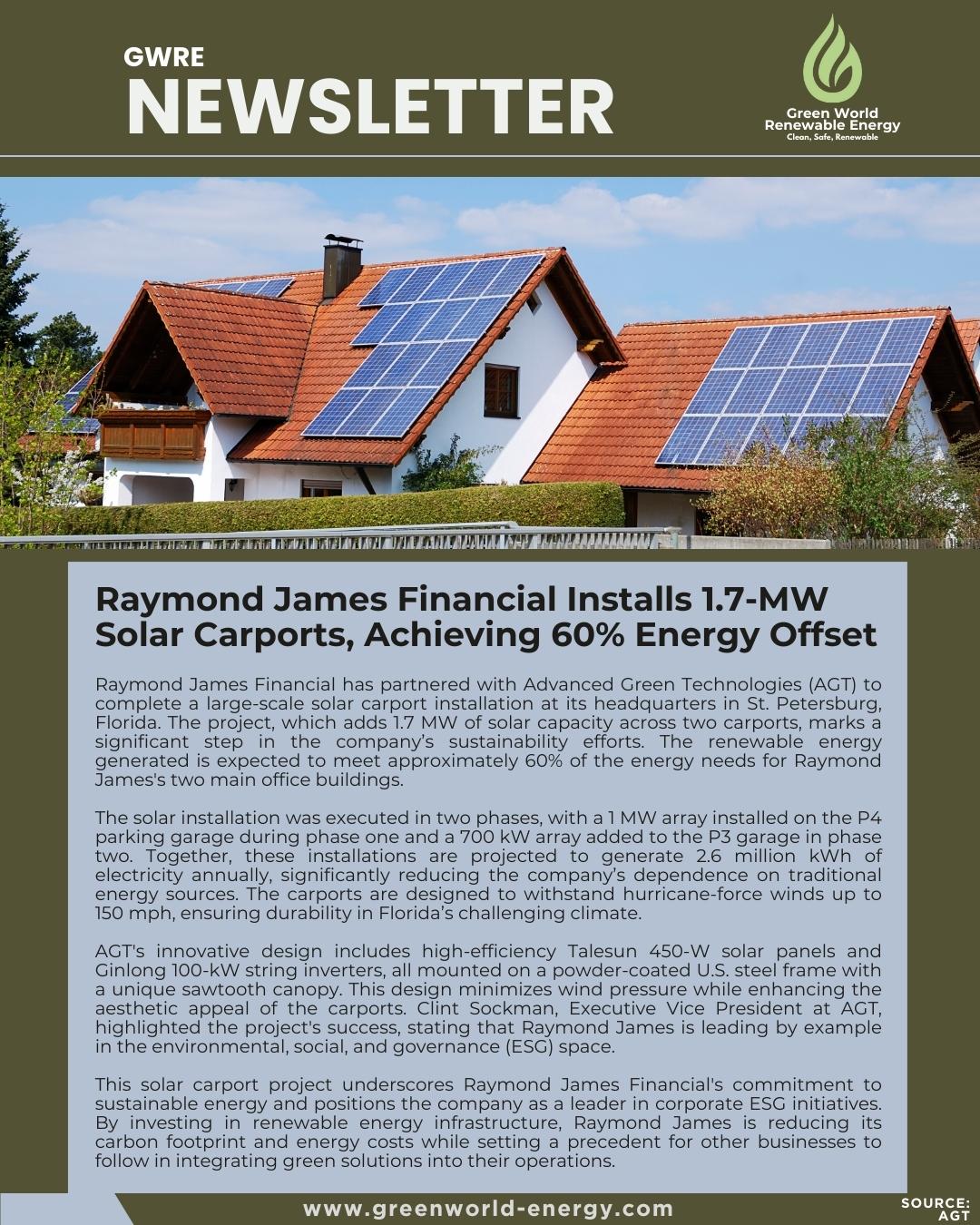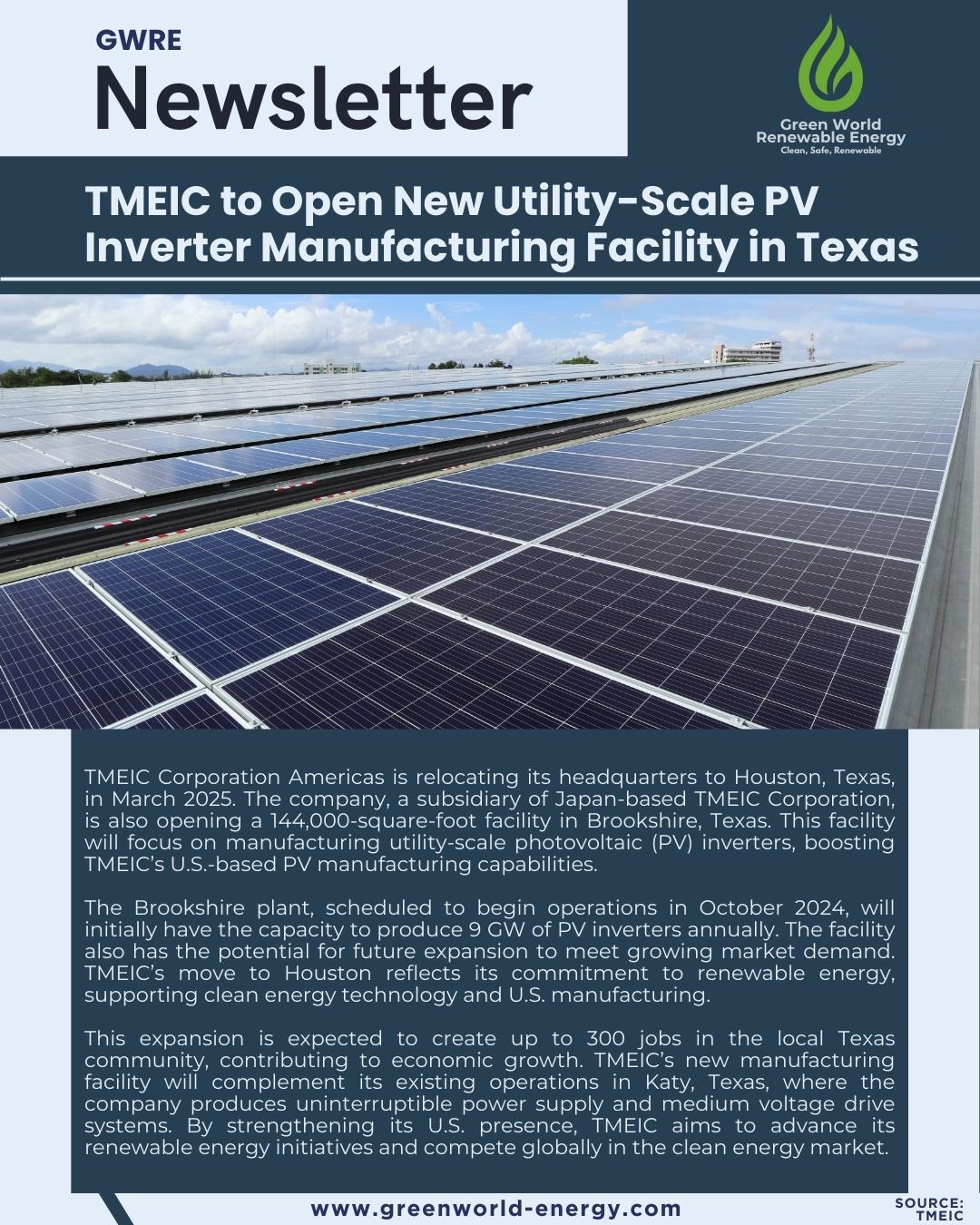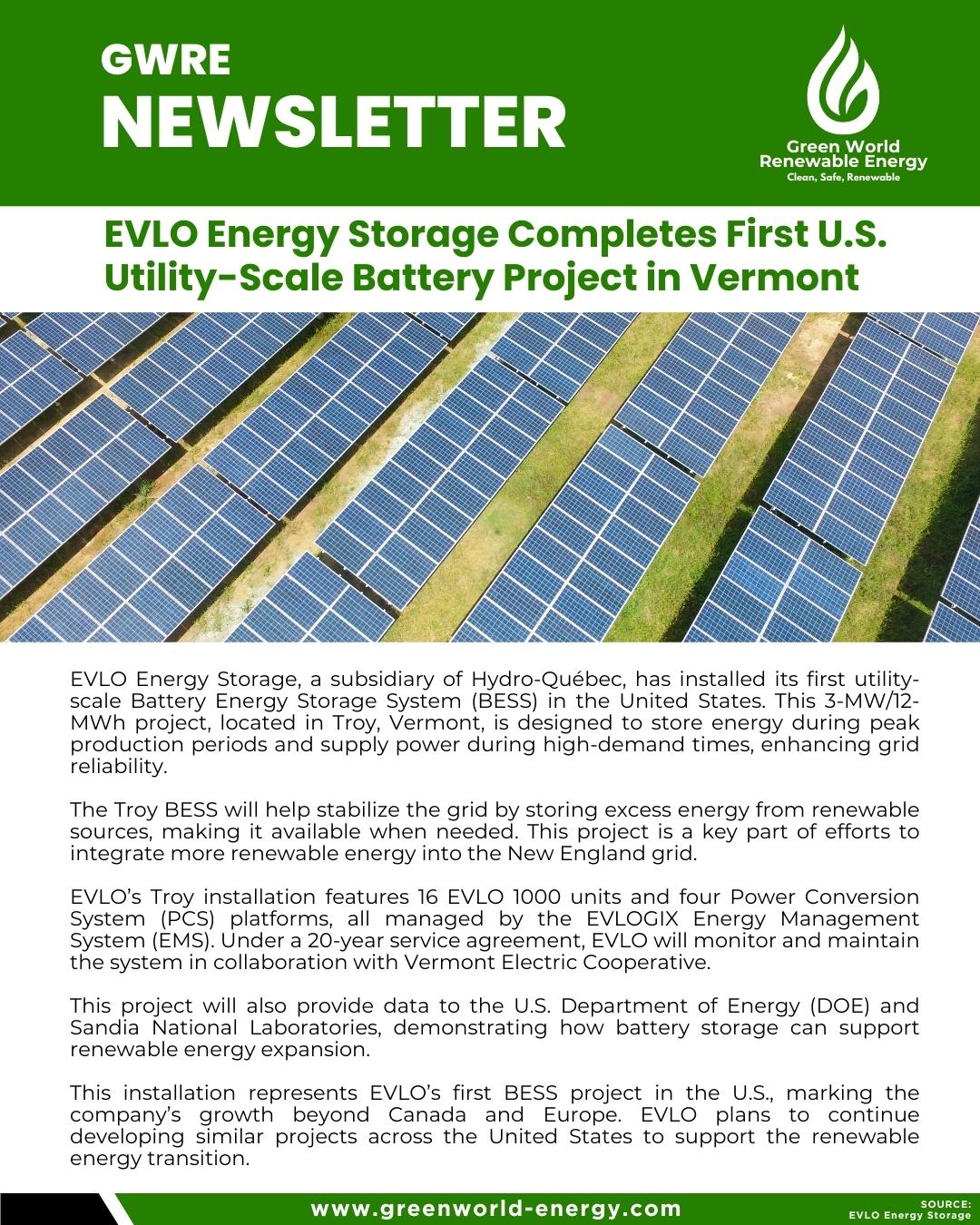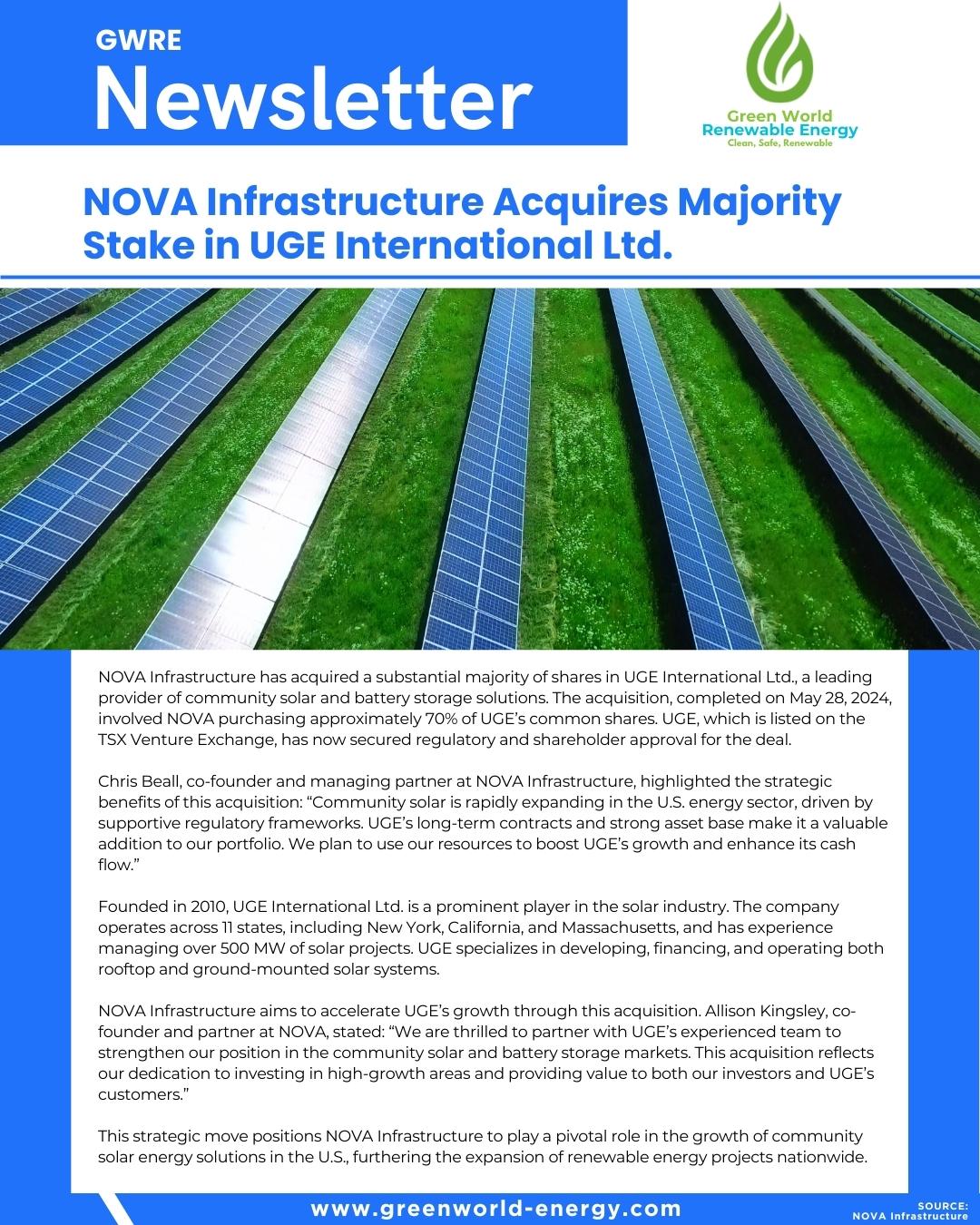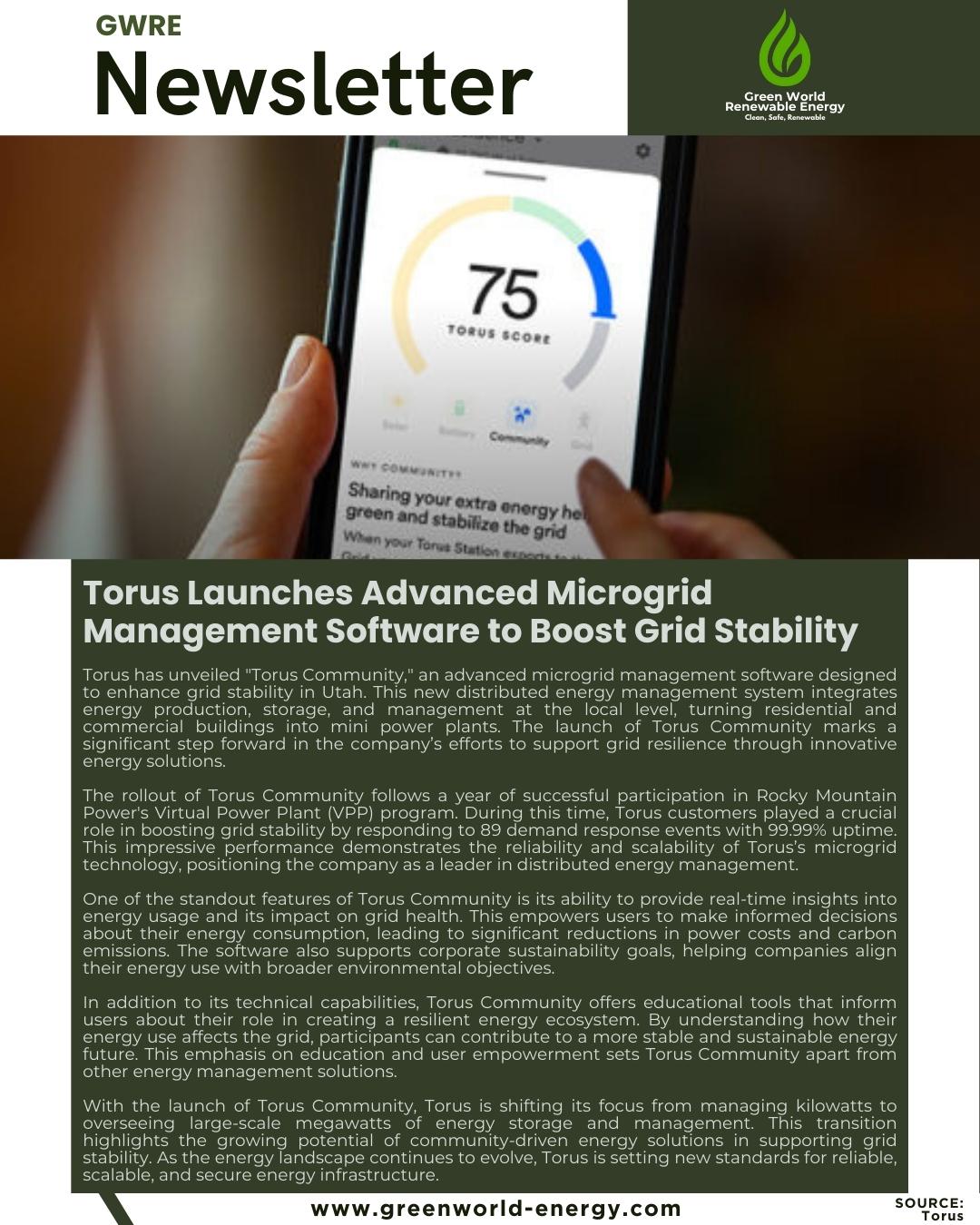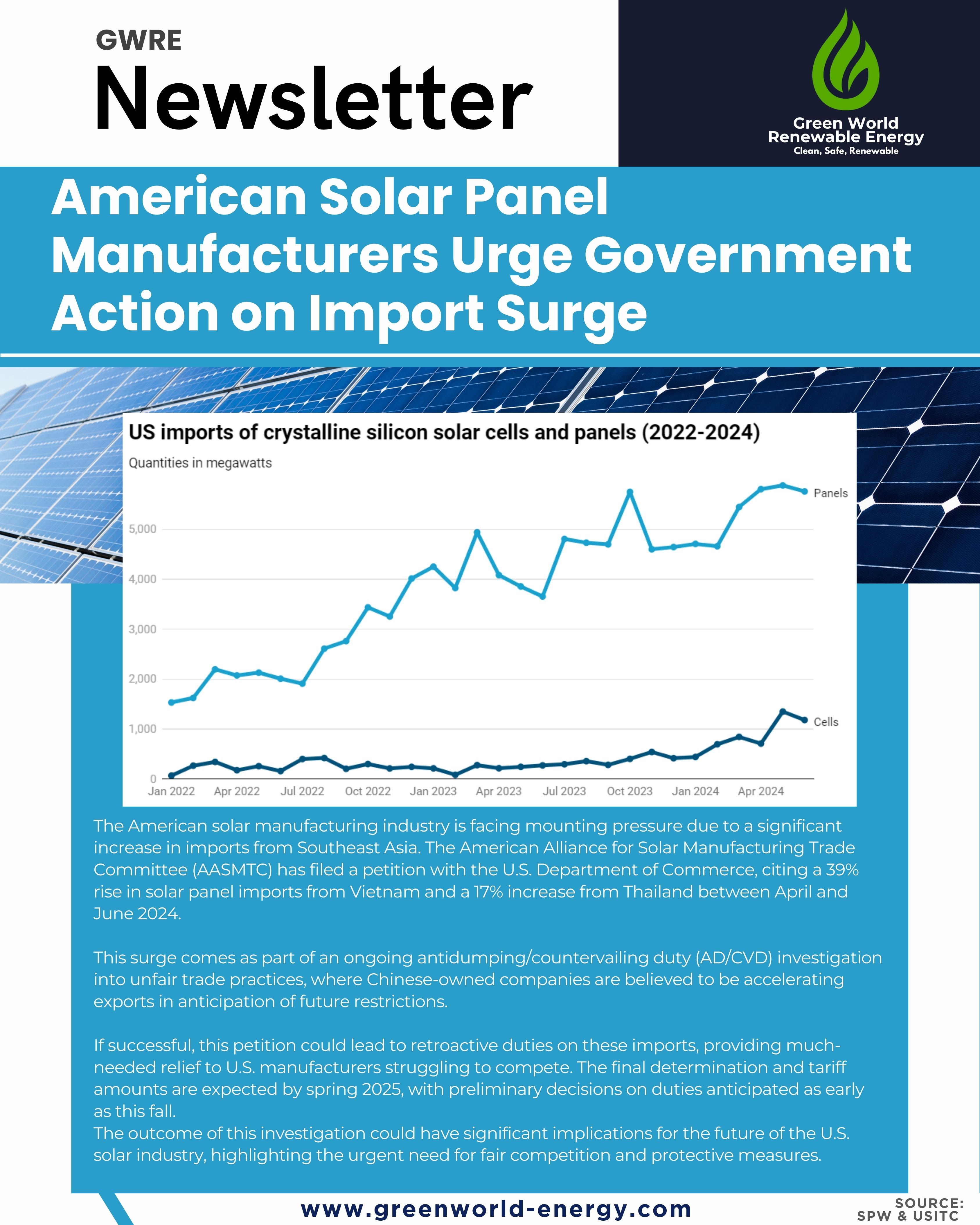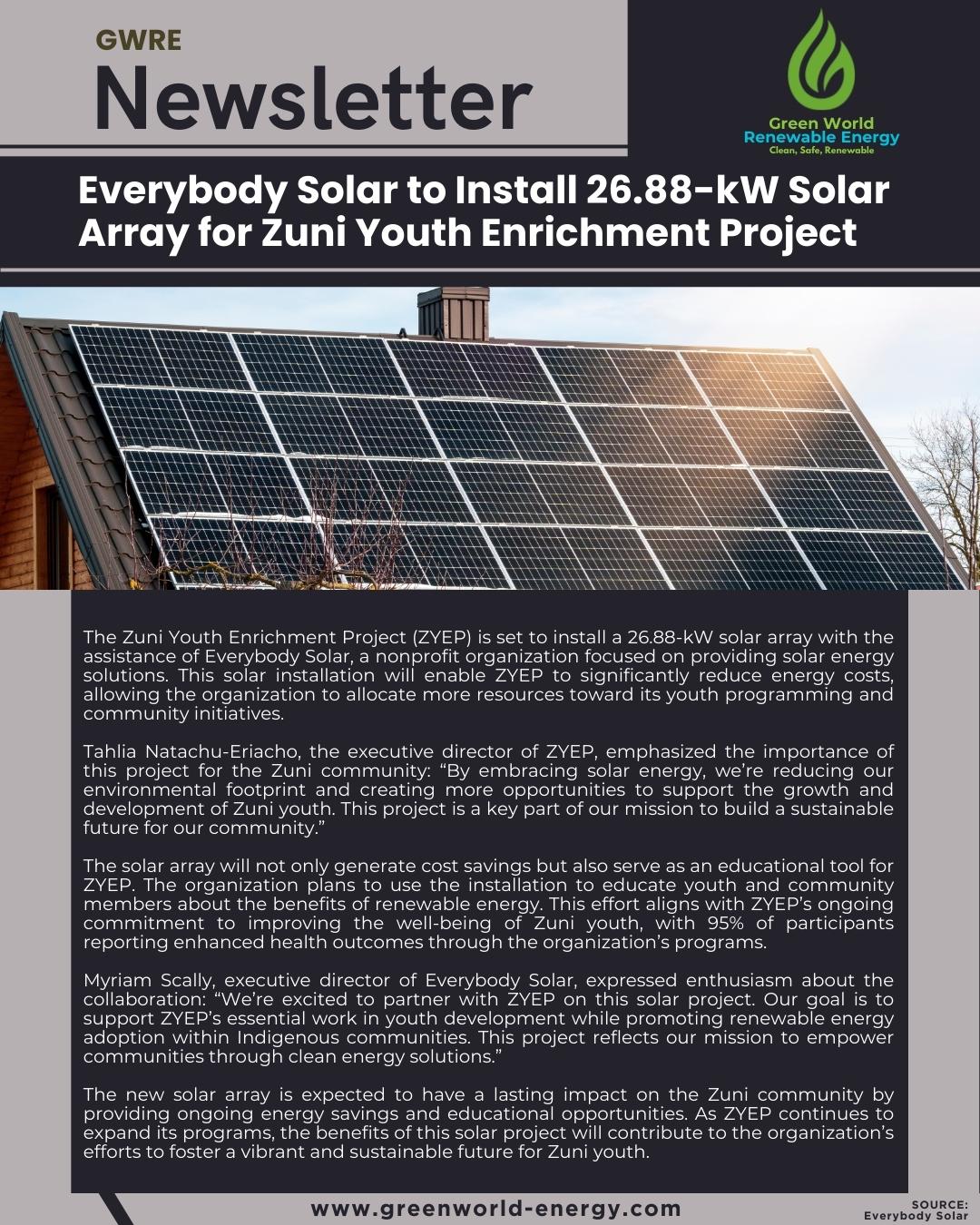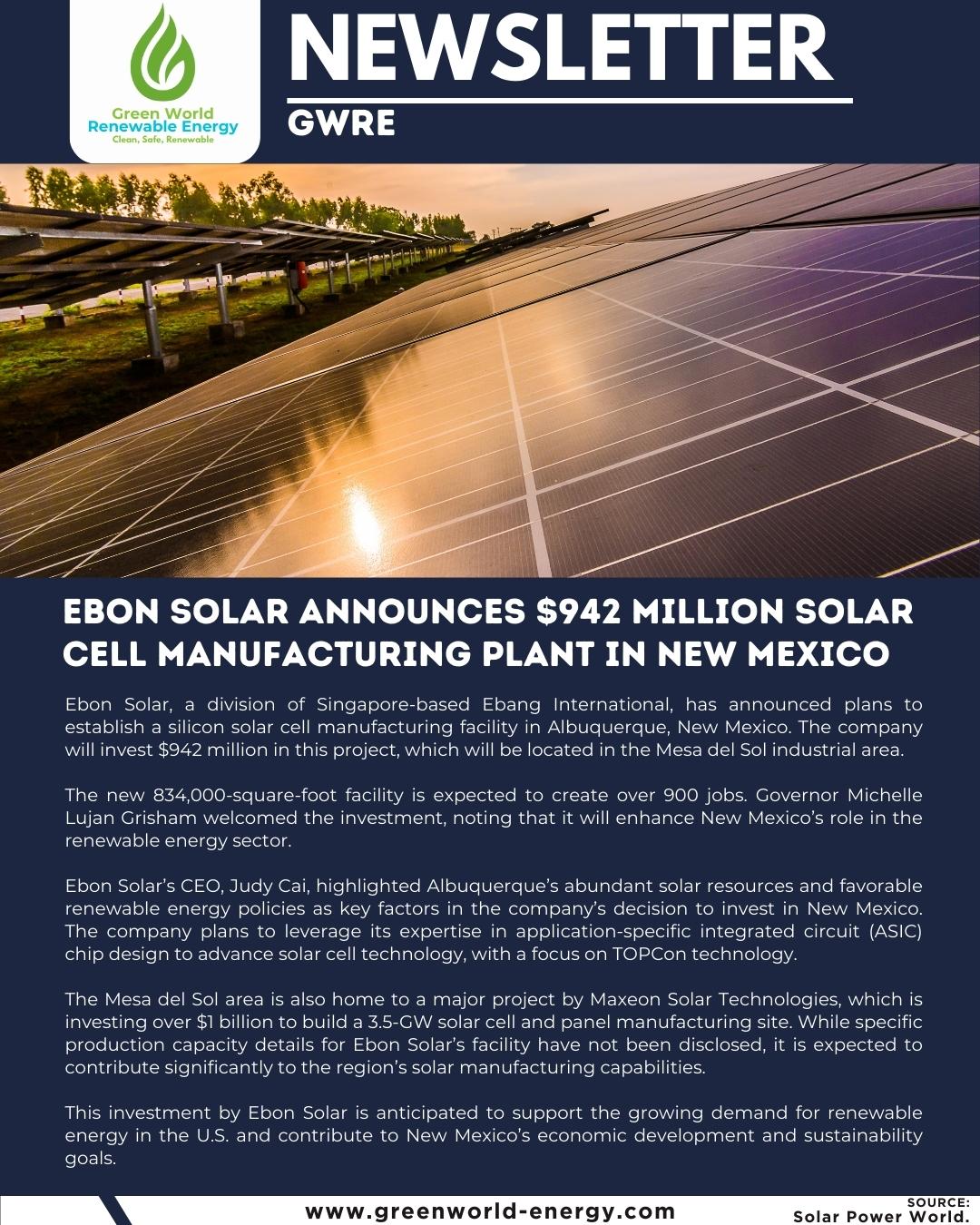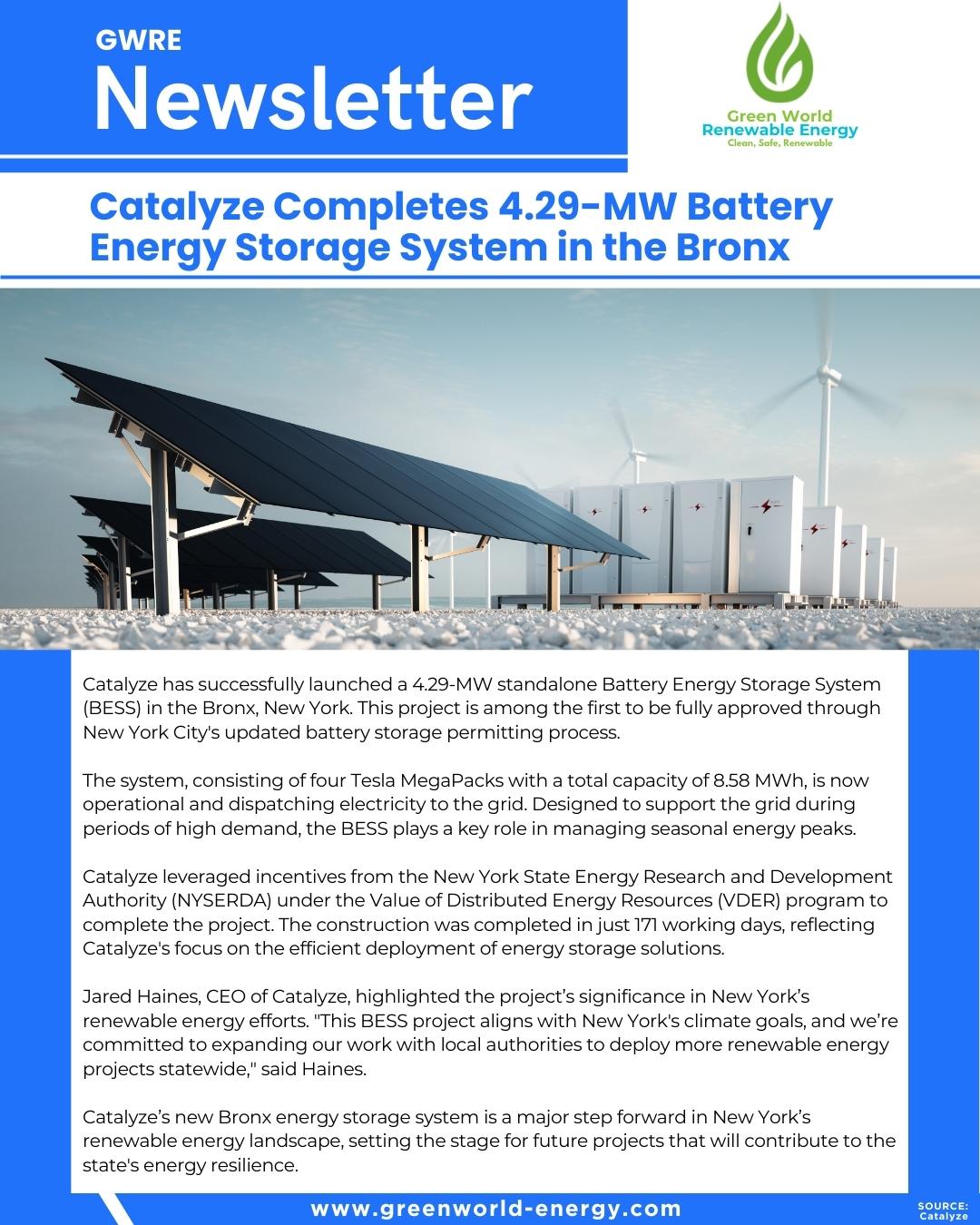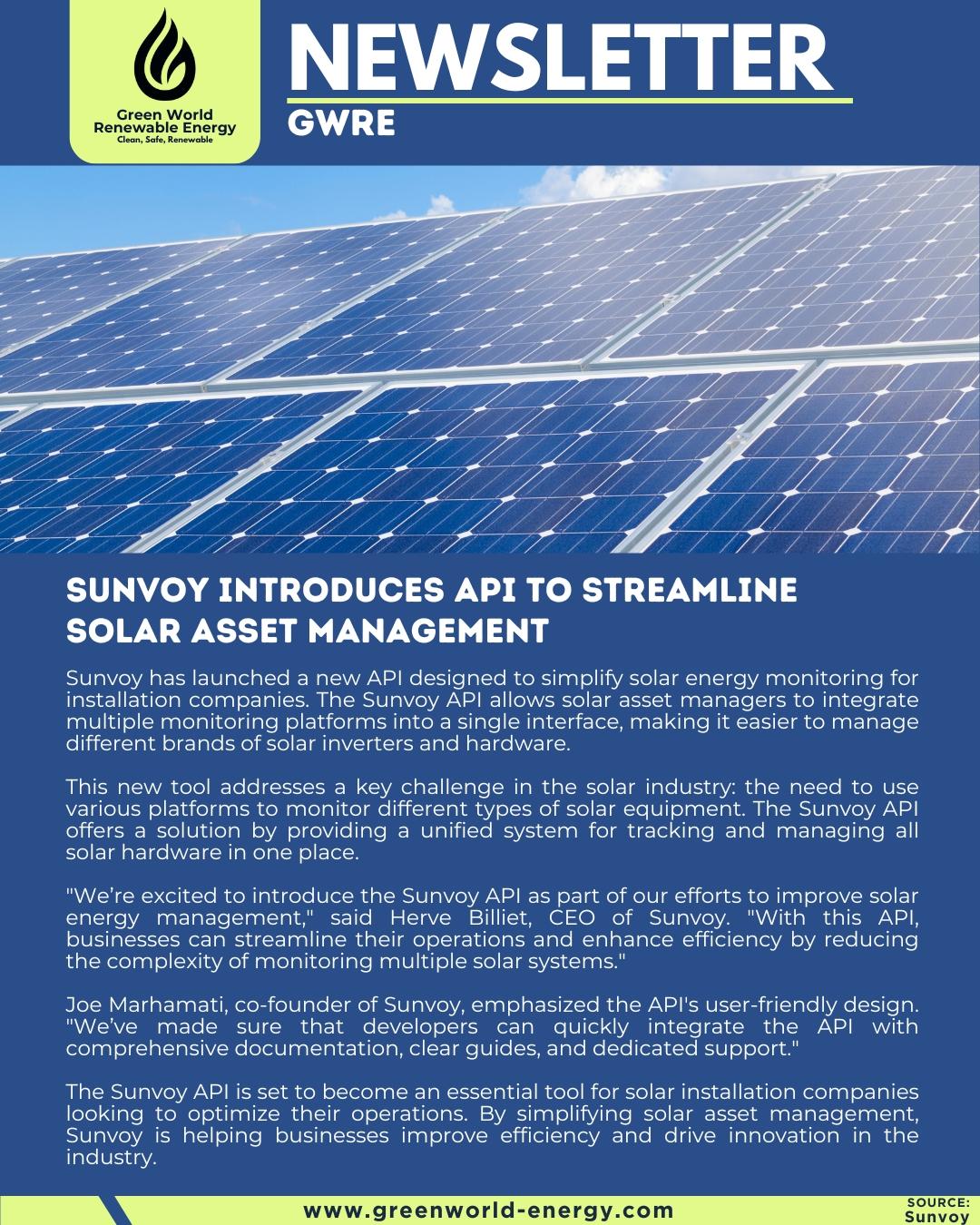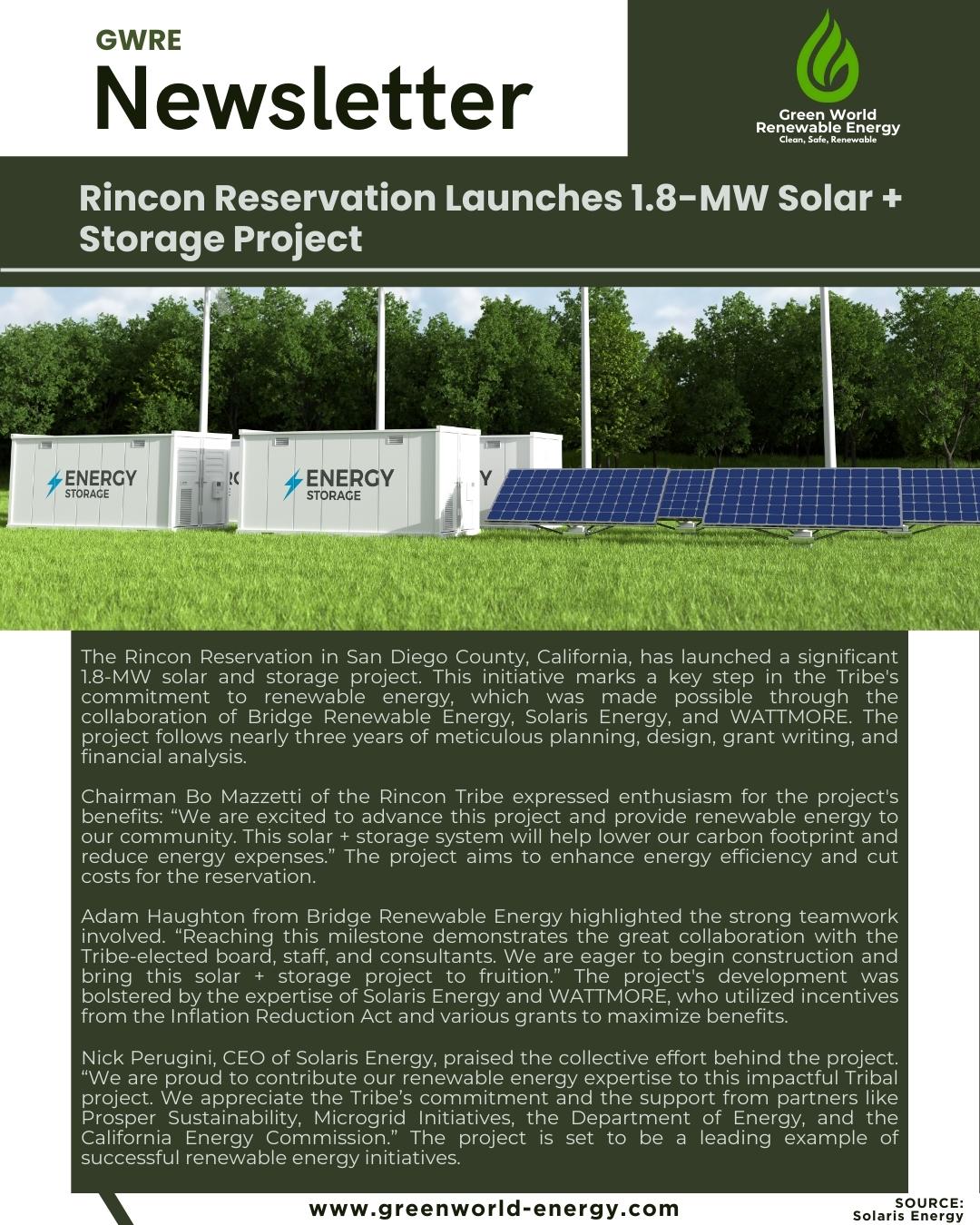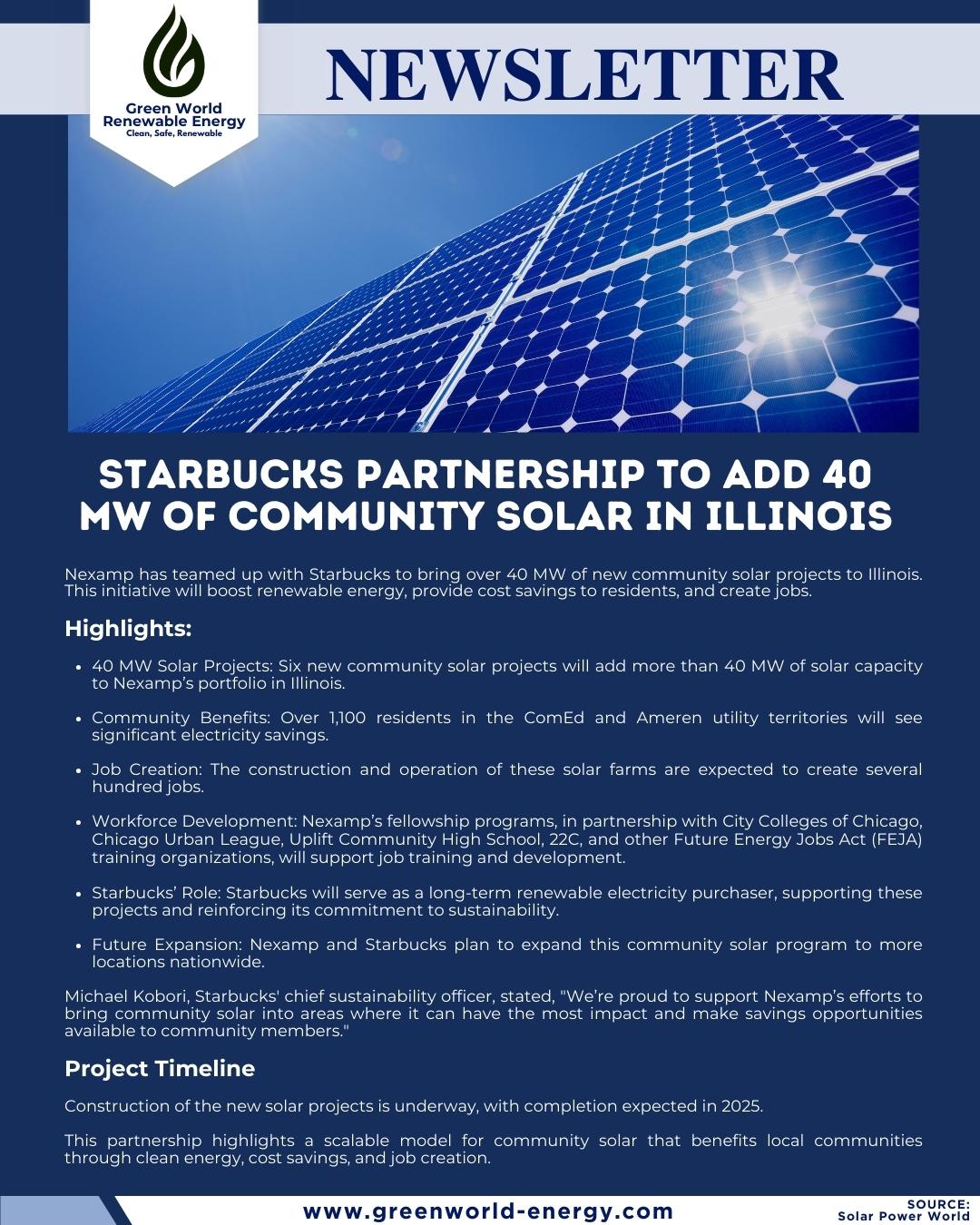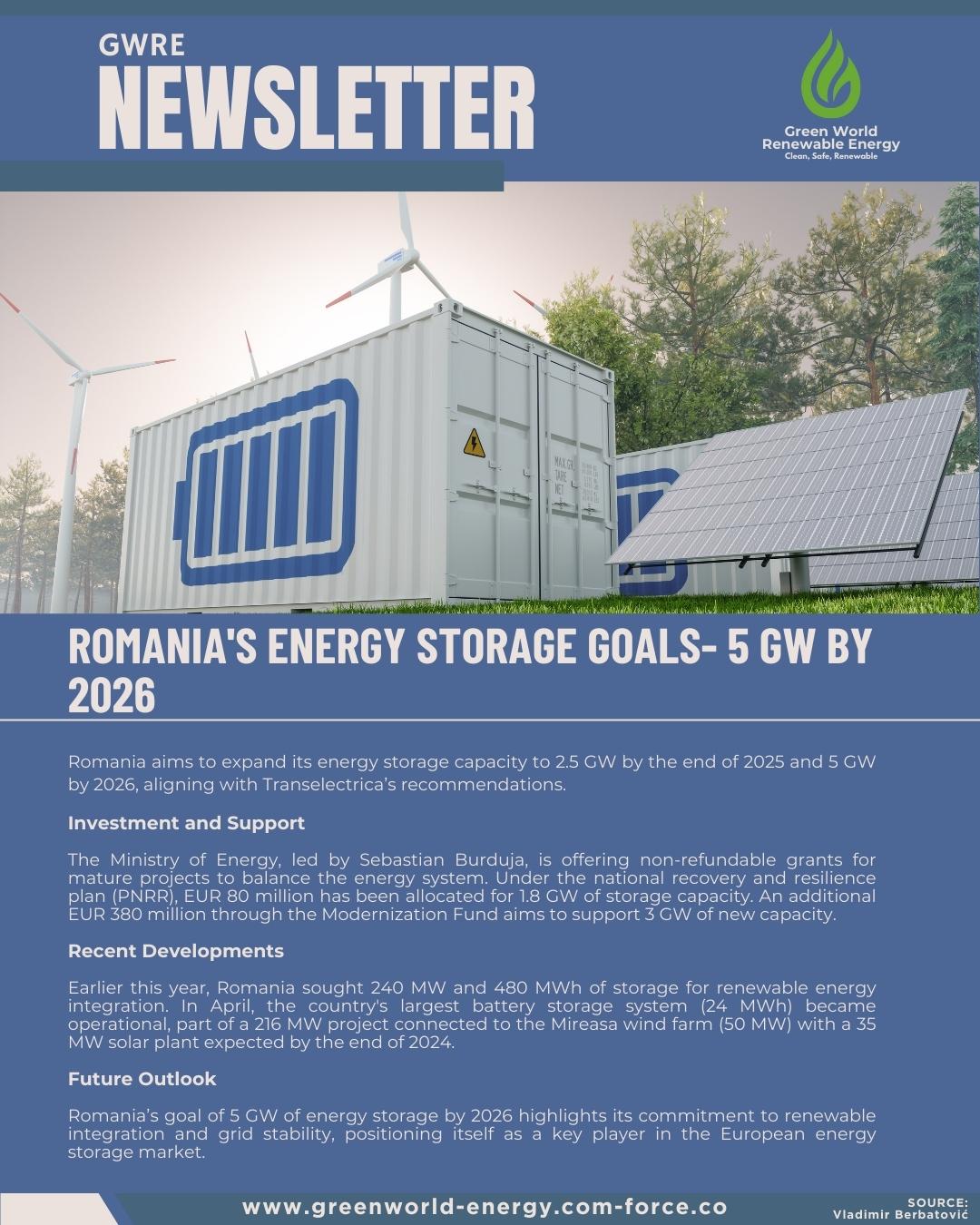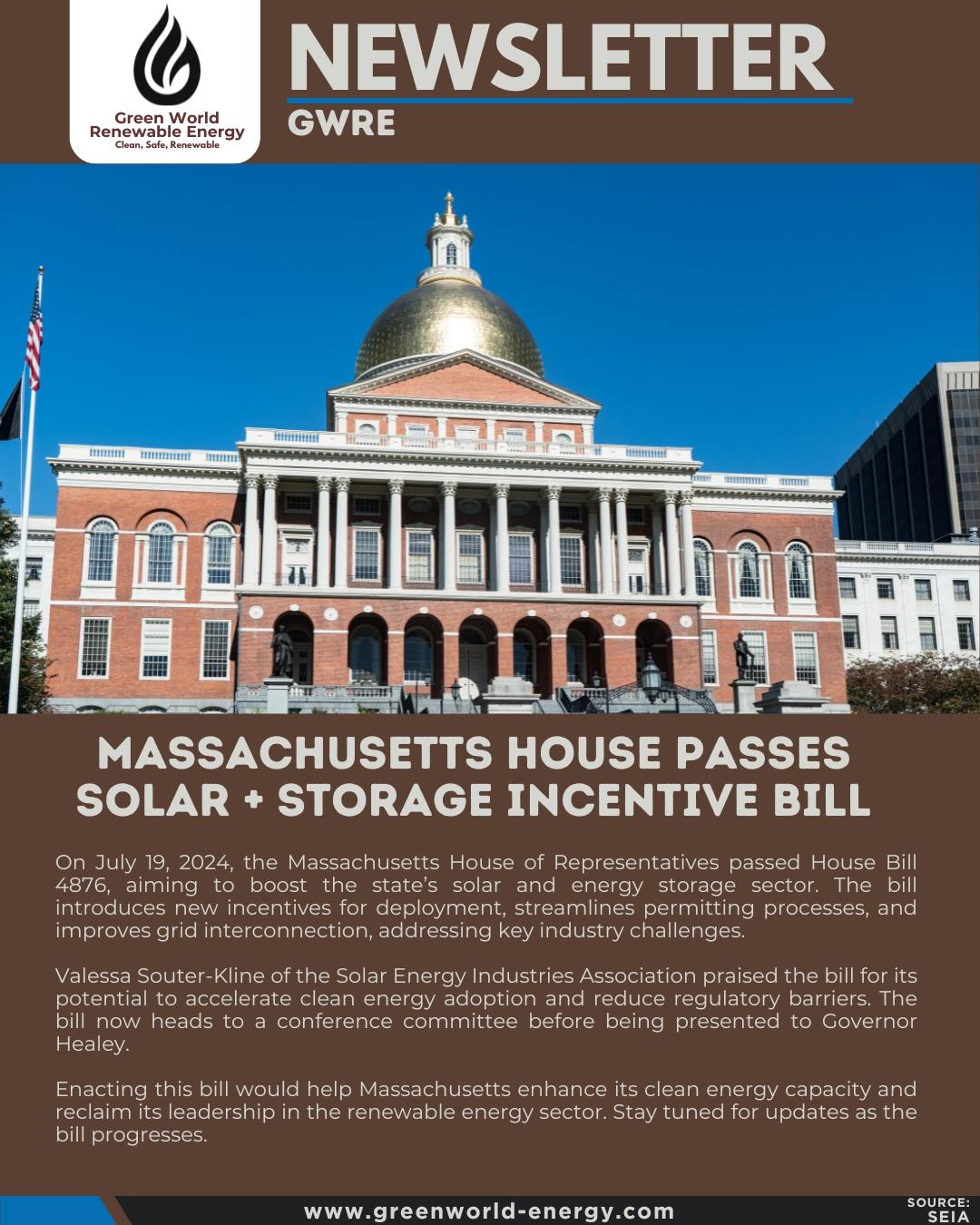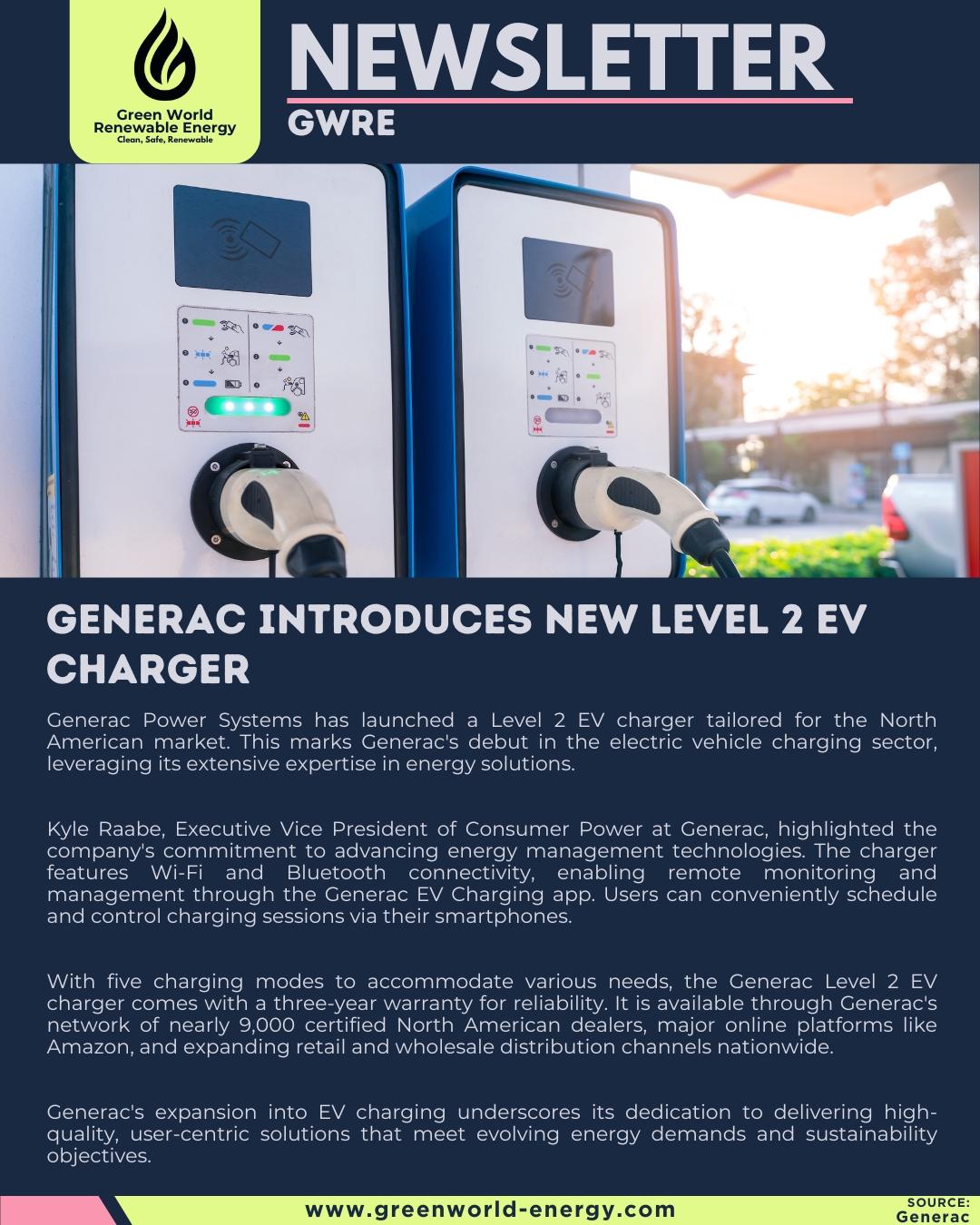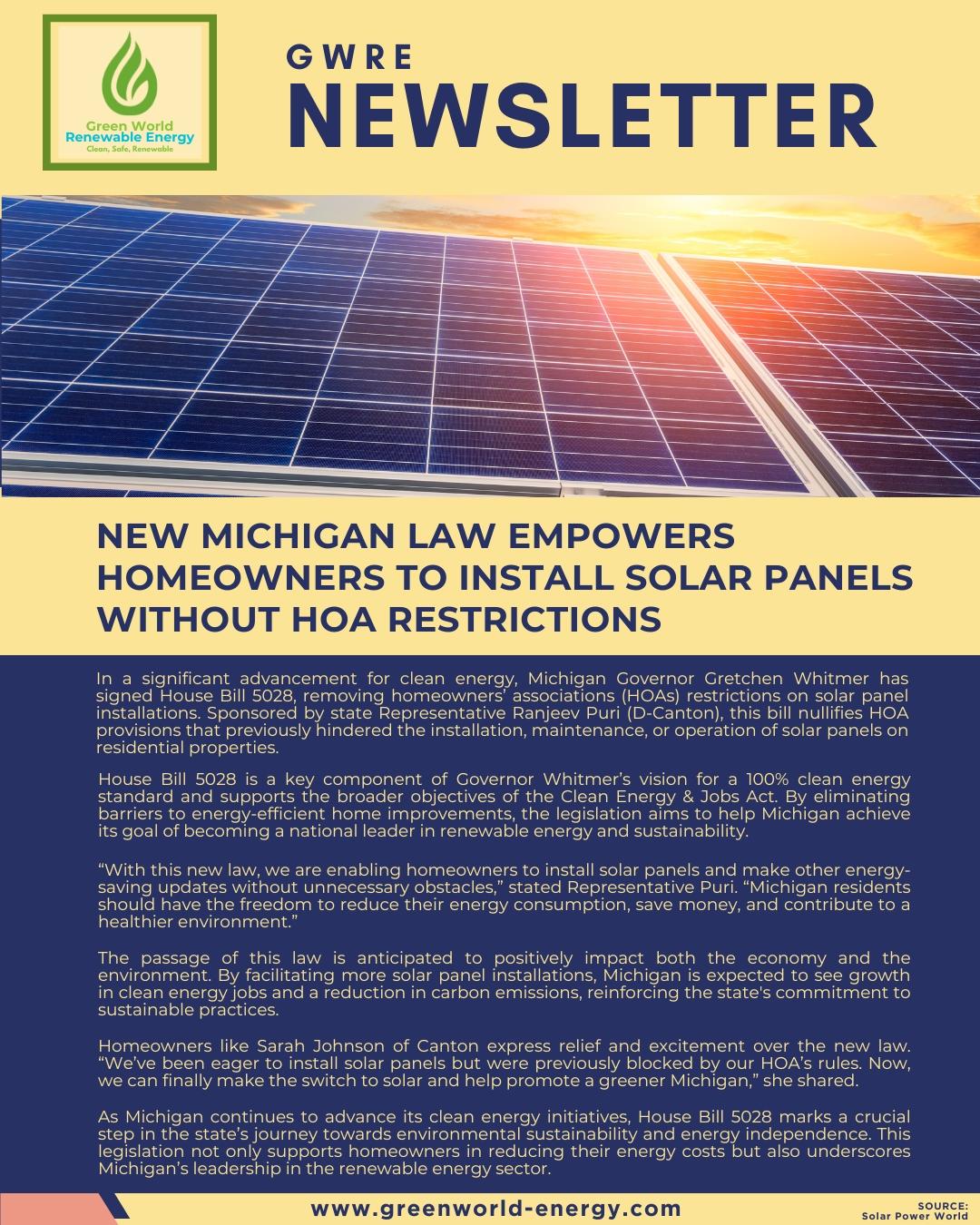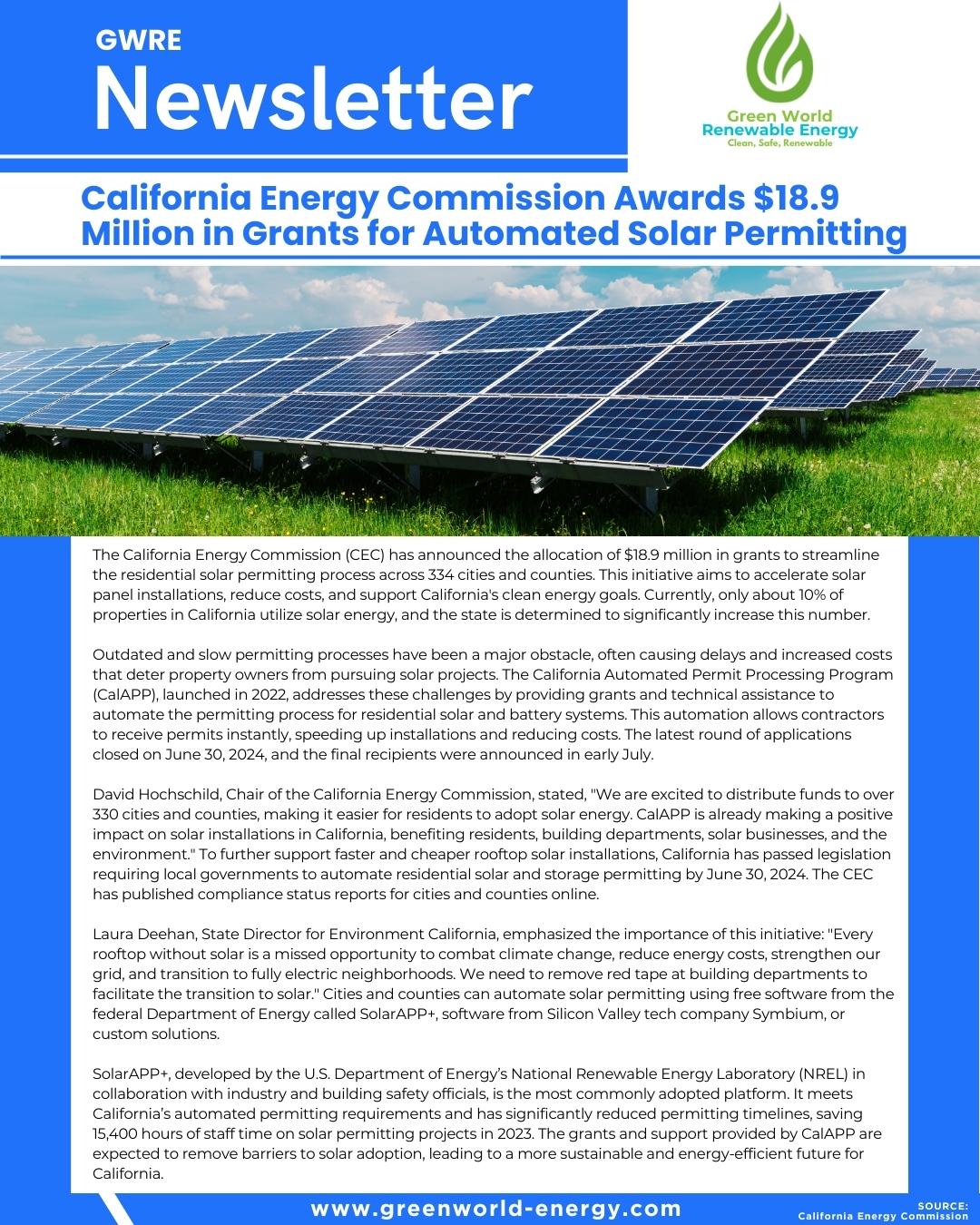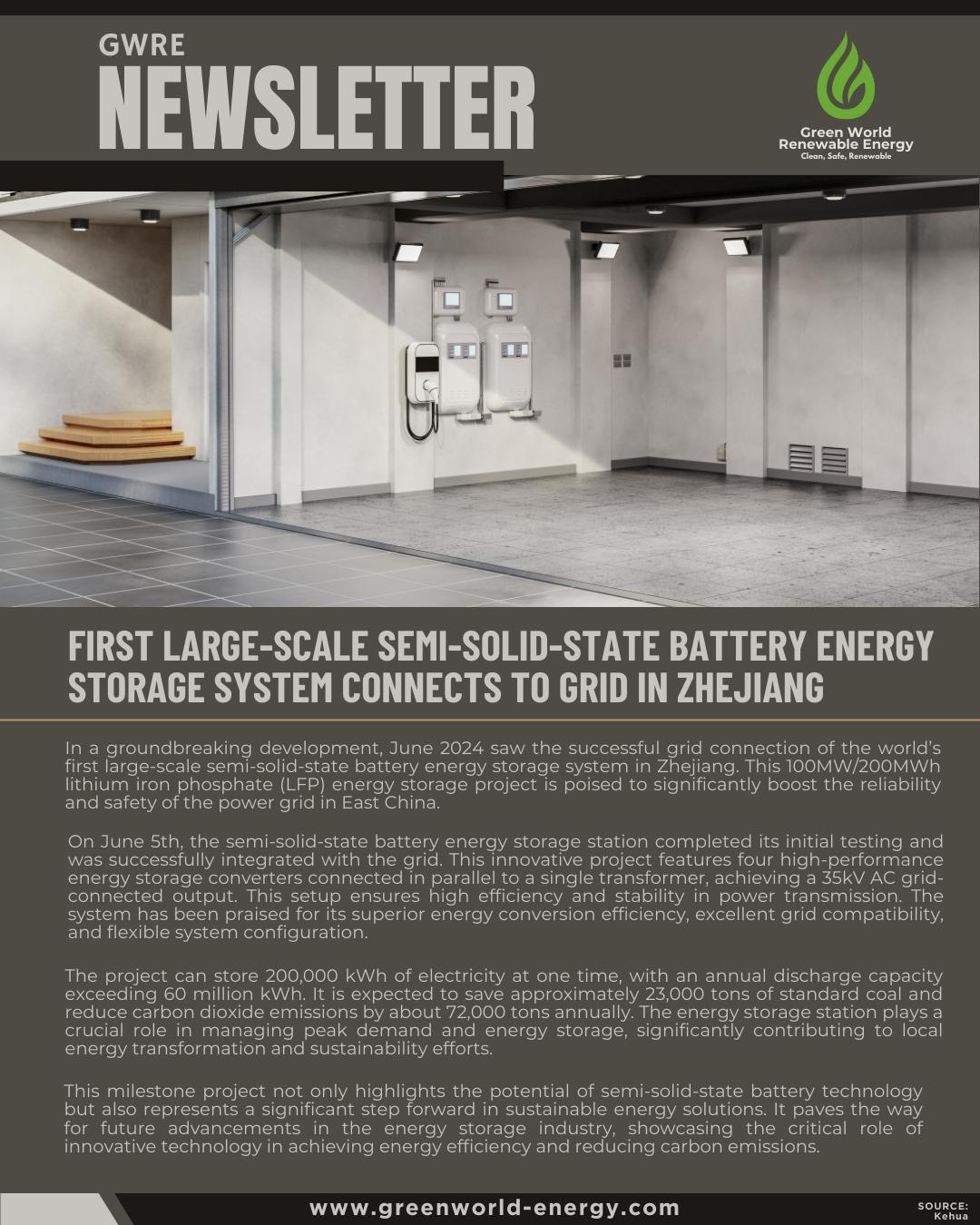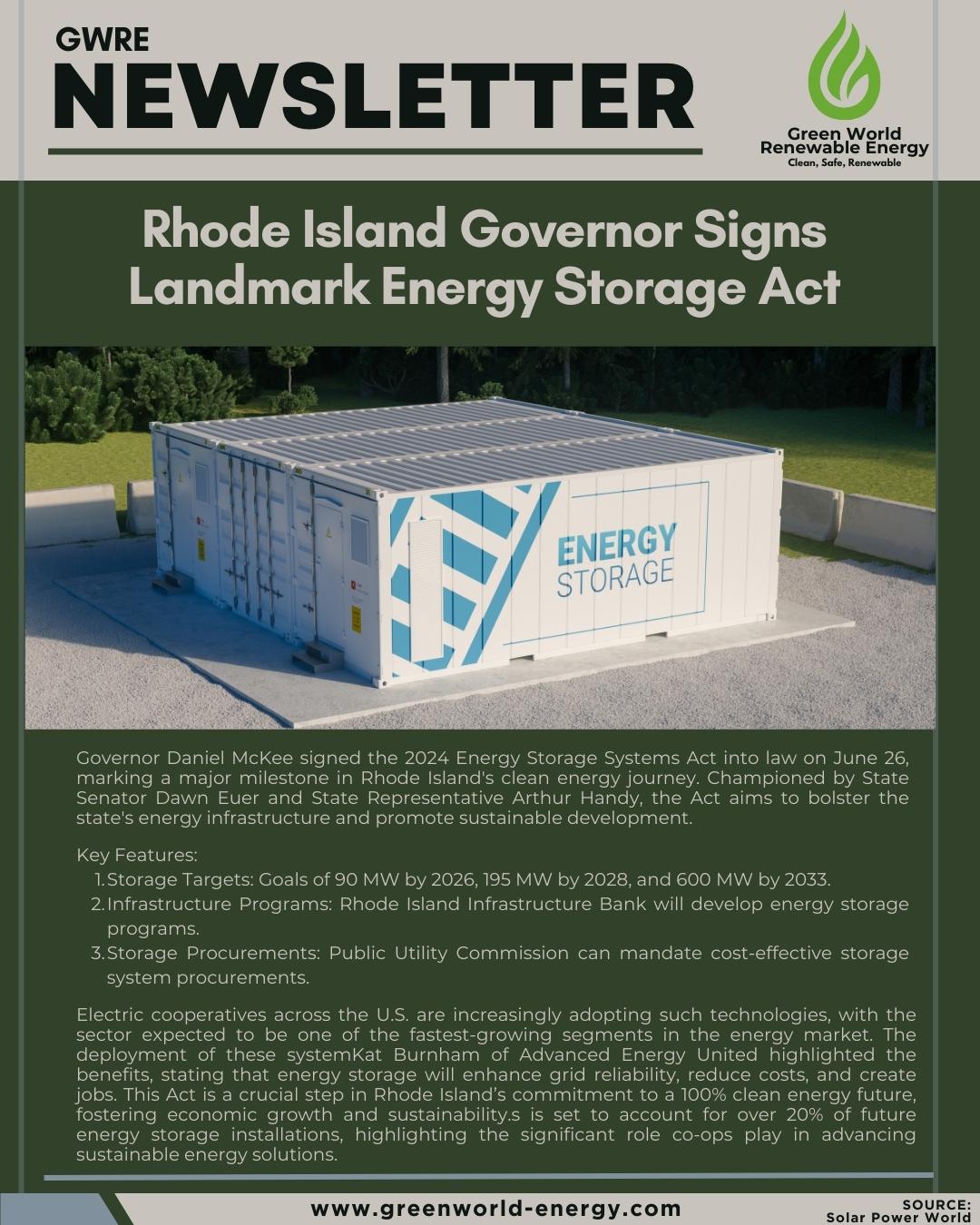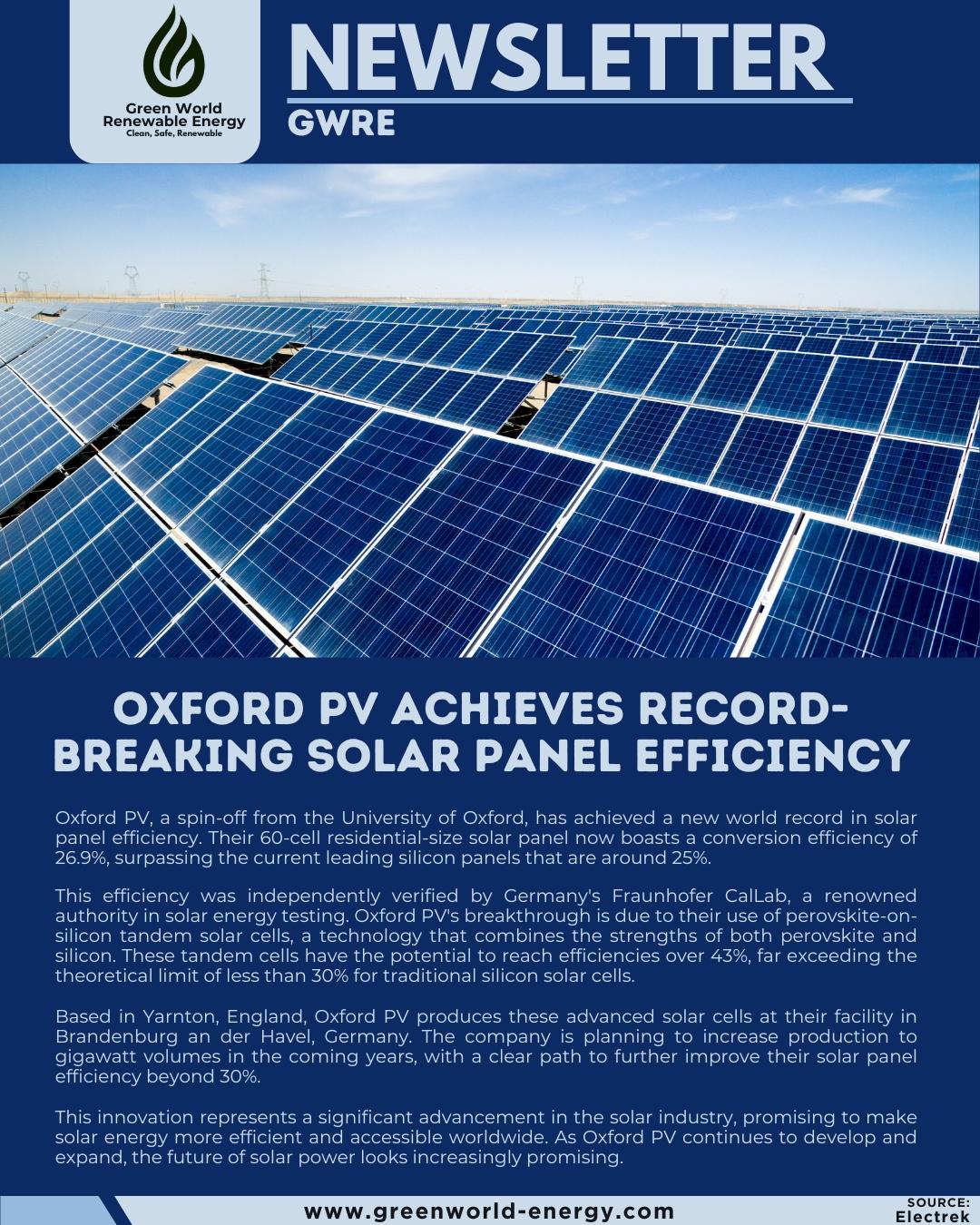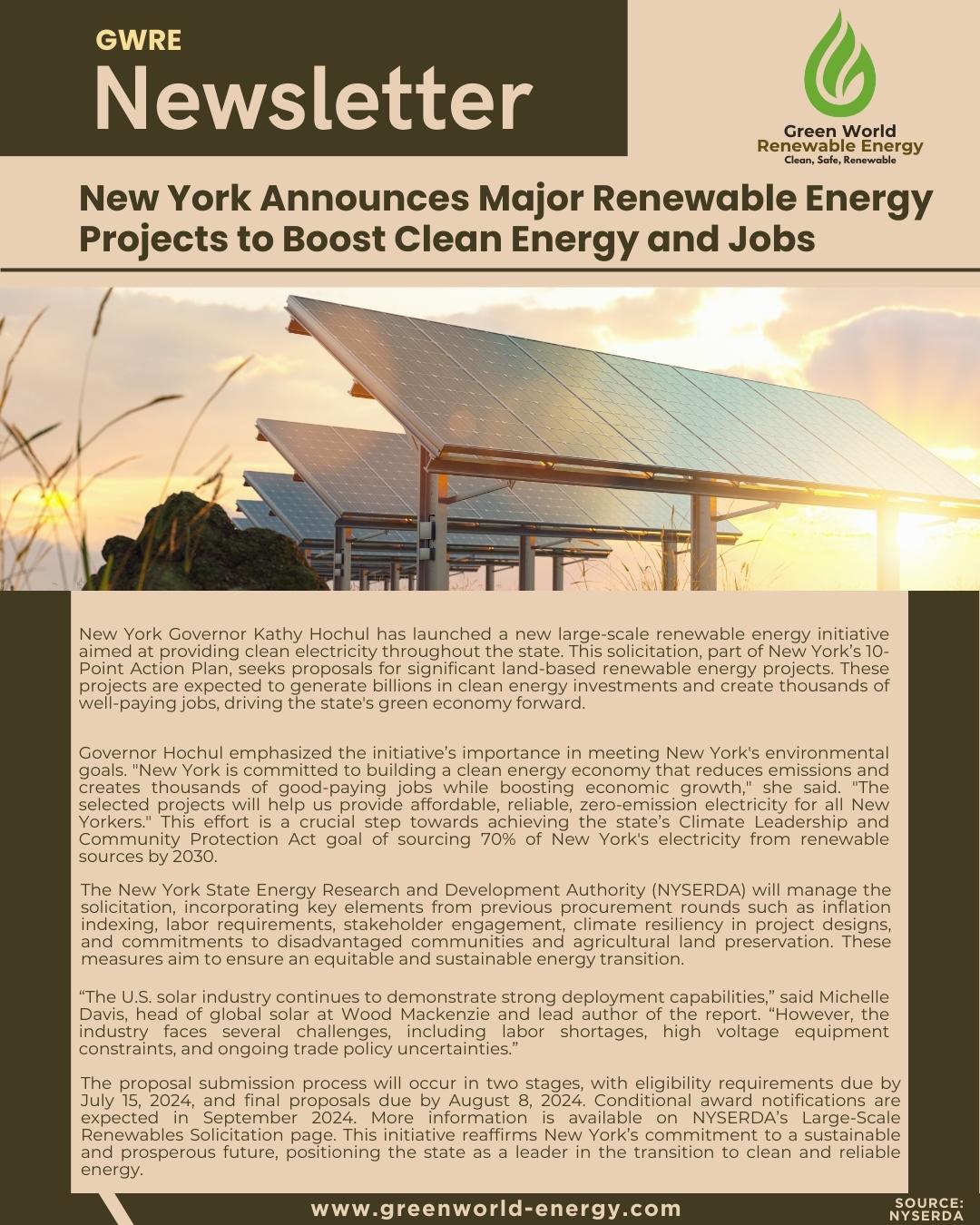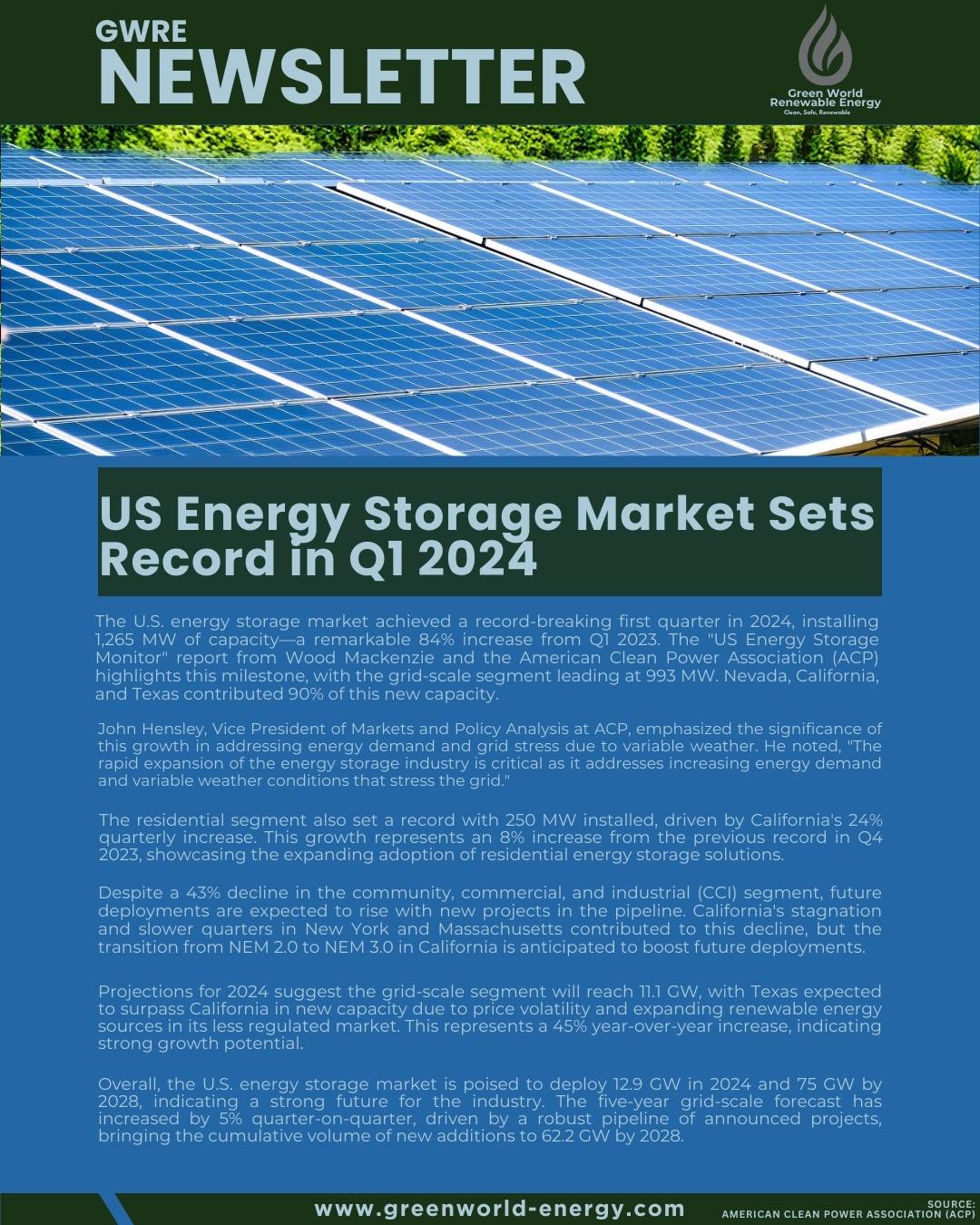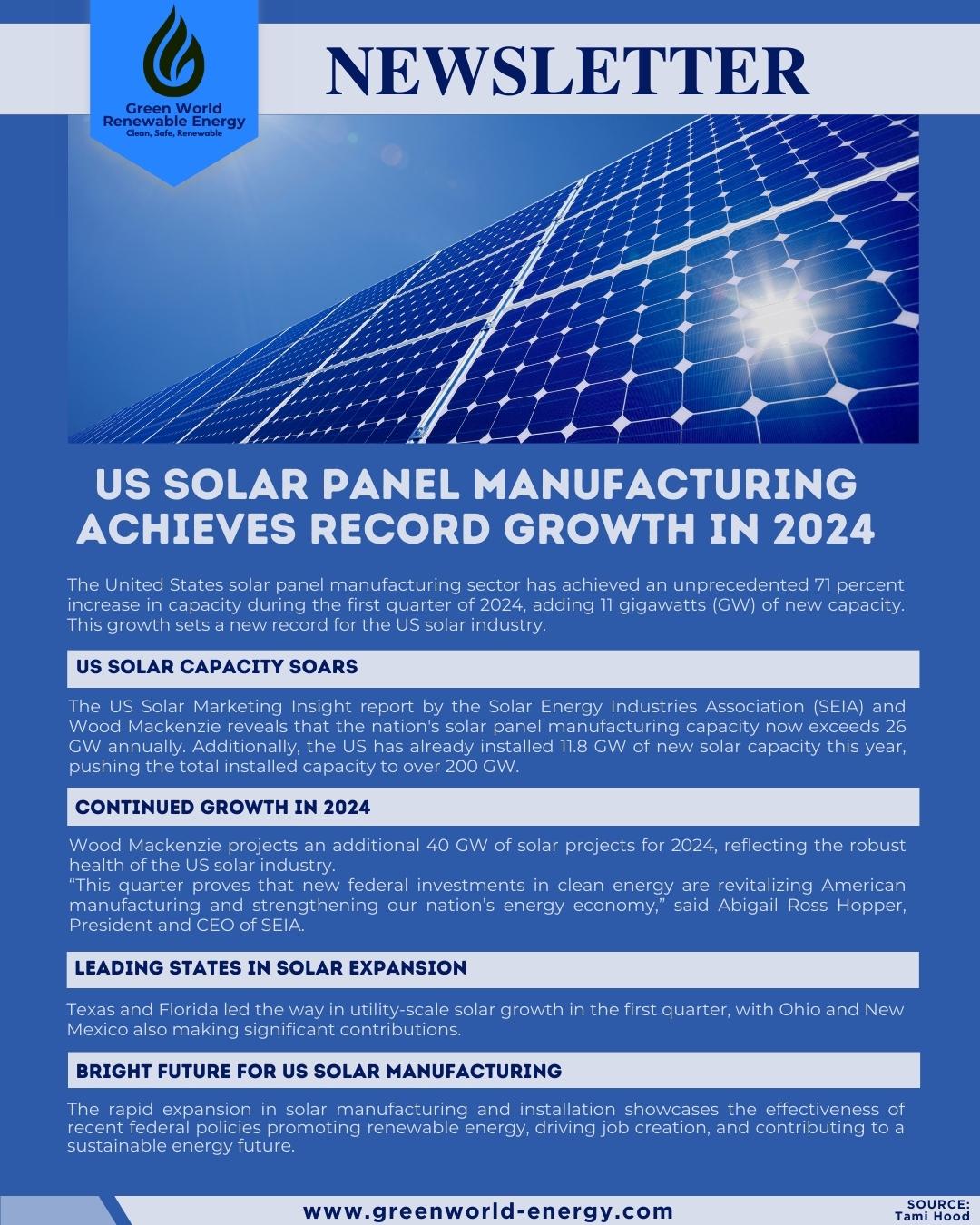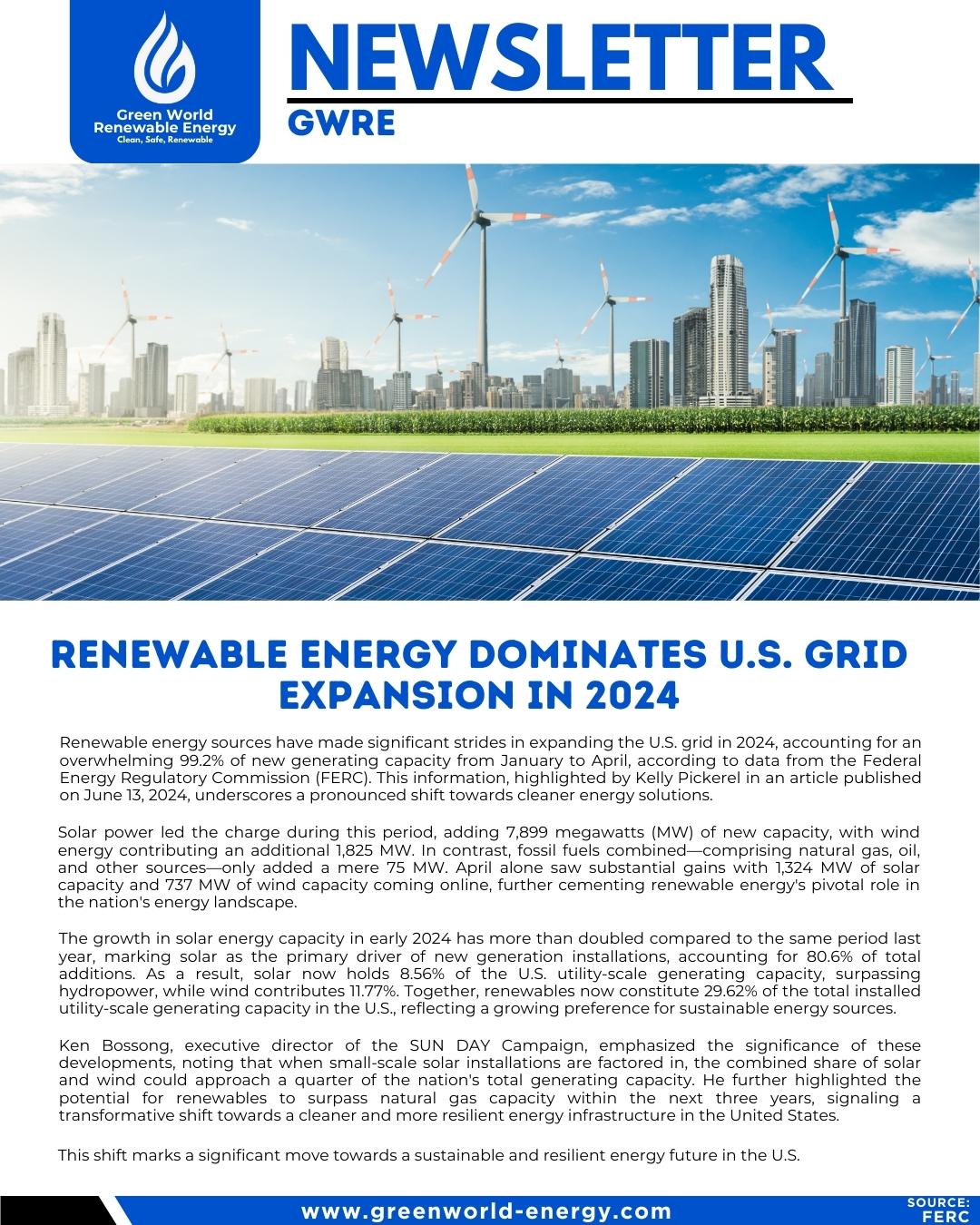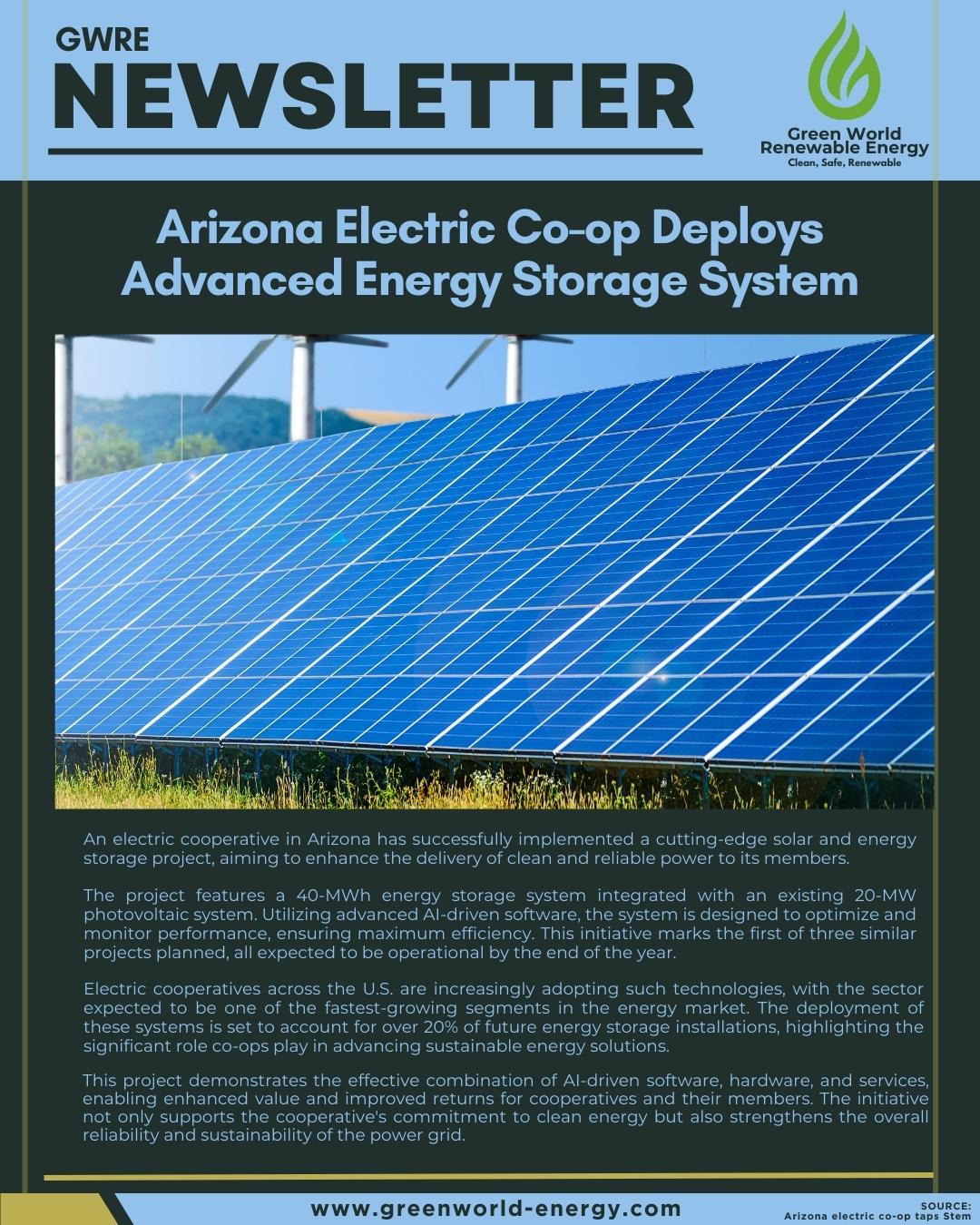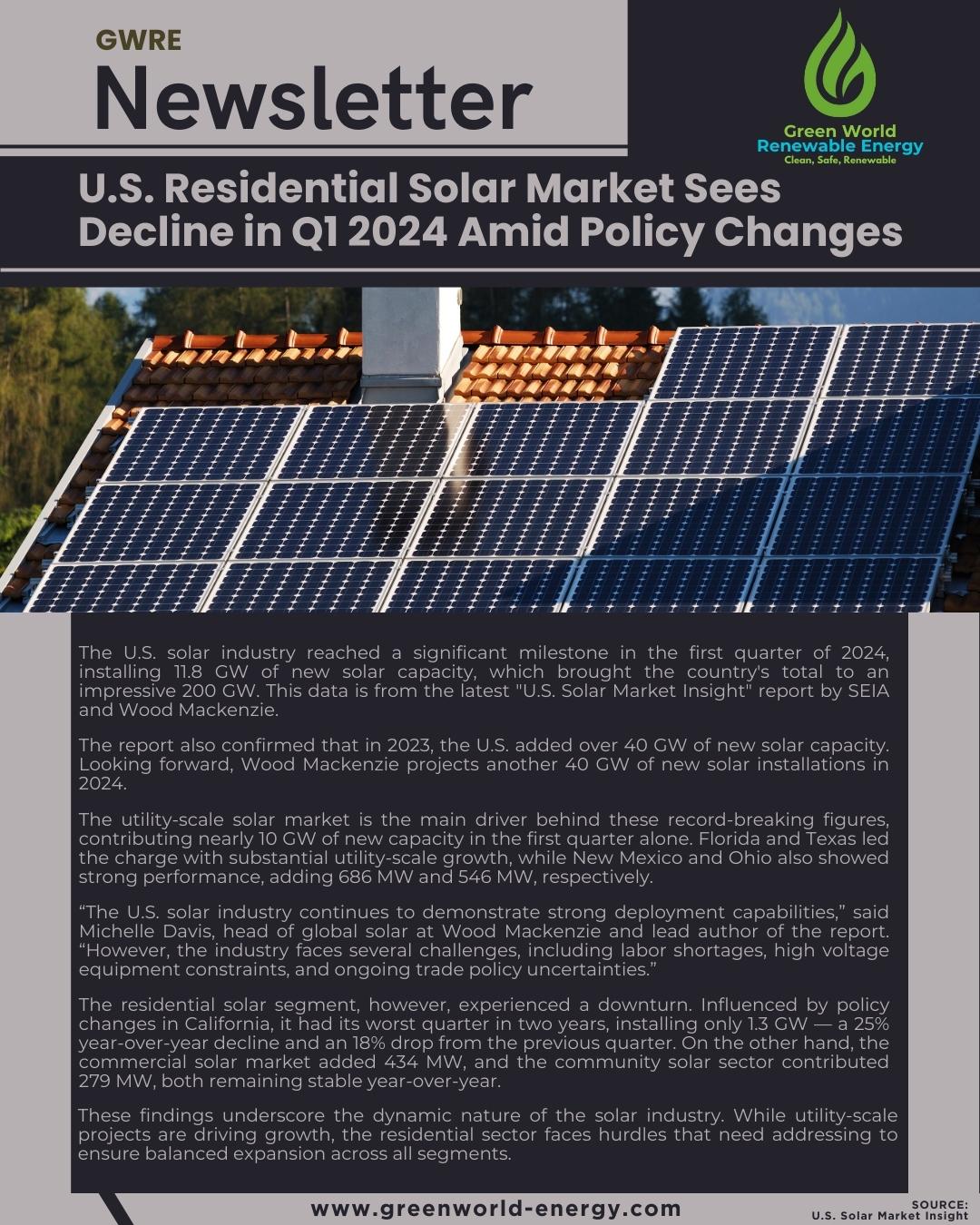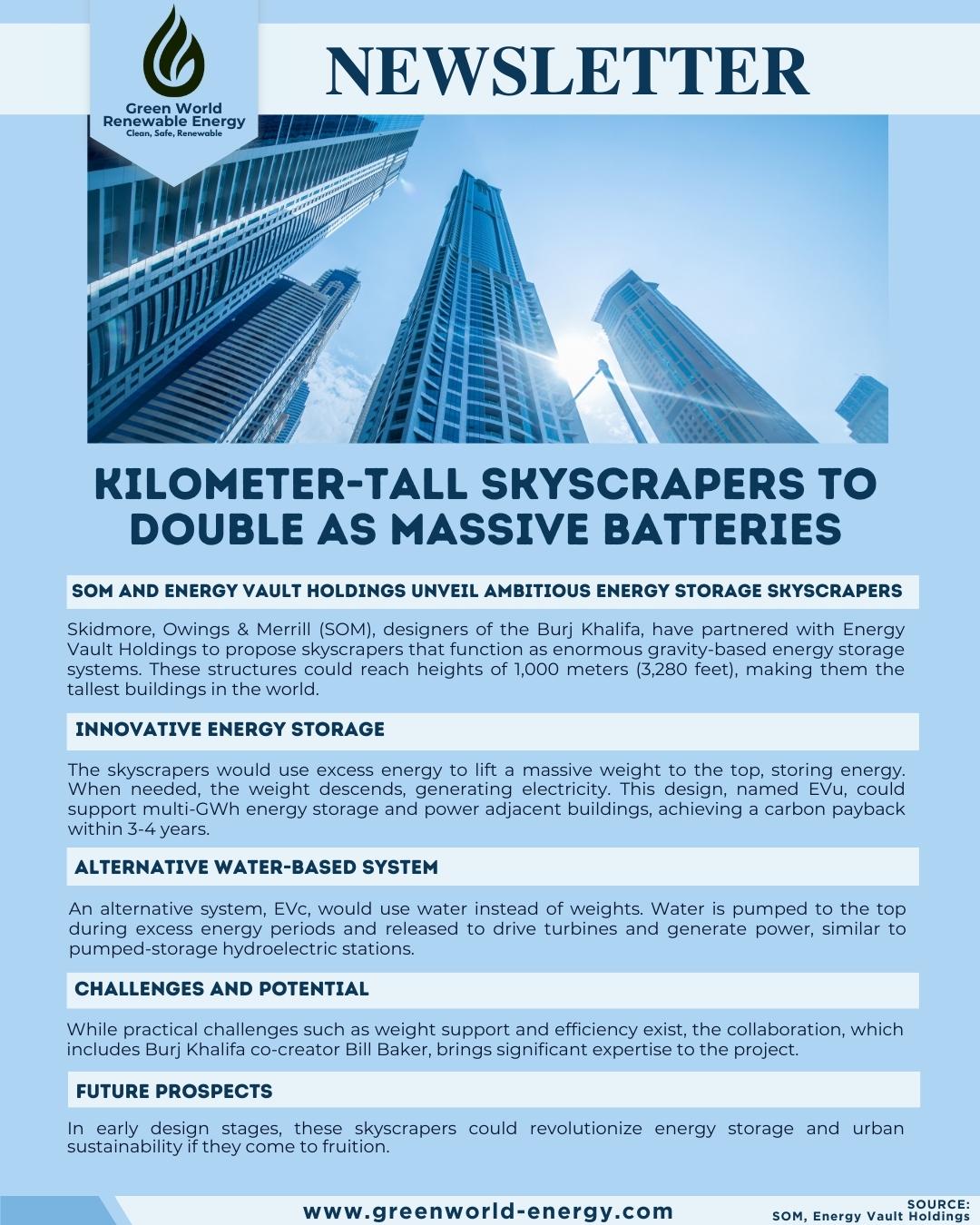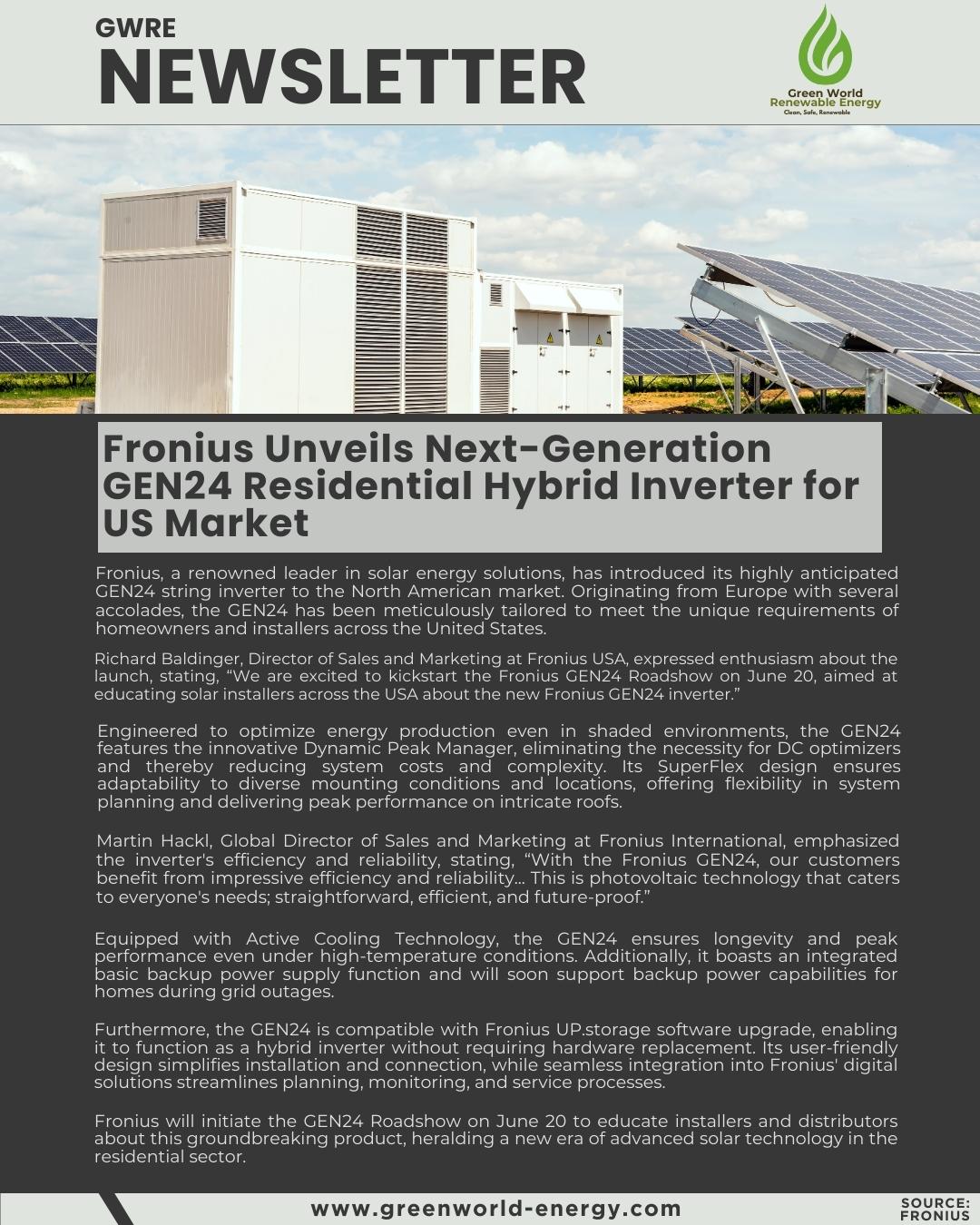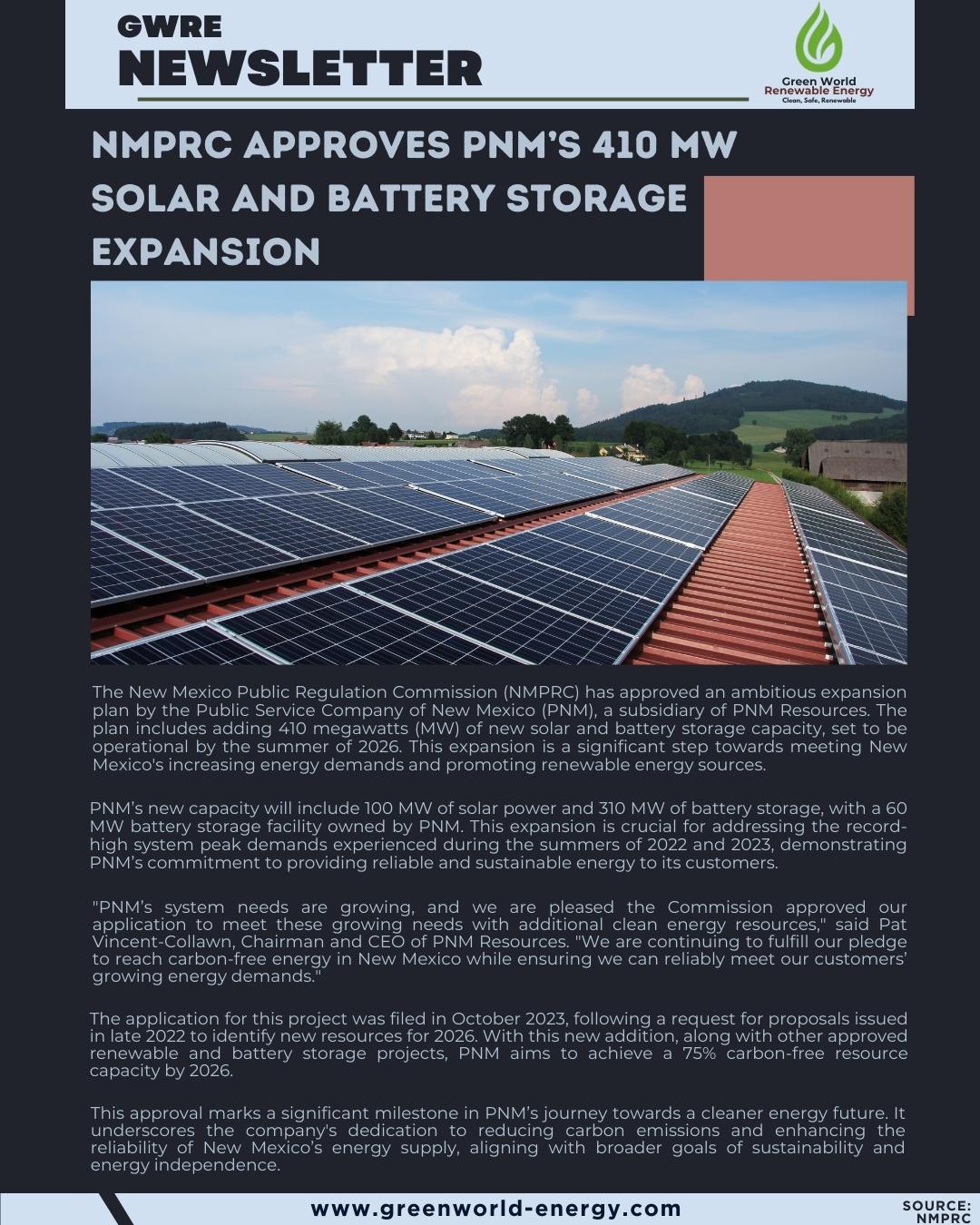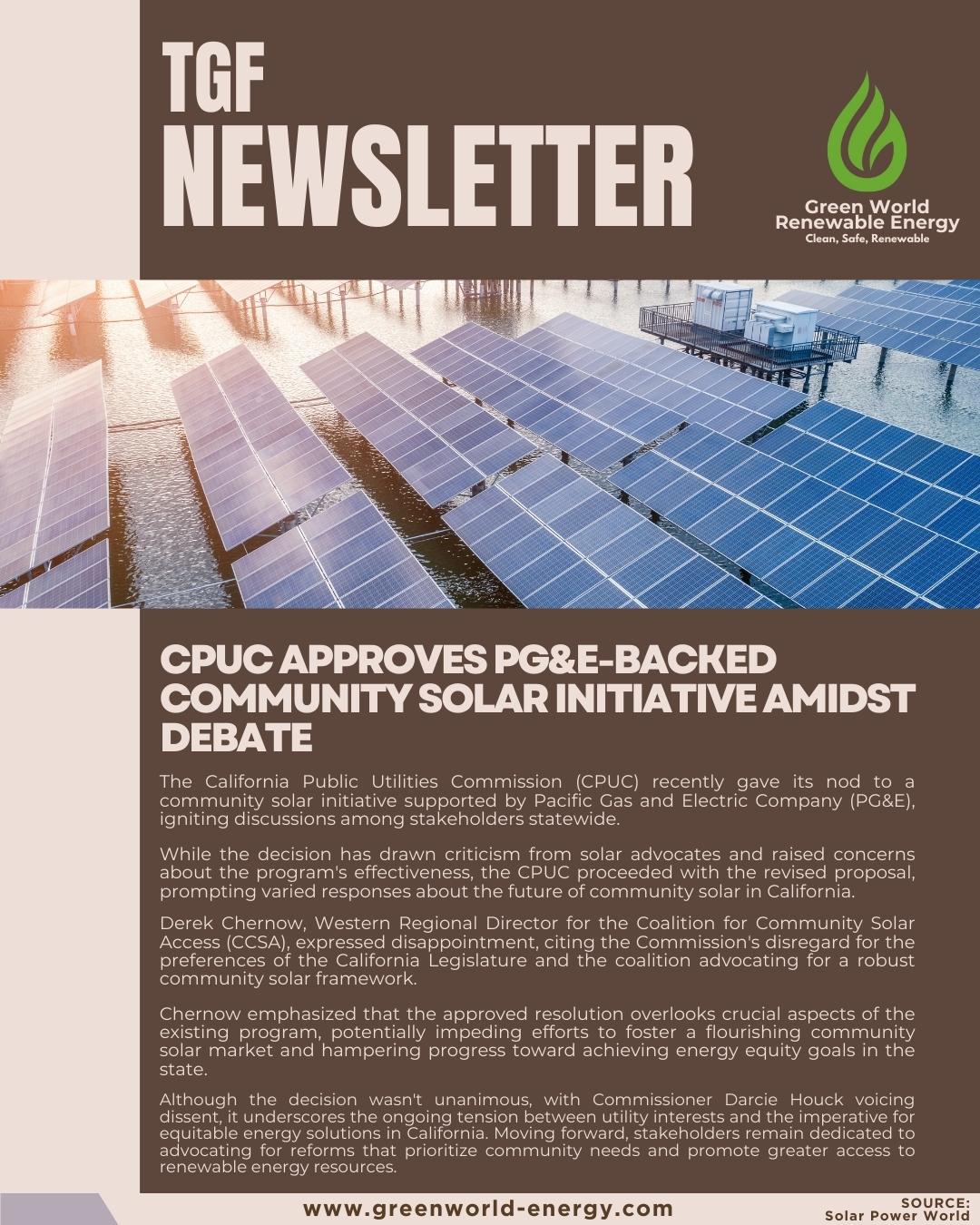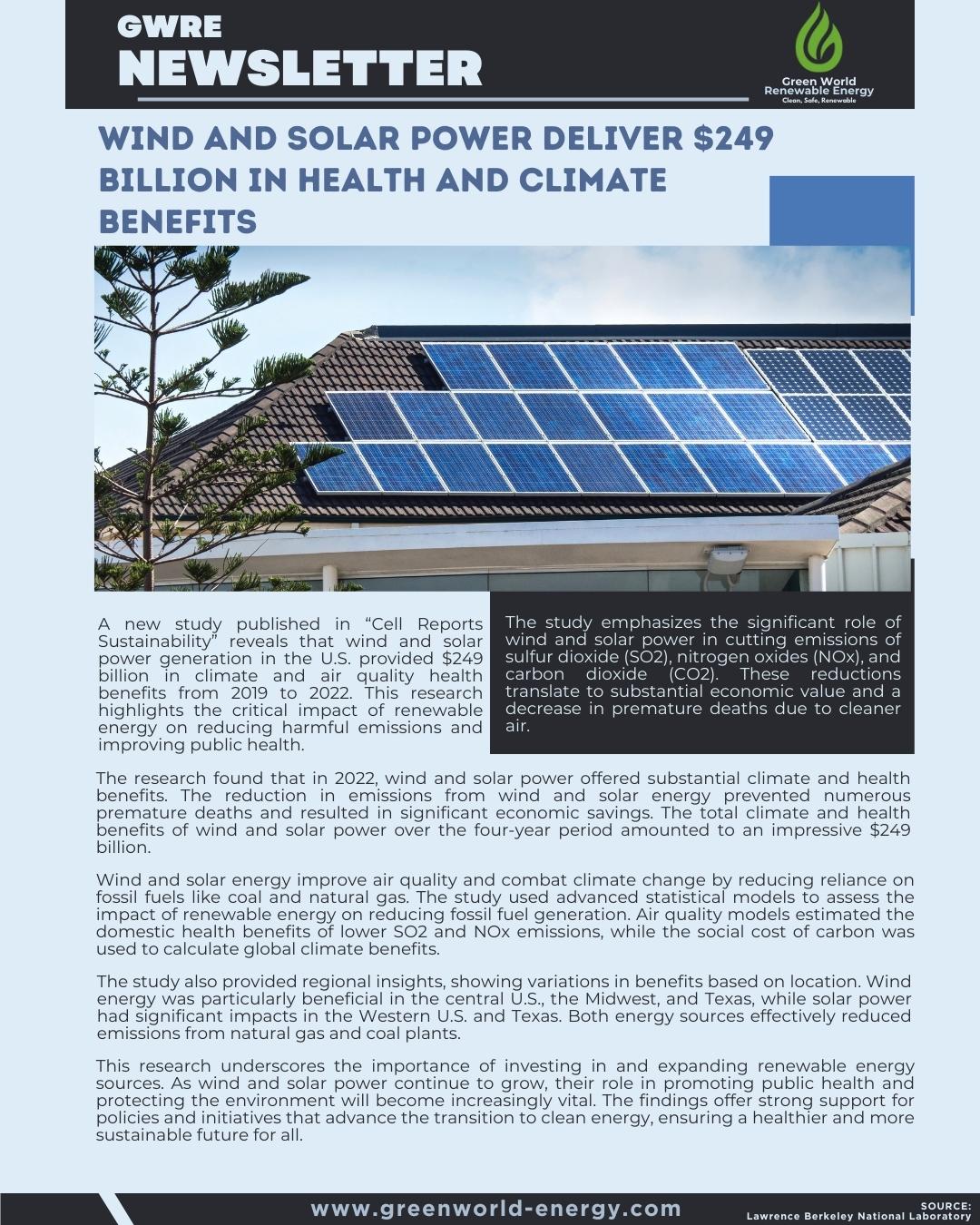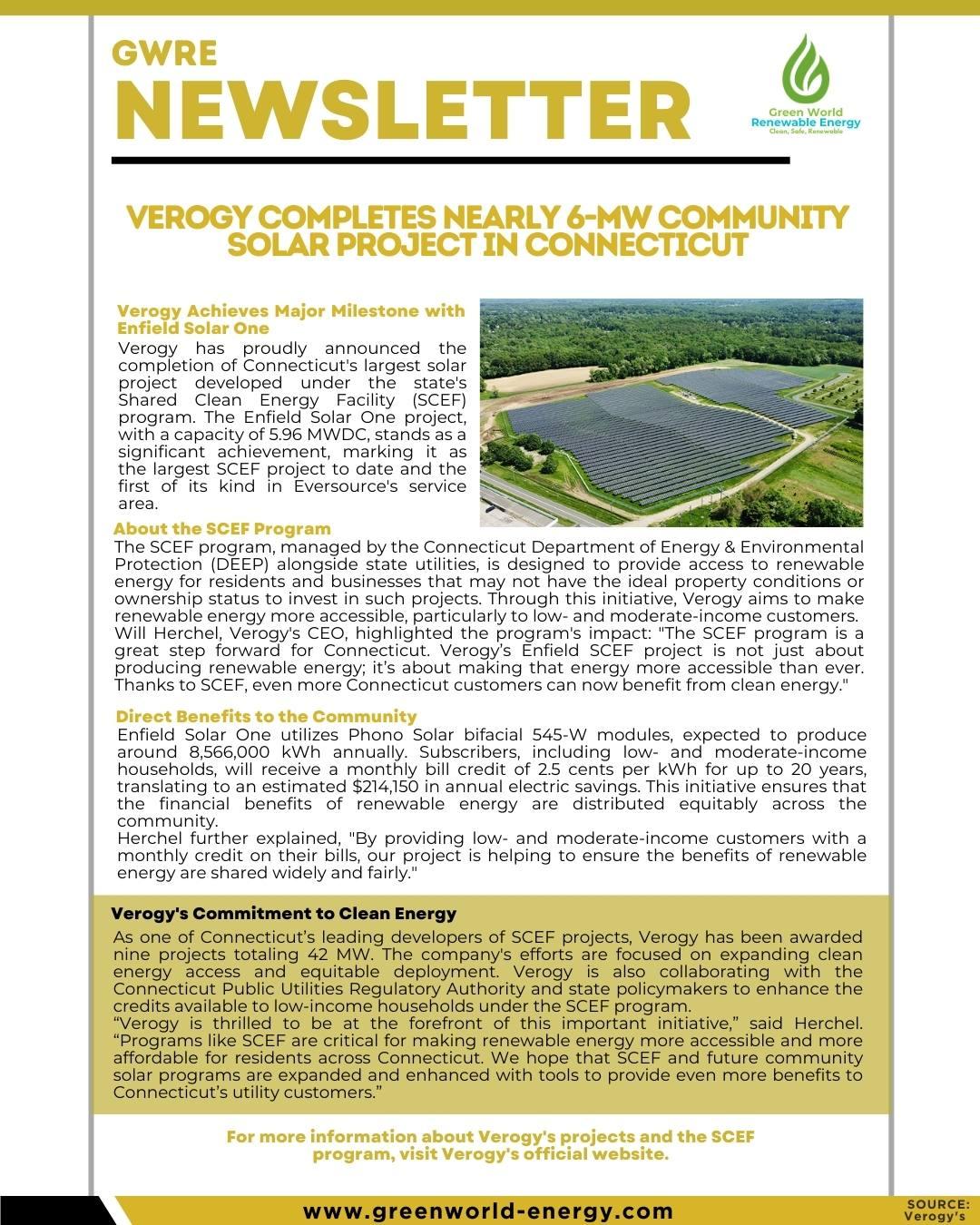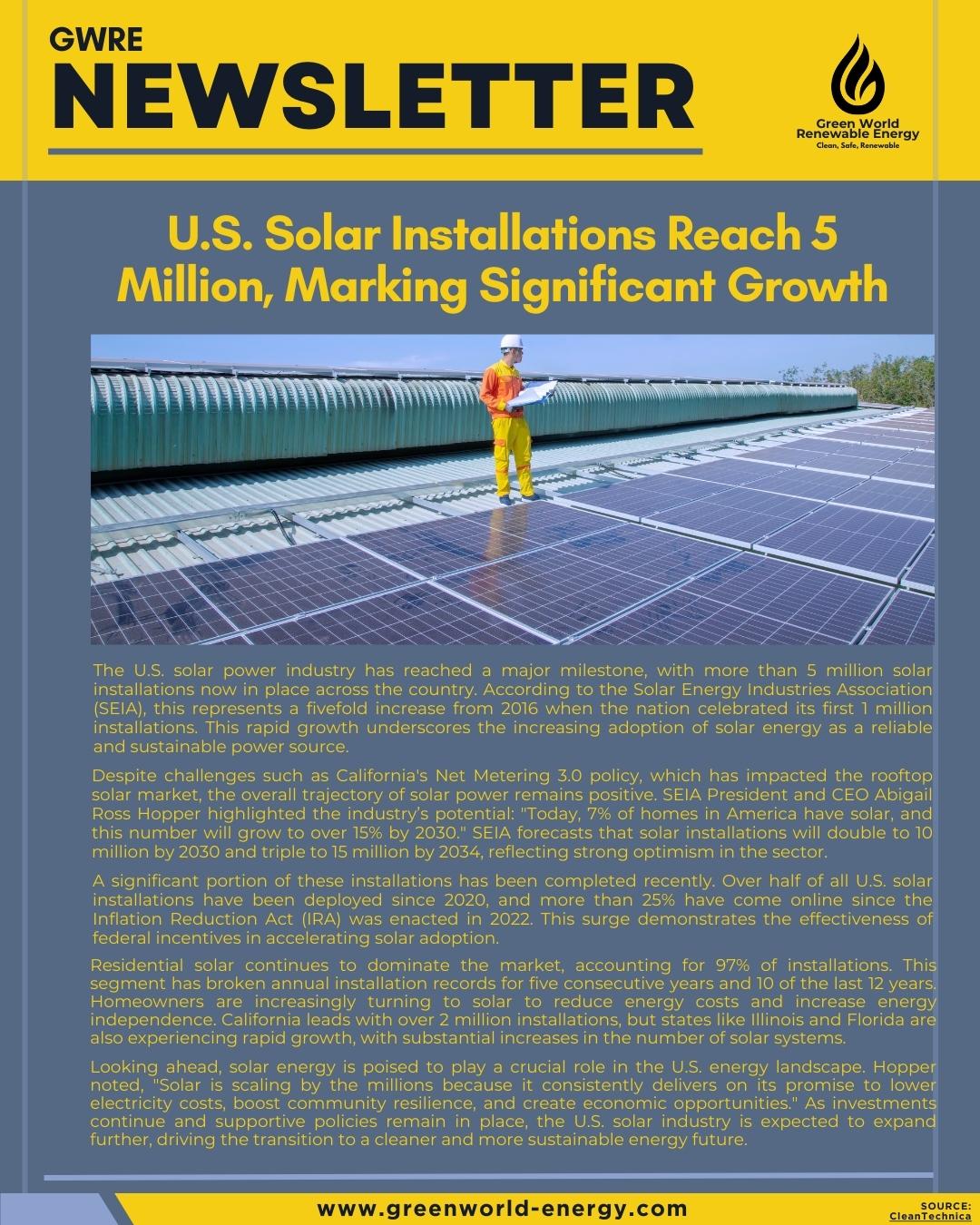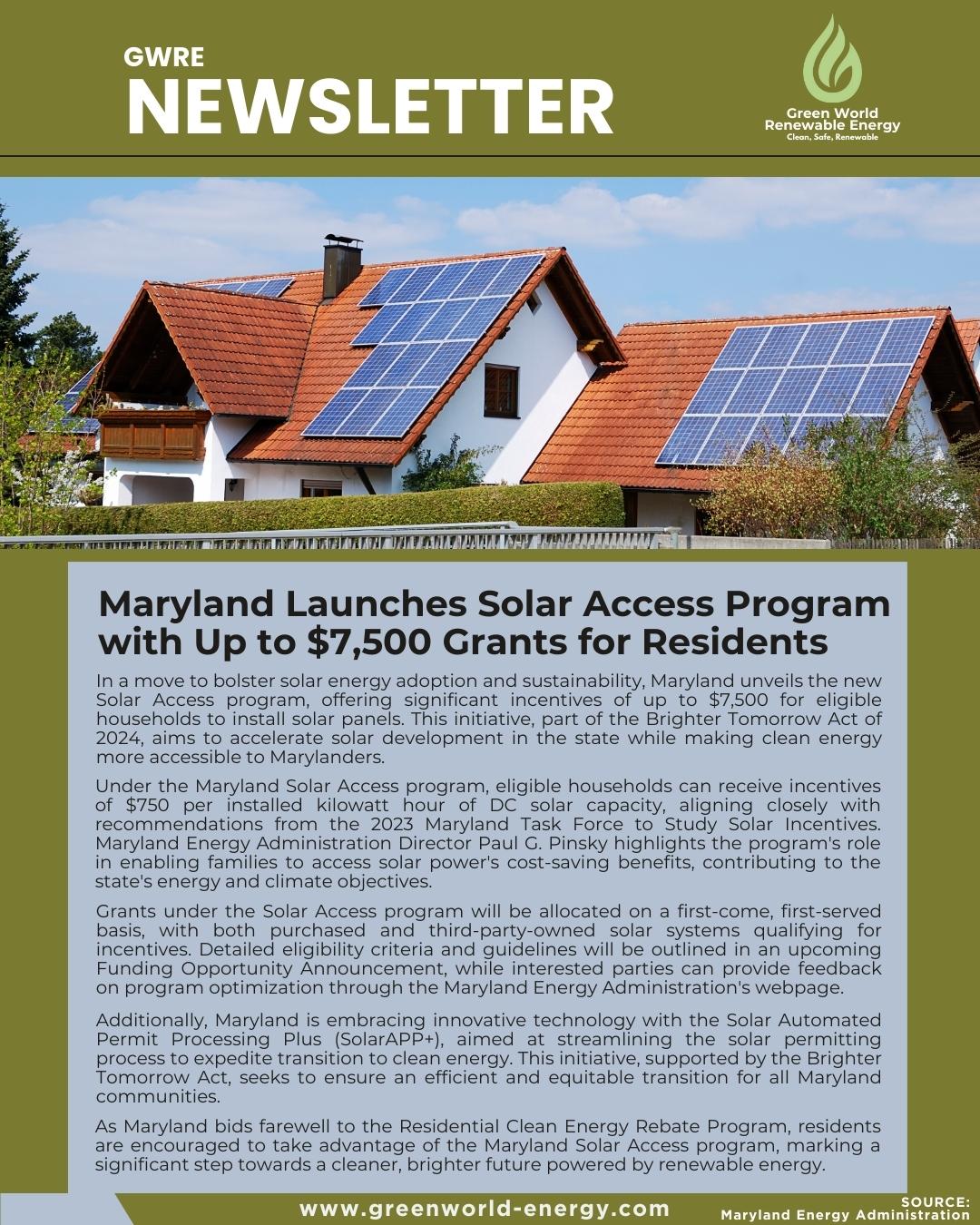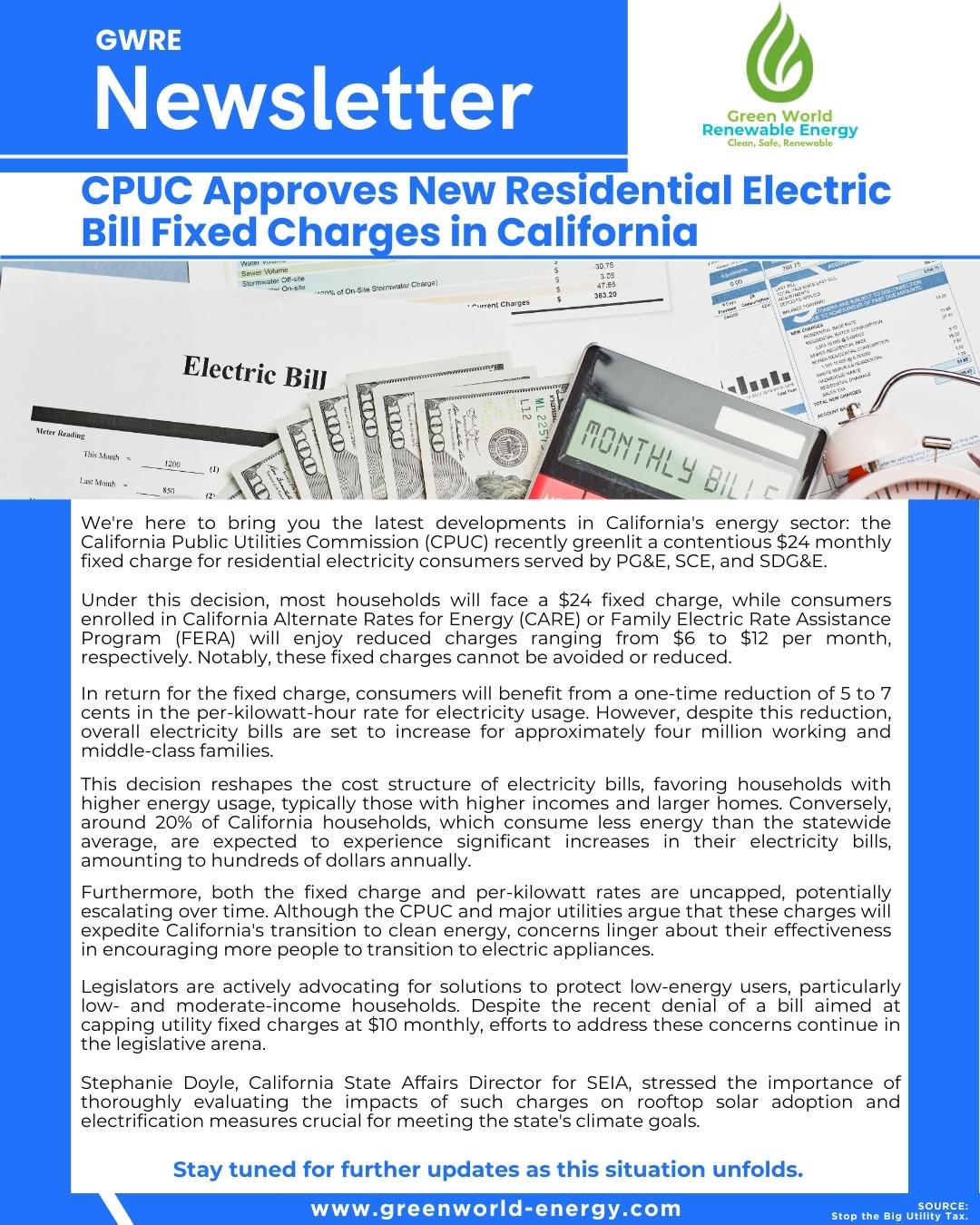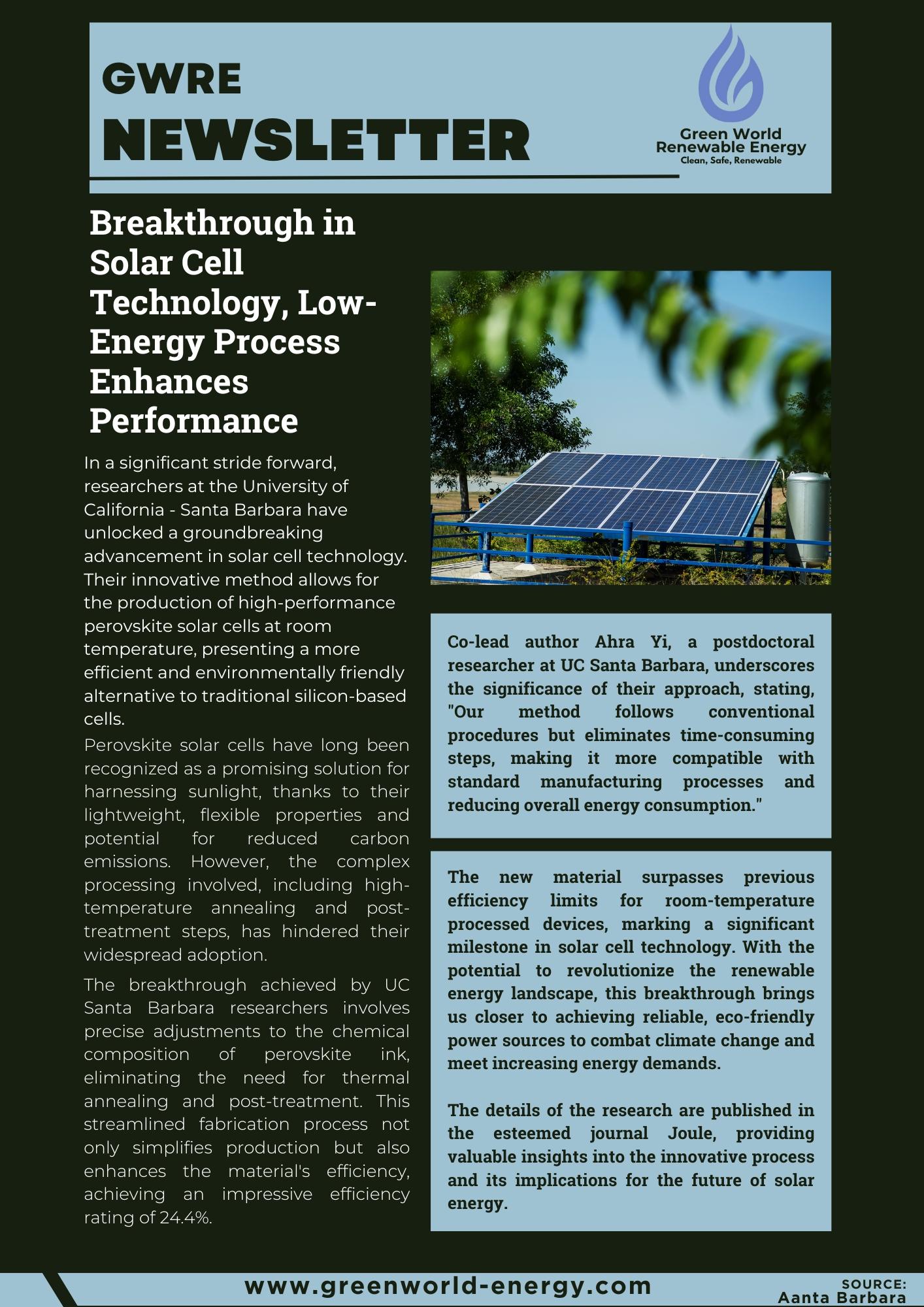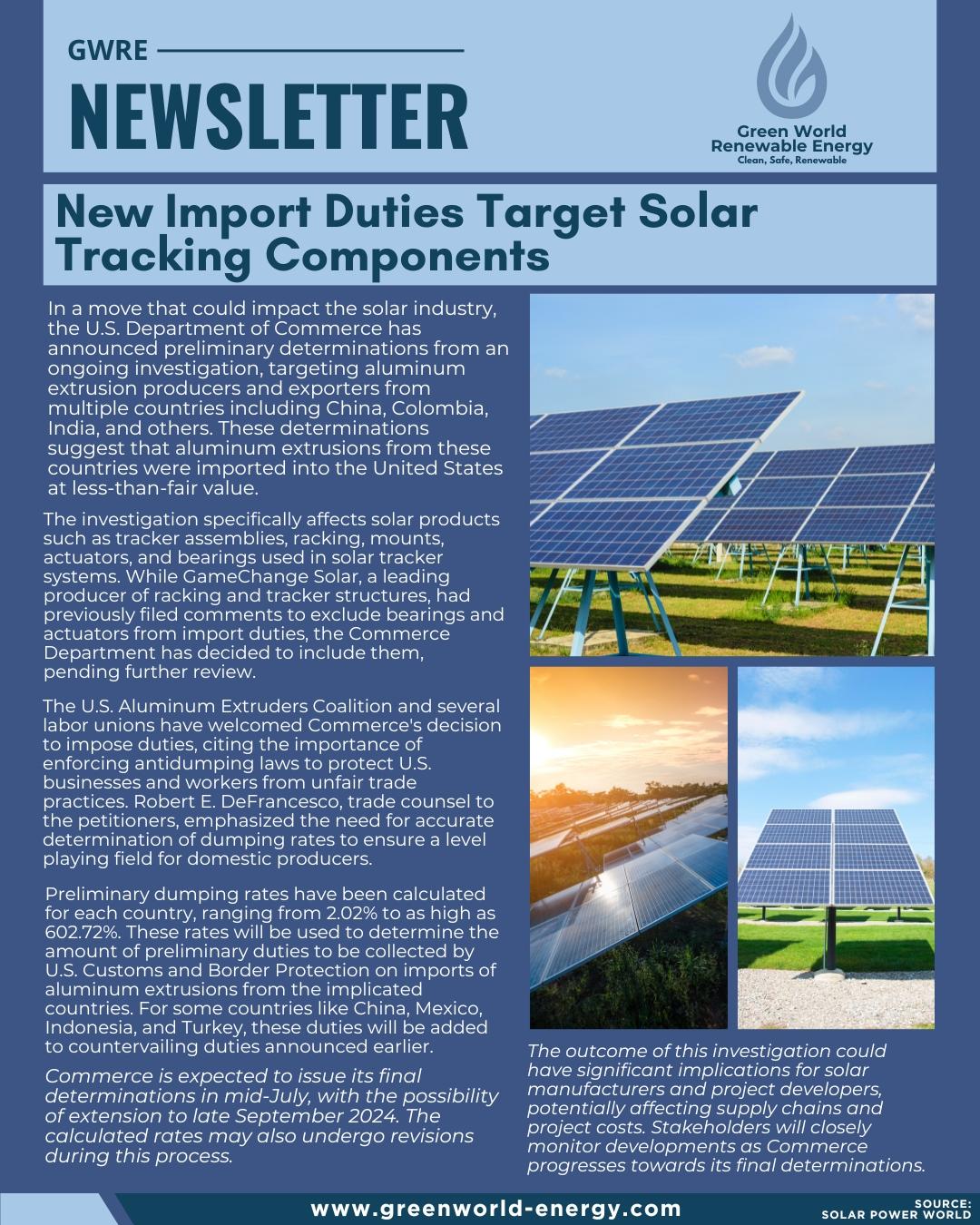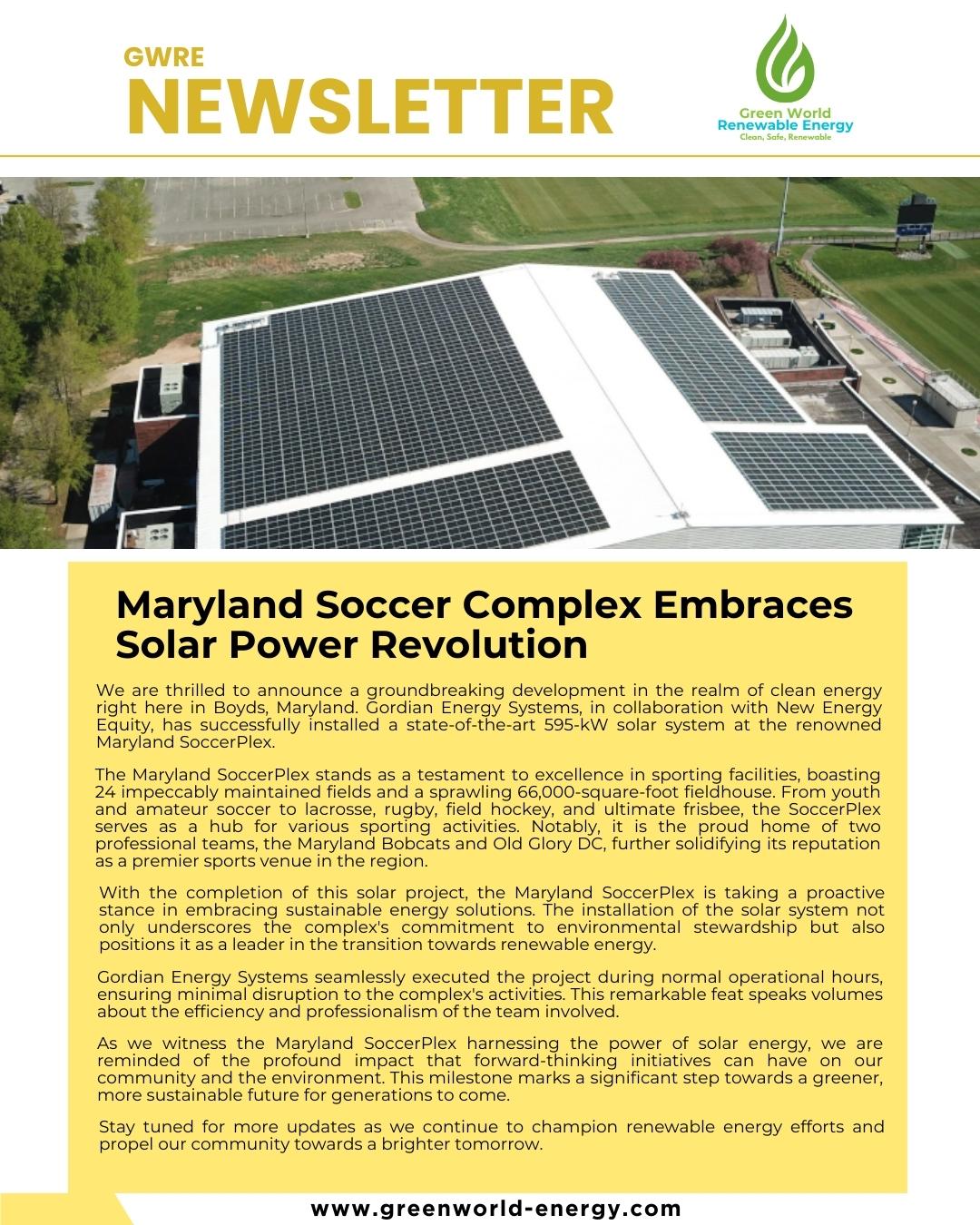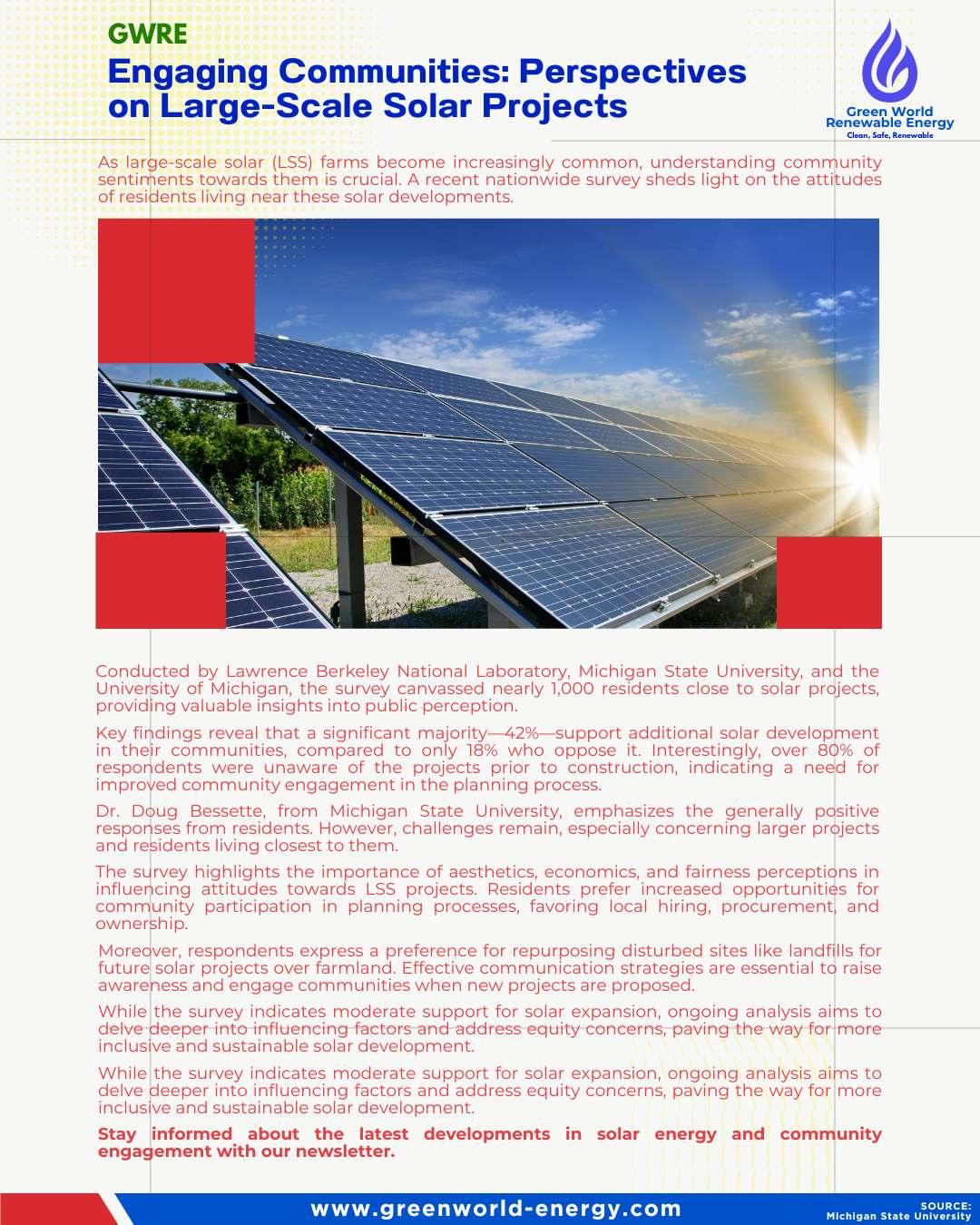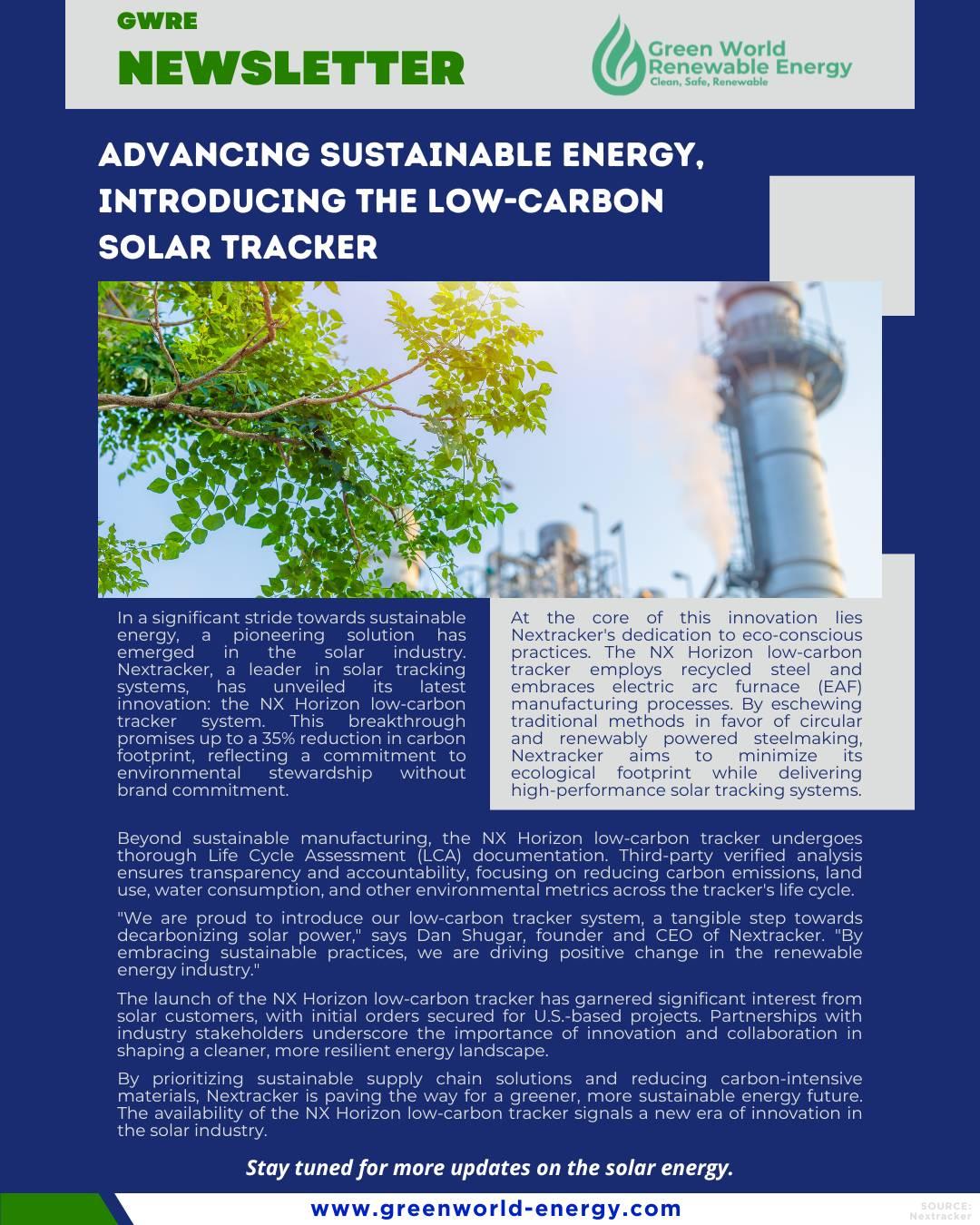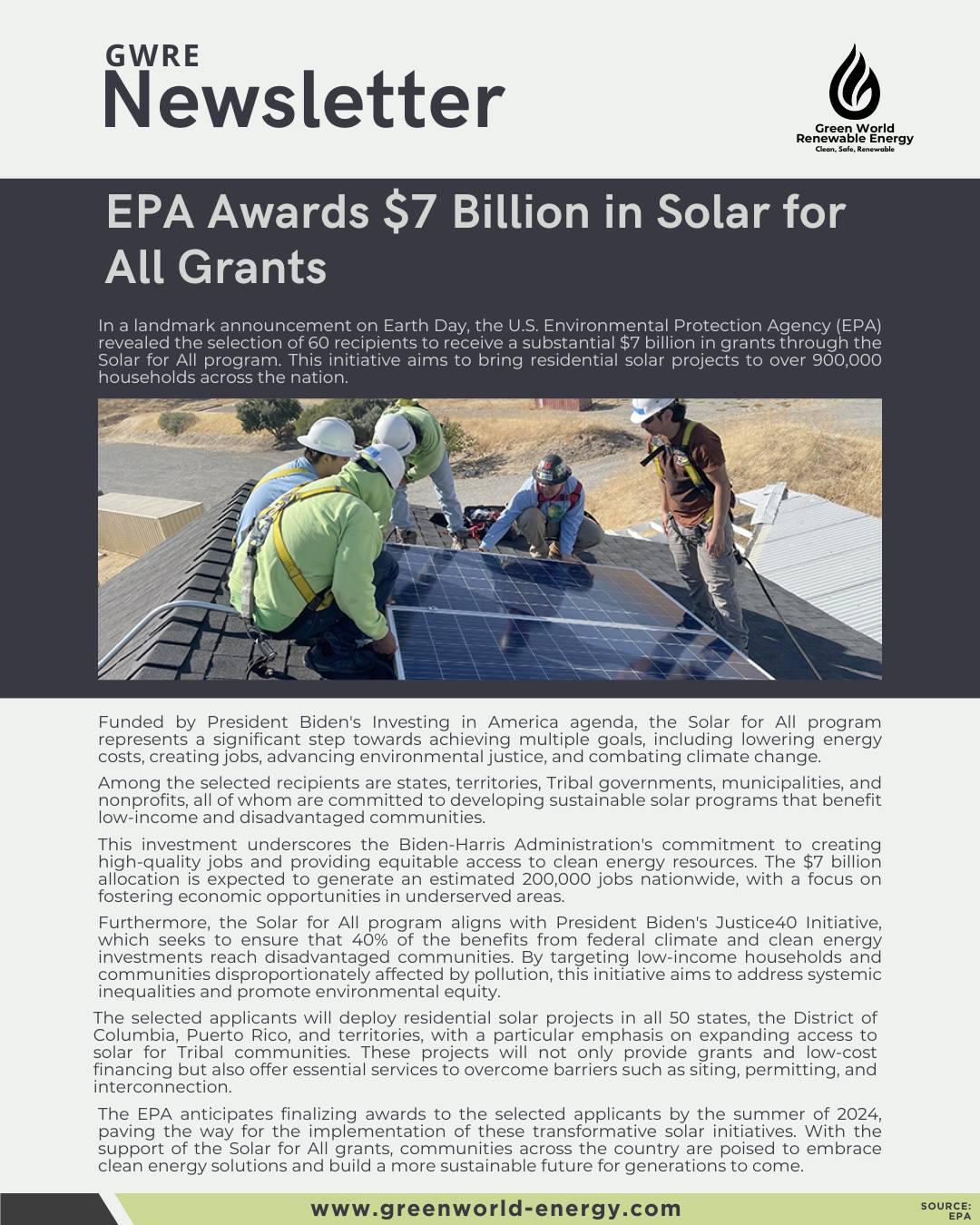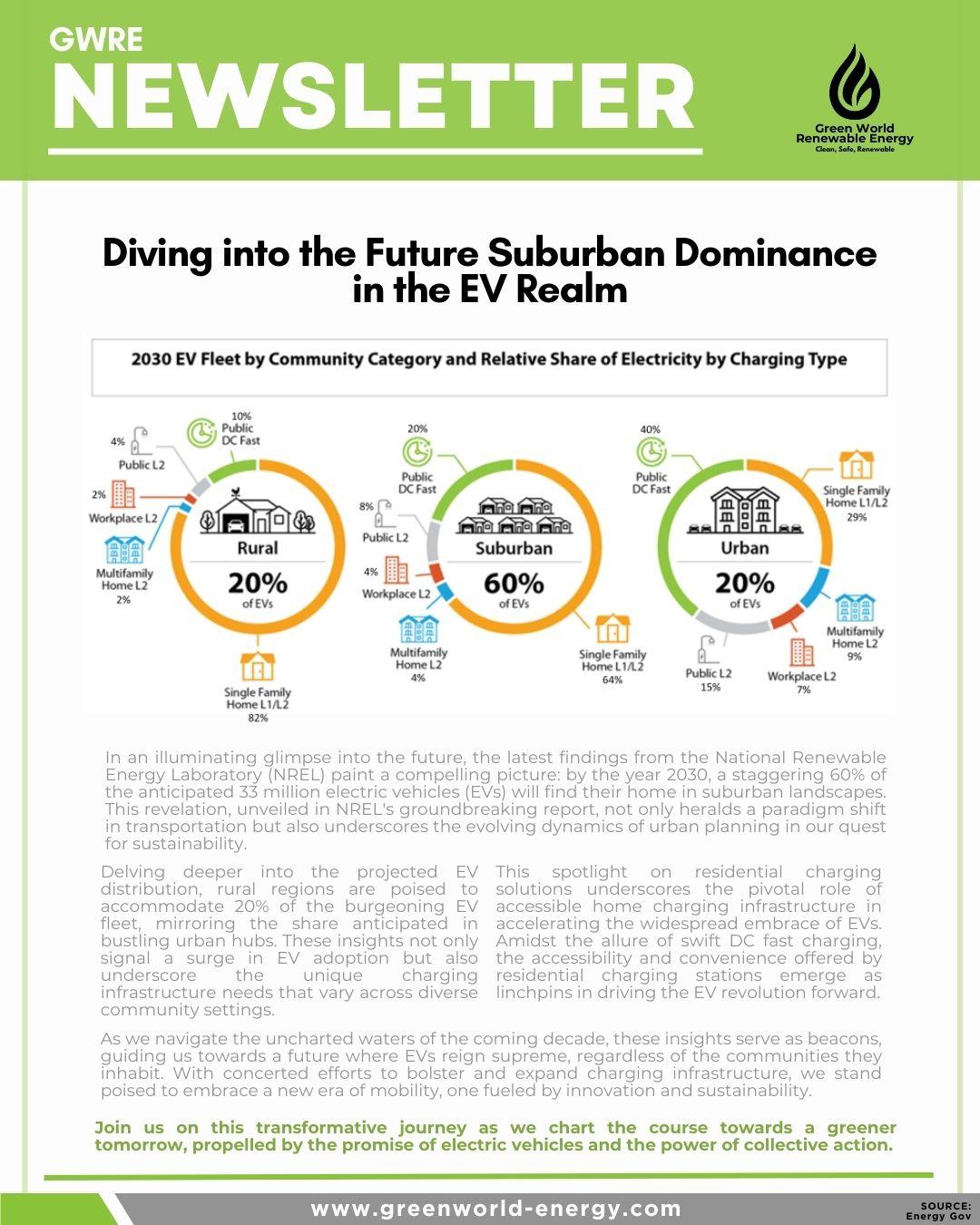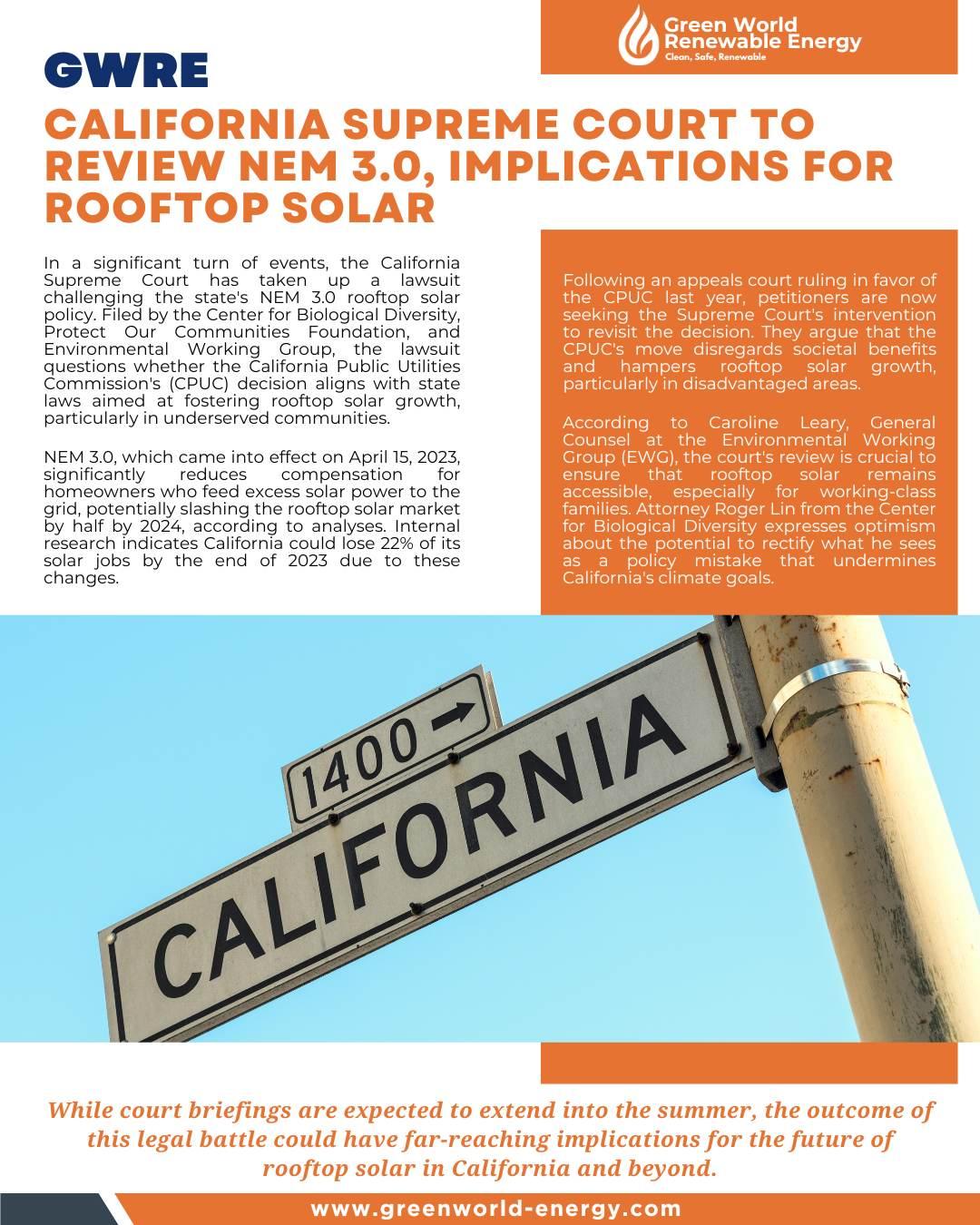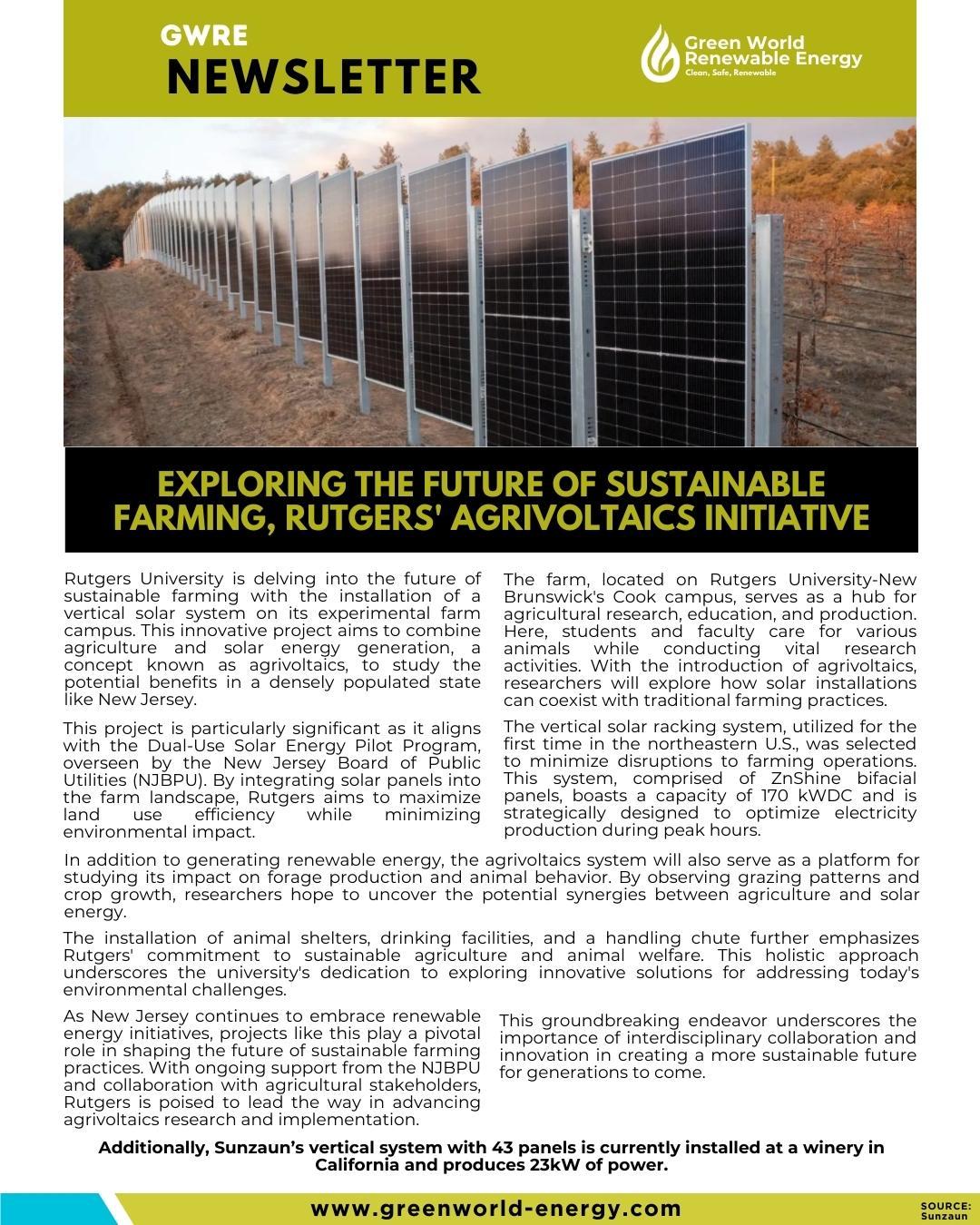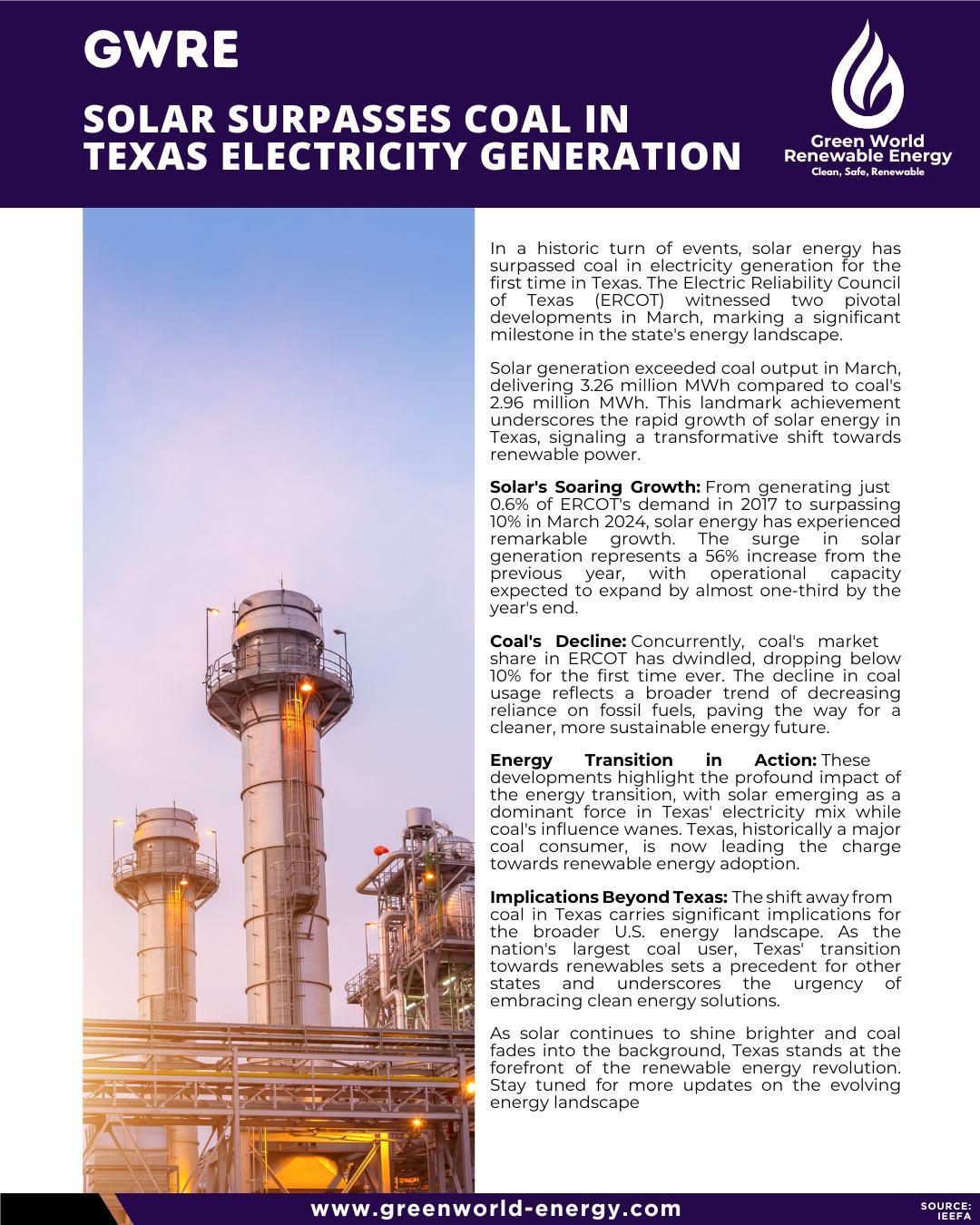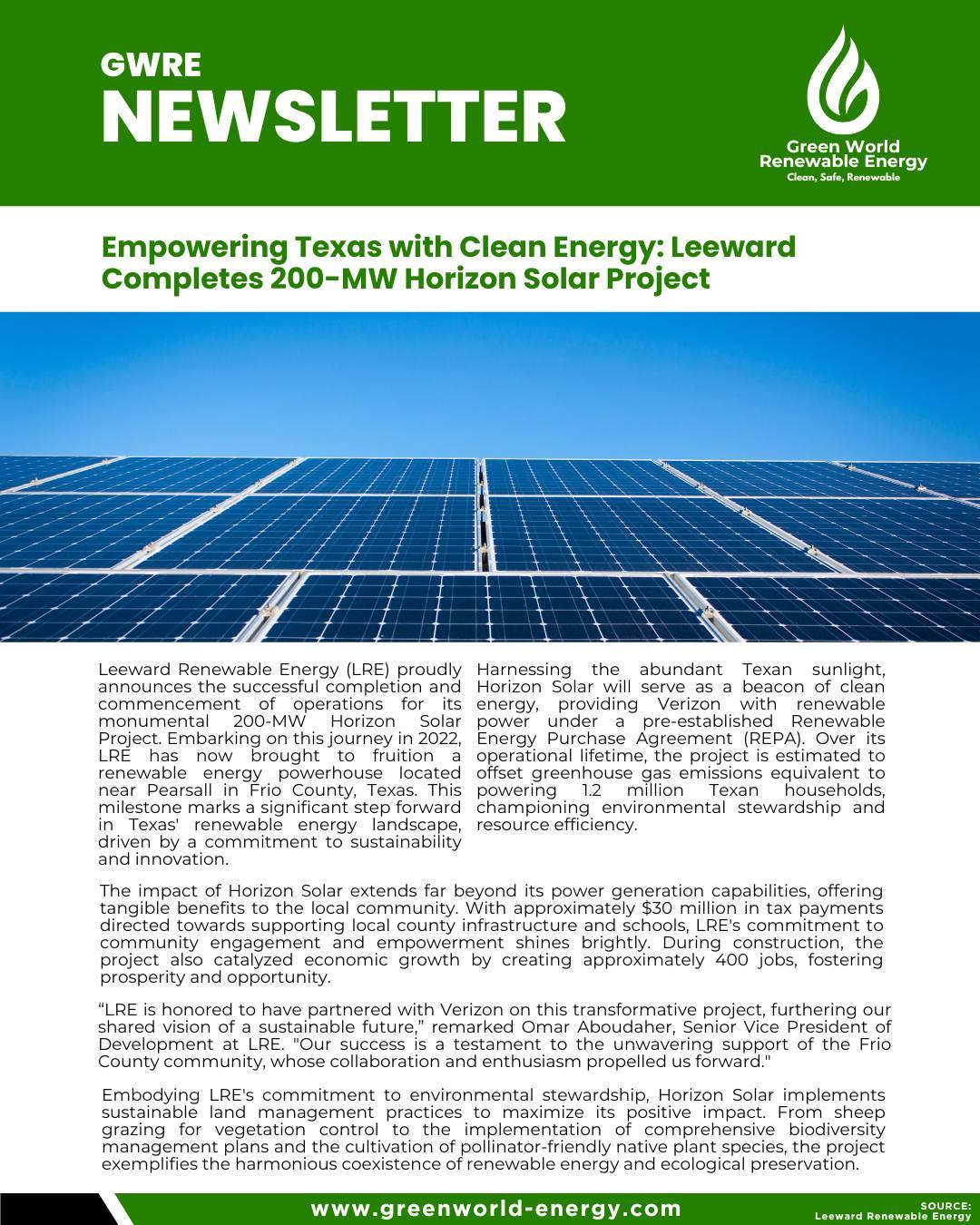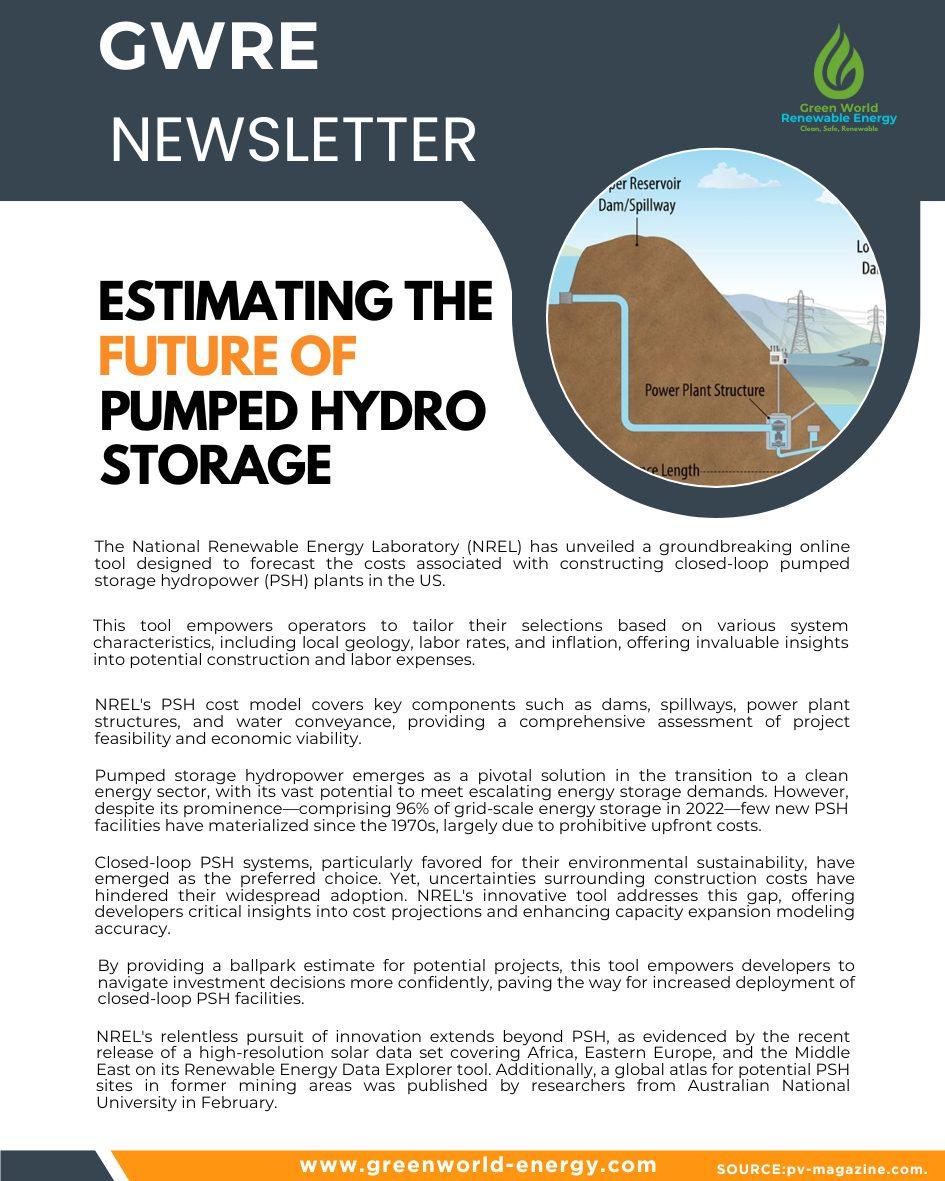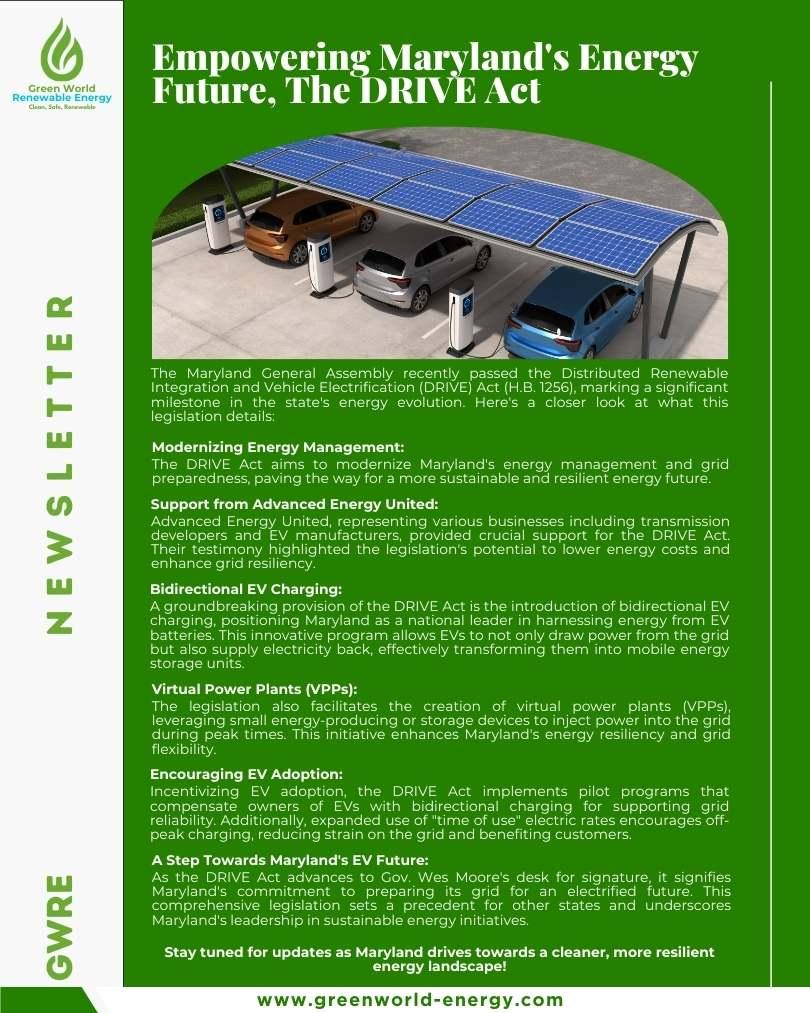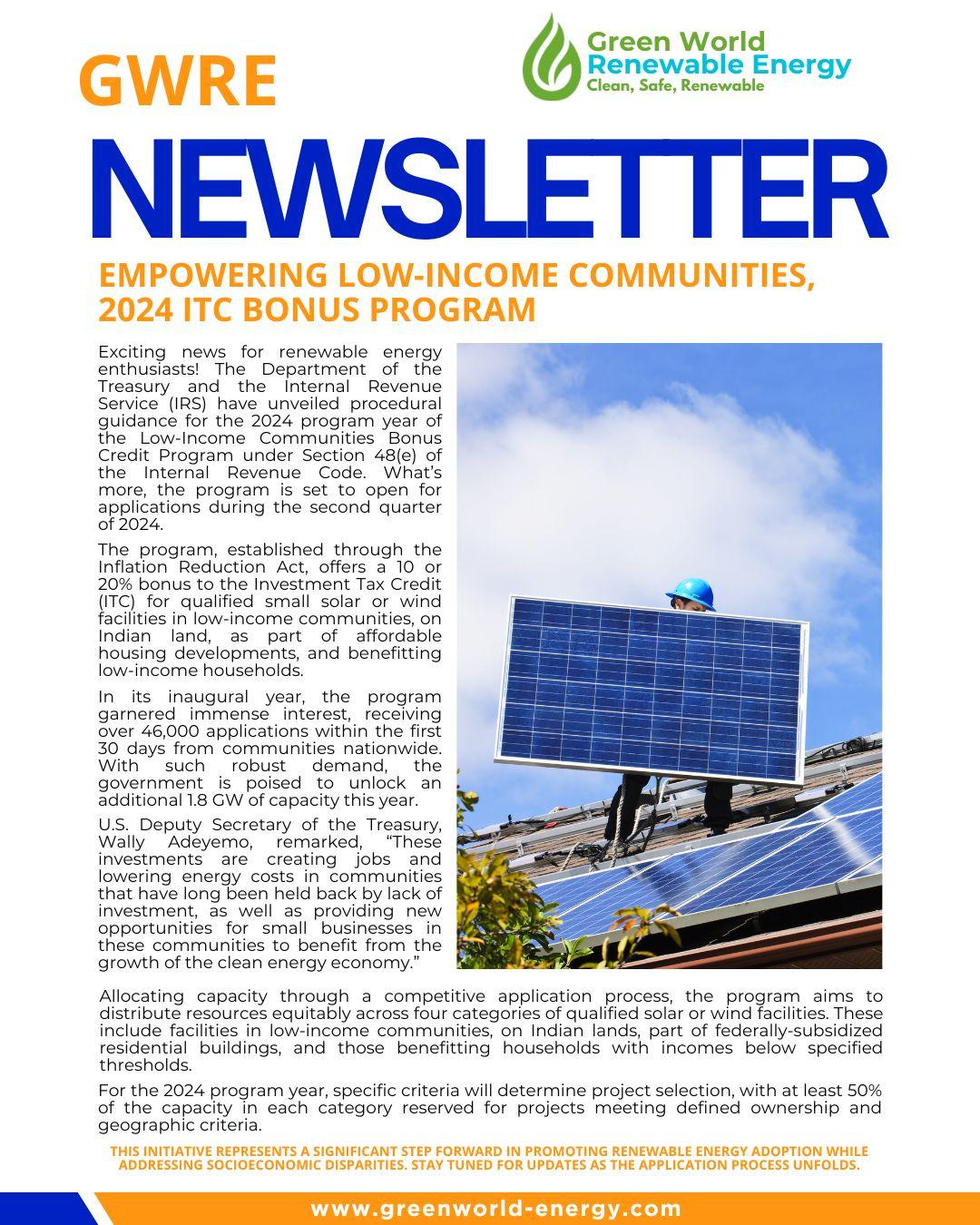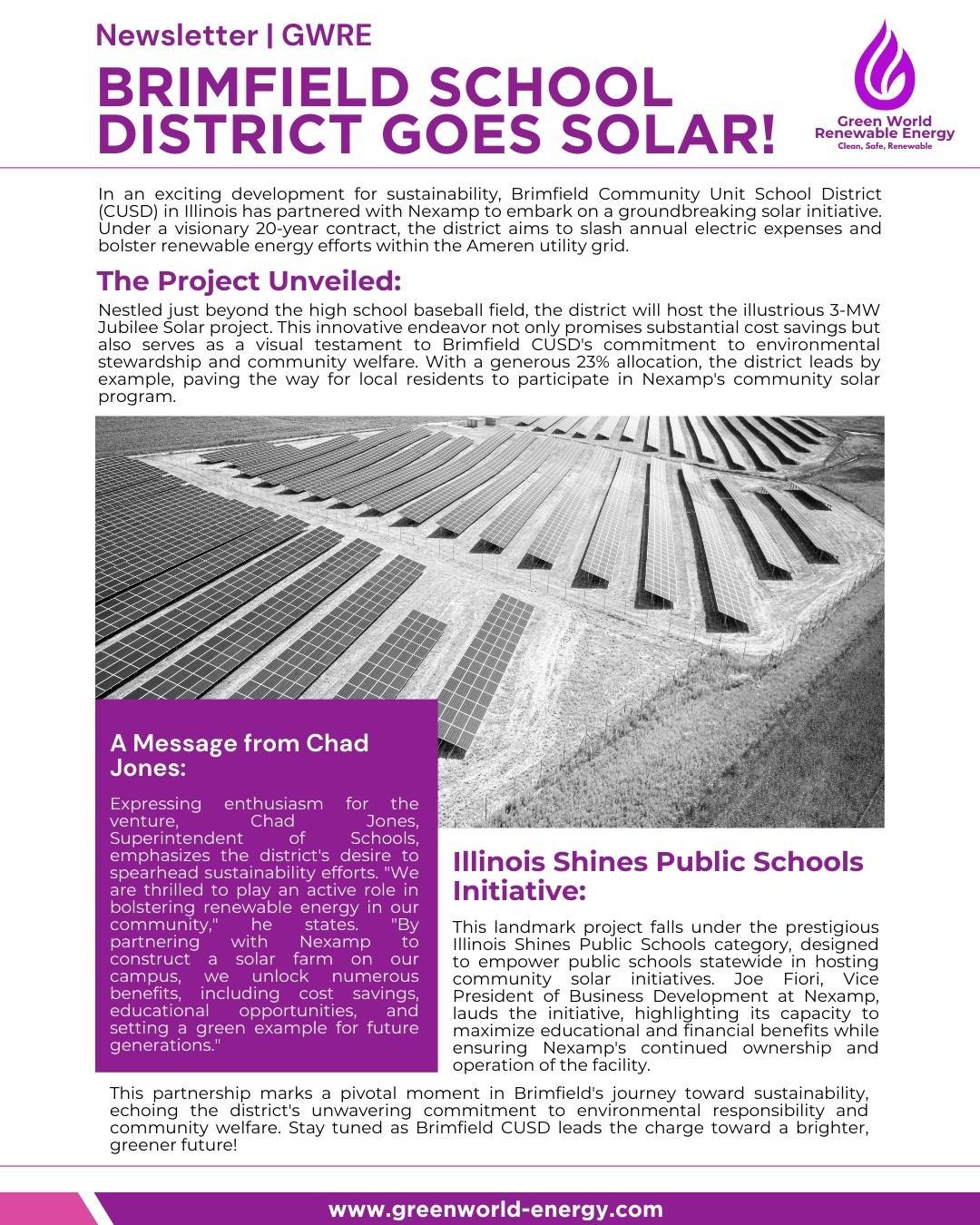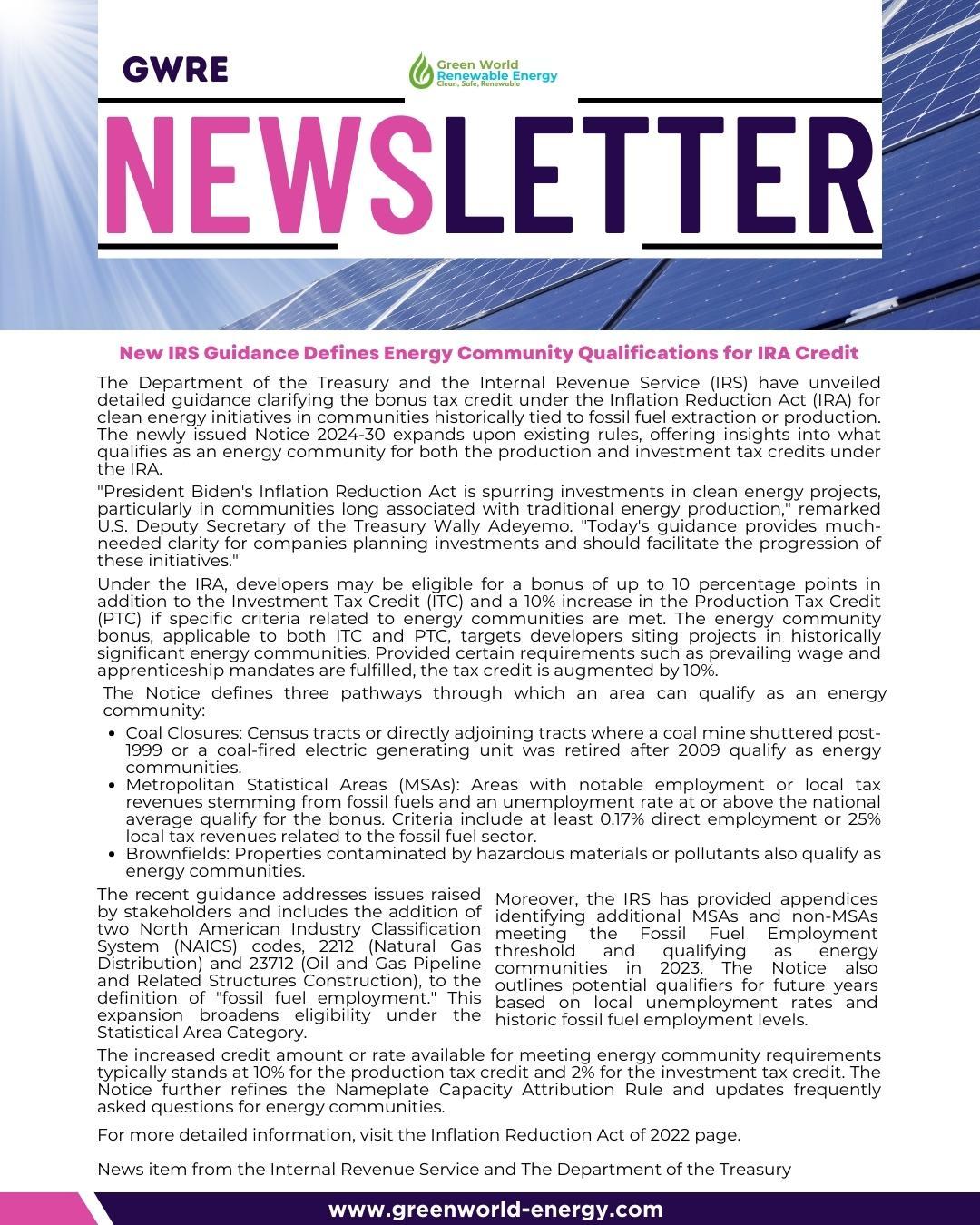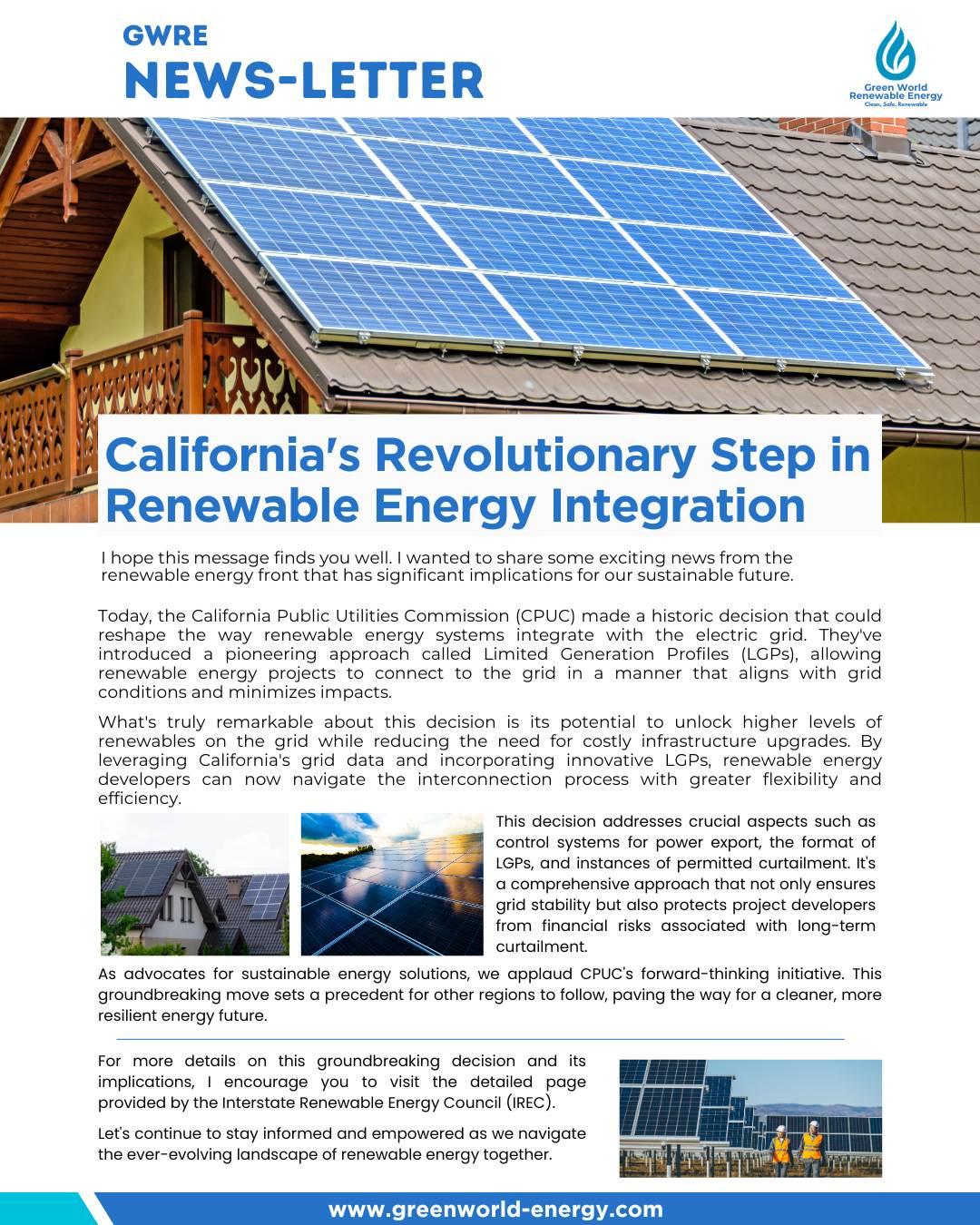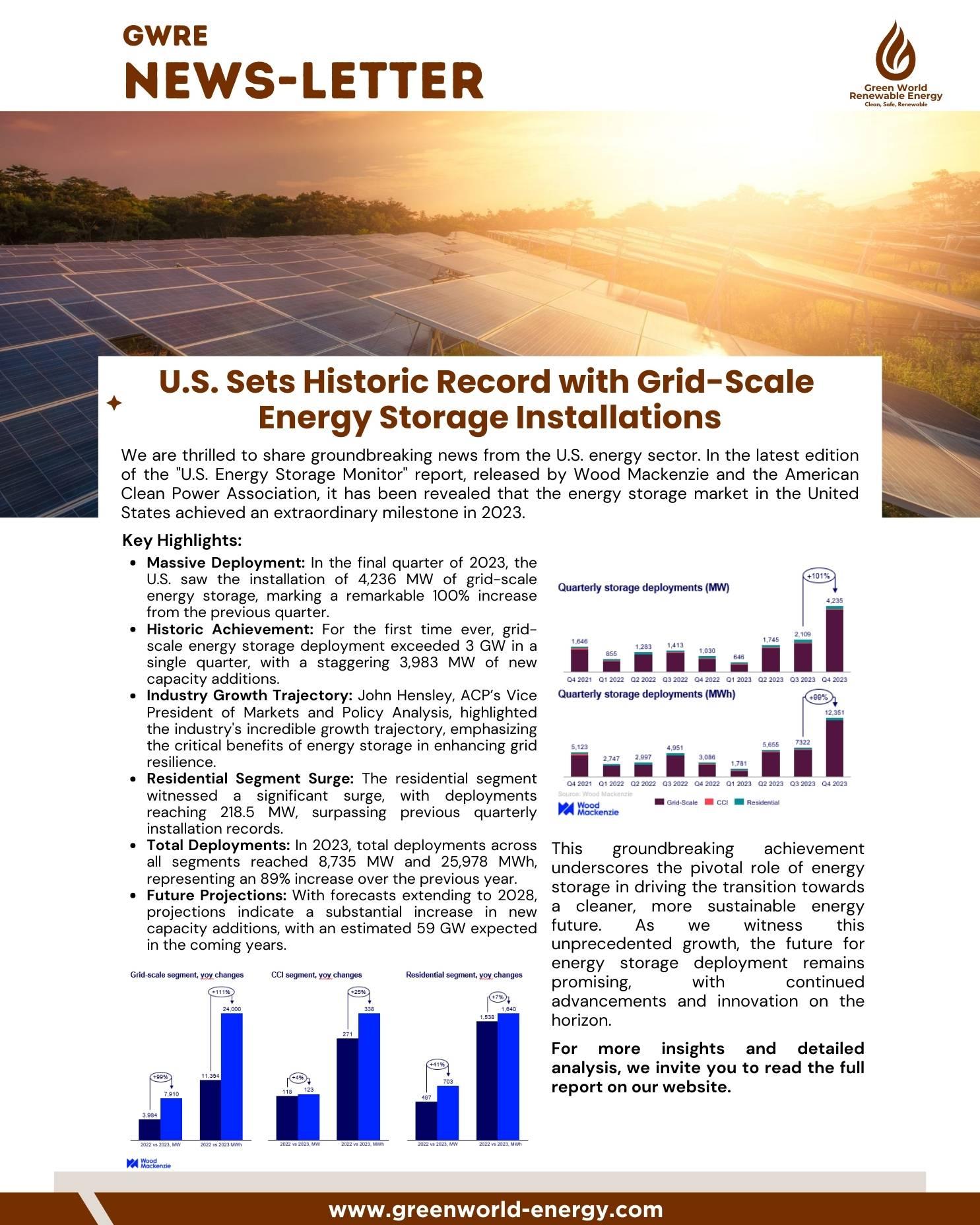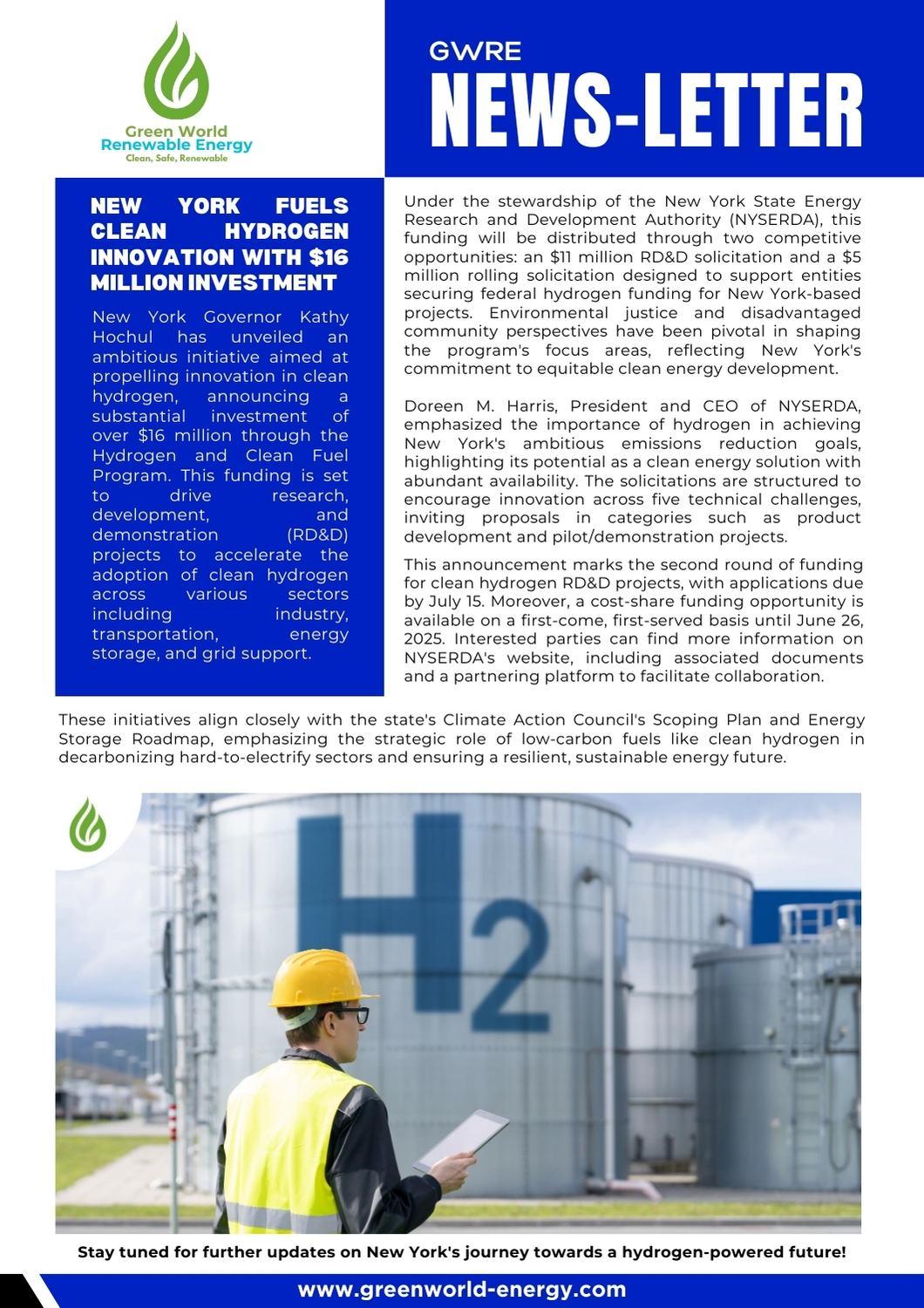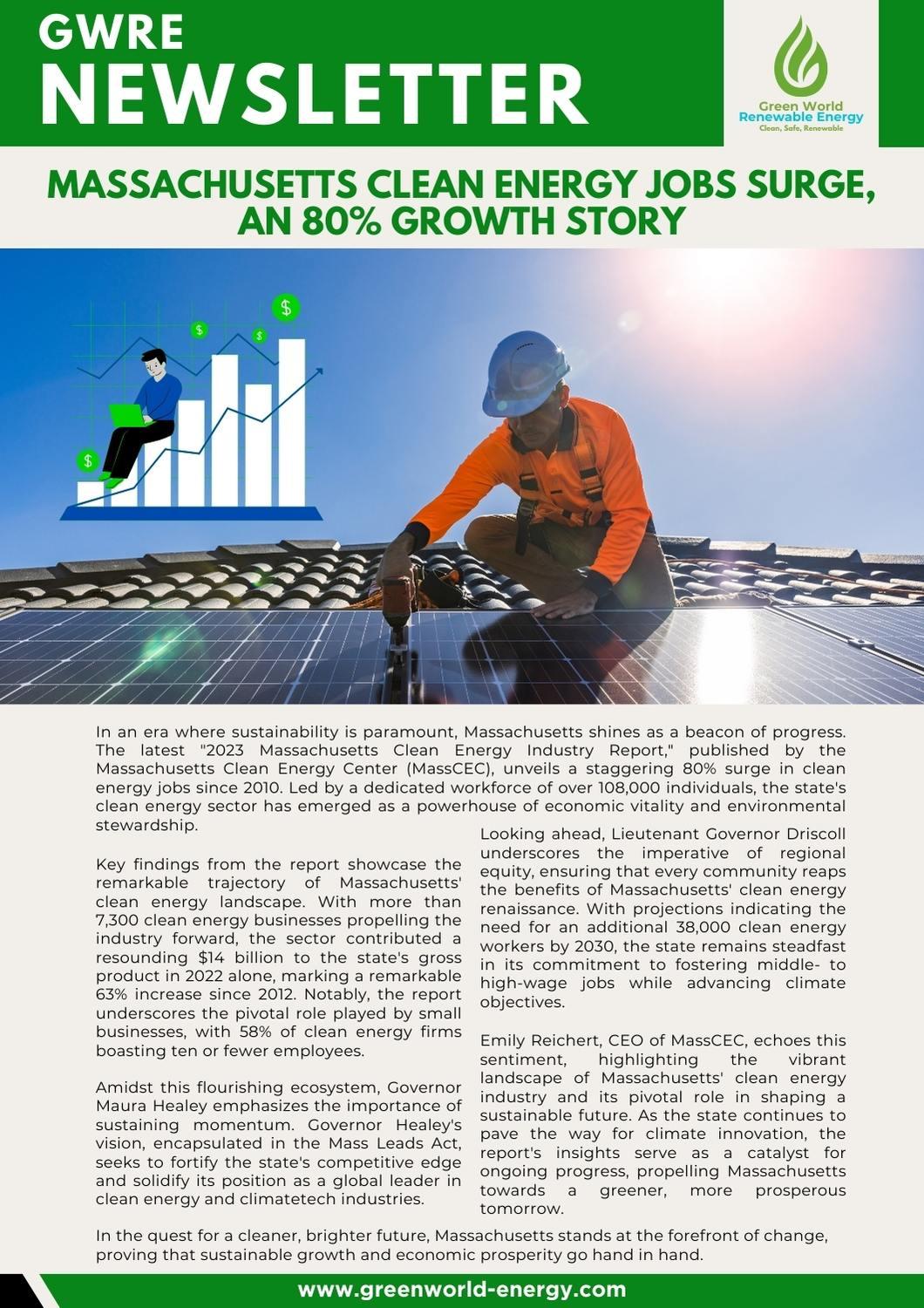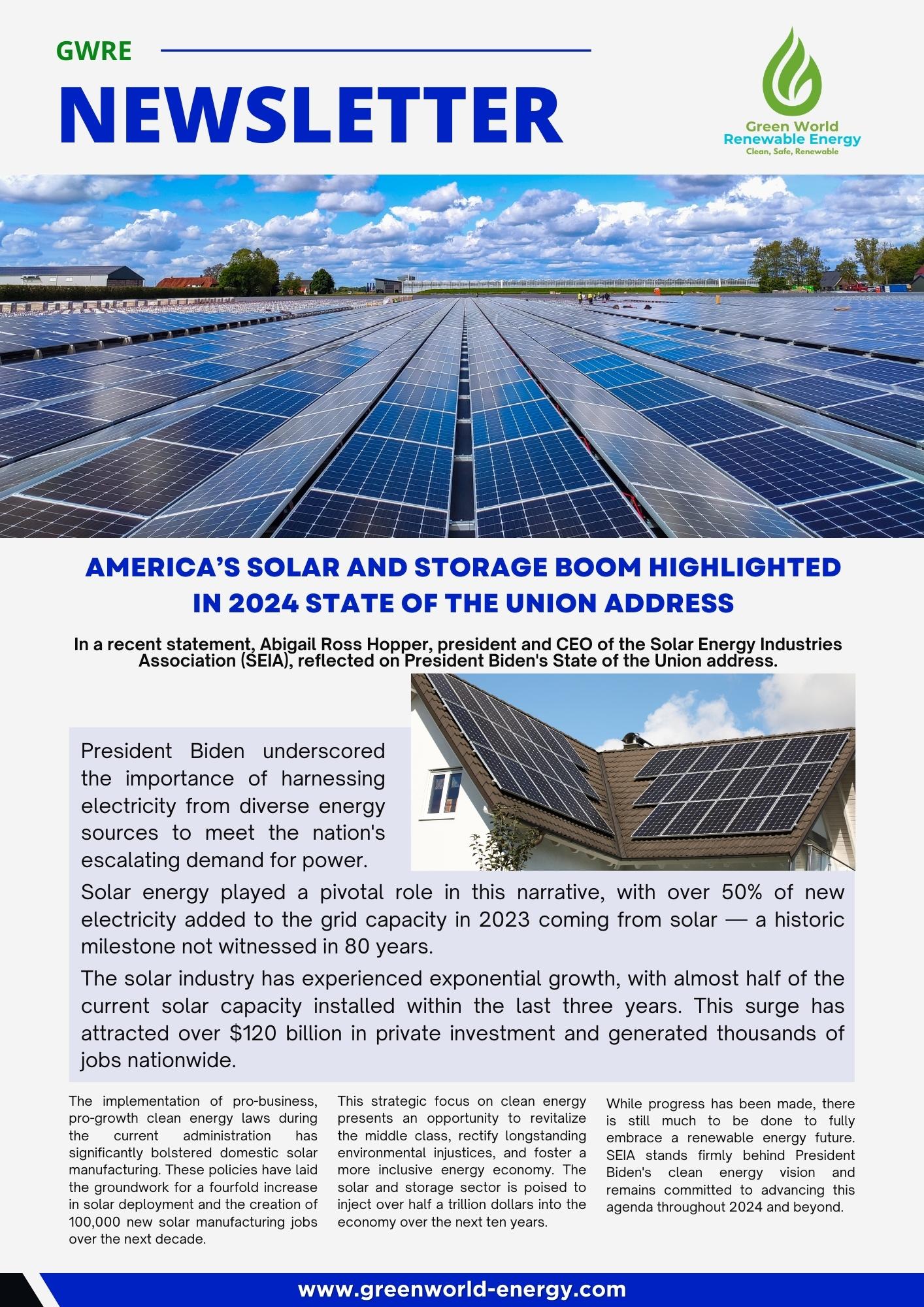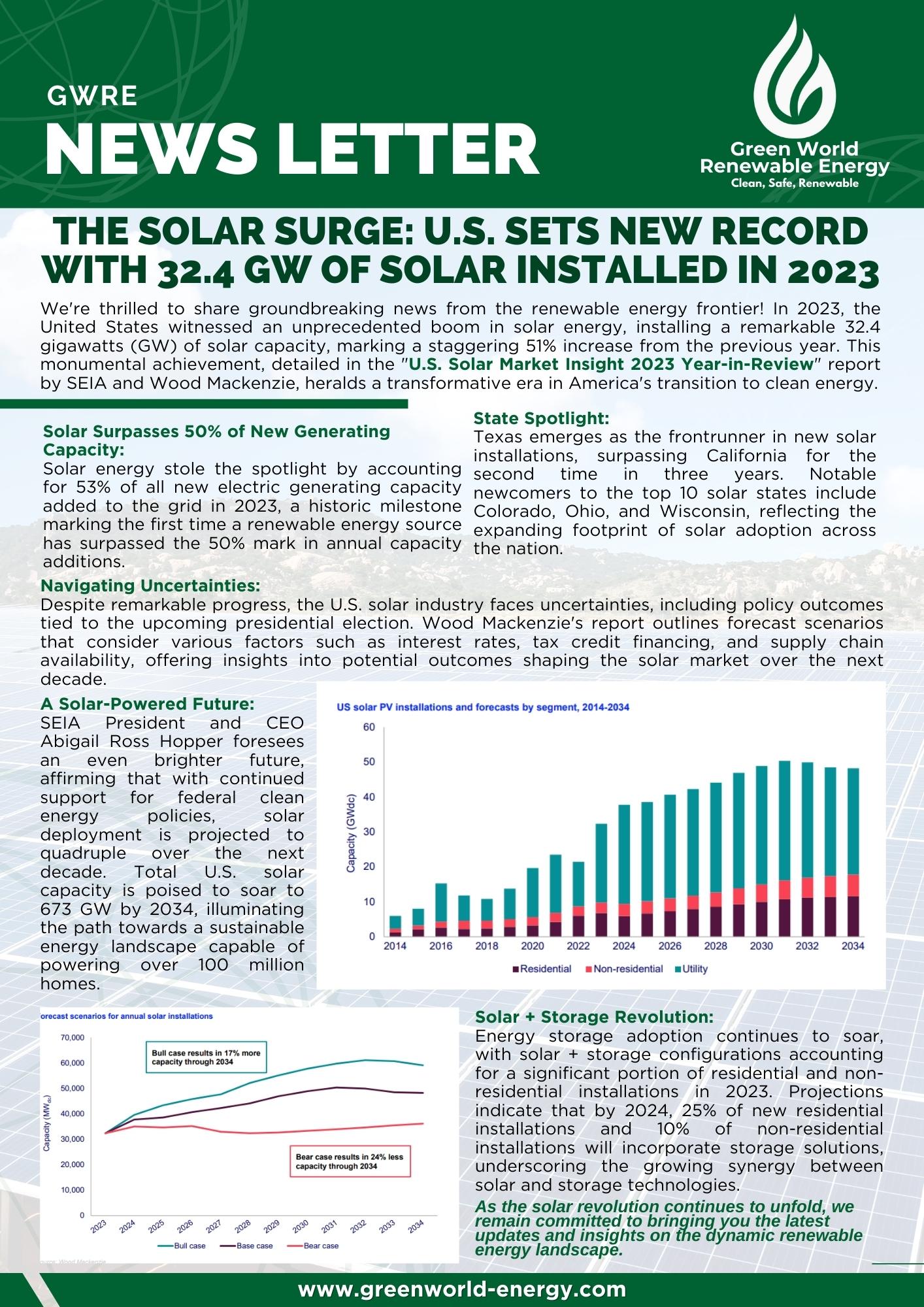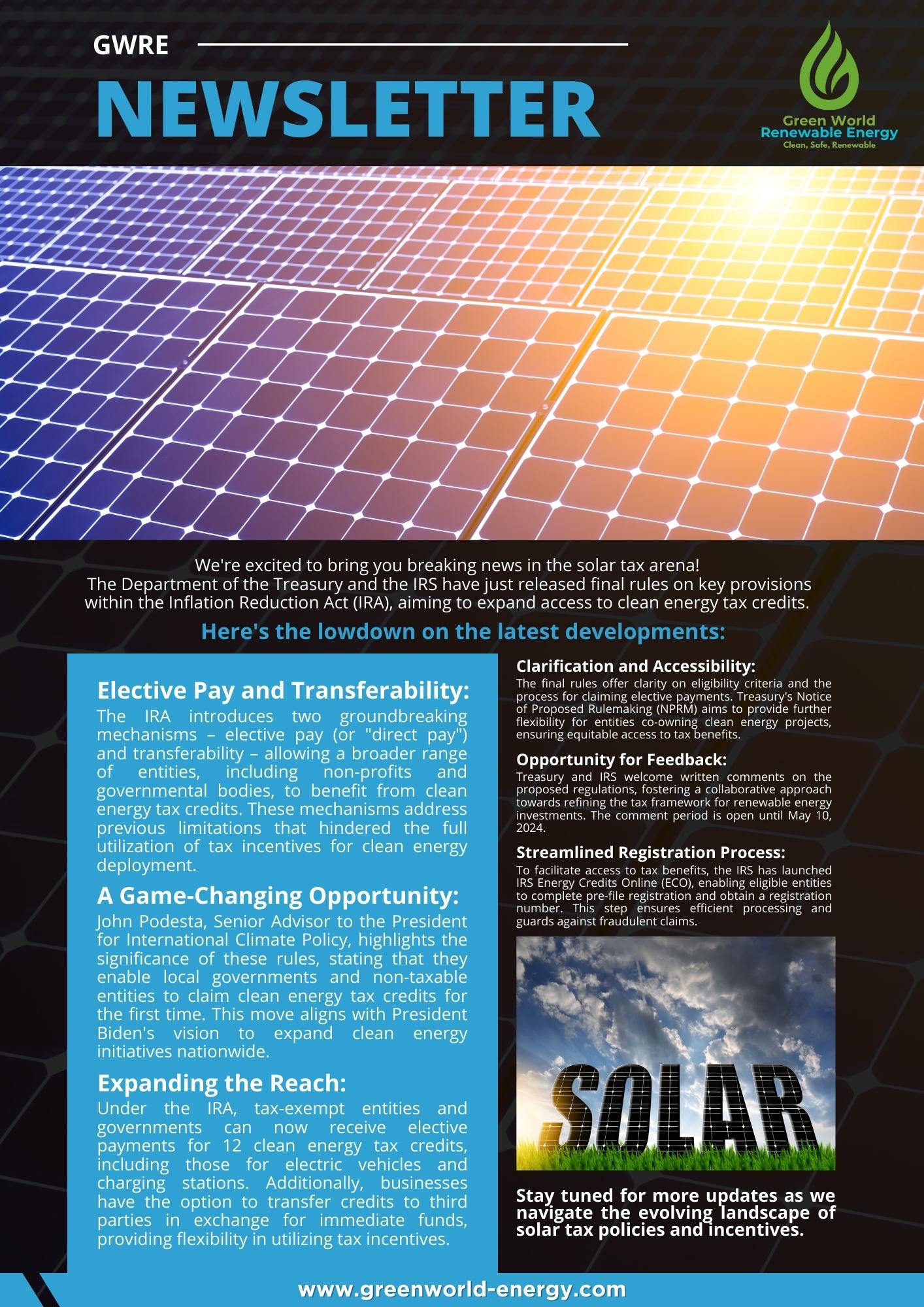New York Power Authority Advances First Fully Owned Solar Project
The New York Power Authority (NYPA) is making strides in expanding renewable energy with the development of its first fully owned and operated solar project, the 20-MW Somers Solar installation in Fort Edward, Washington County. As part of New York’s clean energy transition, this project supports the state’s goal of adding 3 GW of renewable capacity. The Somers Solar project will be built on a 150-acre site in the Capital Region, delivering reliable, clean energy to thousands of homes while creating over 100 union jobs during the construction phase.
Governor Kathy Hochul emphasized the project’s significance, stating, “NYPA’s investment in solar energy strengthens our commitment to sustainability, creating jobs while advancing a more resilient power grid.” NYPA’s subsidiary, the New York Renewable Energy Development Holdings Corporation (NYRED), will manage the project’s construction and operations. The initiative is expected to bring economic benefits to the local workforce while reinforcing the state’s clean energy leadership.
This project is the first under NYPA’s expanded authority, granted in 2023, to develop and manage large-scale renewable energy projects. The acquisition from CS Energy enables NYPA to oversee energy pricing and operations, ensuring affordable electricity for New Yorkers. Justin E. Driscoll, NYPA’s president and CEO, highlighted the broader vision: “The Somers Solar project represents a major step forward in our renewable energy strategy. By managing large-scale solar projects, we are ensuring long-term clean energy access for New York communities.”
As site preparations continue, NYPA is collaborating with local stakeholders to ensure the project aligns with community and environmental priorities. Public information sessions will provide updates on construction timelines, workforce opportunities, and environmental considerations. With the launch of its first fully owned solar initiative, NYPA is setting the stage for future large-scale renewable energy projects in New York, driving the state closer to its ambitious climate goals.
read more
SMA America Introduces High-Efficiency Battery Inverter for Large-Scale Energy Storage
SMA America has launched the Sunny Central Storage UP-S, an advanced large-scale battery inverter, to the U.S. market. This cutting-edge solution, which has already seen success in Australia, is designed to enhance grid stability, improve energy efficiency, and support the clean energy transition. With the increasing demand for renewable energy storage, utilities and developers require reliable solutions that maximize efficiency and grid resilience.
The Sunny Central Storage UP-S is equipped with silicon carbide (SiC) MOSFET technology, optimizing power conversion efficiency and reducing energy loss. This innovation results in higher energy yield, lower capital costs, and enhanced profitability for energy developers and operators. “The Sunny Central Storage UP-S meets these needs, delivering unmatched efficiency, scalability, and grid-forming capabilities,” said Jay Arghestani, managing director of large-scale sales, technology, and marketing at SMA America.
Key features of the inverter include high power output of up to 4,600 kVA, over 99.2% efficiency, and OptiCool™ air cooling technology for advanced thermal management. Additionally, it ensures grid stability through dynamic support during peak demand, robust fault ride-through capability, and grid-forming capabilities for decentralized power restoration. Its lower capital expenditures and optimized energy yield make it an ideal solution for large-scale storage projects.
With renewable energy adoption accelerating, the Sunny Central Storage UP-S sets a new benchmark for energy storage solutions. SMA America's latest innovation empowers utilities and developers with efficient, scalable, and cost-effective battery inverter technology to drive the transition to a sustainable energy future. This inverter plays a key role in strengthening grid infrastructure, reducing operational costs, and ensuring a reliable power supply for the evolving energy landscape.
read more
AdventHealth Completes 3-MW Solar Energy Project, Advancing Sustainability Goals
AdventHealth has completed a major 3-megawatt (MW) solar energy project at its corporate headquarters in Altamonte Springs, Florida. Developed in collaboration with ESA, the system features over 7,500 solar panels installed on rooftops, parking garages, and canopies. This clean energy infrastructure is expected to generate around 4,200 megawatt-hours (MWh) of electricity annually, covering nearly one-third of the campus’s energy needs.
The solar installation supports AdventHealth’s sustainability strategy, which aims to reduce greenhouse gas emissions by 50% by 2030 and achieve net-zero emissions by 2050. “This project demonstrates our commitment to environmental responsibility and energy efficiency,” said Olesea Azevedo, Chief Administrative Officer at AdventHealth. “By investing in renewable energy, we are reducing our carbon footprint and setting a sustainable example for the healthcare industry.”
Beyond reducing emissions, the solar installation enhances the campus with additional benefits, including 62 new EV charging stations and expanded covered parking for increased comfort and convenience. The project serves as a blueprint for other healthcare institutions looking to integrate renewable energy solutions. ESA, a top solar development firm, worked closely with AdventHealth, Altamonte Springs officials, and Duke Energy to ensure seamless execution.
Following the success of this solar project, AdventHealth plans to explore additional renewable energy opportunities across its facilities, reinforcing its commitment to a greener future. By embracing solar power, AdventHealth is setting a precedent for sustainable healthcare while significantly reducing its environmental impact.
read more
Solar Industry Outlook 2025-Residential Contractors Confident in Growth
The U.S. solar industry is set for growth in 2025, with most residential contractors confident in their business prospects. According to the latest Solar Industry Survey by SolarReviews, conducted between December 2024 and January 2025, companies are adapting to new challenges while benefiting from rising consumer interest in renewable energy. With supply chain issues largely resolved, the focus now shifts to navigating political uncertainties, potential tariffs, and changing solar incentives.
Despite these concerns, optimism remains strong. The survey found that 90% of solar companies are confident in their ability to sustain operations, and over 75% of residential installers expect increased demand. Many businesses have adjusted their strategies following the closure of major competitors in 2024, leading to more service requests and a greater focus on customer support.
A growing trend is the emphasis on competitive advantages, such as third-party warranty coverage. Nearly 25% of residential solar companies now offer extended warranties to attract customers and build trust. This reflects an industry-wide effort to enhance consumer confidence in an increasingly competitive market.
While policy shifts remain a concern, experts are optimistic about the future. Ben Zientara, industry and policy analyst at SolarReviews, stated, “The solar industry continues to evolve, and businesses are navigating challenges while discovering new growth avenues.” With advancements in solar technology and growing consumer interest, 2025 is shaping up to be a strong year for the industry.
read more
Solar and Storage Policy & Incentive Updates
Solar and Storage Policy & Incentive Updates
VA - Bill Requiring Utilities to Establish VPP Programs Passes Legislature
SB 1100, a bill that would require Phase II utilities such as Dominion to file for a pilot program evaluating demand optimization through VPPs and other technology applications, has passed in both chambers of the state legislature. If signed into law by the governor, all Phase II utilities in VA must file a petition with the State Corporation Commission for approval of a pilot program by December 1, 2025.
VA - Bill Removing Minimum Requirements for PPAs, Advancing BTM Solar Procurement Passes Legislature
SB 1040 has passed in both chambers of the state legislature. The bill removes the 50 kW minimum size requirement for PPAs under a pilot program. The bill also permits Phase II utilities to leverage BTM solar to meet their RSP goals, increases the RSP goal from 1 MW to 3 MW for Phase II utilities, and requires that utilities purchase at least 1,065 MW of the state’s goal of 16,100 MW of solar/wind generation from resources not owned by the utility. SB 1040 awaits the governor’s signature to become law.
US - Bills Mandating VPP Programs Introduced in CA, IL
AB 740, a CA bill mandating the California Energy Commission to model the impacts of VPPs and create a VPP implementation plan, was introduced in the state legislature and is currently under review in the Assembly. The CA bill also requires all electric corporations in the state to submit annual reports on their contributions to meeting the state’s load-shift goal. HB3758, an IL bill requiring utilities with more than 300,000 customers to file a VPP program proposal within 60 days of passage, was also introduced in the state legislature and currently under review in the IL House. The IL bill also establishes a working group to develop a stand-alone energy storage distribution deployment program.
MD - IOUs File Energy Storage Procurement Proposals
Maryland IOUs BGE, Delmarva, Pepco, and Potomac Edison have each filed an Energy Storage Procurement Proposal with the Public Service Commission (PSC). The Exelon utilities have proposed to jointly procure up to 150 MW of utility-owned BTM and third-party owned FTM storage with the BTM residential option offering utility-owned and controlled BESS to residential subscribers at no upfront cost and a monthly on-bill fee. The proposed residential BTM option is modelled after GMP’s Home Battery Leasing program in VT, and installations would be required to be done by approved contractors. Potomac Edison has proposed an initial 6 MW utility-led competitive procurement process with a budget of $28 million. The proposals are currently under review by the PSC.
CA - CPUC Proposal Threatens Legacy NEM Customers
A filing by the California Public Utilities Commission (CPUC) in response to the governor’s Executive Order to investigate lowering electricity rates proposes potential changes to legacy NEM 1.0 and NEM 2.0 customers in the state. The CPUC suggested multiple changes that would impact legacy NEM customers, including reducing the legacy period from the current period of 20 years and tying compensation to the rates in effect when the system was interconnected. The CPUC also recommended implementing a Grid Benefits charge for NEM and NBT customers and tying legacy periods to the customer rather than to the system. The filing references the “cost-shift” argument long used by IOUs in the state that was the basis for the NEM 3.0 decision which took effect in April 2023. Solar advocates in CA have expressed concern about the impact these changes could have on legacy as well as new solar customers in the state.
FL - PSC Approves Duke and TECO Storm Charges, Raising Rates $20-$32 Monthly
The Public Service Commission (PSC) has approved storm recovery charges filed by Duke and TECO to recoup costs associated with the 2024 hurricane season. As a result, the average Duke residential customer using 1,000 kWh/month will see their monthly bill increase $32.40 for 12 months beginning in March, while the average residential TECO customer using 1,000 kWh/month will see their bill increase $19.95 for 18 months beginning in March.
read more
California Introduces AB 1260 to Expand Community Solar and Cut Energy Costs
California is taking a significant step toward making solar energy more accessible with the introduction of Assembly Bill 1260 (AB 1260) by Assemblymember Chris Ward (D-San Diego). The bill aims to improve the state’s community solar and storage program, ensuring fair compensation for projects while lowering energy costs for residents and businesses. It specifically focuses on expanding access for renters, low-income households, and those unable to install rooftop solar.
For over a decade, California has struggled to implement a functional community solar program, with previous efforts failing to meet expectations. The California Public Utilities Commission (CPUC) set policies that limited project viability, preventing widespread adoption. AB 1260 aims to correct these issues by requiring fair compensation for community solar projects and making community solar a compliance option for the state's solar-on-new-homes mandate—a move that could cut billions in housing costs.
The bill prioritizes affordability and grid reliability by mandating that at least 51% of each project’s capacity benefits low-income customers, guaranteeing bill savings for those who need it most. Additionally, by increasing distributed energy resources, community solar can reduce transmission costs, enhance grid resilience, and lower peak electricity demand, benefiting all California ratepayers. AB 1260 also includes a prevailing wage requirement, ensuring that clean energy jobs offer fair pay and good working conditions.
If passed, AB 1260 would position California as a leader in community solar, joining 19 other states and Washington, D.C., that have already implemented successful programs. With strong backing from environmental groups, housing advocates, and clean energy experts, the bill represents a crucial opportunity to make solar power more equitable, affordable, and widely accessible for millions of Californians.
read more
Northern California Homeowners Benefit from Solar-Led Electrification, Study Finds
A study by Agile Electrification and the UC San Diego Design Lab shows that Northern California homeowners who reduce grid reliance by 65% can save up to $150,000 over 20 years. The research highlights the benefits of "solar-led electrification," which replaces gas appliances with electric alternatives while using solar power and battery storage for efficiency and cost savings.
In response, Northern Pacific Power Systems launched the Energy Independence for All campaign to help homeowners in Sonoma, Napa, and Marin Counties move away from dependence on Pacific Gas and Electric Company (PG&E). CEO Andrew Krause emphasized that the study validates the economic advantages of electrifying homes with solar and battery storage.
To make the process easier, Northern Pacific partnered with Balto Energy, whose digital twin technology analyzes home energy needs and provides optimized solar and battery configurations. CEO James Quazi noted that many homeowners lack clear information on electrification, making accessible solutions essential.
As energy costs rise, solar-led electrification is becoming a smart choice for homeowners seeking savings and sustainability. With industry leaders driving innovation, more homeowners may soon gain energy independence through solar power, battery storage, and efficient electrification strategies.
read more
The Impact of Federal and State Policies on Solar Energy and Storage Growth in the U.S.
The U.S. solar and energy storage markets have experienced remarkable growth, with over $100 billion invested since the passage of the Inflation Reduction Act (IRA). This legislation has played a crucial role in promoting clean energy by offering tax incentives and support for domestic manufacturing. Additionally, the federal government recently imposed tariffs on solar panel imports from Southeast Asian countries, including Cambodia, Malaysia, Thailand, and Vietnam. This decision aims to shield U.S. manufacturers from market flooding by cheaper imports, encouraging the expansion of local clean energy industries.
At the state level, Connecticut has significantly expanded its Energy Storage Solutions program. Residential customers can now access up to $16,000 in upfront incentives, more than doubling the previous limit. This move supports Connecticut’s broader objective of deploying 1 GW of energy storage by 2030. Meanwhile, in California, state regulators have proposed phasing out some rooftop solar incentives. While this measure is designed to reduce utility costs, it has faced opposition from solar advocates who argue it could undermine existing agreements and shift additional financial burdens onto homeowners.
Texas is making substantial progress in bolstering its renewable energy capacity. Apex Clean Energy has launched the Great Kiskadee Storage project, a 100 MW battery energy storage system in Hidalgo County. The project is expected to improve grid reliability by storing excess renewable energy for use during peak demand periods. However, the progress of solar and storage projects in Texas faces a setback as more than $400 million in federal funding has been frozen following an executive order. This funding freeze threatens plans aimed at expanding access to solar power and battery storage, especially in underserved communities.
In summary, the clean energy sector continues to evolve rapidly, driven by robust federal support through the IRA and key state-level initiatives. Connecticut’s expanded storage incentives and Texas’s advancements in battery storage highlight growing opportunities, while California’s subsidy debates and federal funding freezes in Texas present challenges. As these policies unfold, their impacts will shape the future trajectory of solar energy and storage solutions across the U.S.
read more
Residential Solar Finance Report: Key Trends and Market Insights
The Q3 2024 Residential Solar Finance Report highlights significant shifts in the residential solar financing landscape. Third-party ownership (TPO) financing grew to 43% nationally and 56% in key state markets, driven by increasing adoption in California, Puerto Rico, and Illinois. Sunrun led the TPO market with a 40% share, while EverBright and Palmetto’s LightReach gained traction. The entry of EnFin and GoodLeap into the TPO sector is expected to further shape the market. Meanwhile, loan-financed solar volumes remained down 49% year-over-year, with EverBright ceasing loan originations and Mosaic maintaining steady volumes.
The solar asset-backed securities (ABS) market experienced record growth, reaching $5 billion in issuances, a 26% year-over-year increase. Tesla made history by securing the first-ever AAA rating for a solar loan-backed issuance, while Sunrun completed the industry's largest-ever securitization at $886 million. Investor demand for solar ABS remains strong due to its relative stability compared to traditional consumer finance markets.
Amid high interest rates, loan APRs have remained elevated, making TPO financing an attractive option for consumers. The average APR edged up to 5.65% in October, with minimal changes in the loan product APR mix. The shift toward TPO financing is expected to continue into 2025, with national TPO market share potentially reaching the mid-to-high 40% range. However, the pace of adoption has slowed, particularly in lower-electricity-cost states like Texas and Florida.
Looking ahead, potential reductions in the Investment Tax Credit (ITC) after 2025 could impact TPO margins and pricing. Multiple providers currently claim a weighted ITC in the 40% range, with expectations of reaching 45% in 2025. A potential 10%-33% reduction in tax credits could affect the financial viability of TPO products, influencing both consumer adoption and market competition.
read more
Invenergy’s 300-MW Delilah I Solar Project Now Operational in Texas
Invenergy has launched commercial operations at the 300-MW Delilah I Solar Energy Center in Lamar and Red River Counties, Texas. The solar farm will supply clean energy to the grid through virtual power purchase agreements (VPPAs), with Honda Motor Co. acquiring 200 MW and Tesla purchasing 100 MW. This project supports the growing demand for renewable energy solutions and advances corporate sustainability goals.
With WEC Energy Group as the majority owner, Delilah I is expected to produce enough electricity to power around 70,000 homes annually. The project has also contributed to the local economy by creating hundreds of construction jobs and offering long-term benefits to the community. Local landowners played a key role in supporting the development of this large-scale solar energy project.
Bristi Cure, Senior VP of Renewable Development at Invenergy, emphasized the project’s impact: “Delilah I demonstrates our commitment to expanding clean energy while driving economic growth. Partnering with Honda, Tesla, and WEC allows us to deliver reliable solar power while strengthening local communities.”
As electricity demand increases, large-scale solar projects like Delilah I are essential in reducing carbon emissions and accelerating the transition to clean energy. With major corporations investing in solar power, the renewable energy sector continues to grow, reinforcing the importance of sustainability in the future of electricity generation.
read more
EDP Renewables and Microsoft Advance Clean Energy Leadership with 400-MW Solar Expansion
EDP Renewables North America (EDPR NA) has successfully completed three new large-scale solar projects, adding 400 MW of renewable energy capacity. Through long-term virtual power purchase agreements (VPPAs), Microsoft will acquire 389 MW of electricity and renewable energy credits (RECs) from these solar farms. This expansion strengthens the companies’ joint renewable energy efforts in the U.S., bringing their total operational projects to five.
The latest solar developments include the 140-MW Wolf Run Solar Project in Jacksonville, Illinois, the 110-MW Hickory Solar Project in Jerseyville, Illinois, and the 150-MW Cattlemen II Solar Project near Austin, Texas. Wolf Run and Hickory began operations in November 2024, with Cattlemen II following in December. Hickory Solar, developed by EDPR NA, is backed by Microsoft’s Environmental Justice Power Purchase Agreement (EJ PPA). This initiative, in partnership with Volt Energy Utility, supports clean energy projects in communities disproportionately impacted by pollution. The EJ PPA helps fund the Sharing the Power Foundation, which provides financial support for equitable access to clean energy, environmental sustainability programs, and workforce training for green energy careers.
The Wolf Run and Hickory projects have generated $4.8 million in lease payments to local landowners and created 500 construction jobs, alongside five permanent positions. Cattlemen II contributed to around 300 construction jobs and will provide significant tax revenue to support local schools and government services in Texas. These projects have also boosted local economies, with more than $10.4 million spent on goods and services, benefiting restaurants, hotels, and local businesses near the project locations.
"Our goal is to accelerate the transition to renewable energy while ensuring local communities benefit economically," said Sandhya Ganapathy, CEO of EDP Renewables North America. "These projects contribute to meeting the rising energy demand and drive long-term economic growth." Microsoft continues to advance its sustainability initiatives, aligning with its commitment to being carbon negative by 2030. Collaborations like this with EDPR NA help the tech company expand its renewable energy footprint and support the global shift to clean energy. With the increasing demand for sustainable energy solutions, the EDP Renewables and Microsoft partnership highlights how corporations and renewable developers can collaborate to drive the clean energy transition while supporting local communities.
read more
Enel North America Opens 202-MW Solar and Storage Facility in Texas
Enel North America has launched the Estonian Solar + Storage project in Delta County, Texas, reinforcing its clean energy commitment. The facility combines 202 MW of solar power with a 104-MW battery storage system, generating 499 GWh of electricity annually-enough to power 46,000 homes while enhancing grid stability and reducing emissions.
Backed by long-term power purchase agreements (PPAs), the project supports corporate partners like BXP and Capri Holdings Limited in achieving sustainability goals. BXP secured a 21-MW share, and Capri Holdings is also purchasing clean energy to reduce its carbon footprint. Ben Myers, Senior VP of Sustainability at BXP, called the project a major milestone in their renewable energy efforts.
The project has created 400 construction jobs and permanent positions for ongoing operations. Over its lifetime, it is expected to generate over $23 million in local tax revenue, benefiting schools and public services. Stephen Pike, Head of Enel Green Power North America, highlighted its role in expanding clean energy and storage capacity.
Enel North America continues growing its renewable energy portfolio, managing 5 GW of wind and solar capacity, 1.3 GW of battery storage, and 200 MW of demand response in Texas. The Estonian Solar project strengthens Enel’s leadership in sustainable energy and its commitment to a low-carbon future.
read more
OUC’s PeakSHIFT Program- What Solar Customers Need to Know
Orlando Utility Commission’s (OUC) newly approved PeakSHIFT program introduces significant updates to pricing structures and compensation for future rooftop solar installations. A critical deadline for homeowners and businesses in OUC territory is June 30, 2025. Solar interconnection applications submitted by this date will still qualify for the current net metering rate, which will be locked in under a 20-year grandfathering provision. However, those who choose to take advantage of OUC’s battery incentive will not be eligible for net metering, based on recent updates from OUC.
To help the solar community stay informed, OUC is updating its website and FAQ section with more information about these changes. Additionally, FlaSEIA has created a resource page with answers to frequently asked questions and is actively seeking further clarification from OUC. These resources are designed to provide clear guidance for anyone impacted by the new policies.
FlaSEIA remains committed to protecting Florida’s solar industry and advocating for policies that support homeowners and businesses. Our goal is to ensure a sustainable future for solar energy, where both solar customers and the industry can thrive. By staying informed and proactive, the solar community can continue to grow and adapt to these changes.
If you have questions about the PeakSHIFT program or need assistance, our team is here to help. FlaSEIA encourages everyone in the solar industry to explore available resources and take action ahead of the upcoming deadlines to secure long-term benefits for their solar investments.
read more
Weekly Solar & Storage Policy Updates: Key Developments Across the U.S.
Solar & Storage Policy Updates This Week
CO - Black Hills Seeks Net Metering Changes
Black Hills has petitioned the Colorado PUC to lower net metering compensation. Solar advocates have urged the PUC to dismiss the request.
CA - DSGS Program Guideline Modifications
The CEC updated the DSGS Program Guidelines. Changes include smaller aggregation sizes for storage VPPs, $1/kWh compensation for emergency event discharge, and a net discharge baseline option. Public comments are invited.
CO - Xcel Battery Connect Reopened
Xcel reopened its Renewable Battery Connect Program on Jan. 15, 2025, with a $350/kW residential incentive capped at $5,000 per application. It aims to fund ~46 MW across ~2,800 systems.
US - Clean Electricity Bonus Credit Final Rules
The IRS finalized rules for Section 48E(h), allocating 1.8 GW annually to low-income communities. Applications opened Jan. 16, 2025, and close Aug. 1, 2025.
MT - Community Solar Bill Introduced
Montana’s Senate introduced LC 2812, requiring utilities to interconnect community solar facilities (50 kW–5 MW) serving at least two subscribers.
read more
Solis Inverters Now Listed on Hawaiian Electric's Qualified Equipment List
Solis has achieved a significant milestone by having its residential high-voltage hybrid inverters (3.8 to 11.4 kW) and commercial power class inverters (25 to 60 kW) included on the Hawaiian Electric (HECO) Qualified Equipment List. This recognition solidifies Solis' position as a leading provider of reliable and grid-compliant inverter solutions that align with Hawaii’s clean energy objectives.
The Hawaiian Electric Qualified Equipment List identifies products capable of performing essential Grid Support Utility Interactive (GSUI) functions, ensuring grid stability and compatibility with renewable energy systems. Solis inverters passed these rigorous standards, making them an ideal choice for residential and commercial solar installations across the state. Their inclusion highlights the brand’s dedication to supporting Hawaii's transition to sustainable energy.
Hawaii, known for its leadership in renewable energy adoption, is pursuing a bold goal of achieving 100% renewable electricity by 2045. Solis inverters contribute to this vision by enabling reliable, efficient solar power solutions that meet the state’s unique energy needs. As grid-connected equipment plays a vital role in maintaining system reliability, Solis’ innovative technology ensures seamless energy integration.
Solis’ general manager for the US, Canada, and Puerto Rico, James Qiao, expressed pride in this achievement: “We are honored to be recognized by Hawaiian Electric for our innovative inverter solutions. This milestone underscores our commitment to helping Hawaii achieve its clean energy goals.” With this certification, Solis inverters are set to power homes and businesses, driving Hawaii closer to a sustainable future.
read more
Florida Advances Solar Energy with Whistling Duck Solar Project
Florida’s push toward renewable energy gains momentum with the construction of the Whistling Duck Solar Energy Center in Levy County. This new solar site is part of the Florida Municipal Solar Project (FMSP), an initiative to expand clean energy across the state. With seven planned facilities, the project aims to generate 525 MWAC of solar power, enough to supply thousands of homes with affordable, carbon-free electricity.
The recently completed Rice Creek Solar Energy Center in Putnam County is already making an impact, delivering 75 MWAC of clean power to 12 Florida cities, including Jacksonville Beach, Ocala, and Winter Park. This third facility in the FMSP powers approximately 14,000 homes and sets the stage for further renewable energy growth in the Sunshine State.
The FMSP is a collaborative effort led by the Florida Municipal Power Agency (FMPA) and Origis Energy, alongside 12 municipal utilities. By pooling resources, these utilities benefit from cost-effective, long-term solar power agreements that ensure stable energy prices for customers. Jacob Williams, CEO of FMPA, emphasized the importance of these partnerships in bringing affordable, clean energy to Florida communities.
As construction on Whistling Duck Solar progresses, Florida continues to lead in renewable energy innovation. With each new facility, the state reduces its carbon footprint and strengthens its commitment to sustainability. The Florida Municipal Solar Project serves as a model for how collaboration can drive clean energy transformation at scale.
read more
EDP Renewables Unveils 300-MW Sandrini Solar Energy Park in California
EDP Renewables North America has completed its 300-MW Sandrini I & II Solar Energy Park in Kern County, California. This two-phase project, consisting of the 200-MW Sandrini I and 100-MW Sandrini II, is a major milestone in the state’s renewable energy progress. Sandrini I operates under a 15-year power purchase agreement (PPA) with Shell Energy North America, while Sandrini II powers over a third of Humboldt County's energy needs through a PPA with Redwood Coast Energy Authority (RCEA). Together, the projects generate clean electricity to power over 76,000 homes annually.
The Sandrini Solar Energy Park provides economic and community benefits, including $510,000 in local tax contributions since 2023 and $15 million in payments to landowners leasing property for the infrastructure. The project supported over 200 construction jobs and has created several permanent positions. These contributions strengthen local communities by funding essential services and creating employment opportunities.
Sandrini II is integral to RCEA’s goal of achieving 100% renewable energy for Humboldt County by 2030. It is part of a broader effort by California’s 25 community choice aggregators (CCAs), which have already delivered 8,000 MW of clean energy and are developing an additional 10,000 MW. These projects not only support the state’s climate goals but also drive economic growth by creating over 36,000 construction jobs.
This solar energy park highlights EDP Renewables’ commitment to advancing clean energy solutions. “Our mission is to provide innovative renewable energy that benefits both the environment and local communities,” said Miguel Prado, CEO of EDP Renewables North America. As California continues to lead in renewable energy adoption, the Sandrini Solar Energy Park serves as a model of how sustainable projects can simultaneously power homes and strengthen regional economies.
read more
SPR Unveils Advanced Recycling Technology for Bifacial Solar Panels
SolarPanelRecycling.com (SPR) has introduced cutting-edge recycling technology specifically designed for bifacial solar panels, now operational at its North Carolina and Georgia facilities. This new recycling line achieves a remarkable 99% or higher clean glass recovery rate, making it a significant advancement in sustainable solar panel recycling. Bifacial panels, known for their ability to capture sunlight on both sides, require specialized recycling methods, and SPR’s innovation sets a new industry benchmark.
Unlike traditional recycling processes that shred solar panels and mix materials into unusable waste, SPR’s advanced method ensures the clean separation of glass, silicon, metals, and plastics. This approach allows high-quality materials to re-enter the manufacturing supply chain, supporting the circular economy and reducing environmental impact. “This new technology is a milestone for both SPR and the solar industry,” said Brett C. Henderson, CEO of SPR. “By maximizing recovery and minimizing waste, we are leading the way in sustainable recycling solutions.”
The solar industry faces a growing challenge as older panels reach the end of their lifespan, creating substantial waste streams. SPR’s investment in bifacial-specific recycling addresses this need by providing a scalable, efficient solution that meets the rising demand for sustainable disposal methods. By recovering valuable resources, the company ensures that end-of-life panels contribute to sustainability rather than landfill waste.
This breakthrough reflects SPR’s commitment to innovation and environmental stewardship. As the renewable energy sector expands, SPR’s technology demonstrates the importance of integrating recycling into the lifecycle of solar panels. By pioneering these practices, SPR is setting a new standard for the solar industry, aligning with global sustainability goals and paving the way for a greener future.
read more
Enstall Acquires Schletter Group, Strengthening Solar Racking Solutions Globally
Global solar mounting leader Enstall has finalized the acquisition of Schletter Group, a European manufacturer known for its innovative solar racking systems. This strategic move enhances Enstall’s portfolio and global reach, furthering its mission to drive the renewable energy transition. Schletter’s product line includes pitched roof, flat roof, and ground-mount systems, as well as solar trackers designed to optimize energy generation.
Enstall, formerly known as Esdec, has steadily expanded its footprint since entering the U.S. market in 2018. The company has built a diverse portfolio through acquisitions of industry leaders such as IronRidge, EcoFasten, and PanelClaw. With Schletter’s established reputation for engineering excellence, Enstall is positioned to deliver advanced solar mounting solutions to meet growing demand in the U.S., Europe, and beyond.
“This partnership combines Schletter’s engineering expertise with Enstall’s global scale,” said Stijn Vos, CEO of Enstall. “Together, we’ll innovate and create reliable solutions to accelerate the adoption of clean energy worldwide.” Florian Roos, CEO of Schletter Group, echoed this sentiment, stating that the collaboration will help Schletter scale operations and better serve global partners in the renewable energy sector.
By integrating Schletter into its existing network of companies, Enstall aims to lead the solar mounting industry with a comprehensive range of solutions. This acquisition highlights the growing consolidation in renewable energy markets and reinforces Enstall’s commitment to sustainability and innovation.
read more
Nevada Charts a Cleaner Energy Future with Solar and Storage
Nevada’s clean energy transition took a significant step forward as NV Energy begins implementing directives from the Public Utilities Commission of Nevada’s (PUCN) latest resource plan. This decision prioritizes distributed energy resources (DERs), including local solar and battery storage, to create a cleaner, more resilient energy grid. Key changes include longer evaluation periods for resource planning, enhanced stakeholder engagement, and increased reporting on behind-the-meter (BTM) storage systems. These updates aim to maximize renewable energy benefits while ensuring accountability and transparency.
The PUCN has mandated NV Energy to extend its resource evaluation timeline to 20 years, considering long-term economic and environmental factors such as system losses and tax incentives. Additionally, the commission requires NV Energy to integrate the benefits of distributed solar and storage into its upcoming Distributed Resource Plan (DRP), due in September 2025. By emphasizing these resources, Nevada is positioning itself to reduce emissions, strengthen grid reliability, and provide fair access to renewable energy for all communities.
While the PUCN’s order is a step forward, it also highlights areas for improvement. New approvals for gas plants and limited transportation electrification budgets underscore the need for bolder action to achieve Nevada’s clean energy goals. Advocacy groups, including Vote Solar, have expressed both optimism and a commitment to pushing for stronger policies to address these gaps. They continue to champion equitable clean energy solutions that benefit all Nevadans, regardless of income or location.
Looking ahead, NV Energy is focusing on improving data collection for BTM storage and fostering inclusive dialogue with stakeholders to refine its energy plans. The utility’s September DRP update is expected to provide a comprehensive roadmap for integrating solar, storage, and other renewable technologies. These efforts will play a crucial role in shaping Nevada’s energy landscape, making it a model for clean energy leadership and innovation across the nation.
read more
Treasury Finalizes Key Rules for Clean Hydrogen Production Tax Credit
The U.S. Department of the Treasury and the IRS have finalized the rules for the Section 45V Clean Hydrogen Production Tax Credit, a crucial element of the Inflation Reduction Act. These rules aim to accelerate clean hydrogen production by providing clear guidelines on lifecycle greenhouse gas (GHG) emissions, labor standards, and electricity sourcing. By setting strict limits on emissions—4 kilograms of CO₂ equivalents per kilogram of hydrogen—these regulations ensure that only the most sustainable hydrogen production projects qualify for the highest tax credits. The move is a significant step toward decarbonizing heavy industry, transportation, and other energy-intensive sectors.
The finalized rules emphasize the use of clean and incremental electricity for hydrogen production. Projects relying on renewable (green hydrogen) or nuclear power (pink hydrogen) must meet strict lifecycle GHG standards and will require hourly matching of energy use by 2030. States like California and Washington, which already have robust clean energy policies, are positioned to benefit from these rules. Additionally, the guidelines account for electricity generation within 36 months of a hydrogen facility’s commissioning, ensuring new projects align with the administration's climate goals while preventing unintended grid emissions.
To unlock the full tax credit, projects must also adhere to prevailing wage and apprenticeship standards, supporting the administration’s mission to create high-quality jobs in the clean energy sector. These labor provisions, coupled with the emissions criteria, provide a pathway for scaling the clean hydrogen industry while ensuring economic and environmental benefits. Industry leaders have welcomed the clarity these rules provide, with many noting the potential to accelerate project deployment and investment in hydrogen hubs across the country.
As the clean hydrogen sector moves forward, the Department of Energy’s forthcoming 45VH2-GREET model will help producers calculate tax credit eligibility based on lifecycle emissions. With clear regulations and strong incentives in place, the U.S. is poised to lead the global hydrogen economy. These efforts not only promise to reduce emissions in hard-to-decarbonize sectors but also support the broader transition to a sustainable energy future driven by innovation and clean energy jobs.
read more
Texas Coal Plant to Become Solar and Battery Storage Facility by 2027
San Miguel Electric Cooperative Inc. (SMECI) is set to transform its coal-fired power plant in Atascosa County, Texas, into a 400-MW solar and 200-MW battery storage facility by 2027. Backed by $1.4 billion from the U.S. Department of Agriculture’s (USDA) Empowering Rural America (New ERA) program, this shift aims to provide clean, affordable energy to 47 rural South Texas counties. The investment, funded through the Inflation Reduction Act, underscores the federal government’s commitment to reducing greenhouse gas emissions and promoting renewable energy solutions in rural areas.
The transition will significantly cut SMECI’s greenhouse gas emissions while maintaining affordable power for over 340,000 customers served by the cooperative. The USDA funding also supports debt refinancing for the coal plant’s infrastructure and ongoing mine reclamation efforts, ensuring the land is restored to productive uses like ranching and agriculture. “This project allows us to modernize while continuing to meet the energy needs of our growing communities,” said Craig Courter, SMECI’s General Manager and CEO.
This development strengthens Texas’s position as a leader in renewable energy. Known for its dominance in wind power, the state is rapidly expanding its solar capacity, with SMECI’s project setting an example for other rural cooperatives. By embracing solar and storage, SMECI ensures reliable and sustainable power generation while reducing dependence on fossil fuels, making this a landmark shift for South Texas energy production.
The USDA and SMECI view this transformation as more than an energy upgrade—it’s a step toward economic and environmental sustainability for rural Texas. Agriculture Secretary Tom Vilsack highlighted the initiative’s broader benefits, emphasizing how clean energy projects can enhance rural quality of life, lower electricity costs, and support long-term energy security. SMECI’s bold move offers a blueprint for transitioning traditional energy infrastructure to modern, renewable solutions nationwide.
read more
San Antonio’s Ismaili Jamatkhana Leads Texas in Solar Energy Adoption
The Ismaili Jamatkhana in San Antonio has become the first purpose-built Jamatkhana in the United States to adopt solar power, setting a benchmark for renewable energy in faith-based communities. The 145-kW rooftop solar system, installed by Big Sun Solar, will generate approximately 206,289 kWh of clean energy annually. This achievement aligns with the Aga Khan Development Network’s (AKDN) goal to achieve net-zero carbon emissions by 2030, reflecting a deep commitment to sustainability and climate action.
This project highlights the Ismaili Muslim community’s dedication to environmental stewardship and social responsibility. “Caring for the environment is a vital expression of our values, and this solar energy project allows us to demonstrate that in a tangible way,” said Farah Lalani from the Ismaili Council for the Southwestern USA. By transitioning to solar energy, the Jamatkhana is reducing its carbon footprint and inspiring other communities to explore renewable energy solutions.
Big Sun Solar, a Texas-based solar energy provider, partnered closely with the Jamatkhana to bring this vision to life. “It’s inspiring to see faith-based organizations lead the way in sustainability. This project is a clear example of how solar energy can make a difference for communities,” said Robert Miggins, CEO of Big Sun Solar. The partnership underscores the growing accessibility and affordability of renewable energy solutions for institutions of all kinds.
The Ismaili Jamatkhana’s solar installation stands as a beacon of hope, demonstrating how faith and sustainability can work hand in hand. This initiative is expected to encourage other places of worship and community spaces to embrace clean energy, contributing to a greener, more sustainable future. As the global call for climate action grows louder, the San Antonio Jamatkhana serves as a powerful reminder of the collective impact communities can have when they prioritize renewable energy.
read more
Waaree Solar Begins Trial Production at New Texas Facility
Waaree Solar Americas, a leading global solar panel manufacturer, has officially started trial production at its new facility in Brookshire, Texas. This marks a significant milestone in the company's efforts to expand its footprint in the U.S. and contribute to the country’s renewable energy growth. The 546,000-square-foot facility, located near Houston, is designed to meet the rising demand for clean energy solutions and bolster the domestic solar supply chain.
The first phase of production at the Texas facility will achieve a capacity of 1.6 GW in the coming months, with plans to ramp up to 3 GW annually. This expansion is part of Waaree’s broader strategy to scale its manufacturing operations in the U.S. and support the growing demand for solar energy, as the country moves toward greater energy independence and sustainability.
Waaree has committed $1 billion to this new facility, which will not only focus on solar panel assembly but also aims to eventually include solar cell production. This investment is part of the company’s long-term vision to create a resilient solar manufacturing hub in the U.S., contributing to both energy security and the strengthening of the India-U.S. energy partnership.
The new plant aligns with federal clean energy initiatives, including those under the Inflation Reduction Act, which encourages U.S. domestic manufacturing of renewable energy products. As Waaree continues to scale its operations, the Texas facility is expected to play a key role in the U.S. solar industry, generating jobs and supporting the country’s transition to a sustainable energy future.
read more
Wisconsin’s Largest Behind-the-Meter Solar Project Powers Steel Mill with Clean Energy
Wisconsin has set a new benchmark for industrial sustainability with the completion of a 19.5-MW behind-the-meter solar project at Charter Steel’s facility in Saukville. Developed by SunVest Solar, this installation is the largest of its kind in the state, directly powering Charter Steel — Wisconsin’s largest energy user — with clean, renewable electricity generated on-site. The project is a significant step toward reducing carbon emissions and achieving energy independence for heavy industries.
Featuring nearly 30,000 solar panels, the system is designed to provide a substantial portion of Charter Steel’s energy needs, reducing reliance on grid power. Bram Walters, CEO of SunVest Solar, called the project “a game-changer for renewable energy in industrial applications.” He added, “This initiative demonstrates how businesses can take control of their energy future while advancing environmental goals.” The partnership showcases how solar energy can transform energy-intensive industries.
Charter Steel sees this solar project as a vital step in its journey toward sustainability. Joel Casterton, President of Charter Steel, emphasized the company’s commitment to innovation and responsibility. “This project not only enhances our operational efficiency but also aligns with our goals to reduce our environmental impact,” he said. “We’re proud to lead the steel industry by integrating clean energy into our operations.”
Beyond environmental benefits, the project also supports Wisconsin’s economy. Its construction created jobs and contributed to the local community. Additionally, the use of renewable energy will lead to long-term cost savings for Charter Steel while reducing greenhouse gas emissions. This landmark project is a shining example of how renewable energy and heavy industry can work together to create a more sustainable future.
read more
Meadow Ridge Energizes 763-kW Solar Project, Pioneering Sustainability in Senior Living
Meadow Ridge, a continuing care retirement community (CCRC) in Redding, Connecticut, has completed a 763-kW solar project, setting a new benchmark for sustainability in senior living. This initiative, spearheaded by the resident-led Solar Committee, reflects the community’s commitment to renewable energy and environmental stewardship. The solar installation, which includes two carport arrays and a rooftop system on the Ridge Crest skilled nursing center, is projected to provide over 20% of Meadow Ridge’s electricity needs by 2025.
The solar project was made possible through a collaboration with Verogy, a West Hartford-based solar design and construction company, and strategic financing mechanisms. Funding sources included zero-emission renewable energy credits (ZRECs) from Eversource, federal investment tax credits, and a CPACE loan from the Connecticut Green Bank. This innovative financial model not only reduced upfront costs but also ensured long-term savings and energy independence for the community.
At the heart of the initiative is resident Susan Auslander, affectionately known as the “Green Granny,” who led the Solar Committee in advocating for the project. “This achievement shows what can happen when residents, management, and partners share a vision for sustainability,” said Auslander. Her leadership has made Meadow Ridge a model for other retirement communities seeking to adopt renewable energy solutions.
By embracing solar power, Meadow Ridge demonstrates that environmental responsibility and operational efficiency can go hand in hand. The project reduces the community’s carbon footprint while inspiring others to pursue clean energy initiatives. Meadow Ridge’s solar success story serves as a powerful example of how senior living communities can lead the way in creating a greener, more sustainable future.
read more
Leeward Renewable Energy’s Morrow Lake Solar Project Powers Microsoft with 200 MW of Clean Energy
Leeward Renewable Energy (LRE) has completed its 200-MW Morrow Lake Solar project in Frio County, Texas, now supplying Microsoft with renewable energy under a long-term power purchase agreement. This solar facility is the first of two projects developed with Microsoft and the second for LRE in Frio County, joining the nearby 200-MW Horizon Solar project.
The Morrow Lake Solar project generated over 300 construction jobs, with 112 local hires, supporting the local workforce. It features First Solar thin-film modules and follows environmentally responsible practices, including the use of sheep grazing to control vegetation and enhance soil health. LRE also implemented land stewardship practices to preserve native plant species and improve biodiversity at the site.
In addition to its environmental focus, the Morrow Lake Solar project has made contributions to the local community, supporting educational initiatives and participating in events such as toy drives and holiday celebrations.
Acquired by LRE in 2023 from the Red River joint venture, which began development in 2017, the Morrow Lake Solar project further strengthens LRE’s renewable energy portfolio and commitment to sustainable power generation for global companies like Microsoft.
This milestone highlights the growing role of solar energy in powering major corporations and advancing clean energy solutions.
read more
Ampion’s 25-MW Community Solar Portfolio in Maine Energizes Clean Energy Growth
Ampion Renewable Energy has launched a 25-MW community solar portfolio in Maine, adding clean energy to the state’s grid. The five solar projects, located in Franklin, Aroostook, Penobscot, and Washington Counties, became operational in November 2024. These projects provide solar energy to both Versant Power and Central Maine Power utility territories, contributing significantly to Maine’s renewable energy goals.
The community solar program serves over 1,700 residential and 70 commercial customers, offering them up to 15% savings on their electricity bills. By enrolling in the program, participants support the generation of clean energy while also benefiting from reduced energy costs. Ampion will manage the billing and customer care for these projects for the full 20-year duration, ensuring long-term customer support.
The projects not only provide immediate financial savings but also help reduce Maine’s carbon footprint by increasing the state’s reliance on renewable energy sources. Ampion’s community solar model gives local residents and businesses the opportunity to access solar energy without needing to install panels on their properties, making renewable energy more accessible.
With this new solar portfolio, Ampion is playing a key role in advancing clean energy adoption in Maine. As the state continues to push for sustainable energy solutions, community solar projects like these offer an efficient and impactful way to meet the growing demand for green energy while supporting the local economy.
read more
Primergy Solar Powers Arkansas with 100-MW Solar Farm for Amazon
Primergy Solar has successfully launched its 100-MWAC Amazon Solar Farm Arkansas – Prairie Mist in Ashley County, Arkansas. Now fully operational, the project is providing clean, renewable energy to the grid, marking an important milestone in Primergy’s 2024 renewable energy initiatives. The solar farm, operating under a power purchase agreement (PPA) with Amazon, generates enough electricity to power approximately 22,000 homes annually, reducing the region’s dependence on fossil fuels and supporting Amazon’s ambitious sustainability goals.
Beyond delivering clean energy, the Prairie Mist project is making a positive impact on the local community. The project created 200 construction jobs and is expected to contribute $10 million in tax revenue for Ashley County over its operating life. As part of its commitment to community development, Primergy Solar funded the construction of an ADA-accessible playground and a shade structure at Hamburg High School, providing long-term benefits to residents of the area.
Financing for the solar farm was secured in 2023, with $300 million in debt and tax equity funding. The financing was led by SMBC, alongside Norddeutsche Landesbank Girozentrale, Societe Generale, and Crédit Agricole Corporate and Investment Bank, with tax equity investment from PNC Bank. This strong financial backing underscores the viability of the project and highlights Primergy’s ability to deliver large-scale renewable energy solutions.
The Prairie Mist solar project reinforces Arkansas’ commitment to clean energy and energy independence by reducing carbon emissions and enhancing the state’s power generation mix. Primergy Solar’s collaboration with Amazon and local stakeholders highlights the potential for renewable energy projects to drive economic growth, environmental sustainability, and community enrichment, positioning Arkansas as a leader in the transition to clean energy.
read more
Hithium Unveils Advanced Energy Storage Solutions
Hithium, a leader in energy storage technology, has introduced three groundbreaking products aimed at advancing renewable energy solutions. The company launched the ∞Power 6.25-MWh Battery Energy Storage System (BESS), a next-generation sodium-ion battery for utility-scale applications, and the HeroES home microgrid system during a recent event. These innovations are set to enhance energy efficiency and scalability across both residential and large-scale energy storage systems.
The ∞Power 6.25-MWh BESS offers two configurations: a two-hour version with a 587 Ah battery cell and a four-hour version with a 1,175 Ah battery cell. Both setups are housed in a 20-foot container and feature Hithium’s new "loose coupling" design, which separates the system components, including power, thermal management, control, and fire safety, to improve efficiency and adaptability. Deliveries of the ∞Power 6.25-MWh BESS are scheduled to begin in Q2 2025.
In addition to the BESS, Hithium introduced the ∞Cell N162Ah, a high-performance sodium-ion battery designed for utility-scale energy storage. Featuring a polyanionic cathode and hard carbon anode, the ∞Cell N162Ah offers over 20,000 cycles, high efficiency, and wide temperature range capabilities. This product is now available for global sampling, with mass production set to start in Q4 2025, positioning it as a key solution for large-scale energy storage needs.
For residential applications, Hithium launched HeroES, a home microgrid system that requires no installation. The system combines a smart storage module (Storage series) and a smart control module (SynergyBox) that can be set up in just 30 minutes. HeroES features a proprietary energy management algorithm that improves home energy efficiency by 10%, while its wireless and scalable design offers a flexible solution for home energy needs. HeroES will be available globally in Q3 2025
read more
Trina Storage Releases White Paper on Energy Storage Safety to Set Industry Standards
Trina Storage, a global leader in energy storage solutions, has published a white paper on energy storage system (ESS) safety, developed in collaboration with TÜV NORD. The report highlights critical safety challenges in energy storage systems, including risks like thermal runaway, fire hazards, and electrical failures. By addressing these issues, the white paper provides a framework to enhance reliability and safety across ESS applications in energy generation, transmission, and demand-side solutions.
A key focus of the white paper is battery cell safety, which forms the foundation of reliable energy storage systems. Trina Storage emphasizes the need for electrochemical stability, rigorous failure analysis, and compliance with global standards such as GB/T 36276, UL 1973, IEC 62619, and UL 9540A. These measures ensure batteries can withstand extreme mechanical, electrical, and thermal stresses, reducing the risk of failures and improving system safety.
The white paper also underscores the importance of system-wide safety designs, including thermal management, structural integrity, and fire protection. A lifecycle approach to quality management is recommended, involving rigorous testing during research and development, strict production controls, and real-time monitoring during operation. Trina Storage advocates for third-party validation to verify performance under extreme conditions, ensuring energy storage systems meet industry standards.
Dr. Kai Yang, Director of the Advanced Institute for Energy Storage at Trina Storage, urged industry collaboration to advance safety benchmarks: “The clean energy transition depends on safe and reliable energy storage. We must work together to raise safety standards and ensure long-term system performance.” With this white paper, Trina Storage delivers actionable solutions to mitigate risks, enhance system reliability, and support the growing global adoption of energy storage technologies.
read more
PVH Launches PVH Terra: A Made-in-USA Solar Foundation System
PV Hardware (PVH), a leader in solar tracker technology, has launched PVH Terra, a foundation system designed specifically for large-scale solar installations. Made entirely in the United States, PVH Terra qualifies for the domestic content credit under the Inflation Reduction Act (IRA). This system is engineered to tackle challenging soil conditions, providing a reliable solution for utility-scale solar projects across diverse terrains.
The innovative design of PVH Terra features a screw that is driven into the ground at an angle using specialized machinery, which reduces embedment depth by up to 70% depending on the site. This approach speeds up installation and reduces costs, making it a game-changer for developers looking for an efficient, scalable foundation solution.
According to PV Hardware, “PVH Terra is more than just a product; it’s a step forward for renewable energy and American manufacturing.” The system not only provides a solution for solar developers but also supports local jobs and strengthens the U.S. supply chain, demonstrating a commitment to both sustainability and economic growth.
As one of the first solar foundation systems to meet 100% domestic content standards, PVH Terra offers significant benefits. It allows solar developers to take full advantage of federal incentives while ensuring long-term durability for large-scale projects. With this launch, PV Hardware continues to lead the industry with innovative solutions that advance the clean energy transition.
read more
Verogy Completes Solar Installations at FedEx Facilities in Connecticut
Verogy has successfully completed two rooftop solar installations at FedEx facilities in Connecticut. The solar projects, located in Stratford (866 kW) and Middletown (2,075 kW), are designed to support FedEx’s commitment to renewable energy and sustainability.
FedEx is focused on reducing its carbon footprint and increasing its use of renewable energy as part of its goal to achieve carbon-neutral operations by 2040. These solar installations are a significant step in that direction, contributing to the company’s sustainability strategy.
William Herchel, CEO of Verogy, shared his thoughts on the collaboration: "We are excited to partner with FedEx on these impactful solar projects. These installations reflect a shared commitment to reducing environmental impact and advancing clean energy solutions."
Lonnie Mattison, Manager of Sustainability and Global Vehicles at FedEx, added, "By bringing solar energy to our Stratford and Middletown locations, we are advancing our efforts to reduce emissions and transition to more sustainable energy sources."
These rooftop solar installations are the first for FedEx in Connecticut and align with the company's broader goal of sourcing more energy from renewable sources. Both Verogy and FedEx are hopeful that these projects will encourage other companies to invest in clean energy solutions as part of their sustainability efforts.
read more
Conservatives Back Agrivoltaics and Community Solar to Boost Farmers and Clean Energy
Conservative leaders across the U.S. are increasingly championing renewable energy solutions that combine agriculture and solar power. Following the American Legislative Exchange Council (ALEC)’s recent resolution, states are advancing policies to promote agrivoltaics and community solar projects. These initiatives offer farmers new revenue opportunities by integrating solar installations with agricultural activities, helping them withstand economic challenges while contributing to clean energy growth.
Agrivoltaics, which involves placing solar panels on farmland to support both energy generation and agricultural production, is proving to be a game-changer. By utilizing unproductive or marginal land, farmers can generate passive income without compromising crop yields or grazing. Weld County Commissioner Lori Saine, who introduced the ALEC resolution, emphasized that agrivoltaics keeps farmland in use while helping farmers manage financial uncertainty. Additionally, young farmers can benefit from these programs by making farmland ownership more affordable.
Community solar programs are also gaining traction, enabling multiple participants to share the benefits of solar energy generated on farms and other local sites. Republican-led states like Wisconsin, Iowa, and Missouri are introducing bipartisan legislation to expand these programs, which provide affordable clean energy while supporting rural economies. Research from the Conservative Energy Network (CEN) shows strong support for community solar, with 60% of Republicans and 65% of Independents in favor, highlighting the growing appeal of these solutions among conservative voters.
Beyond financial benefits, agrivoltaics offers environmental advantages such as reducing soil erosion, conserving water, and maintaining biodiversity. As states adopt policies inspired by the ALEC resolution, conservative lawmakers are proving that renewable energy can align with free-market principles, energy independence, and rural development. By integrating clean energy with agriculture, this approach paves the way for a sustainable and economically resilient future for American farmers.
read more
ACCURE Introduces Warranty Tracker Plus for Simplified BESS Management
ACCURE Battery Intelligence has launched Warranty Tracker Plus, an advanced tool designed to streamline the management of performance warranties for battery energy storage systems (BESS). This upgraded platform uses artificial intelligence and real-time data monitoring to help operators maintain compliance with strict warranty conditions, such as temperature and voltage limits. By identifying potential risks early, Warranty Tracker Plus empowers users to take corrective action, protecting their investments and extending the lifespan of their battery systems.
BESS warranties are often complex and supplier-biased, making them challenging for owners to navigate. Violations of warranty terms can lead to costly penalties or voided coverage, creating significant financial risks for operators of multi-million-dollar storage systems. ACCURE’s platform addresses these concerns with features like predictive alerts, automated claim documentation, and multi-supplier coordination, ensuring that BESS owners can effectively manage their assets without confusion or conflict.
Safety is another critical focus of Warranty Tracker Plus. The platform leverages AI-driven insights to detect early warning signs of battery degradation or thermal runaway, providing actionable recommendations to enhance system safety and reliability. By offering independent, third-party monitoring, ACCURE removes the potential conflict of interest that arises when relying solely on suppliers for performance oversight, giving operators a transparent view of their system’s health and compliance status.
With renewable energy adoption surging worldwide, tools like Warranty Tracker Plus are becoming indispensable for the energy storage sector. Early users, such as esVolta, have praised the platform for its proactive capabilities and cost-saving benefits. As ACCURE plans further innovations, including blockchain integration and benchmarking tools, Warranty Tracker Plus positions itself as a game-changing solution for ensuring transparency, optimizing performance, and protecting assets in the growing BESS market.
read more
Phase 1 of Eland Solar-Plus-Storage Project Now Operational in California
Arevon Energy has launched Phase 1 of the Eland Solar-plus-Storage Project in Kern County, California, marking a step forward for renewable energy in the state. This phase, located in Mojave, includes a 384-MWDC solar farm integrated with 150 MW/600 MWh of battery storage.
The second phase of the project is under construction and is expected to be complete by early 2025. Once finished, the entire project will have a capacity of 758 MWDC of solar energy combined with 300 MW/1,200 MWh of energy storage.
The project is designed to provide clean, reliable energy during periods of high electricity demand. By combining solar power with energy storage, the system helps stabilize the grid and supports California’s shift to renewable energy.
Eland Solar-plus-Storage is backed by a long-term agreement with the Southern California Public Power Authority. The energy produced will serve the Los Angeles Department of Water and Power and Glendale Water and Power, supplying renewable electricity to homes and businesses in the region.
San Diego-based SOLV Energy led the engineering and construction for Phase 1. This project highlights the role of solar-plus-storage systems in meeting energy demand and reducing greenhouse gas emissions while supporting California’s renewable energy goals.
read more
Dimension Energy Completes 44-MW Community Solar Project in California
Dimension Energy has achieved a groundbreaking milestone with the completion of a 44-MW community solar project in Inyokern, California, the largest third-party-owned installation of its kind in the United States. This renewable energy initiative will provide clean power to over 2,000 households, supportive housing organizations, municipal facilities in Long Beach and Corona, and commercial partners like AT&T and Crown Castle. The project highlights the potential of community solar to deliver affordable and sustainable energy to diverse stakeholders.
Securing over $100 million in project funding, Dimension Energy partnered with financial leaders such as Silicon Valley Bank, National Bank of Canada, Comerica, and NT Solar. Despite policy and market challenges in California, the company leveraged the state’s underutilized Green Tariff Enhanced Community Renewables (GTECR) program to transform an underperforming utility-scale site into a national model for community solar development.
“This project demonstrates our ability to innovate and overcome policy hurdles to create scalable solutions,” said Sam Younes, Co-Founder and Chief Development Officer of Dimension Energy. “By rethinking community solar opportunities, we’ve proven the potential of renewable energy to make a meaningful difference for residents, municipalities, and businesses.”
Dimension Energy’s success showcases the promise of community solar as a key driver for renewable energy adoption. The project’s scale, innovative funding, and diverse impact serve as a benchmark for similar initiatives across the country, encouraging wider adoption of clean energy solutions in underserved areas.
read more
Oregon Approves Largest Solar + Storage Project in the US: 1.2 GW Sunstone Solar
Oregon has officially approved the Sunstone Solar project, which is set to become the largest solar and energy storage project in the United States. Developed by Pine Gate Renewables, the project will feature a combined 1.2 GW solar array and 1.2 GW of energy storage. This approval, granted by the Oregon Energy Facility Siting Council (EFSC), marks a significant milestone in the state’s renewable energy landscape and highlights its commitment to sustainable development. Construction is scheduled to begin in 2026, with the engineering and procurement process starting in 2025.
What sets the Sunstone Solar project apart is its emphasis on community collaboration. Pine Gate Renewables worked closely with Morrow County and local agricultural organizations to develop a program that helps offset the impact of the project on the region’s agricultural economy. The initiative will invest over $1,000 per acre into a fund managed by the county, which will support wheat farmers and improve the long-term sustainability of the local agricultural industry.
Senator Ron Wyden (D-OR) expressed strong support for the project, calling it an essential part of the broader effort to combat climate change. He emphasized that Sunstone Solar aligns with federal clean energy investments under the Inflation Reduction Act. By combining solar power with energy storage, the project will provide a reliable, renewable energy source that supports Oregon’s energy goals and creates a model for future clean energy projects across the country.
The Sunstone Solar project will interconnect with the Bonneville Power Administration through the Umatilla Electric Cooperative system. Pine Gate Renewables is also in talks with local utilities and customers to secure agreements for purchasing the energy generated by the project. As Pine Gate continues to develop its renewable energy portfolio in Oregon, the Sunstone Solar project stands as a symbol of the region’s growing commitment to clean energy and economic development.
read more
PV Hardware Boosts Solar Tracker Efficiency with Diffuse Control Algorithm for Cloudy Days
PV Hardware USA (PVH), a leader in solar tracker technology, has launched the Diffuse Control algorithm, an innovative solution designed to enhance solar plant performance during cloudy and overcast weather. This technology can increase energy production by up to 20% on certain days, compared to traditional solar tracking methods.
Traditional solar tracking systems adjust panels to follow the sun’s path, optimizing energy capture during sunny days. However, during cloudy or rainy conditions, solar panels generate significantly less power due to the lack of direct sunlight. The new Diffuse Control algorithm addresses this by adjusting the panel tilt to better capture diffuse light – sunlight scattered by clouds or atmospheric particles.
Oscar Cabrero, Electronics and Control Manager at PVH, explains, “Our Diffuse Control algorithm calculates the optimal tilt for solar panels during cloudy conditions, improving energy capture. This means solar plants can generate more power even when direct sunlight is not available.”
The Diffuse Control system uses real-time weather data from sensors placed across the solar plant to calculate the best panel tilt. By optimizing energy capture in diffuse light conditions, the algorithm helps reduce unnecessary motor usage, improving efficiency and lowering operating costs.
PVH tested the Diffuse Control algorithm by comparing it with traditional tracking systems at two adjacent solar plants. The results showed that the plant using the Diffuse Control algorithm produced more energy under cloudy conditions, proving the system’s effectiveness.
This breakthrough in solar technology offers a significant advantage for solar power generation in regions with frequent cloud cover or unpredictable weather patterns. PVH’s Diffuse Control algorithm helps solar plants maximize energy output year-round, regardless of weather conditions.
To learn more about the Diffuse Control algorithm and access the full test results, download the white paper from the PVH website.
read more
U.S. Solar Industry Sets Record with 8.6 GW Installed in Q3 2024
The U.S. solar industry achieved its largest-ever third quarter in Q3 2024, installing 8.6 GW of new solar capacity-a 21% increase from the same period last year. This record-breaking growth was driven primarily by the utility-scale sector, which contributed 6.6 GW as businesses and utilities expanded their renewable energy portfolios to meet increasing demand. Commercial and community solar markets also saw strong growth, with installations rising 44% and 12% year-over-year, respectively.
Texas led the nation with 2.4 GW of new solar capacity added in Q3, accounting for 26% of the total installed nationwide this year. Florida followed, with nearly 30,000 households adopting solar power in 2024 alone. Federal incentives have played a crucial role in driving residential solar adoption, enabling 1.4 million households to install solar systems over the past two years and significantly reduce energy costs.
Despite strong demand, the solar industry faces challenges such as interconnection delays, labor shortages, supply chain constraints, and evolving policy landscapes. However, analysts remain optimistic about the sector’s growth potential. Michelle Davis, lead solar researcher at Wood Mackenzie, projects an average annual growth rate of 2% for the next five years, bringing cumulative U.S. solar capacity to nearly 450 GW by 2029.
Total solar installations in 2024 are expected to exceed 40 GW, setting the stage for sustained growth through the end of the decade. With annual installations projected to surpass 43 GW in subsequent years, the U.S. solar industry is firmly on track to play a pivotal role in the nation’s transition to clean energy and reduced carbon emissions.
read more
ProScore Unveils Next-Generation IRA Compliance Software for Renewable Energy
ProScore has launched an innovative software platform designed to simplify compliance with the Inflation Reduction Act (IRA) for renewable energy stakeholders, including solar developers, contractors, EPCs, and taxpayers. The platform focuses on managing domestic content requirements, providing an efficient solution for certifying U.S.-made materials while ensuring accuracy and compliance with IRA standards.
Powered by AI-driven tools, ProScore offers advanced tracking and verification capabilities, giving users full visibility into material sourcing. By automating the documentation process, the platform reduces administrative workloads, minimizes compliance risks, and increases project efficiency. This approach empowers users to meet stringent requirements while focusing on the core aspects of their renewable energy initiatives.
The software’s key features include AI-powered domestic content verification, streamlined workflows, and comprehensive tracking tools. These features not only simplify compliance but also help users unlock financial incentives tied to IRA regulations. With ProScore, renewable energy stakeholders can optimize project management and achieve financial rewards by adhering to domestic content standards.
ProScore’s launch comes at a critical time as the renewable energy sector expands in response to sustainability goals and IRA incentives. By bridging the gap between compliance and efficiency, ProScore is setting a new standard for transparency and accuracy in the industry. To learn more about this groundbreaking platform, visit ProScore’s website or follow their social media channels for updates.
read more
2024 Solar Power Innovations- Top Products Recognized
The solar industry celebrates a wave of innovation as Solar Power World announces the winners of its 2024 Top Products Competition. This prestigious award recognizes groundbreaking advancements in solar and energy storage technologies designed to enhance project efficiency and installation processes across the United States. With categories split into Residential and Large-Scale Solar, the competition highlights products pushing the boundaries of renewable energy innovation.
In the Large-Scale Solar category, standout winners include Ivy Energy, Nevados, CPS America, Unirac, and Gripple, honored as Best in Show for their impactful contributions to large-scale solar projects. Additional Honorable Mentions recognized advancements in panels, inverters, installation equipment, and solar-plus systems, showcasing the versatility and promise of these technologies. These solutions were celebrated for their ability to improve reliability and streamline large-scale solar installations.
For the Residential Solar category, top honors went to Aurora Solar, King Products, Infinity Rack, Enerflo, and Lumos Solar, with their technologies excelling in innovation and ease of use. Honorable Mentions acknowledged breakthroughs in mounting systems, energy storage, panels, and inverters, addressing the evolving needs of residential installers and homeowners. These products promise to enhance solar adoption in the residential market, offering efficient, user-friendly solutions.
The 2024 competition underscores the rapid advancements in solar technology, as products tackle critical challenges in efficiency, scalability, and affordability. Judges emphasized the practical impact of these innovations, which are already making a difference in solar projects across the country. With the winning technologies setting new standards for the industry, they highlight the continued growth and potential of renewable energy in shaping a sustainable future.
read more
Ipsun Solar and Versiris Energy Expand Rooftop Solar Projects in Virginia
Ipsun Solar and Versiris Energy are advancing Virginia’s renewable energy goals with the next phase of their 1.58-MW rooftop solar portfolio. Following the successful completion of the Fairfax installation, the partnership has commenced work on a new solar project in Chantilly. Designed for storage facilities, these installations utilize vast roof space to produce clean energy, supporting Virginia’s target of 100% renewable energy by 2050.
Rooftop solar on storage units offers dual advantages: it reduces operational energy costs and cuts carbon emissions, making it a win for both businesses and the environment. The Chantilly project will deliver sustainable energy while offsetting thousands of tons of greenhouse gas emissions annually. This aligns with the broader mission of leveraging commercial rooftops to drive renewable energy adoption across the state.
“Our partnership with Versiris Energy demonstrates the value of collaboration in achieving sustainability,” said Herve Billiet, CEO of Ipsun Solar. “Each project not only supports clean energy goals but also showcases innovative solutions for commercial solar applications.” The Chantilly installation builds on the momentum established by the Fairfax project, setting a strong precedent for the upcoming installations.
This solar portfolio will include at least a dozen projects, making a significant impact on local energy transformation. The Chantilly project is expected to go live by mid-2025, with more sites already in the pipeline. Ipsun Solar and Versiris Energy remain committed to reshaping Virginia’s energy future through innovative and scalable solar solutions.
read more
Entergy Louisiana and D.E. Shaw Renewable Investments Power Up 50-MW Solar Facility
In a significant advancement for renewable energy in Louisiana, Sunlight Road Solar, a 50-MW solar facility, is now operational in Washington Parish. Developed by D.E. Shaw Renewable Investments (DESRI), the project will supply clean electricity to Entergy Louisiana’s grid under a 20-year power purchase agreement. With over 100,000 photovoltaic panels equipped with Nevados single-axis trackers, the facility will generate enough renewable energy to power approximately 11,500 homes, helping Louisiana transition to a cleaner energy future.
This project marks a major step toward reducing greenhouse gas emissions and meeting the growing demand for renewable energy in Louisiana. Sunlight Road Solar is expected to save Entergy Louisiana customers around $22 million over the course of the agreement. By integrating innovative solar tracking technology, the facility maximizes energy production while contributing to the state’s environmental goals.
The project represents a collaborative success involving multiple stakeholders, including Washington Parish, project landowners, and renewable energy partners such as Nevados and Primoris Renewable Energy. “This milestone reflects our shared commitment to providing cost-competitive, clean energy while creating economic opportunities in Louisiana,” said Hy Martin, Chief Development Officer at DESRI.
Sunlight Road Solar is the fourth solar resource added to Entergy Louisiana’s energy portfolio. Looking ahead, Entergy plans to bring the Sterlington Solar facility, another 50-MW project in northern Louisiana, online by 2026. These developments align with Entergy’s commitment to achieving net-zero carbon emissions by 2050, solidifying Louisiana’s position as a leader in the renewable energy transition.
read more
Maxeon Solar Technologies Refocuses on U.S. Market with New Albuquerque Facility
Maxeon Solar Technologies, a global leader in solar energy innovation, has announced a strategic decision to focus exclusively on the U.S. market. To support this transition, the Singapore-based company will sell its European, Asian, and Latin American business operations to its majority shareholder, TCL, which will rebrand them as TCL SunPower International. This shift enables Maxeon to dedicate its resources to the growing demand for solar energy in the United States, a market bolstered by federal incentives like the Inflation Reduction Act (IRA).
As part of this restructuring, Maxeon has leased an existing facility in Albuquerque, New Mexico, to establish a 2-GW solar panel assembly plant, with operations set to begin in early 2026. The company has opted to repurpose the building, streamlining its setup process compared to constructing a new facility from scratch. Initially focused on solar module assembly, the plant may expand to include solar cell production in the future, further solidifying Maxeon’s commitment to localizing its manufacturing efforts.
This move comes amid heightened scrutiny of solar supply chains by U.S. Customs, which recently detained Maxeon’s Mexico-assembled panels using Malaysian solar cells despite their compliance with labor standards. By divesting its Asian operations and collaborating with TCL, Maxeon aims to streamline documentation and address compliance challenges, ensuring smoother entry for its products into the U.S. market. The company’s realignment underscores its dedication to supporting domestic renewable energy growth with reliable and high-quality solar technology.
Maxeon’s Albuquerque facility positions the company to better serve residential, commercial, and utility-scale customers while contributing to job creation and energy independence in the U.S. The strategic shift reflects Maxeon’s commitment to aligning its operations with evolving market needs, leveraging nearly 40 years of expertise to drive innovation and strengthen its role in the renewable energy transition.
read more
Toyo to Open 2.5-GW Solar Panel Factory in Texas
Toyo, a global leader in solar panel manufacturing, has announced its plans to establish a 2.5-GW solar panel assembly facility in Humble, Texas, near Houston. The company has acquired a 567,140-square-foot facility that was previously owned by Solar Plus Technology Texas LLC. This marks a significant step in Toyo’s expansion into the U.S. renewable energy market, with production set to begin by mid-2025.
The Humble facility will initially produce 1 GW of solar panels annually, with plans to scale up to a massive 6.5 GW by 2029. The manufacturing equipment is expected to arrive in early 2025, enabling Toyo to rapidly commence operations. This investment is designed to strengthen the company’s supply chain, meet growing domestic demand, and reduce reliance on international shipping.
Toyo’s expansion comes amid antidumping and countervailing duty investigations targeting Southeast Asian solar manufacturers, which have accelerated the company’s plans to establish a U.S. manufacturing presence. “This facility is a cornerstone of our strategy to support America’s clean energy goals while bringing jobs and innovation to Texas,” said Junsei Ryu, Chairman and CEO of Toyo. The move aligns with national priorities to boost domestic renewable energy production.
The new facility is expected to create hundreds of advanced manufacturing jobs and bolster the local economy. By prioritizing domestic production, Toyo aims to provide high-quality solar products tailored to U.S. market needs. This initiative reflects the company’s commitment to sustainable energy solutions and positions it as a key player in advancing the clean energy transition in the United States.
read more
Verogy Powers Portland Warehouse with 1.1-MW Solar Project
Verogy, a prominent solar energy developer, has completed a 1.1-MWDC rooftop solar installation at a 68,000-square-foot warehouse in Portland, Maine, owned by Plymouth Industrial REIT. The solar array, consisting of 2,464 panels, will generate approximately 1.2 million kWh of clean energy annually—enough to power over 111 homes each year. This project is a key step in supporting Maine’s renewable energy goals outlined in the state’s climate action plan, Maine Won’t Wait.
“This installation showcases how partnerships can drive meaningful progress in renewable energy adoption,” said Verogy CEO Will Herchel. “By collaborating with forward-thinking companies like Plymouth Industrial REIT, we are advancing clean energy solutions while helping Maine achieve its climate objectives.” Verogy’s involvement underscores the role of solar energy developers in delivering practical, high-impact sustainability projects.
Plymouth Industrial REIT sees this initiative as part of a broader strategy to integrate renewable energy into its real estate portfolio. “This project reflects our commitment to using roof space for clean energy,” said Jim Connolly, executive VP of asset management. “In addition to reducing carbon emissions, the solar installation provides financial value through energy savings and lease payments, creating a win-win scenario for sustainability and business operations.”
This solar installation represents the potential for commercial and industrial properties to lead in renewable energy adoption. By utilizing existing spaces for clean energy production, projects like this contribute to Maine’s ambitious goals to reduce emissions and boost renewable energy use. Verogy’s successful implementation serves as a model for how businesses and developers can work together to create impactful climate solutions.
read more
Arevon Launches Innovative Vikings Solar-Plus-Storage Project in California Central Valley
Arevon Energy has officially inaugurated the Vikings Solar-plus-Storage Project, a $529 million renewable energy facility located near Holtville, California. Combining 157 MWDC of solar power with a 150 MW/600 MWh battery energy storage system, this project is one of the nation’s first utility-scale solar peaker plants. Its design allows for storing low-cost daytime solar energy and delivering it during peak demand hours, helping stabilize California’s energy grid.
This groundbreaking facility features advanced technology, including Tesla’s Megapack batteries, First Solar’s thin-film photovoltaic panels, and Nextracker’s smart solar trackers. These components, sourced from U.S. manufacturers, reflect the growing strength of domestic renewable energy production. San Diego-based SOLV Energy led the engineering, procurement, and construction efforts, ensuring high-quality implementation.
The Vikings project supports California’s ambitious clean energy goals by providing power to nearly 1 million customers through a long-term agreement with San Diego Community Power (SDCP). Beyond its energy contributions, Arevon is also advancing the 200-MW Avocet Energy Storage Project in Carson, California, set to begin construction in 2025, further cementing its role in the state’s renewable energy landscape.
Arevon’s commitment to the community is evident through scholarships awarded to Holtville High School students and sponsorship of local events like the Carrot Festival. Named after the high school’s mascot, the Vikings project symbolizes the company’s dedication to fostering local partnerships while advancing sustainable energy solutions nationwide.
read more
Scout Clean Energy Launches First Solar Project- Markum Solar Farm Now Live
Scout Clean Energy has reached a major milestone with the successful completion of its first solar project, the 209-MWDC Markum Solar Farm, located in Bosque and McLennan Counties, Texas. Now fully operational, the solar farm generates enough electricity to power approximately 32,000 homes annually, contributing clean energy to the ERCOT grid. A ribbon-cutting ceremony marked the achievement, celebrating six years of collaboration and innovation behind the project.
The Markum Solar Farm also showcases the innovative use of agrivoltaics, combining solar energy production with sustainable land management. Originally developed by the Linn family as part of their L-Bar-L Ranch, the site transitioned from a grass-fed beef operation into a solar energy hub when Scout acquired it in 2021. The Linn family continues to contribute through Lonestar Lambscaping, a program where sheep graze beneath the solar panels to maintain vegetation, blending agricultural tradition with renewable energy practices.
Scout partnered with Mortenson to complete the solar farm’s construction in just 13 months. The project is also backed by Colgate-Palmolive, which signed an agreement to purchase all the energy generated, aligning with its corporate sustainability goals. This strong partnership underscores the growing demand for renewable energy solutions in the corporate sector and highlights Markum Solar Farm's role in meeting these needs.
Markum Solar Farm not only strengthens Texas’ position as a leader in renewable energy but also sets a benchmark for integrating sustainable agriculture with clean energy projects. As Scout Clean Energy expands its solar portfolio, this project serves as a model for innovative approaches to land use and energy generation, paving the way for a greener future.
read more
Dimension Energy Completes First Community Solar Project in California's Central Valley
Dimension Energy has officially completed its first community solar project in California’s Central Valley, a major milestone for both the company and the region. The 3 MW solar farm, located near Fresno, aims to provide affordable renewable energy to local households, small businesses, and community organizations. The initiative is designed to make solar power more accessible to underserved communities while contributing to California’s renewable energy goals.
The project will provide enough electricity to power approximately 1,500 homes annually and reduce carbon emissions by over 3,000 metric tons per year, equivalent to removing 650 cars from the road. Subscribers to the community solar program can benefit from reduced energy costs without the need to install rooftop panels. This marks a significant step toward making clean energy more affordable and equitable for low- and moderate-income residents in the Central Valley.
Dimension Energy’s project also supports the local economy. By partnering with regional contractors, the project created over 50 construction jobs, providing a boost to the area’s workforce. The company is committed to continuing this approach as it expands its footprint in California, ensuring that both environmental and economic benefits are felt across communities.
As California strives to meet its ambitious renewable energy targets, Dimension Energy plans to launch additional community solar projects throughout the state. These efforts aim to extend access to clean, affordable energy to even more Californians, addressing climate change and energy equity while empowering communities to participate in the green energy transition.
read more
GameChange Solar Launches TopoSmart+ to Optimize Solar Tracker Design on Uneven Terrain
GameChange Solar has unveiled TopoSmart+, a new software tool designed to streamline the design and installation of solar trackers on uneven and challenging terrain. This advanced platform aims to reduce costs for grading and steel posts while improving the overall efficiency of solar projects in difficult landscapes. TopoSmart+ leverages cutting-edge technology to perform multiple design iterations, helping developers identify the most cost-effective solutions for their sites.
The software integrates 3D modeling to support Genius Tracker systems, allowing for both straight tube and terrain-following configurations. It automatically generates grading plans tailored to a site’s unique topography, optimizing tracker elevations and minimizing the need for costly adjustments. TopoSmart+ is particularly effective in handling moderate to extreme terrain-following requirements, which can accommodate up to a 1° slope change between tracker spans.
TopoSmart+ is designed to help solar developers increase power output by allowing small adjustments in the row tube slope. These adjustments lead to more efficient energy generation while maintaining project feasibility. By optimizing both grading and steel post needs, the tool significantly reduces the cost and complexity of projects in difficult terrains, ensuring they remain financially viable.
Anthony Assal, director of technical development at GameChange Solar, commented, "TopoSmart+ is a streamlined solution that cuts costs while enhancing the bankability of solar projects. Our goal is to provide developers with an efficient, user-friendly tool that can tackle the toughest topography challenges, helping to bring more solar energy projects to life.
read more
Renewable Properties Completes 3.5-MW Community Solar Project in Minoa, NY
Renewable Properties has completed its 3.5-MWDC Clemons Road community solar project in Minoa, New York. The project, in partnership with the Village of Minoa and Ampion, the subscriber manager, has enrolled nearly 100 local residents, making up 20% of the project’s total subscribers. The community-focused initiative aims to provide affordable, renewable energy to Minoa residents, reducing their electricity costs while promoting local sustainability.
A ribbon-cutting ceremony was held on November 19, 2024, at the Clemons Road site, with Minoa Mayor William F. Brazill, Renewable Properties executives, and representatives from Ampion and United Renewable Energy (URE) in attendance. Mayor Brazill highlighted the project’s dual benefits, saying it not only helps Minoa residents save on energy bills but also contributes to the town’s sustainability goals. Local residents were given the first opportunity to subscribe before the project was opened up to others outside the town.
Construction of the Clemons Road solar project began in June 2023 and was completed in July 2024. United Renewable Energy (URE), the project’s engineering, procurement, and construction (EPC) partner, was responsible for bringing the project to fruition. URE CEO William Silva expressed pride in the project, emphasizing the positive impact of local labor and businesses in making the solar project a reality for Central New York.
The Clemons Road community solar project received funding through the New York State Energy Research and Development Authority (NYSERDA) programs, including the NY-Sun Commercial & Industrial Megawatt Block Program and Community Adder, which provided incentives to lower project costs. Renewable Properties, in collaboration with Ampion and URE, plans to expand its community solar initiatives across New York State, helping more residents access affordable, clean energy solutions.
read more
Xcel Energy Moves Ahead with Second Phase of 710-MW Sherco Solar Project
Xcel Energy has launched the second phase of its massive Sherco Solar project in central Minnesota, building on the successful grid connection of 220 MW in October 2024. This phase will add 250 MW of clean solar energy by late 2025, moving the project closer to its final capacity of 710 MW. Once completed in 2026, Sherco Solar will generate enough electricity to power 150,000 homes, cementing its role as a leader in the transition to 100% carbon-free energy in the Upper Midwest.
The project is replacing capacity from the retiring Sherco coal plant, aligning with Minnesota's ambitious goals for a carbon-neutral energy grid by 2040. Sherco Solar offers one of the most affordable solar power solutions in the region, ensuring energy reliability while keeping costs low for customers. Xcel Energy’s CEO, Bob Frenzel, emphasized the project’s broader impact, stating that Sherco Solar is “a cornerstone of clean energy innovation that supports communities and builds sustainable infrastructure.”
The project is creating significant economic benefits, including $350 million in value for local communities in Sherburne County. It has already generated 400 union construction jobs, with more expected during the second phase. Additionally, Xcel Energy's Power Up workforce program continues to provide training and opportunities for individuals from underrepresented communities, ensuring equitable participation in the state’s clean energy transformation.
With the second phase underway, Sherco Solar remains on track to become one of the largest solar energy installations in the United States. By integrating advanced technologies and supporting workforce development, Xcel Energy is demonstrating how renewable energy projects can deliver economic, environmental, and social benefits, setting a strong example for the future of clean energy.
read more
Intersolar & Energy Storage North America Expands with Midwest Solar Expo Acquisition
Intersolar & Energy Storage North America (IESNA), a leading platform for renewable energy and energy storage events, has acquired the Midwest Solar Expo (MWSE). This acquisition highlights IESNA’s commitment to advancing the clean energy transition by strengthening its presence in regional markets. Midwest Solar Expo, a premier event for the renewable energy industry in the Midwest, will now benefit from IESNA’s resources and expertise. Jake Rozmaryn, MWSE’s former Executive Director, will serve in an advisory role, while Sharona Kohn will continue as Conference Director.
The addition of MWSE aligns with IESNA’s strategic goal of addressing regional clean energy challenges while fostering national growth. Wes Doane, Vice President of IESNA, remarked that the Midwest Solar Expo has long been a key platform for innovation and collaboration in the region. He added that integrating MWSE into IESNA’s portfolio will provide professionals with the tools and connections needed to navigate the rapidly evolving clean energy landscape.
This acquisition is part of IESNA’s broader growth strategy, led by its producer, Diversified Communications. Since acquiring Intersolar North America in 2019, the company has expanded its clean energy portfolio to include Energy Storage North America, the Smart Energy Decisions Network, Net Zero Forum, and Intersolar & Energy Storage North America Texas, which debuts this week in Austin. The acquisition of MWSE underscores the growing importance of regional initiatives in advancing renewable energy across the U.S.
The next Midwest Solar Expo will take place from June 9-11, 2025, in Chicago, Illinois. The event will focus on key topics such as policy, finance, technology, and business innovation, tailored to the unique needs of the Midwest market. As a platform for clean energy professionals, the Expo aims to drive collaboration and equip stakeholders with strategies to address the region’s challenges while contributing to nationwide energy goals.
read more
Bechtel Begins Construction on 25-MW Solar Array at Rio Tinto’s Utah Copper Mine
Bechtel has officially commenced construction of the Copperton Phase 2 Solar Project near Rio Tinto’s Kennecott copper mine in Utah. This solar farm, designed to produce 25 MW of renewable energy, will span 210 acres and integrate advanced bifacial solar panels to maximize energy output. Scheduled for completion in late 2025, the project will complement the existing 5-MW solar array, collectively reducing the mine’s Scope 2 carbon emissions by 21,000 tons annually—a 6% reduction.
The Copperton Phase 2 Solar Project is expected to create up to 100 local construction jobs at its peak, delivering economic benefits alongside environmental gains. Scott Austin, Bechtel’s General Manager of Renewables & Clean Power, praised the initiative, stating, “This project is a powerful example of how renewable energy can support industrial operations while advancing decarbonization goals.”
This solar expansion builds on Rio Tinto Kennecott’s broader sustainability efforts, which include the closure of a coal-fired power plant, the deployment of battery-electric vehicles, and the use of renewable diesel. Nate Foster, Managing Director of Rio Tinto Kennecott, emphasized the significance of these actions, noting, “We’re proving that mining can be done sustainably, benefiting both the environment and the community.”
The Copperton Phase 2 Solar Project aligns with Rio Tinto’s commitment to achieving net-zero emissions by 2050. By integrating renewable energy into its operations, the company is setting a benchmark for sustainable mining practices and showcasing the potential of clean energy to transform heavy industries. This initiative further establishes Utah as a leader in renewable energy innovation.
read more
National Grid Renewables Launches 100-MW Solar Project in Wisconsin
National Grid Renewables has officially commenced construction on the Apple River Solar Project, a 100-megawatt renewable energy facility in Polk County, Wisconsin. This project is a cornerstone of the company’s mission to bring clean, sustainable energy to rural areas while boosting local economies. Once operational in late 2025, the solar project will generate enough electricity to power approximately 26,000 homes annually, significantly reducing reliance on fossil fuels in the Upper Midwest.
The Apple River Solar Project is expected to contribute over $36 million to the local economy during its first 20 years of operation. This includes $10 million in tax revenue that will benefit Polk County and neighboring townships, funding community services and infrastructure. Additionally, National Grid Renewables has pledged $500,000 to local charities and organizations through a dedicated charitable fund, reinforcing the company’s commitment to the well-being of the region.
The project is being built by Wisconsin-based contractor The Boldt Company, creating 150 jobs across construction and service roles. “We’re proud to contribute to a project that strengthens Wisconsin’s position as a leader in renewable energy,” said Mark Osten, VP of Business Development at Boldt. The facility will feature First Solar Series 6 Plus bifacial solar panels, cutting-edge technology designed to maximize energy efficiency by capturing sunlight on both sides of the panel.
Supplying power to Xcel Energy customers, Apple River Solar exemplifies the shift toward renewable energy in the Midwest. Joe Ibrahim, VP of Construction at National Grid Renewables, expressed the broader vision: “Our goal is to bolster rural economies while delivering sustainable, locally produced energy solutions.” By leveraging innovative technology and local expertise, this project underscores Wisconsin’s growing role in the clean energy transition.
read more
Navisun and Queen City Solar Launch 30 MW Maryland Community Solar Project
Navisun, an independent power producer, has partnered with Queen City Solar, a North Carolina-based solar developer, to bring 30 MW of community solar power to Maryland. This initiative aims to increase access to solar energy for underserved communities across the state. Navisun will take the lead in financing and overseeing the projects, while both companies share the risks and benefits of the venture.
The community solar projects will be located across Maryland, with four in Western Maryland on underutilized land such as dormant agricultural lots and former mining sites. The other five projects will be in Central and Eastern Maryland, utilizing underutilized farmland and family-owned plots. Landowners hosting the solar arrays will receive yearly lease payments, benefiting both the local economy and the environment.
Once completed, the 30 MW of community solar will provide power to 3,000 customers, with at least half qualifying as low- or middle-income. The projects will be integrated into Maryland's community solar program, expanding clean energy access to a broader range of customers. This effort aligns with Maryland’s goal of increasing renewable energy availability and affordability.
The first phase of the projects is expected to begin development in early 2025, with construction slated to begin later that same year. Matt Preskenis, Senior VP of Business Development at Navisun, emphasized the importance of co-development in reaching energy communities that have traditionally been left out of the clean energy transition, making this partnership a crucial step in providing renewable energy to Maryland residents.
read more
EG4 Electronics Launches FlexBOSS21 Hybrid Inverter: Advanced Energy Backup and Management Solution for Homes and Businesses
EG4 Electronics has launched its new FlexBOSS21 hybrid inverter, a powerful energy solution designed for residential and small commercial applications. With its 21-kW PV power capacity and 24-kW max PV input, the FlexBOSS21 is built to deliver reliable and flexible energy management, making it an ideal choice for households and light commercial setups looking to optimize energy costs and ensure backup power during outages.
This high-performance hybrid inverter stands out for its 16-kWAC grid output with PV power and 12-kWAC battery backup power, providing robust energy support even during peak usage. Designed for flexibility, the FlexBOSS21 accommodates sell-back, off-grid, and multi-modal configurations, allowing users to integrate grid, battery, and load requirements seamlessly.
With triple MPPTs configured at 26A/26A/15A, the FlexBOSS21 allows for up to five solar panel strings in various orientations, maximizing solar energy intake. Despite its impressive output, this hybrid inverter maintains a compact design for easy installation in tight spaces, making it suitable for both indoor and outdoor use.
The FlexBOSS21 also meets the needs of modern households and small businesses by supporting large, whole-home energy loads such as HVAC systems, EV chargers, and electric water heaters. It’s an optimal solution for customers using Net Energy Metering (NEM) or Time-of-Use (TOU) plans, allowing them to control costs through smart load management and efficient power distribution.
Compatible with AC-coupled solar, generator backup systems, EV charging, and smart load management systems, the FlexBOSS21 seamlessly integrates into existing setups. When paired with GridBOSS technology, the FlexBOSS21 provides comprehensive energy management on 120/240-VAC split-phase services, supporting unified and efficient energy control.
Whether for home or small business energy needs, the FlexBOSS21 hybrid inverter empowers users with a reliable, flexible, and powerful energy solution that aligns with modern energy goals, providing clean energy backup and cost-effective management.
read more
Nautilus Solar Powers Up 7-MW Community Solar Project on Repurposed Brownfield in Maine
Nautilus Solar Energy has completed a 7-megawatt community solar project on a remediated brownfield site in Sanford, Maine, bringing clean energy access to more than 960 subscribers within the Central Maine Power (CMP) service area. Developed in partnership with Walden Renewables, the project demonstrates how contaminated land can be transformed into a productive renewable energy source, supporting local communities and environmental goals.
The Sanford solar project is part of Maine’s Net Energy Billing (NEB) program, which aligns with the state’s target to achieve 80% renewable energy by 2030 and a path to 100% by 2050. This initiative allows Maine residents and businesses to subscribe to Nautilus Community Solar, providing an opportunity for electricity savings without the need for rooftop solar installations.
Located on a former industrial site, the solar farm’s development involved extensive collaboration with the City of Sanford, the Maine Department of Environmental Protection, the U.S. Army Corps of Engineers, and the Maine Turnpike Authority. This partnership has transformed the previously unused land into a sustainable energy hub, generating lease revenue for the city and creating job opportunities.
With the Sanford project now fully operational, Nautilus Solar continues to lead in community solar development, contributing to Maine’s clean energy transition and local economic resilience. This brownfield solar farm is a model of how community solar can benefit both the environment and the economy.
read more
FranklinWH and EnergyHub Partner to Drive Growth in Virtual Power Plant Programs Across North America
FranklinWH, a leader in residential energy storage, has announced a partnership expansion with EnergyHub, integrating FranklinWH’s home energy management systems into EnergyHub’s Edge distributed energy resource management (DERMS) platform. This collaboration aims to accelerate the growth of Virtual Power Plants (VPPs) and support grid stability by enabling more flexibility in energy resource use for utilities and consumers alike.
The integration allows homeowners with FranklinWH systems to participate in utility VPP programs, offering them the opportunity to contribute stored energy to the grid during high-demand periods. As a result, utilities can reduce strain on the grid and decrease reliance on fossil fuels, while homeowners receive incentives for their contributions and gain whole-home backup power during outages.
“With this expanded partnership, we’re making it easier for utilities to adopt VPP programs and for residential customers to participate with the energy devices of their choice,” said Matt Johnson, EnergyHub’s VP of Business Development. “This integration strengthens our network of energy resources, ultimately supporting a more resilient, reliable, and sustainable grid across North America.”
FranklinWH is currently participating in VPP programs with EnergyHub in states like Massachusetts, Rhode Island, Connecticut, and North Carolina, where demand for flexible energy options is rapidly growing. As utilities increasingly recognize the benefits of VPPs for managing grid demand, partnerships like this are critical to maximizing the value of distributed energy resources and enhancing grid reliability.
Vincent Ambrose, Chief Commercial Officer at FranklinWH, noted the rising interest in VPP participation among FranklinWH customers. “We’re pleased to partner with EnergyHub to support utility needs and offer homeowners new opportunities to use their energy systems for both savings and backup power.”
Together, FranklinWH and EnergyHub are focused on expanding VPP programs throughout the U.S. and Canada, aiming to empower more homeowners to manage their energy use actively while enhancing grid stability. As the energy sector moves toward distributed and renewable solutions, partnerships like this play a crucial role in accelerating clean energy adoption and grid modernization.
read more
AEROCOMPACT Unveils Advanced Solar Mounts for Trapezoidal Metal Roofs
PV mounting system specialist AEROCOMPACT has expanded its COMPACTMETAL TL series with the release of the TLE25 and TLE38 solar mounts, designed specifically for trapezoidal metal roofs. These mounts feature integrated risers and pre-punched bridges, allowing installation without pre-drilling, thanks to AEROCOMPACT’s self-drilling screws with built-in sealing washers. This innovation aims to improve both installation efficiency and weatherproofing.
Standing at 80 mm in height, the TLE25 and TLE38 models offer a secure, watertight connection that can withstand significant wind and snow loads. In addition, AEROCOMPACT has introduced the TSE15 model, part of the COMPACTMETAL TS short-rail system, which features an 80-mm integrated riser and installs along the trapezoidal sheet-metal ribs for quick and economical setup. Both the TLE and TSE mounts allow rear-side module ventilation to optimize performance and provide ample space for wire management and MLPE installation.
Designed for durability, these new solar mounts are built with corrosion-resistant materials, reducing maintenance needs and enhancing system longevity. The high load-bearing capacity and secure installation of the TLE and TSE models make them ideal for rooftop solar arrays on trapezoidal sheet metal.
AEROCOMPACT will present these new mounts at the upcoming RE+ Midwest event in Chicago, where they will showcase their commitment to advanced and durable solar mounting systems. Each product in the new series comes with a 25-year warranty, reflecting AEROCOMPACT's assurance of quality and long-term reliability for rooftop solar installations.
read more
Zeo Energy Acquires Lumio to Strengthen Residential Solar Market Position
Zeo Energy, a Florida-based residential solar and energy efficiency company, has successfully acquired Lumio Holdings, another residential solar firm. This acquisition comes after Lumio filed for Chapter 11 bankruptcy in September 2024, with the sale approved on November 1. Zeo Energy’s acquisition of Lumio’s assets positions it for expanded reach in the residential solar market, particularly in fulfilling Lumio's existing customer agreements and financing commitments.
Tim Bridgewater, CEO of Zeo Energy, highlighted that this acquisition aligns with the company's growth strategy, especially during challenging times for the residential solar sector. "This transaction allows us to broaden our scale and market influence. With Lumio’s assets, we’re in a strong position to pursue further growth opportunities in 2025 and beyond,” said Bridgewater.
Through this acquisition, Zeo Energy also plans to incorporate Lumio’s sales representatives into its platform, enhancing its salesforce and supporting an expanded market reach. The company aims to meet Lumio's prior commitments while leveraging the newly integrated resources to grow at a competitive rate.
The acquisition reflects Zeo Energy’s commitment to strategic expansion within the renewable energy industry.
read more
Solesca Joins Energy Toolbase’s ETB Developer Platform to Streamline Solar Project Design
Energy Toolbase has expanded its ETB Developer platform by incorporating Solesca, a pre-CAD solar design tool focused on enhancing the efficiency of commercial, industrial (C&I), and community-scale solar project designs. This integration aims to simplify the design process for solar developers by offering an all-in-one solution for layout creation, energy simulations, and financial assessments.
The addition of Solesca allows ETB Developer users to perform all essential design tasks within a single platform, including initial layouts, energy simulations using NREL’s SAM model, and financial analyses. By centralizing these functions, this integration reduces the need for multiple design tools, saving developers both time and resources.
Solesca is designed for flexibility, supporting projects of any scale, from rooftop to large ground-mount systems. Its real-time collaboration features improve team productivity and help maintain project timelines. Additionally, Solesca’s fixed-pricing structure helps developers manage budgets more effectively.
According to Solesca’s Chief Product Officer, Tom Yao, the goal is to make accurate pre-CAD design accessible for all C&I and community-scale solar projects, so developers can bring projects to completion more efficiently and affordably.
The integration of Solesca into ETB Developer represents a significant shift in solar project development by providing a streamlined, budget-friendly design tool for C&I and community-scale solar sectors.
read more
SolarEdge Secures $40 Million from Sale of IRA Section 45X Manufacturing Tax Credits
SolarEdge Technologies has closed its first-ever transaction for the sale of Advanced Manufacturing Production Tax Credits (PTCs) under Section 45X of the Inflation Reduction Act (IRA). The sale, valued at approximately $40 million, was generated through the sales of U.S.-manufactured inverters produced at SolarEdge’s Austin, Texas, facility in the first half of 2024.
This milestone transaction highlights the growing significance of Section 45X credits in supporting U.S. manufacturing of renewable energy technologies. SolarEdge's interim CEO, Ronen Faier, expressed pride in the company's role in advancing U.S. energy technology manufacturing, stating, "This sale marks an important step in the development of the Section 45X credit market and underscores the appeal of tax credits backed by U.S.-made inverters."
The sale not only strengthens SolarEdge’s financial position but also enables further investment in U.S. manufacturing. Ariel Porat, SolarEdge’s CFO, noted that the liquidity provided by the sale would allow the company to accelerate its U.S. production capabilities, ensuring a reliable supply of U.S.-produced solar technology.
SolarEdge’s Austin facility has significantly ramped up production, reaching a 500 MW quarterly run rate in Q2 2024 and surpassing this in Q3. The company also recently opened its second U.S. manufacturing facility near Tampa, Florida, which started shipping Power Optimizers in Q2 2024. This facility is expected to achieve a production capacity of two million units per quarter, with plans to expand into commercial inverter production in early 2025.
This transaction, facilitated by the Crux platform, is a key indicator of the growing importance of U.S.-produced solar technology and the opportunities provided by the IRA’s Section 45X tax credits.
read more
Maryland Launches $5 Million Solar Grant Program to Support Minority and Veteran-Owned Businesses
The Maryland Energy Administration (MEA) has launched the FY25 Commercial Solar Grant Program, allocating $5 million to help minority-owned, veteran-owned, and disabled-owned businesses adopt solar energy. This initiative aims to increase access to renewable energy for Maryland's low-to-moderate-income communities, furthering the state’s commitment to clean energy equity. By making solar systems more affordable, the program encourages businesses and organizations to reduce their energy costs and environmental impact.
The grant program provides targeted incentives for nonprofits, Small Business Enterprises, Minority Business Enterprises (MBEs), Veteran and Disabled Veteran-owned businesses, Disadvantaged Business Enterprises (DBEs), and Airport Concessions Disadvantaged Business Enterprises. These eligible groups can receive funding to install solar photovoltaic systems, which can lead to significant energy savings and promote sustainability within Maryland's underserved communities. With a focus on these groups, the program helps strengthen local economies and create lasting benefits for community development.
The FY25 Commercial Solar Grant Program operates on a first-come, first-served basis, with applications accepted through March 31, 2025, or until funding is fully allocated. Businesses with high energy needs can apply for grants to support larger-scale solar installations, reducing their operational costs and contributing to Maryland's broader clean energy goals. Enhanced incentives are available to ensure that applicants from historically disadvantaged backgrounds have better access to the financial support necessary for solar adoption.
MEA Director Paul G. Pinsky emphasized that this program seeks to address the unique challenges faced by small and minority-owned businesses in accessing renewable energy resources. By providing targeted grants, Maryland aims to create a more inclusive and sustainable energy landscape. Interested businesses and organizations can find more information and application details on the Maryland Energy Administration’s website.
read more
SalesRabbit Introduces Solar Design Tool for Faster Solar Sales Workflow
SalesRabbit has introduced a new Solar Design tool to simplify the workflow for solar sales teams. Built into the SalesRabbit platform, this tool allows users to design and present comprehensive solar system proposals more efficiently. The new addition aims to save time and improve accuracy in creating roof-ready designs, allowing sales representatives to provide immediate, personalized solutions for customers.
This tool integrates with SalesRabbit’s Solar Proposals feature, giving solar teams a unified solution to manage everything from design to sales. Solar representatives can now design layouts within minutes, supporting faster responses to customer needs and enhancing overall sales effectiveness.
“This tool gives sales reps the ability to design complete solar systems and show customers accurate projections right away,” explained Rachelle Van Wagoner, Principal Product Manager at SalesRabbit. "This not only speeds up the sales process but also helps to build customer confidence through transparency."
SalesRabbit’s new Solar Design tool reinforces its commitment to delivering tools that make field sales more efficient and responsive. By focusing on speed and ease of use, this tool provides solar sales teams with the resources needed to streamline their workflow and better serve prospective customers.
read more
Solis Inverters Achieve LUMA Certification for Puerto Rico Residential and Commercial Solar Systems
Solis, a leading provider in solar energy technology, has recently received LUMA certification for its S6 Home Hybrid Energy Storage String Inverter and 25-100K 1000V Commercial String Inverters, making these products eligible for use in Puerto Rico. This certification underscores Solis’s commitment to delivering reliable, high-quality solar solutions designed to meet Puerto Rico's rigorous energy standards, which are essential for grid resilience in the region. This milestone marks an important step toward supporting Puerto Rico’s increasing demand for sustainable, dependable power options.
The S6 Home Hybrid Energy Storage String Inverter is tailored for residential use in Puerto Rico, offering flexible, scalable energy storage that can support backup power during outages. This inverter enables homeowners to optimize their energy usage, providing both energy independence and resilience in times of need. Its design aligns well with the needs of Puerto Rican households, ensuring reliability and cost-efficiency even under the island’s unique grid demands.
For commercial applications, Solis’s 25-100K 1000V Commercial String Inverters bring enhanced performance and durability, designed to handle large-scale solar installations effectively. Recently expanded to include a new 125kW model, these inverters offer Puerto Rican businesses a dependable solar solution that meets the diverse needs of the commercial sector. The robust design and efficiency of this series help companies manage energy costs and support sustainability goals while maintaining consistent performance.
James Qiao, General Manager at Solis, expressed pride in this achievement, emphasizing that the LUMA certification aligns Solis’s products with Puerto Rico’s renewable energy objectives. “Achieving this certification allows us to contribute meaningfully to Puerto Rico’s sustainable energy future,” Qiao noted. “We’re excited to offer our advanced solar technology to both residential and commercial customers on the island, supporting their energy resilience and efficiency.” With these certified inverters, Solis is set to play a crucial role in Puerto Rico’s push for sustainable, resilient energy solutions.
read more
Maryland Energy Administration Launches $3.9M Grant Program to Speed Up Solar Permitting with SolarAPP+
The Maryland Energy Administration (MEA) recently announced the launch of its FY25 SolarAPP+ Implementation Grant Program, designed to accelerate solar energy adoption across Maryland. With a $3.9 million budget, the grant program will provide Maryland jurisdictions with the necessary resources to implement the U.S. Department of Energy’s SolarAPP+ software. This initiative supports the Brighter Tomorrow Act of 2024, which requires local governments to adopt automated solar permitting solutions.
The SolarAPP+ platform, developed by the National Renewable Energy Laboratory, enables instant permit approvals for solar installations, significantly cutting down wait times for homeowners and installers while ensuring safety compliance. The program aims to help Maryland counties, cities, and towns cover essential costs associated with SolarAPP+ implementation, including software integration, staff training, and contractual support.
MEA Director Paul Pinsky emphasized the platform’s role in Maryland's renewable energy efforts: “SolarAPP+ simplifies solar permitting, making it faster and safer for Marylanders to install solar systems. This program ensures a smoother path to clean energy for communities statewide.”
The grant program’s launch has received strong backing from the Streamline Solar for Maryland coalition, a group of environmental organizations including Solar United Neighbors, Sierra Club, and the Maryland Rooftop Solar Coalition. These groups recognize the grant as a critical step toward accessible and efficient solar installations.
read more
Bridge Renewable Energy and WATTMORE Launch 3-MW/12-MWh Energy Storage Project in Nebraska
Bridge Renewable Energy, a subsidiary of Bridge Investment Group Holdings, has teamed up with WATTMORE, an innovative energy management software provider, to develop a 3-MW/12-MWh energy storage project in Lincoln, Nebraska. This project, in collaboration with the Lincoln Electric System (LES), aims to enhance local grid reliability and support community microgrid initiatives.
Located near an electric substation, the new energy storage system will play a vital role in stabilizing the distribution grid while providing backup power during outages. LES is focused on delivering reliable and affordable clean energy, and this partnership will equip the utility with hands-on experience in advanced battery storage technology.
WATTMORE will implement its Intellect Operate EMS, which utilizes machine learning and analytics to optimize battery performance. This software will manage charging and discharging cycles and monitor battery health to maximize efficiency and cost savings for LES.
Eos Energy Enterprises will supply the project with its cutting-edge Eos Znyth batteries. These zinc aqueous batteries are designed for long-duration energy storage, are non-flammable, and are entirely manufactured in the United States. The Eos Znyth systems will provide a sustainable solution that meets the evolving demands of modern energy infrastructure.
"This collaboration highlights the significant role that energy storage can play in enhancing grid reliability and supporting clean energy initiatives," said Justin Vagnozzi, senior VP of global sales at Eos. “By leveraging U.S.-made technology, we are contributing to a more resilient energy future.”
The Bridge Renewable Energy and WATTMORE partnership represents a key advancement in Nebraska’s clean energy landscape. By focusing on innovative energy solutions, the project not only aims to improve local energy resilience but also supports broader clean energy goals throughout the region.
read more
Middlebury College Advances Renewable Energy Goals with 5-MW Solar Project
Middlebury College in Vermont has launched a cutting-edge 5-megawatt (MW) solar tracker array to support its renewable energy initiatives. Developed in partnership with Encore Renewable Energy and Greenbacker Renewable Energy, this solar installation, one of Vermont’s largest, will supply around 40% of the college’s energy needs, bringing Middlebury closer to its goal of achieving 100% renewable electricity by 2028.
The array features more than 15,000 solar panels equipped with single-axis trackers, which follow the sun’s movement throughout the day. This tracking capability increases the system's energy production by up to 20% compared to fixed panels, maximizing efficiency and reducing electricity costs. In addition to solar panels, the project includes a battery storage system, South Street Storage, which holds surplus energy for use during high-demand periods, improving grid reliability and campus energy resilience.
Middlebury College President Lauri L. Patton emphasized the collaborative nature of the project, noting the active involvement of students and faculty in making it a reality. “This project highlights our commitment to climate justice and sustainable energy,” Patton said. “We are proud of our students for contributing to this meaningful step toward clean energy.” By integrating renewable energy credits from the array, Middlebury is advancing its sustainability goals and providing a model for other institutions.
Chad Farrell, co-CEO of Encore Renewable Energy, described the project as an innovative model for affordable, customer-driven clean energy in Vermont. Owned and managed by Greenbacker Renewable Energy, this solar and storage system serves as a sustainable energy source for Middlebury while benefiting Vermont’s renewable landscape, showcasing how institutions can achieve significant environmental impact through dedicated partnerships and innovative technology.
read more
Cincinnati Zoo Launches New Solar Parking Canopy System, Expands Renewable Energy Efforts
The Cincinnati Zoo and Botanical Garden has taken a major step toward sustainability with the installation of a 2.8-MW solar canopy system in its main parking area. The project, led by Melink Solar and built with Terrasmart’s racking system, features nearly 5,000 bifacial solar panels that provide shade for about 800 vehicles while generating clean energy. The installation raises the zoo's total on-site solar capacity to 4.55 MW, further reducing its carbon footprint and electricity costs.
By 2030, Cincinnati Zoo officials expect the increased solar output will reduce annual energy expenses to around $300,000, a significant decrease from the $1.6 million spent in 2005. This sustainability initiative will allow two-thirds of the zoo’s electricity needs to be met by solar power, according to Mark Fisher, Vice President of Facilities, Planning, and Sustainability. “The new system requires less space but nearly doubles the power generation of our original array,” Fisher stated.
Additionally, the zoo is using its Community Solar Resiliency Program to support local energy needs. Through this initiative, 165 kW of solar capacity has been funded for installations at Cincinnati-area churches, schools, and community centers, helping offset energy poverty and promoting solar energy equity across the city.
Terrasmart, a subsidiary of Gibraltar Industries, played a key role in the project’s completion. “This solar canopy represents our commitment to providing sustainable energy solutions,” said Yuri Reznikov, Terrasmart’s Chief Sales Officer. “We’re excited to see the positive impact this project will have for the zoo and surrounding community.”
The Cincinnati Zoo’s solar expansion not only aligns with its commitment to environmental stewardship but also serves as a model for urban solar applications, contributing to both local and regional sustainability goals.
read more
Kentucky Women’s Shelter Expands Solar Energy System to Boost Sustainability
Buckhorn Children and Family Services – Rogers Cottage Recovery House, a women’s rehabilitation facility in Perry County, Kentucky, has taken a major step in sustainability by expanding its solar energy system. The facility, which provides critical recovery services for women, recently added a 26.9 kW ground-mount solar array to its existing installation. This expansion brings the total solar capacity to 47.4 kW, significantly increasing the facility’s ability to generate renewable energy and reduce its environmental impact.
The expansion was made possible through a collaboration with Everybody Solar, HOMES, and the Mountain Association. With the additional 26.9 kW array, Rogers Cottage will generate an extra 36,724 kWh of clean electricity annually. This move not only helps to cut down on energy costs but also contributes to reducing the shelter’s carbon footprint, aligning with broader environmental sustainability goals.
The financial savings from the expanded solar array will be directly reinvested into the facility’s recovery programs. Rogers Cottage offers vital services such as mental health support, life skills training, job preparation, and outdoor activities for women in recovery. The reduction in energy costs allows the facility to enhance these services, providing even more resources to support the participants in their journey to wellness and independence.
Billy Smith, CEO of Buckhorn Children & Family Services, expressed the positive impact of the solar expansion on both the environment and the community. “This expansion not only helps us reduce our energy costs but allows us to reinvest in the lives of the women we serve. The savings we achieve will be channeled into enhancing the recovery programs and services that make a real difference.”
As more nonprofits embrace renewable energy, the solar expansion at Rogers Cottage stands as an example of how clean energy can create financial sustainability and support critical community services. By reducing operational costs through renewable energy, the facility can continue to prioritize helping women in recovery while contributing to environmental conservation.
read more
Generac Secures $50M DOE Grant for Microgrid Power in California Water Utilities
Generac Holdings has secured a $50 million grant from the U.S. Department of Energy (DOE) as part of the Grid Resilience and Innovation Partnership (GRIP) program. This initiative, funded through the Bipartisan Infrastructure Law, is designed to enhance the resilience of the U.S. power grid. In collaboration with the California Water Association (CWA), Generac will focus on deploying microgrids with battery storage solutions across 100 water utility sites in California. The project aims to improve grid flexibility, especially during extreme weather events and rising energy demands.
The project will prioritize Disadvantaged Communities (DACs), with 59% of its benefits directed towards these areas. These microgrids, supported by distributed energy resource management systems (DERMS), will also function as virtual power plants (VPPs). This technology will ensure reliable backup power for water utilities during times of grid stress, reducing the reliance on traditional fossil-fueled generators. This development is particularly important given California's vulnerability to extreme weather, which has strained its aging power infrastructure in recent years.
Additionally, the project is expected to generate economic benefits, including the creation of around 200 construction jobs and numerous direct positions. Local businesses owned by underrepresented groups will also benefit, with about $27 million in contracts allocated to these entities. This initiative not only addresses California's energy resilience but also aligns with the state's long-term clean energy goals, supporting its transition to a more sustainable power infrastructure.
By integrating clean energy solutions into critical infrastructure, such as water utilities, Generac is playing a pivotal role in California’s journey toward a more resilient and environmentally friendly power grid. This project is expected to significantly reduce carbon emissions, improve air and water quality, and provide cost savings in the long run for both the state and its residents
read more
Solis S6 Hybrid Inverter Achieves UL9540 Certification with Pytes HV Series Batteries
Solis USA has expanded its lineup of UL9540-certified energy storage solutions by partnering with Pytes HV Series batteries for the S6 Hybrid Energy Storage Inverter. This certification ensures that the S6 inverter meets high safety and performance standards for both grid-connected and off-grid energy storage systems (ESS). UL9540 certification is critical for validating the safety of energy storage devices, particularly in residential and commercial applications where reliability is essential.
The UL 9540 certification includes comprehensive testing for electrical, mechanical, and environmental performance, ensuring that energy storage systems are both safe and effective. With this certification, Solis gives customers the confidence to integrate energy storage solutions that adhere to industry-leading safety standards. The addition of Pytes HV Series batteries further enhances the flexibility and efficiency of Solis’ energy storage offerings, particularly for solar energy storage and emergency backup power.
The Pytes HV Series batteries combine a battery pack, high-voltage control box, and battery management system, making them highly versatile. They can be used in homes, businesses, and industrial settings for applications such as peak load reduction, power backup, and solar energy storage. This versatility makes Pytes batteries a powerful addition to Solis’ S6 Hybrid Energy Storage Inverter, offering customers a comprehensive energy solution.
In addition to its collaboration with Pytes, Solis’ S6 Hybrid Inverter is UL9540-listed with a variety of other leading battery brands, including LG, BYD, HomeGrid, Fortress Power, Pylontech, Soluna, and Goldenmate. This broad compatibility allows customers to choose from a wide range of batteries to create the most effective and resilient energy system for their specific needs. Solis continues to lead the way in providing flexible, safe, and sustainable energy storage solutions for homes, businesses, and industries.
read more
Public Storage Solarizes 14 Properties in Minnesota, Advancing Sustainability Goals
Public Storage, one of the largest self-storage companies in the U.S., has furthered its commitment to renewable energy by completing solar installations on 14 of its Minnesota properties. These projects, with a combined capacity of 2.28 MW, are part of a broader initiative to install solar energy systems across 1,300 facilities by 2025. The company’s investment in solar power supports its goals to reduce its carbon footprint while lowering operational energy costs.
A standout among the Minnesota installations is the 350 kW solar array at the Como St. Paul facility, now the second-largest rooftop solar system in Public Storage’s national portfolio. The new solar systems will help these facilities generate clean energy on-site, reducing their reliance on the traditional energy grid. This move aligns with Public Storage’s long-term sustainability strategy, which aims to enhance both energy efficiency and cost-effectiveness across its properties.
New Energy Equity, a company specializing in commercial solar projects, partnered with Public Storage to deliver these installations. Nick Kerwin, Senior Vice President of New Energy Equity’s Commercial and Industrial division, emphasized the importance of the collaboration. According to Kerwin, the solar projects were completed on time and will deliver lasting environmental and economic benefits, helping Public Storage meet its renewable energy targets.
Public Storage’s VP of Asset Management, Gareth Thomas, highlighted how these solar projects reflect the company’s broader vision for sustainability. As part of its continued push toward solar energy, Public Storage is looking to scale its renewable energy capabilities across the country. Thomas pointed out that this expansion is not only helping Public Storage achieve its sustainability objectives but also making a positive contribution to the clean energy movement.
As the company works to meet its goal of solarizing 1,300 properties by 2025, Public Storage is positioning itself as a leader in adopting renewable energy within the commercial real estate sector. By embracing solar power, Public Storage is setting an example for other companies while reducing environmental impact and contributing to a more sustainable future. These solar projects demonstrate how renewable energy can offer both environmental and financial returns for large-scale commercial operations.
read more
Excelsior Energy Capital Partners with Proximal Energy to Launch AI-Powered Solar Asset Management Platform
Excelsior Energy Capital has partnered with Proximal Energy to launch an advanced AI-powered platform aimed at revolutionizing the management of utility-scale solar and energy storage projects. This multi-year collaboration will focus on enhancing Excelsior’s 2 GWh energy storage portfolio by integrating real-time monitoring and performance optimization through artificial intelligence. The platform is designed to improve overall efficiency while ensuring long-term project sustainability in the rapidly evolving renewable energy sector.
At the core of this initiative is Proximal Energy’s Agentic Asset Management system, which uses generative AI to support asset managers and operations and maintenance (O&M) providers. This system features digital agents that can instantly access critical project documents, such as warranties, contracts, and technical manuals, allowing them to respond to complex questions in real time. This capability helps asset managers make informed decisions faster, improving response times to operational challenges and minimizing downtime.
The digital agents also leverage AI to analyze time-series data, identifying performance issues like outages or equipment underperformance. These insights enable asset managers to calculate key performance indicators (KPIs) and pinpoint areas for improvement. By offering real-time data-driven recommendations, the platform helps users address potential problems before they escalate, thus enhancing the overall performance of energy storage assets.
Excelsior Energy Capital views this partnership as a significant step toward advancing its asset management strategy. “Integrating AI allows us to optimize our solar and storage projects like never before, improving operational efficiency while reducing costs,” said Chris Frantz, Partner and Head of Operations at Excelsior Energy Capital. The collaboration is expected to not only enhance asset performance but also reduce operational overhead, further solidifying Excelsior’s position as an industry leader in the renewable energy market.
As artificial intelligence continues to transform the energy sector, Excelsior and Proximal’s innovative approach demonstrates the potential of AI to reshape how solar and energy storage assets are managed. This partnership highlights the growing role of technology in streamlining operations, extending asset life, and maximizing value for renewable energy investments.
read more
EDF Renewables Introduces Sheep Grazing for Vegetation Management at 220-MW Ohio Solar Project
EDF Renewables has announced plans to incorporate sheep grazing as part of its vegetation management strategy for the Eastern Cottontail Solar Project, a 220-MW facility in Fairfield County, Ohio. This innovative approach, known as agrivoltaics, enables dual land use, allowing both renewable energy generation and agricultural activities. By introducing sheep grazing, EDF aims to manage vegetation around the solar panels while keeping the land productive for farming.
The solar project will generate enough electricity to power around 42,000 homes, making it a significant contributor to Ohio's clean energy efforts. By partnering with local shepherds, the initiative will ensure that the land remains agriculturally active, while sheep naturally maintain vegetation without the need for harmful chemicals. This aligns with EDF Renewables' goal of promoting sustainability and environmental stewardship.
Nick Lucania, lead developer for the Eastern Cottontail Solar Project, highlighted the community-driven nature of the decision: “We’ve heard concerns about solar projects taking over farmland. By incorporating sheep grazing, we can continue supporting local farming traditions while advancing renewable energy in Fairfield County.” This approach addresses local concerns about land use, ensuring that the project benefits both the energy sector and the local agricultural community.
The project has submitted its commitment to sheep grazing as part of its application with the Ohio Power Siting Board, setting a precedent for future solar developments. This strategy not only preserves farmland but also creates a model for sustainable energy projects that integrate agriculture, offering a win-win solution for renewable energy and farming across the U.S.
read more
Walmart Invests in Community Solar Projects to Enhance Renewable Energy Access
Walmart is taking a significant step forward in its commitment to renewable energy by investing in 74 community solar projects across Maryland and Illinois, developed by Solar Landscape. This initiative aims to provide affordable solar energy to local communities, further supporting Walmart's sustainability goals.
The rooftop solar projects, currently under construction, are expected to generate nearly 43 megawatts of direct current (MWDC) solar power, sufficient to power over 3,600 homes. Notably, around half of the projects are designed to benefit low- and moderate-income (LMI) households, potentially saving subscribers approximately $1 million annually on their energy bills. This focus on energy savings aligns with Walmart's mission to help customers live better and save money.
Frank Palladino, Walmart's Vice President of Renewable Energy Strategy, emphasized that this investment aligns with the company's objectives. He stated, “These community solar projects will enhance grid infrastructure in Maryland and Illinois and expand access to affordable clean energy for thousands of households.” By investing in community solar, Walmart aims to make a meaningful impact on local communities.
Strategically located on commercial rooftops in densely populated areas known as load pockets, these solar projects will enhance the electrical grid's capacity while minimizing the need for additional transmission infrastructure. This approach promotes equity in the clean energy transition, ensuring that more households can access sustainable energy solutions.
As the projects progress toward completion, Walmart and Solar Landscape plan to explore further investments and collaborative opportunities in the community solar sector. This partnership not only aims to increase access to solar energy but also reinforces their shared vision for a sustainable energy future, making solar more accessible and affordable nationwide.
read more
GM Energy Expands PowerBank Storage System Nationwide, Offering Flexible Home Energy Solutions
GM Energy has launched its PowerBank energy storage system across all 50 states, expanding access to its advanced stationary energy solutions. Available in 10.6 kWh and 17.7 kWh options, the GM Energy PowerBank can be used with electric vehicle (EV) chargers or as a standalone system, giving homeowners greater control over their energy use.
A key feature of the GM Energy PowerBank is its modularity, allowing customers to easily add it to existing setups, including GM's Vehicle-to-Home (V2H) Enablement Kit and PowerShift charger. This flexibility helps homeowners manage power outages, integrate renewable energy like solar, and reduce energy costs.
“We’re committed to providing customers with adaptable energy solutions,” said Wade Sheffer, GM Energy’s vice president. “By combining our modular tools with one of the largest selections of vehicle-to-home-capable EVs, we offer a complete solution for energy management.”
For those interested in combining the PowerBank with solar energy, GM Energy has partnered with Qmerit, a leading solar installation service, to assist customers with site assessments, compatibility checks, and personalized quotes.
The entire system, including solar setups, can be managed through GM's mobile apps, offering users a simple, integrated way to track and control their energy consumption.
As demand for resilient and renewable home energy systems grows, the nationwide launch of GM Energy’s PowerBank positions the company as a major player in the home energy market, helping homeowners maximize energy efficiency and enhance sustainability.
read more
Ashtrom Renewable Energy Launches Tierra Bonita Solar Project in Texas Ahead of Schedule
Ashtrom Renewable Energy has officially launched its Tierra Bonita solar project in Texas, achieving operational status ahead of schedule. This significant development comes just three years after the company's founding, marking a key milestone in the renewable energy sector. The Tierra Bonita project spans approximately 2,200 acres and boasts a capacity of 306 MWAC.
The early commencement of commercial operations underscores Ashtrom's commitment to delivering large-scale renewable energy solutions. CEO Yitsik Mermelstein expressed excitement over the project's launch, stating, "This accomplishment showcases our ability to execute substantial renewable energy projects while promoting sustainable development."
The Tierra Bonita project includes a Power Purchase Agreement (PPA) with CPS Energy for 60% of its electricity output, amounting to 180 MWAC over a 20-year period. The remaining energy produced will be sold on the open market, allowing Ashtrom Renewable Energy to enhance its financial performance and market presence.
In addition to its operational achievements, Ashtrom Renewable Energy is leveraging the Inflation Reduction Act to maximize the project's benefits. The company has secured agreements for the sale and transfer of production tax credits, further strengthening the financial and environmental impact of the Tierra Bonita project.
With the launch of the Tierra Bonita solar project, Ashtrom Renewable Energy positions itself as a key player in the renewable energy landscape. This initiative contributes to the increasing demand for sustainable energy solutions across the United States, reinforcing the company's dedication to innovation and growth in the renewable sector.
read more
Snake Tray Launches Solar Snake Max- Innovative Above-Ground Cable Management for Solar Projects
Snake Tray has launched the Solar Snake Max, a cutting-edge cable management system designed for messenger wires in solar energy applications. Complying with NEC 310.15 regulations, this system optimizes cable separation for enhanced operational efficiency.
The Solar Snake Max can increase energy output by up to 30 watt-hours per meter, outperforming traditional trenched or bundled cables. Its above-ground design eliminates cable derating, simplifying both installation and maintenance while accommodating various cable sizes up to 1,250 Kcmil.
A standout feature is the tool-free assembly, allowing components to snap together easily, reducing setup time and eliminating the need for specialized equipment. This user-friendly approach makes it accessible for diverse solar project needs.
By introducing the Solar Snake Max, Snake Tray addresses the growing demand for efficient cable management solutions in the renewable energy sector. This innovative system promises enhanced performance and energy production for solar installations. For more details, visit Snake Tray’s website.
read more
Supreme Court's Chevron Doctrine Overturn Creates Uncertainty for Renewable Energy and Inflation Reduction Act
The U.S. Supreme Court's recent decision to overturn the Chevron Doctrine in Loper Bright Enterprises v. Raimondo is generating legal uncertainty for the renewable energy sector and the Inflation Reduction Act (IRA). This ruling reverses a 1984 precedent that granted federal agencies like the EPA the authority to interpret ambiguous laws, now empowering courts to make these determinations. As a result, environmental regulations governing emissions and renewable energy projects may face significant challenges.
Legal experts are particularly concerned about how this ruling could affect environmental rules under the EPA’s jurisdiction. Regulations that limit greenhouse gas emissions and fossil fuel pollution may now be subject to scrutiny in court, creating potential risks for the renewable energy industry. Additionally, stakeholders are questioning whether provisions in the IRA will be affected, despite their clearer definitions by Congress.
One area likely to see legal scrutiny is the Clean Hydrogen Production Tax Credit (45V). Experts like Eli Hinckley from Baker Botts highlight that the complexities surrounding this tax credit could lead to disputes over the Treasury Department's regulations. Stakeholders might argue that these regulations are inadequate, creating further room for judicial interpretation and challenge.
As uncertainty grows, renewable energy investors may hesitate to commit to projects, fearing the implications of the Loper Bright decision. While the Chevron Doctrine’s reversal does not invalidate existing laws, it opens the door to potential legal battles that could disrupt environmental regulations and delay clean energy initiatives. This period of ambiguity could impact the U.S.'s efforts to transition to renewable energy and achieve climate goals set by the Biden administration through the IRA.
read more
New Mexico PRC Expands Community Solar Program by 300 MW to Boost Clean Energy Access
The New Mexico Public Regulation Commission (PRC) has announced a significant expansion of its community solar program, adding 300 MW to the initiative. This increase will enable the program to power an estimated 57,000 additional homes, enhancing access to renewable energy across the state. The expansion comes as part of ongoing efforts to promote sustainable energy solutions and support community empowerment.
Initially established through Senate Bill 84 in 2021, New Mexico's community solar program aimed to facilitate the deployment of clean energy resources. With this latest expansion, the PRC seeks to create a more equitable energy landscape by providing low-income households with easier access to solar energy. A key feature of this expansion is the introduction of true self-attestation for low-income subscribers, streamlining the eligibility verification process and encouraging greater participation.
Senator Elizabeth “Liz” Stefanics (D-Bernalillo), a strong advocate for the program, expressed her satisfaction with the PRC's decision. She emphasized the importance of expanding clean energy access to support communities in reducing their electricity costs. The senator’s continued support highlights the growing recognition of renewable energy as a vital component of the state’s economic and environmental strategy.
Kevin Cray, Senior Director at the Coalition for Community Solar Access (CCSA), praised the PRC’s expansion, stating, “This decision not only strengthens New Mexico’s energy grid but also opens the door for more communities to benefit from clean energy.” His comments reflect a broader consensus among stakeholders that expanding the community solar program can lead to significant cost savings and increased energy resilience for residents.
As New Mexico positions itself as a leader in community solar initiatives, this expansion also allows the state to capitalize on federal incentives under the Inflation Reduction Act (IRA). By fostering collaboration with state partners, the PRC aims to ensure the rapid deployment of this new capacity, paving the way for a cleaner, more sustainable energy future for all New Mexicans.
read more
Clearway Energy Begins Construction on 300-MW Solar and Storage Project in Texas
Clearway Energy Group has started construction on the Pine Forest solar and energy storage project in Hopkins County, Texas. This large-scale renewable energy development includes a 300-MW solar farm paired with a 200-MW standalone energy storage system. Together, they will provide enough clean electricity to power over 90,000 homes. The energy storage system is designed to store excess solar power and release it during times of high demand, improving grid reliability and flexibility in the region.
The $665 million project is backed by a consortium of international banks, including Société Générale, KeyBanc Capital Markets, and Lloyds Bank Plc. This strong financial support demonstrates confidence in the project's role in advancing Texas' renewable energy landscape. The Pine Forest project will not only help meet local energy demands but also enhance the state’s overall grid stability.
Corporate partners like Dell Technologies and Universal Corporation have signed long-term virtual power purchase agreements (VPPAs) with Clearway Energy. Dell's agreement supports its goal to source 75% of its electricity from renewable sources by 2030 and 100% by 2040, a key part of its sustainability strategy. Universal’s VPPA will allow it to offset all its U.S. electricity consumption with renewable energy, helping the company meet its emissions reduction target ahead of schedule.
In addition to environmental benefits, the Pine Forest project will bring significant economic gains to the local community. The project is expected to create 350 construction jobs and generate millions of dollars in local investment, including more than $58 million in property tax revenue over the next 20 years. Several permanent jobs will also be created to manage the facility once it becomes operational in 2025.
As the Pine Forest solar and storage project progresses, Clearway Energy is also exploring opportunities to transfer clean energy tax credits, which could further promote corporate investment in renewable energy solutions. This project positions Texas as a leader in clean energy, helping to meet growing demand for sustainable power while creating jobs and supporting the state’s economy.
read more
Moog Construction's CrewMate-The Future of Semi-Autonomous Solar Panel Installation
Moog Construction has introduced a groundbreaking solution for solar farm installations with its semi-autonomous lift-assist vehicle, CrewMate. Recently, CrewMate successfully completed a field trial near Niagara Falls, New York, showcasing its potential to transform how solar workers install photovoltaic (PV) panels. This innovative "cobot" (collaborative robot) is designed to ease the physical burden of lifting and positioning large PV panels, enhancing efficiency and safety on job sites.
During the trial, conducted in partnership with Buffalo-based Montante Solar, CrewMate demonstrated its ability to handle challenging terrain, including steep and uneven ground. The vehicle carried pallets loaded with 83-lb PV panels across the solar field, assisting workers in lifting and positioning the panels on module racks. CrewMate's leveling system ensured smooth movement, even in difficult conditions, while keeping a safe distance from workers and other objects, minimizing potential accidents.
Steven Erck, Vice President of Montante Solar, highlighted the significance of CrewMate’s capabilities. “CrewMate provides a safer, more efficient way to handle some of the heaviest and largest solar panels on the market,” Erck said. “It’s a game-changer, especially in extreme temperatures and remote areas where solar projects are often built.” Workers quickly adapted to using CrewMate’s gripper system, allowing them to install panels faster with less physical strain, reducing the risk of injuries like sprains or strains.
Aditya Sharma, Business Development Manager at Moog Construction, emphasized the role of CrewMate in improving both productivity and worker safety. “CrewMate allows solar teams to achieve more with less effort, addressing the demand for new solar farms without sacrificing safety,” Sharma said. The lift-assist technology also helps prevent costly panel breakages, further enhancing its appeal to solar companies looking to increase efficiency.
Following the success of this trial, CrewMate is set for a larger pilot project this fall, where it will be deployed on a new solar farm. As the renewable energy industry continues to expand, innovations like CrewMate are expected to play a crucial role in scaling solar projects and ensuring the safety of workers. With the increasing demand for solar energy, semi-autonomous technology may hold the key to meeting installation challenges while improving operational efficiency.
read more
Ameresco Completes Utah’s First Floating Solar Project, Driving Renewable Energy Innovation
Ameresco, a leading provider of energy solutions, has completed Utah’s first floating solar array in partnership with Mountain Regional Water Special Service District and D3Energy. The 587.5-kW floating solar system is located on a pond at the Signal Hill Water Treatment Plant and was designed to reduce energy costs while advancing sustainability. This project represents a significant milestone for renewable energy in the state, using water surfaces to generate clean power without consuming valuable land resources.
The project received a $400,000 grant from Rocky Mountain Power’s Blue Sky Award program and is expected to offset 92% of the treatment plant’s energy consumption. By reducing energy costs by 80%, the floating solar system enhances the economic feasibility of renewable energy for local communities. This innovative approach demonstrates how underutilized spaces, such as water surfaces, can be effectively used to generate renewable energy.
Lou Maltezos, executive vice president of Ameresco, emphasized the potential of floating solar technology. “This project breaks away from the traditional idea that solar panels must be installed on land. By thinking creatively, we can unlock new possibilities for sustainability and energy efficiency,” he said. The floating solar installation serves as a model for future projects looking to minimize land impact while maximizing energy output.
Chris Braun, chief technology officer of Mountain Regional, praised the installation as a key step in achieving the district’s goal of 'Net-Zero' energy. “This floating solar project utilizes a resource we hadn't previously considered, helping us meet both environmental goals and operational cost reductions,” Braun stated. The project reflects the district’s commitment to sustainable development and responsible environmental stewardship.
Rocky Mountain Power’s Blue Sky program, which has supported over 216 renewable energy projects since 2006, continues to drive sustainable development in the West. With the completion of Utah’s first floating solar project, the state is positioning itself as a leader in renewable energy innovation, paving the way for similar projects in other regions. The installation highlights the growing importance of creative solutions in addressing energy needs while protecting natural resources.
read more
U.S. Imposes New Import Duties on Aluminum Solar Racking from 14 Countries
The U.S. Department of Commerce has announced new import duties on aluminum solar racking and other aluminum products from 14 countries, including China, India, Mexico, and South Korea. The decision, made on September 30, 2024, targets aluminum extrusions that were found to be dumped into the U.S. market at unfairly low prices, violating trade regulations.
Key products impacted by these duties include aluminum solar panel racking systems, solar tracker assemblies, and components used in electric vehicle battery trays and charging stations. These items will now face antidumping duties ranging from 2.02% to 376.85%, along with countervailing duties between 1.44% and 168.81%.
The ruling does not affect aluminum framing on imported solar panels, providing some relief for solar module manufacturers. However, the new tariffs are expected to influence the cost of solar energy infrastructure in the U.S., potentially increasing project expenses in the growing renewable energy sector.
This trade action was driven by the U.S. Aluminum Extruders Coalition, which claimed that illegal dumping practices harmed domestic producers. Robert DeFrancesco, trade counsel for the coalition, welcomed the decision, calling it a crucial step in protecting the U.S. aluminum industry.
A final determination from the U.S. International Trade Commission (ITC) is expected in November 2024, which could lead to further changes in the imposed duties. The Commerce Department will also review the duties in 2025, potentially increasing rates and enforcing retroactive penalties for U.S. importers.
As the U.S. pushes forward with renewable energy projects, these new import duties could impact solar racking prices and alter supply chains, influencing the future of solar installations across the country. Industry experts are closely watching how this decision will shape the cost of solar energy infrastructure in the coming months.
read more
DTE Energy Completes Three New Solar Projects, Expanding Michigan’s Renewable Energy Portfolio
DTE Energy has successfully completed three new solar projects in Michigan, further advancing the state's clean energy goals. The Fish Creek, Mission Road, and Little Trout Solar Parks, which are now fully operational, were funded through the company's CleanVision MIGreenPower program. These solar parks represent a major step toward DTE’s commitment to achieving net-zero carbon emissions by 2050 and aligning with Michigan’s renewable energy standard of 60% by 2035. The projects will add a combined 800 MW of renewable energy, enough to power over 220,000 homes across the state.
These developments were made possible through the support of nearly 100,000 residential and 1,900 business customers who voluntarily enrolled in the MIGreenPower program. By joining, these customers help fund clean energy projects that contribute directly to expanding Michigan's renewable energy portfolio. DTE Energy’s renewable projects are a reflection of increasing public demand for sustainable energy solutions, which is accelerating the transition to cleaner energy in Michigan.
DTE’s Vice President of Renewable Energy Development, Joe Musallam, expressed excitement about the progress. “These new solar parks are a testament to our commitment to growing Michigan’s renewable energy infrastructure and meeting the state’s ambitious goals,” he said. With these projects now online, DTE Energy is building on this momentum and planning additional renewable developments to further expand clean energy access for its customers.
In addition to residential customers, corporations like DENSO, a global automotive supplier, are leveraging the MIGreenPower program to meet their sustainability targets. Denise Carlson, VP of DENSO’s North America Production Innovation Center, highlighted the benefits of the program. “Our participation in MIGreenPower allows us to reduce our carbon footprint and contribute to a cleaner energy future in Michigan,” she noted, emphasizing the role of businesses in supporting clean energy growth.
Looking ahead, DTE Energy plans to continue its investment in renewable energy through additional solar and wind projects. The company’s ongoing efforts to expand its renewable portfolio are crucial to meeting both customer demand and statewide sustainability targets. With more clean energy projects in the pipeline, Michigan is well-positioned to achieve its renewable energy goals and transition to a more sustainable energy future.
read more
First Solar Launches 3.5-GW Solar Panel Factory in Alabama, Boosting U.S. Solar Manufacturing
First Solar has officially opened its new 3.5-GW solar panel manufacturing facility in Lawrence County, Alabama, further expanding the company’s U.S. presence in renewable energy production. This $1.1 billion plant is First Solar’s first manufacturing site outside of Ohio and is expected to create 800 jobs, contributing to local economic growth.
With this facility, First Solar significantly increases its domestic solar manufacturing capacity, bringing its total U.S. production capability to nearly 11 GW. The company’s innovative thin-film technology, which transforms raw glass into fully finished solar panels in just four hours, is a key feature of the Alabama plant. The factory also uses locally sourced steel, further supporting the regional economy.
Mark Widmar, CEO of First Solar, highlighted the importance of the new plant in advancing American energy security. “This facility reflects our commitment to strengthening the U.S. solar supply chain and creating high-quality manufacturing jobs,” said Widmar.
In addition to the Alabama factory, First Solar is constructing a second 3.5-GW plant in Louisiana, scheduled to open in 2025. Together, these two facilities will bring the company’s total U.S. capacity to over 14 GW, positioning it as a key player in the nation’s clean energy future.
First Solar’s investment in domestic solar production aligns with growing demand for clean energy and supports U.S. efforts to reduce reliance on imported solar panels. The company’s new plant represents a critical step forward in achieving a sustainable energy future.
Keywords: First Solar, solar panel factory Alabama, 3.5-GW solar plant, renewable energy, U.S. solar manufacturing, clean energy, American solar panels, solar jobs, energy security, First Solar Alabama plant.
read more
New 135-MW Prairie Solar Project in Illinois to Power Major Corporations with Clean Energy
A significant new solar project is set to boost renewable energy in Illinois as Akamai Technologies, Teradyne, and Wayfair partner through a virtual power purchase agreement (VPPA) to secure renewable energy from the 135-MWAC Prairie Solar project. Developed by BayWa r.e. Americas, this project will contribute to the clean energy transition in the Midcontinent Independent System Operator (MISO) region, an area heavily reliant on fossil fuels.
The Prairie Solar farm, expected to become operational by late 2025, will deliver much-needed renewable energy to Illinois. The MISO region, which generated only 32% of its energy from low-carbon sources in 2023, will benefit from Prairie Solar’s contribution to reducing carbon emissions and improving sustainability.
This project is part of the Net Zero Consortium for Buyers (NZCB) initiative, which allows companies to pool their energy demand and access large-scale renewable energy projects. This approach makes it easier for companies like Akamai, Teradyne, and Wayfair to achieve their sustainability goals and lower carbon footprints.
"We are thrilled to support our carbon reduction goals through this innovative VPPA," said Anna Vinogradova, head of sustainability and ESG at Wayfair. "Collaborating with other companies allows us to contribute to a cleaner, more sustainable future."
The Prairie Solar project represents a growing trend in corporate renewable energy procurement, showing how collaborative efforts can drive large-scale clean energy adoption, benefiting both the environment and the economy.
read more
Interplay Learning Launches New Online Solar Training Programs with AI Support
Interplay Learning has launched two new online training programs, Clean Energy and Solar, to address the growing demand for skills in the renewable energy sector. As green jobs continue to increase—up 50% since 2019, according to Lightcast and WorkingNation—these programs aim to equip learners with the knowledge and certifications needed to thrive in this expanding industry.
The Clean Energy and Solar Academies offer comprehensive training to prepare students for entry-level jobs. Participants can also earn industry-recognized credentials, including the OSHA 10-Hour Construction Credential, through Interplay’s partnership with CareerSafe. These certifications make learners more competitive in the workforce, addressing the skills gap in clean energy sectors.
One of the key innovations introduced in this update is SAM (Skill Advisor and Mentor), an AI-powered teaching assistant integrated into Interplay’s Academy platform. Unlike traditional AI tools, SAM takes an interactive approach to learning by asking questions and offering context rather than simply providing answers. This helps learners develop critical thinking and problem-solving skills, making the learning experience more engaging and effective.
“With the launch of our Clean Energy and Solar Academies, we’re expanding access to in-demand careers,” said Doug Donovan, CEO of Interplay Learning. “SAM enhances the learning process by offering personalized support, helping students gain practical skills and improve their career readiness.”
By adding Clean Energy and Solar programs, along with the innovative AI-driven assistant SAM, Interplay Learning continues to position itself as a leading solution for online workforce training in the trades. These new offerings aim to make career-focused education more accessible and effective in the growing clean energy industry.
read more
Construction Begins on Largest Solar Array at JFK Airport's New Terminal One
The installation, featuring 13,000 solar panels, will be the largest of its kind at any U.S. airport terminal. This project is part of a $19 billion transformation effort led by the Port Authority of New York and New Jersey to modernize and expand JFK’s infrastructure.
The solar array will generate 6.63 megawatts (MW) of power and will be integrated into a 12-MW microgrid. The microgrid will combine energy from solar power, fuel cells, and battery storage, providing a sustainable energy source for the terminal. As JFK’s largest terminal, Terminal One is designed to reduce its environmental footprint and lead the way in renewable energy usage.
Rick Cotton, Executive Director of the Port Authority, noted that the project aligns with the agency’s sustainability goals. By incorporating green energy into the new terminal’s design, JFK aims to lower emissions and advance its long-term goal of reaching net-zero carbon output.
In addition to the terminal’s solar array, a solar canopy is being built at JFK’s long-term parking lot. This structure will feature a 7.5-MW battery system and 6 MW of community solar, further boosting the airport’s renewable energy capabilities. Completion of Terminal One is anticipated by 2026, positioning JFK as a leader in energy-efficient airport operations.
read more
Wunder and Jamestown Install 350-kW Solar Energy System at Larkspur Landing Office Complex
Wunder has partnered with global real estate investment firm Jamestown to install a 350-kilowatt (kW) solar energy system at The Exchange at Larkspur Landing, an office complex located in Larkspur, California. This installation, which came online in June 2024, is expected to generate over 570,000 kilowatt-hours (kWh) of clean energy in its first year. By adding solar energy to the 196,000-square-foot campus, the project aims to reduce both energy costs and carbon emissions for the property.
Jamestown’s focus on sustainability plays a central role in this collaboration. Since launching its sustainability program in 2008, the firm has integrated environmentally friendly practices across its operations, including setting ambitious goals such as achieving net-zero operational carbon emissions by 2050. Michael Phillips, president of Jamestown, highlighted the importance of the partnership with Wunder, stating that clean energy is essential for meeting these targets and positioning the company for future success.
The Exchange at Larkspur Landing, a 9.4-acre office campus, is designed with sustainability in mind. All three buildings at the site are LEED Platinum or Gold certified, and in 2023, the complex achieved an average ENERGY STAR score of 86, reflecting its energy efficiency. Beyond solar energy, the campus features EV charging stations, bike parking, green spaces, and outdoor seating, further enhancing its environmental appeal.
This solar installation is part of a larger initiative between Jamestown and Wunder to explore and implement solar energy solutions across more properties in Jamestown’s portfolio. By focusing on reducing property-generated and landlord-generated emissions, the company has committed to cutting greenhouse gas emissions by 30% by 2030, based on a 2018 baseline, and this project marks a step forward in that direction.
As renewable energy continues to gain traction, Jamestown and Wunder are expected to collaborate on additional solar projects in the future. The solar system at Larkspur Landing underscores the growing importance of clean energy in commercial real estate and aligns with Jamestown’s long-term sustainability objectives.
read more
Entergy Arkansas Expands Renewable Portfolio with Launch of 100-MW Walnut Bend Solar Energy Center
The project, acquired from Invenergy, a prominent developer of sustainable energy solutions, is a key addition to the state's growing renewable energy sector. With advanced solar technologies, the facility will provide emission-free power to Entergy Arkansas customers, contributing to the company's long-term clean energy goals.
The Walnut Bend Solar Energy Center features cutting-edge bifacial solar panels and sun-tracking racking systems designed to maximize energy production. These panels capture sunlight from both sides and adjust throughout the day to follow the sun’s movement, significantly improving overall energy output. This efficient technology supports Entergy Arkansas' mission to provide reliable, affordable renewable energy while reducing environmental impacts.
In addition to generating clean energy, Walnut Bend will deliver economic benefits to Lee County, contributing an estimated $700,000 in annual property taxes. These funds will support local community services and infrastructure. Arkansas Senator Ron Caldwell praised the project, highlighting its role in boosting the local economy and reinforcing the state’s commitment to renewable energy development.
Walnut Bend is the fourth solar facility Entergy Arkansas has brought online, joining Stuttgart Solar (81 MW), Chico Solar (100 MW), and Searcy Solar (100 MW). Together, these facilities generate 381 MW of renewable power. With additional projects like West Memphis (180 MW) and Driver (250 MW) expected to come online by the end of 2024, Entergy is solidifying its position as a leader in Arkansas' transition to clean, sustainable energy.
read more
Hoymiles Opens New Microinverter Manufacturing Facility in Monterrey, Mexico
Hoymiles, a global leader in solar microinverter technology, has launched its first overseas manufacturing plant in Monterrey, Mexico, strengthening its presence in North and Latin America’s renewable energy markets. This facility is part of Hoymiles' strategic plan to expand its production capabilities and meet the growing demand for solar energy solutions.
Located in the Vynmsa Industrial Park, just six kilometers from Monterrey International Airport, the 6,700-square-meter factory is equipped with advanced production technologies. The site includes a printed circuit board assembly (PCBA) section, material warehouses, and a finished goods storage area. With a workforce of 170 employees, the facility has an initial annual production capacity of 500,000 microinverter units.
Hoymiles’ Monterrey facility will produce microinverters for both residential and commercial solar applications, including the HMS-2000-4T and HMS-2000DW-4T series. The company has plans to expand operations with additional production lines, aiming to double its output in the coming years.
Dr. Yang Bo, CEO of Hoymiles, highlighted the significance of the new facility, stating: "This new manufacturing site in Monterrey is a key part of our global strategy. By producing closer to our customers in North and Latin America, we can improve delivery times, offer more competitive pricing, and provide faster, localized support for solar energy projects."
With this new facility, Hoymiles aims to enhance its service capabilities, reduce shipping times, and offer high-quality microinverters tailored to local market needs. The expansion will also support the growing shift towards renewable energy in the region, helping to meet the increasing demand for solar and energy storage solutions.
read more
U.S. Utility Solar Market Sees Record Growth in Q3 2024, Faces Key Challenges
The U.S. utility solar market set new records in Q3 2024, with 9,200 MW of new capacity added, a 25% increase from the previous quarter. Total installed solar capacity now exceeds 119,000 MW, driven by incentives from the Inflation Reduction Act and demand from major corporations like Amazon and Meta. Texas remains a leader in solar development, adding over 3,500 MW, including the 600-MW Lone Star Solar Field.
Despite the growth, the industry faces challenges like permitting delays, interconnection issues, and rising costs due to tariffs on imported panels. Some developers, like AES Corp., are managing these risks by securing equipment through 2026.
Looking ahead, the U.S. needs an additional 60 GW of solar capacity by 2030 to meet clean energy goals. Though obstacles remain, strong policy support and corporate demand keep the market on track for continued growth.
read more
Madison Energy Completes Virginia’s Largest School Rooftop Solar Array at North Stafford High School
Madison Energy Infrastructure (MEI) has completed the largest school rooftop solar array in Virginia, installed at North Stafford High School. The 1.8-MW solar project features 3,300 panels that will generate significant long-term savings for the school district. Over the next 25 years, the array is expected to save the district approximately $2.8 million in electricity costs, while reducing its carbon footprint.
A ribbon-cutting ceremony on September 15, 2024, marked the official launch of the solar array, attended by key figures including Dr. Heather Boushey from the White House’s Investing in America Cabinet, and Virginia State Senators Tara Durant and Jeremy McPike. Local school officials praised the project for its environmental and educational impact. Acting Superintendent Chris R. Fulmer emphasized the dual benefits of sustainability and practical learning opportunities for students.
The solar array not only cuts costs but also serves as a dynamic learning tool. Through MEI’s Solar Empowered Schools curriculum, students at North Stafford High will have access to real-time data from the rooftop solar panels, integrating it into energy science and environmental studies. Virtual reality (VR) tours of the rooftop installation will further enhance hands-on learning, offering students a deeper understanding of renewable energy technologies.
This initiative highlights Virginia’s commitment to clean energy in education, positioning North Stafford High School as a model for other schools across the state. MEI’s Vice President of Energy Solutions, Rich Allevi, noted that this project underscores the importance of investing in clean energy while simultaneously supporting educational growth. The solar array is designed to inspire other school districts to follow suit.
As more schools nationwide look toward renewable energy solutions, North Stafford High’s solar project sets a new standard. By combining sustainability with innovative education, the project equips students with the knowledge and skills to address future energy challenges while benefiting from reduced utility costs and a greener environment.
read more
GE Vernova Introduces 2,000-V Inverter to Boost Utility-Scale Solar Projects
GE Vernova has unveiled its new 2,000-VDC utility-scale inverter, designed to increase solar farm efficiency and reduce costs. The FLEXINVERTER 2,000 is capable of delivering 30% more power output within the same footprint, offering a major breakthrough in renewable energy technology.
This innovation aims to support the global shift to affordable solar energy and decarbonization. The 6 MVA inverter is set to be installed in a North American solar park by early 2025, part of a pilot project aimed at enhancing energy output and scalability.
"Our new 2,000-V inverter will help maximize energy production while reducing overall costs," said Ed Torres, Business Leader at GE Vernova Solar & Storage Solutions. "It’s designed to meet the increasing energy demands as the world moves toward a more sustainable future."
In partnership with Shoals Technologies Group and a major PV module supplier, GE Vernova’s inverter technology will lead the way for more efficient utility-scale solar deployments. Shoals Technologies will provide the electrical balance of system components, while the project’s PV module partner will supply solar panels.
Jeff Tolnar, President of Shoals Technologies Group, emphasized the collaboration’s role in reducing the cost of solar energy projects, saying, "This project will set a new benchmark for affordable solar power, driving adoption and advancing solar as a cost-effective alternative to fossil fuels."
With this new inverter, GE Vernova continues to push the boundaries of solar technology, helping to make renewable energy more accessible and efficient on a global scale.
Keywords: GE Vernova, 2,000-V Inverter, Utility-Scale Solar, Solar Energy, Renewable Energy, Solar Farms, Decarbonization, Energy Efficiency, Solar Innovation, Shoals Technologies Group, PV Modules, Utility-Scale Solar Projects, Affordable Solar Energy
read more
DNV Launches New Service to Address Climate Change-Driven Hail Risk for Solar Projects
DNV, a global leader in risk management for the energy industry, has introduced a new service aimed at helping solar developers address the increasing threat of hail damage driven by climate change. In partnership with Jupiter Intelligence, a leading firm in climate risk analytics, DNV’s service provides data-backed assessments of hail risk for solar photovoltaic (PV) projects across North America. This initiative is designed to help project developers better understand and mitigate the risks associated with hailstorms, which are becoming more frequent and severe due to climate change.
Recent years have seen a surge in hail-related damage to solar installations, particularly in regions like Texas, where more than $600 million in damage has been reported over the past two to three years. This trend is concerning for solar developers, as traditional methods of assessing hail risk using historical data are no longer sufficient. Climate change is altering weather patterns, leading to hailstorms in areas that have not typically been prone to such events. As a result, insurance policies are evolving, and solar projects face increased financial uncertainty.
DNV’s new service leverages advanced climate modeling from Jupiter Intelligence to project hail risk over the 30-year lifespan of solar projects. By providing precise, forward-looking data, the service enables solar developers to anticipate the probability and severity of hail events at specific locations. This allows project owners to take proactive measures to protect their installations, from adjusting design choices to securing better insurance coverage. The service not only covers current hail risks but also projects future trends as climate change progresses.
Research indicates that severe hailstorms are shifting northward across the central and eastern United States, regions where solar installations are rapidly growing. This shift underscores the need for solar developers to stay ahead of emerging risks. DNV’s service addresses this by offering detailed assessments that combine historical data with cutting-edge climate projections, helping developers make more informed decisions about site selection, construction, and maintenance.
As the solar industry faces the dual challenge of expanding renewable energy while adapting to the impacts of climate change, DNV’s hail risk assessment service provides a critical tool for safeguarding investments. By understanding potential risks and implementing mitigation strategies, solar developers can ensure the long-term success and financial viability of their projects. This new service aligns with DNV’s broader mission to support the renewable energy sector in navigating the challenges posed by climate change while advancing the global transition to clean energy.
read more
Polar Racking Launches Hail Protection Feature for SOL-X Solar Tracker System
Polar Racking has introduced a new Hail Protection feature for its SOL-X single-axis solar tracking system, aimed at reducing the risk of hail damage to solar panels during severe weather. The advanced feature automatically adjusts the solar trackers to an optimal high-tilt position, protecting solar PV panels from hail impacts without the need for manual intervention.
Designed to respond to real-time weather data, the Hail Protection system positions solar panels at a bi-directional tilt angle of +/- 63°, aligning them with the wind direction during hailstorms. This strategic positioning helps minimize the risk of panel damage, offering a proactive defense against extreme weather events.
By using live meteorological data from Polar Racking’s monitoring platform, the system activates when hailstorms are forecasted, ensuring the solar trackers adjust in advance. This automated approach provides increased protection and enhances the durability of solar installations in regions prone to hail.
Vishal Lala, CEO of Polar Racking, highlighted the importance of this innovation, stating, "Our new Hail Protection feature is a key addition to the SOL-X tracker solution, which already includes 3D backtracking, overcast strategies, and iStow. This further ensures our system meets the needs of solar projects facing diverse environmental challenges."
With the introduction of this hail protection technology, Polar Racking strengthens the SOL-X solar tracker as a leading choice for solar projects in regions with unpredictable weather, offering reliability across a wide range of terrains and climate conditions.
Keywords: Polar Racking, hail protection feature, SOL-X tracker, solar panel protection, single-axis solar tracker, solar installations, photovoltaic panels, real-time weather data, automated solar tracker
read more
Fluke Unveils New Tools for Utility-Scale Solar Contractors: 283 FC Multimeter and a283 FC Wireless Clamp
Fluke Corporation has introduced two cutting-edge tools specifically designed for utility-scale solar contractors: the Fluke 283 FC Solar Digital Multimeter and the Fluke a283 FC True-RMS Wireless Clamp. These tools are built to enhance safety, accuracy, and efficiency for professionals working with high-voltage photovoltaic (PV) systems. The 283 FC multimeter features a CAT III 1500 V DC safety rating and Staubli MC4 test leads, enabling quick, secure connections for testing solar modules or strings up to 1500 V. This multimeter is ideal for safely working with inverters, combiner boxes, and entire solar arrays in large-scale solar operations.
The Fluke a283 FC True-RMS Wireless Clamp simplifies current measurements with its non-contact design, allowing technicians to safely measure both AC and DC currents up to 60 A without touching live wires. Its slim jaw design is perfect for tight spaces like inverter cabinets and combiner boxes, providing accurate measurements even in confined areas. The wireless functionality eliminates the hassle of tangled wires, making troubleshooting faster and safer in solar installations and electrical systems.
Both tools are equipped with Fluke Connect integration, enabling technicians to wirelessly transmit real-time data to smartphones or tablets. This cloud-based connectivity allows for remote analysis and troubleshooting, reducing downtime and improving efficiency in the field. The tools also allow for simultaneous voltage and current measurement, automatically calculating VA power without the need for multiple setups, streamlining the data collection process for solar professionals.
As utility-scale solar installations continue to expand, Fluke’s new tools offer an all-in-one solution that prioritizes both safety and efficiency. With their CAT III 1500 V and CAT IV 1000 V safety ratings, these tools provide solar contractors with the confidence to work safely in high-voltage environments, meeting the growing demands of the solar industry.
read more
EPC Power Launches Innovative Modular Solar + Storage Inverter
EPC Power has introduced the M System, a cutting-edge modular solar and storage inverter designed to transform energy management. Debuting at RE+ 2024 in Anaheim, California, from September 10-12, the M System offers advanced solutions for optimizing solar and battery integration.
The M System's modular design allows configurations from a single 5.3 MVA inverter block to up to 10 independent 537 kVA inverters. This flexibility simplifies plant production, reduces installation footprint, and enhances efficiency and reliability.
Jim Fusaro, CEO of EPC Power, highlights the significance of this launch: “The M System addresses the growing global energy demands with a high-performance, adaptable solution. As a leading U.S. manufacturer, we are committed to providing reliable products that support renewable energy projects.”
The new system also helps project owners take advantage of the domestic content adder for the Investment Tax Credit (ITC) under the Inflation Reduction Act (IRA). This aligns with EPC Power's goal of strengthening domestic renewable energy manufacturing.
Produced in the U.S., the M System extends EPC Power’s expertise in utility-scale energy storage and commercial projects. Global orders will be accepted, with deliveries starting in early Q3 2025.
Devin Dilley, president and CPO of EPC Power, underscores the system’s benefits: “The modular flexibility of the M System provides our customers with the tools needed to stay competitive in a rapidly evolving energy sector.”
The M System is set to lead the way in solar and storage technology, marking a significant development in EPC Power’s mission to enhance sustainable and secure energy solutions.
read more
Nextracker Introduces NX Foundation Solutions for Solar Projects on Challenging Terrain
Nextracker has launched NX Foundation Solutions, a new platform designed to enhance solar tracker installations across all types of ground conditions. The company has also introduced the NX Anchor, a new ground-mount foundation, expanding its solar foundation offerings following the recent acquisitions of Ojjo and Solar Pile International.
The NX Foundation Solutions package includes a variety of services such as geotechnical reviews, on-site testing, foundation design, and installation support. In addition, the package offers specialized training for drilling and pile-driving equipment, including the Ojjo Truss Driver, a GPS-enabled machine that handles both drilling and pile-driving tasks. This all-in-one machine has already installed more than one million foundation piles.
Nextracker CEO Dan Shugar emphasized that NX Foundation Solutions is designed to work in various challenging soil conditions, reducing steel usage by up to 50% and decreasing embedment depth by up to 70%, which lowers costs and improves project timelines. "NX Foundation Solutions provides innovative, cost-effective solutions for solar projects, improving safety and productivity while minimizing environmental impact," said Shugar.
With solar projects increasingly being developed on sites with uneven terrain and challenging soils, NX Foundation Solutions offers solutions that streamline installation, reduce risks, and lower costs. Nextracker's foundations are adaptable to many soil types, including rocky, soft, expansive, and frost-prone ground.
Stephen Jones, president of Primoris Services Corporation, praised the solutions for reducing the complexity of solar projects, noting that the new tools and services simplify the design, procurement, and installation process, while minimizing risk for developers and contractors.
read more
Scanifly and SubcontractorHub Integrate to Enhance Solar Project Management
Scanifly, a pioneer in drone-based solar design, has announced a strategic integration with SubcontractorHub, an all-in-one platform aimed at reducing solar installation costs, shortening project timelines, and enhancing proposal accuracy. This collaboration is set to transform how solar sales dealers, EPCs, and installers manage projects, offering a more efficient, streamlined workflow from start to finish. By combining Scanifly's cutting-edge remote design capabilities with SubcontractorHub's robust project management tools, contractors can now benefit from a comprehensive solution that simplifies both front-end and back-end operations.
One of the key benefits of this integration is the ability for sales representatives to initiate Scanifly's remote designs directly from their SubcontractorHub accounts. These designs are automatically synchronized with project records, ensuring that all critical data is captured and readily accessible. This seamless connection between design and project management eliminates the need for manual data entry, reducing errors and saving time. Additionally, field data and checklists can be uploaded through Scanifly Mobile, making it easier to manage submissions and ensure projects stay on track.
The integration also brings Scanifly's advanced drone-based 3D designs, real-time shade reports, and on-demand engineering documents into the SubcontractorHub ecosystem. This combination of tools provides solar contractors with a true one-stop-shop experience, allowing them to manage everything from sales to installation in a single platform. By streamlining these processes, the partnership helps contractors reduce project timelines, lower costs, and improve overall efficiency, ultimately delivering better results for clients.
Jason Steinberg, CEO of Scanifly, emphasized the significance of this collaboration, stating, "Our integration with SubcontractorHub aligns with our mission to simplify and enhance the solar design and installation process. By expanding our partnerships with various proposal tools, we’re offering contractors more flexibility and efficiency in their operations." As the solar industry continues to grow, this integration is poised to play a key role in driving innovation and supporting the sector's ongoing expansion.
read more
Raymond James Financial Installs 1.7-MW Solar Carports, Achieving 60% Energy Offset
Raymond James Financial has partnered with Advanced Green Technologies (AGT) to complete a large-scale solar carport installation at its headquarters in St. Petersburg, Florida. The project, which adds 1.7 MW of solar capacity across two carports, marks a significant step in the company’s sustainability efforts. The renewable energy generated is expected to meet approximately 60% of the energy needs for Raymond James's two main office buildings.
The solar installation was executed in two phases, with a 1 MW array installed on the P4 parking garage during phase one and a 700 kW array added to the P3 garage in phase two. Together, these installations are projected to generate 2.6 million kWh of electricity annually, significantly reducing the company’s dependence on traditional energy sources. The carports are designed to withstand hurricane-force winds up to 150 mph, ensuring durability in Florida’s challenging climate.
AGT's innovative design includes high-efficiency Talesun 450-W solar panels and Ginlong 100-kW string inverters, all mounted on a powder-coated U.S. steel frame with a unique sawtooth canopy. This design minimizes wind pressure while enhancing the aesthetic appeal of the carports. Clint Sockman, Executive Vice President at AGT, highlighted the project's success, stating that Raymond James is leading by example in the environmental, social, and governance (ESG) space.
This solar carport project underscores Raymond James Financial's commitment to sustainable energy and positions the company as a leader in corporate ESG initiatives. By investing in renewable energy infrastructure, Raymond James is reducing its carbon footprint and energy costs while setting a precedent for other businesses to follow in integrating green solutions into their operations.
read more
RE+ 24 Celebrates 20 Years with Record Attendance and Comprehensive Clean Energy Program
RE+ 24, the premier clean energy event, is celebrating its 20th anniversary with an anticipated 40,000 attendees at the Anaheim Convention Center from September 9-12. This landmark event will feature 1,300 exhibitors and 370 educational sessions, showcasing innovations in solar energy, energy storage, hydrogen, microgrids, EV charging infrastructure, and wind energy.
Stephen Miner, President and CEO of RE+ Events, highlights the significant growth of the conference, from its start in San Francisco to its current scale. This year's event will include over 500 speakers, including Alex Honnold and Patti Poppe, who will address key topics such as artificial intelligence in energy grids and investment in clean technology.
A standout session will be hosted by Padma Lakshmi, focusing on community access to clean energy. Panelists will include Suzy Macke and Cody Two Bears, providing diverse perspectives on energy accessibility. Additional sessions will explore new technologies, the IRA era, and strategies for mobilizing capital in the energy sector.
Government agencies like the U.S. Department of Energy and Customs and Border Protection will be present, highlighting the event’s role in influencing energy policy and industry developments.
RE+ 24 offers a comprehensive program for clean energy professionals and policymakers, featuring high-profile speakers and a wide range of topics crucial to the future of energy.
read more
Solis Launches New 60-kW and 125-kW Commercial Rooftop Inverters for North America
Solis has unveiled two new commercial rooftop inverters for the North American market: the 60-kW (208-V) and 125-kW (480-V) models. These additions expand Solis’s string inverter lineup, which now ranges from 25 kW to 125 kW, catering to the diverse needs of businesses seeking reliable solar energy solutions. The new inverters are designed to enhance system reliability and efficiency, particularly in commercial settings.
A key feature of these inverters is their fuse-free design, which reduces failure points and boosts overall system longevity. Additionally, the inverters boast some of the lowest start-up voltages in the industry, allowing them to capture energy even in low-light conditions. The wide operating voltage range further enhances their versatility, making them suitable for a variety of commercial applications, including repowering projects.
The 125-kW model, now the largest 1,000-VDC string inverter available, offers up to 10 Maximum Power Point Trackers (MPPTs), providing maximum flexibility for complex rooftop installations. Both the 60-kW and 125-kW inverters also come with customizable options like wire and shade coverings, built-in Module-Level Power Electronics (MLPE), and Rapid Shutdown (RSD) transmitters. These features allow for tailored solutions to meet specific project needs and safety requirements.
Solis’s commitment to innovation is evident in these new offerings. According to James Qiao, General Manager at Solis, the introduction of these inverters strengthens the company’s position in the commercial solar market by providing cutting-edge technology that improves efficiency, reliability, and flexibility. With these new products, Solis is well-positioned to support businesses in their efforts to achieve sustainability and energy efficiency goals.
read more
HD Hyundai Energy Solutions to Launch New n-TOPCon Solar Modules and Eco-Friendly Innovations at RE+
HD Hyundai Energy Solutions will unveil its latest n-TOPCon solar modules at the upcoming RE+ tradeshow. These new modules, designed for various market segments, include 108-cell versions for residential use and larger 144-cell and 156-cell models for commercial and utility-scale applications. With efficiencies ranging from 22.3% to 22.9%, these n-TOPCon modules represent a significant advancement in solar technology.
The company will also introduce its new tandem cells, developed in partnership with the Korea Institute of Chemical Technology. These cells combine perovskite and HJT (Heterojunction with Intrinsic Thin layer) silicon technologies, achieving a theoretical efficiency limit of 44%, far exceeding the 29% limit of traditional crystalline solar cells.
Additionally, HD Hyundai Energy Solutions will showcase its RoHS-certified eco-friendly products, reinforcing its commitment to sustainability. The company will also collaborate with HD Hyundai Electric to present essential power equipment for transmission and distribution.
The RE+ tradeshow will highlight HD Hyundai Energy Solutions' innovations in solar technology and sustainable energy solutions.
read more
Stäubli Unveils BosCon- Advanced PV Connectors for High-Current Applications
Stäubli Electrical Connectors has unveiled the BosCon series, a new line of large-format PV cable connectors engineered for high-current applications. Designed to support solar energy systems, battery energy storage systems (BESS), and electric vehicle (EV) charging, the BosCon connectors are fully compliant with UL 6703 and CSA C22.2 182.5 standards, ensuring reliability and safety in harsh environments.
The BosCon connectors are versatile, accommodating cables from 3/0 AWG to 500 MCM with a maximum ampacity of 620 A at 1,500 V AC/DC. This high rating makes them ideal for demanding applications, providing robust performance in both renewable energy and EV sectors.
A notable feature of the Boston series is its unique coding system. The connectors include seven color-coded and mechanically-keyed rings that prevent cross-mating, which reduces installation errors and enhances safety. This system simplifies the connection process and ensures compatibility.
Stäubli emphasizes the BosCon connectors' adaptability for both factory and field installations. Their ease of use and secure connections make them a valuable addition to various energy systems, streamlining both installation and maintenance.
The new BosCon series will be featured at the upcoming RE+ tradeshow. For more information, visit Stäubli's booth at the event or check their official website.
read more
Solis Introduces High-Efficiency 1,500-V String Inverters in North America
Solis has launched its new 1,500-V string inverter series, the Solis S6 250-350K, tailored for large-scale solar projects across North America. Offering power classes of 250 kW, 300 kW, and 350 kW, these inverters are designed to enhance both new installations and system upgrades, delivering over 99% efficiency with the help of advanced MPPT technology.
The series is highly flexible, with a broad DC and AC voltage range, up to 16 MPPTs, and a fuse-free design. These features optimize energy output and reduce maintenance costs, making the inverters suitable for complex environments and challenging solar projects.
Additionally, the Solis S6 250-350K includes advanced string technology that improves system redundancy and uptime. Remote I-V curve scanning, firmware updates, and simplified installation through integrated connectors and PLC communications further enhance system performance while lowering operational costs.
Solis Inverters President Jimmy Wang emphasized the impact of this series, highlighting successful implementations like a 1-GW project in China. The Solis S6 250-350K inverters are now available for order, with deliveries beginning in Q4 2024, ready to meet the demands of U.S. and Canadian solar markets.
read more
Clearway Energy Starts Construction on Rosamond South I Solar + Storage Project in California
Clearway Energy Group has begun construction on the Rosamond South I solar and storage project in Kern County, California. This project includes a 140-MW solar facility paired with a 118-MW battery storage system, supporting California’s push for more renewable energy.
The project, also known as Golden Fields Solar IV LLC, has secured 15-year agreements with several load-serving entities in California. These include MCE, The University of California, Rancho Cucamonga Municipal Utility, Eastside Power Authority, and the City of Moreno Valley. The addition of battery storage will help these entities ensure a steady supply of clean energy during peak demand periods.
Kern County has a long history of energy production, and this new solar and storage project continues its leadership in renewable energy. Brooks Friedeman, Vice President of Capital Markets at Clearway, expressed the company’s commitment to the region: “Our Rosamond South project will provide reliable, low-cost power when it’s needed most, supporting California’s clean energy goals.”
The project’s $550 million construction loan was financed by a group of banks, including Societe Generale, Australia and New Zealand Banking Group Limited, Siemens Financial Services, Commerzbank, CoBank, DNB Bank ASA, and Nord/LB.
Construction is being managed by McCarthy Building Companies, Inc., and will create over 400 union jobs. Labor unions involved include Laborers Union 220, Southwest Regional Council of Carpenters, Operating Engineers Local 12, IBEW Local 428, and Ironworkers Local 416 and 433.
The Rosamond South I solar and storage project is expected to be operational in 2025, contributing to California’s renewable energy targets and providing clean, reliable energy for years to come.
read more
Former Golf Course Transformed into Rhode Island's Largest Solar Farm, Benefiting Local Non-Profits and Schools
A new 9.4-MW solar farm in Warren, Rhode Island, has been built on land that was once a golf course. Developed by TurningPoint Energy (TPE) and constructed by Nexamp, this solar project repurposes the former golf course into a productive renewable energy site. The project, which includes two solar arrays, is part of Rhode Island's Virtual Net Metering program and serves schools, non-profits, and municipalities.
The solar farm is expected to generate approximately 11.5 million kWh of clean energy annually. This output will support Rhode Island's goal of achieving 100% renewable electricity by 2033. Among the 15 local organizations benefiting from the project is Hope & Main, a non-profit culinary incubator in Warren.
Chris Kearns, Acting Commissioner of the Rhode Island Office of Energy Resources, highlighted the importance of such projects in meeting the state's climate goals. This solar farm is an example of how underutilized land can be transformed into a renewable energy resource that benefits the community and environment.
Nexamp and TPE's collaboration on this project underscores the potential for repurposing land for renewable energy and supporting local organizations through clean energy initiatives. As Rhode Island continues its push toward a greener future, this solar farm represents a significant step forward in sustainable development.
read more
TMEIC to Open New Utility-Scale PV Inverter Manufacturing Facility in Texas
TMEIC Corporation Americas is relocating its headquarters to Houston, Texas, in March 2025. The company, a subsidiary of Japan-based TMEIC Corporation, is also opening a 144,000-square-foot facility in Brookshire, Texas. This facility will focus on manufacturing utility-scale photovoltaic (PV) inverters, boosting TMEIC’s U.S.-based PV manufacturing capabilities.
The Brookshire plant, scheduled to begin operations in October 2024, will initially have the capacity to produce 9 GW of PV inverters annually. The facility also has the potential for future expansion to meet growing market demand. TMEIC’s move to Houston reflects its commitment to renewable energy, supporting clean energy technology and U.S. manufacturing.
This expansion is expected to create up to 300 jobs in the local Texas community, contributing to economic growth. TMEIC’s new manufacturing facility will complement its existing operations in Katy, Texas, where the company produces uninterruptible power supply and medium voltage drive systems. By strengthening its U.S. presence, TMEIC aims to advance its renewable energy initiatives and compete globally in the clean energy market.
read more
SMA America Unveils New Residential and Commercial Energy Solutions at RE+ 2024
SMA America is unveiling its latest innovations at RE+ 2024 in Anaheim, showcasing significant advancements in residential and commercial energy solutions. The highlight for homeowners is the new SMA Home Storage system, a modular and customizable battery designed to enhance energy independence with flexible storage options. Alongside this, the Sunny Boy Smart Energy inverter offers a hybrid solution that combines immediate energy use with storage, transforming residential energy systems.
SMA is also introducing the SPAN Smart Panel, which will be integrated into the SMA Home Energy Solution. This panel provides advanced energy management and whole-home backup capabilities, with a full market release planned for 2025. For commercial and industrial applications, SMA presents the Sunny Tripower CORE1 and Sunny Tripower X inverters, aimed at optimizing energy production and efficiency in larger-scale installations.
The “FULL OF ENERGY” campaign will feature SMA’s new Commercial Storage solution and the Sunny Tripower Storage X. Attendees can explore these solutions through interactive digital tools like the Energy App and Sunny Design, offering detailed insights into energy management and control. In the large-scale business segment, SMA will showcase the Sunny Tripower PEAK3 and the modular Sunny Central FLEX power conversion solutions, designed for grid-forming, repowering, and DC-coupling.
Visitors to SMA’s booth No. 1 in the Grand Plaza at RE+ 2024 will have the opportunity to experience these cutting-edge technologies and see how SMA is shaping the future of energy solutions. The event provides a unique platform for exploring the latest advancements and innovations in the energy sector.
read more
EVLO Energy Storage Completes First U.S. Utility-Scale Battery Project in Vermont
EVLO Energy Storage Completes First U.S. Utility-Scale Battery Project in Vermont
EVLO Energy Storage, a subsidiary of Hydro-Québec, has installed its first utility-scale Battery Energy Storage System (BESS) in the United States. This 3-MW/12-MWh project, located in Troy, Vermont, is designed to store energy during peak production periods and supply power during high-demand times, enhancing grid reliability.
The Troy BESS will help stabilize the grid by storing excess energy from renewable sources, making it available when needed. This project is a key part of efforts to integrate more renewable energy into the New England grid.
EVLO’s Troy installation features 16 EVLO 1000 units and four Power Conversion System (PCS) platforms, all managed by the EVLOGIX Energy Management System (EMS). Under a 20-year service agreement, EVLO will monitor and maintain the system in collaboration with Vermont Electric Cooperative.
This project will also provide data to the U.S. Department of Energy (DOE) and Sandia National Laboratories, demonstrating how battery storage can support renewable energy expansion.
This installation represents EVLO’s first BESS project in the U.S., marking the company’s growth beyond Canada and Europe. EVLO plans to continue developing similar projects across the United States to support the renewable energy transition.
read more
DESRI and El Paso Electric Begin Construction on 130-MW Carne Solar and Storage Project in New Mexico
DESRI and El Paso Electric have begun construction on the Carne Solar and Storage project, a 130-MWAC solar facility combined with 260-MWh of battery storage in Deming, New Mexico. This project is designed to support El Paso Electric’s (EPE) clean energy goals, aiming for 80% clean energy by 2035 and 100% by 2045. Once operational in 2025, the facility is expected to generate enough electricity to power approximately 37,600 homes each year, contributing significantly to New Mexico's Renewable Portfolio Standard.
The Carne Solar and Storage project is DESRI's second venture in Luna County, following the Alta Luna project. It represents a key step forward in advancing renewable energy in the region. The project has also created over 300 construction jobs and will provide training and development opportunities for the local workforce, ensuring long-term economic benefits for the community.
DESRI has partnered with SOLV Energy for this project, with SOLV Energy serving as the engineering, procurement, and construction (EPC) contractor. SOLV Energy will also manage operations and maintenance once the facility is up and running. This collaboration builds on a strong relationship between DESRI and EPE, who have previously worked together to develop renewable energy projects across the United States.
With a 20-year power purchase agreement in place, the Carne Solar and Storage project will play a crucial role in meeting New Mexico's growing energy needs. It will also support EPE's commitment to reducing carbon emissions and increasing the use of renewable energy. As New Mexico continues to prioritize clean energy, projects like Carne will pave the way for future solar and storage developments in the state.
read more
NOVA Infrastructure Acquires Majority Stake in UGE International Ltd.
NOVA Infrastructure has acquired a substantial majority of shares in UGE International Ltd., a leading provider of community solar and battery storage solutions. The acquisition, completed on May 28, 2024, involved NOVA purchasing approximately 70% of UGE’s common shares. UGE, which is listed on the TSX Venture Exchange, has now secured regulatory and shareholder approval for the deal.
Chris Beall, co-founder and managing partner at NOVA Infrastructure, highlighted the strategic benefits of this acquisition: “Community solar is rapidly expanding in the U.S. energy sector, driven by supportive regulatory frameworks. UGE’s long-term contracts and strong asset base make it a valuable addition to our portfolio. We plan to use our resources to boost UGE’s growth and enhance its cash flow.”
Founded in 2010, UGE International Ltd. is a prominent player in the solar industry. The company operates across 11 states, including New York, California, and Massachusetts, and has experience managing over 500 MW of solar projects. UGE specializes in developing, financing, and operating both rooftop and ground-mounted solar systems.
NOVA Infrastructure aims to accelerate UGE’s growth through this acquisition. Allison Kingsley, co-founder and partner at NOVA, stated: “We are thrilled to partner with UGE’s experienced team to strengthen our position in the community solar and battery storage markets. This acquisition reflects our dedication to investing in high-growth areas and providing value to both our investors and UGE’s customers.”
This strategic move positions NOVA Infrastructure to play a pivotal role in the growth of community solar energy solutions in the U.S., furthering the expansion of renewable energy projects nationwide.
read more
Torus Launches Advanced Microgrid Management Software to Boost Grid Stability
Torus has unveiled "Torus Community," an advanced microgrid management software designed to enhance grid stability in Utah. This new distributed energy management system integrates energy production, storage, and management at the local level, turning residential and commercial buildings into mini power plants. The launch of Torus Community marks a significant step forward in the company’s efforts to support grid resilience through innovative energy solutions.
The rollout of Torus Community follows a year of successful participation in Rocky Mountain Power's Virtual Power Plant (VPP) program. During this time, Torus customers played a crucial role in boosting grid stability by responding to 89 demand response events with 99.99% uptime. This impressive performance demonstrates the reliability and scalability of Torus’s microgrid technology, positioning the company as a leader in distributed energy management.
One of the standout features of Torus Community is its ability to provide real-time insights into energy usage and its impact on grid health. This empowers users to make informed decisions about their energy consumption, leading to significant reductions in power costs and carbon emissions. The software also supports corporate sustainability goals, helping companies align their energy use with broader environmental objectives.
In addition to its technical capabilities, Torus Community offers educational tools that inform users about their role in creating a resilient energy ecosystem. By understanding how their energy use affects the grid, participants can contribute to a more stable and sustainable energy future. This emphasis on education and user empowerment sets Torus Community apart from other energy management solutions.
With the launch of Torus Community, Torus is shifting its focus from managing kilowatts to overseeing large-scale megawatts of energy storage and management. This transition highlights the growing potential of community-driven energy solutions in supporting grid stability. As the energy landscape continues to evolve, Torus is setting new standards for reliable, scalable, and secure energy infrastructure.
read more
American Solar Panel Manufacturers Urge Government Action on Import Surge
The American Alliance for Solar Manufacturing Trade Committee (AASMTC) has intensified its call for government intervention due to a significant rise in solar panel imports from Vietnam and Thailand. Between April and June 2024, imports from Vietnam spiked by 39%, while those from Thailand saw a 17% increase, compared to the first quarter of the year.
This filing is an extension of the ongoing antidumping/countervailing duty (AD/CVD) investigation initiated earlier this year by AASMTC against solar products originating from Southeast Asia. The committee argues that these import surges are damaging the U.S. solar manufacturing industry, as Chinese-owned companies operating in Vietnam and Thailand are allegedly ramping up exports to the U.S. to circumvent potential duties.
Tim Brightbill, partner at Wiley Rein and lead counsel to AASMTC, stated that the surge in imports seems to be a deliberate effort by Chinese-based companies to flood the U.S. market before any trade restrictions are imposed. "We cannot allow these countries—and Chinese-owned companies—to continue harming the U.S. market unabated," Brightbill said.
The Department of Commerce began its AD/CVD investigation in May, with the U.S. International Trade Commission (ITC) making a preliminary finding in June that solar panel imports from Cambodia, Malaysia, Thailand, and Vietnam were being dumped at prices that undercut U.S. manufacturers. The Commerce Department is expected to issue preliminary decisions on countervailing duties in September and on antidumping duties in November. Final determinations and tariff amounts would then be decided by spring 2025.
If AASMTC's critical circumstances petition is upheld, duties could be retroactively imposed on solar imports from Vietnam and Thailand up to 90 days before preliminary determinations. For these duties to take effect, the ITC must also find that the surge in imports is causing material harm to the U.S. industry.
The petition specifically targets crystalline silicon cells, both assembled and unassembled, imported from Vietnam and Thailand. As the investigation progresses, the outcome could have significant implications for the U.S. solar industry and its ability to compete on the global stage.
read more
Everybody Solar to Install 26.88-kW Solar Array for Zuni Youth Enrichment Project
The Zuni Youth Enrichment Project (ZYEP) is set to install a 26.88-kW solar array with the assistance of Everybody Solar, a nonprofit organization focused on providing solar energy solutions. This solar installation will enable ZYEP to significantly reduce energy costs, allowing the organization to allocate more resources toward its youth programming and community initiatives.
Tahlia Natachu-Eriacho, the executive director of ZYEP, emphasized the importance of this project for the Zuni community: “By embracing solar energy, we’re reducing our environmental footprint and creating more opportunities to support the growth and development of Zuni youth. This project is a key part of our mission to build a sustainable future for our community.”
The solar array will not only generate cost savings but also serve as an educational tool for ZYEP. The organization plans to use the installation to educate youth and community members about the benefits of renewable energy. This effort aligns with ZYEP’s ongoing commitment to improving the well-being of Zuni youth, with 95% of participants reporting enhanced health outcomes through the organization’s programs.
Myriam Scally, executive director of Everybody Solar, expressed enthusiasm about the collaboration: “We’re excited to partner with ZYEP on this solar project. Our goal is to support ZYEP’s essential work in youth development while promoting renewable energy adoption within indigenous communities. This project reflects our mission to empower communities through clean energy solutions.”
The new solar array is expected to have a lasting impact on the Zuni community by providing ongoing energy savings and educational opportunities. As ZYEP continues to expand its programs, the benefits of this solar project will contribute to the organization’s efforts to foster a vibrant and sustainable future for Zuni youth.
read more
Ebon Solar Announces $942 Million Solar Cell Manufacturing Plant in New Mexico
Ebon Solar, a division of Singapore-based Ebang International, has announced plans to establish a silicon solar cell manufacturing facility in Albuquerque, New Mexico. The company will invest $942 million in this project, which will be located in the Mesa del Sol industrial area.
The new 834,000-square-foot facility is expected to create over 900 jobs. Governor Michelle Lujan Grisham welcomed the investment, noting that it will enhance New Mexico’s role in the renewable energy sector.
Ebon Solar’s CEO, Judy Cai, highlighted Albuquerque’s abundant solar resources and favorable renewable energy policies as key factors in the company’s decision to invest in New Mexico. The company plans to leverage its expertise in application-specific integrated circuit (ASIC) chip design to advance solar cell technology, with a focus on TOPCon technology.
The Mesa del Sol area is also home to a major project by Maxeon Solar Technologies, which is investing over $1 billion to build a 3.5-GW solar cell and panel manufacturing site. While specific production capacity details for Ebon Solar’s facility have not been disclosed, it is expected to contribute significantly to the region’s solar manufacturing capabilities.
This investment by Ebon Solar is anticipated to support the growing demand for renewable energy in the U.S. and contribute to New Mexico’s economic development and sustainability goals.
read more
Norwich Technologies Expands with Breakaway Renewables to Boost Renewable Energy Growth
Norwich Technologies, a leading company in the renewable energy sector, has launched Breakaway Renewables, a new division focused on expanding its development and financing capabilities. This move allows Norwich Technologies to diversify its operations and develop renewable energy projects for other companies’ portfolios, increasing its impact across New England and beyond.
Breakaway Renewables will focus on site acquisition, project evaluation, permitting, design, and financing, providing more opportunities for business partners and stakeholders. The new division will work alongside Norwich Solar, the company’s EPC (engineering, procurement, and construction) arm, to deliver specialized expertise in both development/financing and EPC processes.
Norwich Technologies has been a key player in the renewable energy industry since its founding in 2011, having successfully developed and installed over 100 solar projects across Vermont, New Hampshire, and Maine. By creating Breakaway Renewables, the company aims to strengthen its offerings and support the growth of clean energy projects.
As a Certified B-Corp since 2023, Norwich Technologies remains committed to its core values, focusing on financial, social, and environmental sustainability. Breakaway Renewables will continue to advance clean energy solutions, supporting the company’s mission to move communities toward a fossil-free energy future.
Martha Staskus, Chief Development Officer at Norwich Technologies, highlighted the benefits of the new division, stating, "Breakaway Renewables will leverage our proven processes and strong stakeholder relationships to deliver high-quality renewable energy projects."
With the launch of Breakaway Renewables, Norwich Technologies is set to expand its footprint in the renewable energy sector, offering innovative solutions that enhance financial, social, and environmental outcomes for its partners and the communities it serves.
read more
Catalyze Completes 4.29-MW Battery Energy Storage System in the Bronx
Catalyze has successfully launched a 4.29-MW standalone Battery Energy Storage System (BESS) in the Bronx, New York. This project is among the first to be fully approved through New York City's updated battery storage permitting process.
The system, consisting of four Tesla MegaPacks with a total capacity of 8.58 MWh, is now operational and dispatching electricity to the grid. Designed to support the grid during periods of high demand, the BESS plays a key role in managing seasonal energy peaks.
Catalyze leveraged incentives from the New York State Energy Research and Development Authority (NYSERDA) under the Value of Distributed Energy Resources (VDER) program to complete the project. The construction was completed in just 171 working days, reflecting Catalyze's focus on efficient deployment of energy storage solutions.
Jared Haines, CEO of Catalyze, highlighted the project’s significance in New York’s renewable energy efforts. "This BESS project aligns with New York's climate goals, and we’re committed to expanding our work with local authorities to deploy more renewable energy projects statewide," said Haines.
Catalyze’s new Bronx energy storage system is a major step forward in New York’s renewable energy landscape, setting the stage for future projects that will contribute to the state's energy resilience.
read more
Sunvoy Introduces API to Streamline Solar Asset Management
Sunvoy has launched a new API designed to simplify solar energy monitoring for installation companies. The Sunvoy API allows solar asset managers to integrate multiple monitoring platforms into a single interface, making it easier to manage different brands of solar inverters and hardware.
This new tool addresses a key challenge in the solar industry: the need to use various platforms to monitor different types of solar equipment. The Sunvoy API offers a solution by providing a unified system for tracking and managing all solar hardware in one place.
"We’re excited to introduce the Sunvoy API as part of our efforts to improve solar energy management," said Herve Billiet, CEO of Sunvoy. "With this API, businesses can streamline their operations and enhance efficiency by reducing the complexity of monitoring multiple solar systems."
Joe Marhamati, co-founder of Sunvoy, emphasized the API's user-friendly design. "We’ve made sure that developers can quickly integrate the API with comprehensive documentation, clear guides, and dedicated support."
The Sunvoy API is set to become an essential tool for solar installation companies looking to optimize their operations. By simplifying solar asset management, Sunvoy is helping businesses improve efficiency and drive innovation in the industry.
read more
Rincon Reservation Launches 1.8-MW Solar + Storage Project
The Rincon Reservation in San Diego County, California, has launched a significant 1.8-MW solar and storage project. This initiative marks a key step in the Tribe's commitment to renewable energy and was made possible through the collaboration of Bridge Renewable Energy, Solaris Energy, and WATTMORE. The project follows nearly three years of meticulous planning, design, grant writing, and financial analysis.
Chairman Bo Mazzetti of the Rincon Tribe expressed enthusiasm for the project's benefits: “We are excited to advance this project and provide renewable energy to our community. This solar + storage system will help lower our carbon footprint and reduce energy expenses.” The project aims to enhance energy efficiency and cut costs for the reservation.
Adam Haughton from Bridge Renewable Energy highlighted the strong teamwork involved. “Reaching this milestone demonstrates the great collaboration with the Tribe-elected board, staff, and consultants. We are eager to begin construction and bring this solar + storage project to fruition.” The project's development was bolstered by the expertise of Solaris Energy and WATTMORE, who utilized incentives from the Inflation Reduction Act and various grants to maximize benefits.
Nick Perugini, CEO of Solaris Energy, praised the collective effort behind the project. “We are proud to contribute our renewable energy expertise to this impactful Tribal project. We appreciate the Tribe’s commitment and the support from partners like Prosper Sustainability, Microgrid Initiatives, the Department of Energy, and the California Energy Commission.” The project is set to be a leading example of successful renewable energy initiatives.
read more
Sugar Hollow Solar and North Carolina Clean Energy Fund Launch Solar Lending Program
Sugar Hollow Solar has teamed up with the North Carolina Clean Energy Fund (NCCEF) to launch a new solar lending program aimed at making solar energy more accessible and affordable for North Carolinians. This program offers below-market rates and no dealer fees, providing homeowners and landlords with inclusive financing options to overcome financial barriers to adopting solar energy. This partnership is based on the "Green Bank" model, which has been successfully used in other states to accelerate clean energy investments and enhance climate resilience.
The NCCEF program focuses on benefiting underserved populations by offering financing with transparent terms, regardless of credit score, allowing more residents to take advantage of federal tax credits and Duke’s PowerPair program, which offers rebates up to $9,000. Michelle Myers, Program Manager at NCCEF, highlighted that the program's inclusive approach ensures broader access to solar energy, promoting long-term financial and environmental benefits for participants.
Clary Franko, COO of Sugar Hollow Solar, expressed enthusiasm for the partnership, stating that it will make solar energy accessible to many who previously found the upfront costs prohibitive. The program allows customers to lock in fixed monthly payments, stabilizing household expenses against rising utility rates. Additionally, the flexible terms and the ability to re-amortize loans enable customers to further reduce their payments by leveraging incentives like the federal Investment Tax Credit (ITC).
The solar lending program can be used for various projects, including rooftop or ground-mounted solar installations, battery backup systems, and electric vehicle (EV) chargers. This initiative represents a significant advancement in North Carolina’s clean energy landscape, providing a model for other regions to follow in promoting renewable energy solutions. For more information about the solar lending program and how to apply, visit the Sugar Hollow Solar and North Carolina Clean Energy Fund websites.
read more
Federal Government Purchases Energy Attribute Certificates from Tribal Business
The U.S. General Services Administration (GSA) has made history by purchasing energy attribute certificates (EACs) from Seneca Environmental, a tribal majority-owned company. This landmark contract aligns with the Biden Administration’s push to integrate tribal businesses into the renewable energy market and will enable 185 federal buildings across 12 states to operate on 100% clean electricity.
The procurement involves 349,108 MWh of energy, roughly equivalent to the annual consumption of 32,780 households. The move is anticipated to save the GSA $800,000 compared to last year's average costs for carbon-free electricity EACs. This deal highlights the competitive edge of tribal enterprises in the renewable energy sector.
Jeffrey Ellis, CEO of Seneca Holdings, emphasized that the contract underscores the company’s expanding role in renewable energy and its commitment to forming genuine partnerships with tribal businesses. This historic purchase utilizes the Indian Energy Purchase Preference (IEPP) established by the Energy Policy Act of 2005.
Julie Ramey, GSA Tribal Liaison, praised the purchase as a significant step in implementing long-awaited policy provisions. The deal supports the Biden Administration’s goal of achieving 100% clean energy for federal operations by 2030 and reflects a broader trend of increasing opportunities for tribal enterprises in the renewable energy sector.
read more
Breaking News: AES Unveils AI-Powered Solar Installation Robot, "Maximo"
Today, AES Corporation introduced "Maximo," a revolutionary AI-powered robot designed to streamline solar panel installation. This cutting-edge technology aims to address the rapidly growing demand for renewable energy.
Advancing Solar Technology
Building on the success of its first AI robot, Atlas, Maximo can install solar panels in half the time and cost. With solar energy additions expected to triple by 2035, Maximo's efficiency is crucial for meeting future energy needs.
CEO’s Insight
AES President and CEO Andrés Gluski emphasized the importance of Maximo, stating, "This innovation will accelerate our ability to bring projects online faster and with greater efficiency."
Economic Impact
Maximo not only enhances installation speed but also creates new high-tech job opportunities, marking a significant advancement in the renewable energy sector.
Future Deployments
Maximo has already installed nearly 10 MW of solar power and is projected to install 100 MW by 2025. AES plans to utilize Maximo in constructing the 2-GW Bellefield project in California, further solidifying its role in the industry.
Collaborative Vision
Chris Walker, Director of AWS Sustainability, highlighted the collaboration with AES, noting the importance of innovative technologies in achieving a carbon-free energy future.
read more
U.S. Senators Introduce Bill to Block Chinese Solar Companies from Receiving IRA Funds
A bipartisan group of U.S. Senators has introduced the "American Tax Dollars for American Solar Manufacturing Act" to prevent taxpayer money from supporting Chinese-controlled solar and clean energy companies. The legislation, supported by Senators Sherrod Brown (D-OH), Bill Cassidy (R-LA), Jon Ossoff (D-GA), and Rick Scott (R-FL), aims to ensure that funds from the Inflation Reduction Act (IRA) and other taxpayer sources benefit only American companies, strengthening the domestic solar supply chain and creating jobs in the United States.
Senator Brown emphasized the need to protect American solar manufacturing from foreign competition, stating, "We cannot allow American tax dollars to go to Chinese companies that cheat and undermine American solar manufacturing."
The bill has received backing from First Solar, a prominent American solar manufacturer, and the Solar Energy Manufacturers for America (SEMA) Coalition. Mark Widmar, CEO of First Solar, highlighted the importance of supporting genuine domestic production rather than mere assembly of imported components.
By targeting companies with ties to "Foreign Entities of Concern," the legislation would block access to the 45X Advanced Manufacturing Tax Credit for Chinese firms. This move aligns with provisions from the Bipartisan Infrastructure Law of 2021, which also aimed to limit foreign influence on critical U.S. infrastructure.
Companies like First Solar, which manufactures thin-film solar panels without relying on silicon wafers, and Qcells, set to produce its own wafers in the U.S., would benefit from this legislation. The bill seeks to reduce U.S. dependence on Chinese supply chains and promote energy independence.
read more
Amperon Launches AI-Driven Renewable Generation Forecasting Tool
Amperon has introduced its new Asset-Level Renewable Generation Forecasts tool, designed to provide precise solar generation forecasts for renewable energy producers and utilities. This AI-powered tool offers 15-day hourly updates and two-day, 5-minute interval forecasts, enhancing transparency and operational efficiency in renewable energy management.
Sean Kelly, CEO of Amperon, highlighted the tool's importance in managing renewable energy assets. Accurate forecasts help companies avoid high real-time power prices by minimizing discrepancies between scheduled and actual energy production, thereby optimizing the value of their generated power.
Elliott Chorn, EVP of product at Amperon, emphasized the broader benefits of accurate renewable forecasts. Reliable forecasts ensure a safe, affordable, and green grid by reducing the need for expensive, polluting peaker plants when renewable output falls short of expectations.
The tool also introduces the capacity normalized mean absolute error (cnMAE) metric, addressing the limitations of traditional forecasting metrics like mean absolute percentage error (MAPE) and root mean square error (RMSE). By incorporating system capacity into error measurement, cnMAE enhances forecast accuracy and reliability.
read more
MCE and Golden State Clean Energy Partner to Develop Major Solar + Storage Project in Fresno County
In a significant move towards California's clean energy goals, Marin Clean Energy (MCE) and Golden State Clean Energy (GSCE) have partnered to develop a substantial solar and battery storage project in Fresno County. This initiative is part of the Valley Clean Infrastructure Plan, which aims to convert up to 130,000 acres of water-challenged land in the Westlands Water District into renewable energy infrastructure, potentially supplying one-sixth of California's electricity needs by 2035.
The agreement between MCE and GSCE involves the development of up to 400 MW each of solar power and battery storage. This project will provide 100% renewable energy, generate enough electricity to power over 160,000 homes annually, and create local jobs. MCE's COO, Vicken Kasarjian, stated, "This agreement with Golden State Clean Energy allows MCE to be deeply involved in the planning process for these resources. The project could provide MCE with a valuable solar and storage project and is a unique opportunity to build something really tailored to the needs of our customers and California as a whole."
The Valley Clean Infrastructure Plan aims to transform water-challenged lands into productive renewable energy sites, potentially generating up to 20 GW of solar power and 20 MW of energy storage. Patrick Mealoy, COO of Golden State Clean Energy, emphasized the community benefits, saying, "We are thrilled that MCE will be the first customer in the Valley Clean Infrastructure Plan. The plan is expected to benefit the communities in the valley by creating jobs, preserving family farms, while significantly bringing California closer to achieving its clean energy goals."
This partnership aligns with MCE's mid-term and long-term procurement goals. The MOU offers MCE the flexibility to either directly build the project or procure the resources through a Power Purchase Agreement. The project is expected to be operational between 2028 and 2030, providing significant renewable energy benefits. For more updates on the Valley Clean Infrastructure Plan and the MCE-GSCE partnership, stay tuned.
read more
DCE Solar’s Eco-Top Rooftop Mounting System Achieves UL 3741 Certification
DCE Solar's Eco-Top Rooftop Mounting Structure has earned UL 3741 certification, a critical safety standard that ensures robust photovoltaic hazard controls. This achievement underscores DCE Solar's commitment to advancing safety and efficiency in the solar industry. The Eco-Top mount features an integrated wire management system, which optimizes workspace by eliminating the need for additional wire management raceways and accessories. This innovation streamlines the installation process and reduces clutter, enhancing overall system efficiency.
The Eco-Top system's design includes direct racking-to-module frame bolt-through fastening and east-west rail support, which ensure proper roof load distribution and structural connectivity. These features minimize the risk of solar cell microfractures, thus increasing kilowatt-hour production. By enhancing energy yield and efficiency, the Eco-Top system provides significant value to users. Moreover, the system's integrated wire support channel in the North-South rails further simplifies home run wire management and cable support.
A notable advantage of the Eco-Top system is its use of fewer mechanical attachments and ballast blocks compared to previous models. This design choice results in significant savings on materials and labor costs. Additionally, the UL 3741 certification eliminates the need for module-level power electronics on arrays, offering further cost benefits. These factors combine to make the Eco-Top system an economically attractive option for solar installations.
Bill Taylor, CEO of DCE Solar, expressed his enthusiasm about the certification, stating, “Passing the UL 3741 certification for our Eco-Top Roof-Top solution underscores our dedication to safety, innovation, and efficiency in the solar industry. This certification validates our product's quality and gives our customers confidence in investing in a top-tier, secure solar solution.” As the solar industry continues to evolve, certifications like UL 3741 play a crucial role in setting high standards and ensuring the reliability and safety of photovoltaic systems worldwide.
read more
Scenic Hill Solar Launches World's First Distributed Generation Project with First Solar Series 7 Panels in Arkansas
Stuttgart, Arkansas – Scenic Hill Solar has achieved a significant milestone with the completion and launch of a 1.2-MWDC distributed generation (DG) project in Stuttgart, Arkansas. This project is notable as the first in the world to incorporate First Solar’s new Series 7 TR1 solar panels, underscoring a major advancement in solar technology.
The Stuttgart project began operations earlier this year and highlights Scenic Hill Solar’s dedication to advancing solar technology and supporting American manufacturing. Bill Halter, CEO of Scenic Hill Solar, emphasized the importance of this achievement, noting, “This project demonstrates our commitment to American solar manufacturing and technological innovation.”
In 2022, Scenic Hill Solar partnered with First Solar and eight other American solar and battery storage manufacturers to launch the American Made, Arkansas Built Initiative. This initiative aims to use Scenic Hill Solar’s projects as testing grounds for new American-made technologies, reinforcing the focus on domestic innovation.
Dr. Mounir El Asmar, Head of Strategic Accounts at First Solar, lauded the collaboration: “Working with innovative partners like Scenic Hill Solar is crucial for expanding solar energy use in Arkansas and beyond.” The Series 7 TR1 panels, manufactured in the U.S., are designed for utility-scale applications, enhancing the project’s efficiency.
The Stuttgart project also features the Array Technologies DuraTrack single-axis tracking system and involved key partners including Axium Solar for electrical work, DC Solar for mechanical installation, and PMI for civil construction. This landmark project not only demonstrates the potential of American-made solar technology but also sets a new standard for innovation and sustainability in the solar energy sector.
read more
Starbucks Partnership to Add 40 MW of Community Solar in Illinois
Nexamp has teamed up with Starbucks to bring over 40 MW of new community solar projects to Illinois. This initiative will boost renewable energy, provide cost savings to residents, and create jobs.
Highlights:
40 MW Solar Projects: Six new community solar projects will add more than 40 MW of solar capacity to Nexamp’s portfolio in Illinois.
Community Benefits: Over 1,100 residents in the ComEd and Ameren utility territories will see significant electricity savings.
Job Creation: The construction and operation of these solar farms are expected to create several hundred jobs.
Workforce Development: Nexamp’s fellowship programs, in partnership with City Colleges of Chicago, Chicago Urban League, Uplift Community High School, 22C, and other Future Energy Jobs Act (FEJA) training organizations, will support job training and development.
Starbucks’ Role: Starbucks will serve as a long-term renewable electricity purchaser, supporting these projects and reinforcing their commitment to sustainability.
Future Expansion: Nexamp and Starbucks plan to expand this community solar program to more locations nationwide.
Michael Kobori, Starbucks' chief sustainability officer, stated, "We’re proud to support Nexamp’s efforts to bring community solar into areas where it can have the most impact and make savings opportunities available to community members."
Project Timeline
Construction of the new solar projects is underway, with completion expected in 2025.
This partnership highlights a scalable model for community solar that benefits local communities through clean energy, cost savings, and job creation.
read more
New Mexico Opens Applications for Supplemental Solar Tax Credits
New Mexico has begun accepting applications for the Supplemental New Solar Market Development Tax Credit program. This new initiative is aimed at taxpayers who were denied solar tax credits from 2020 to 2023 due to funding limitations. The program’s director has expressed gratitude to state lawmakers and the governor for their support in creating this supplemental fund.
The New Solar Market Development Tax Credit program, established in 2020, offers up to 10% off the cost of installing solar thermal and photovoltaic systems, with a maximum credit of $6,000 per taxpayer per year. Due to funding caps being quickly exhausted in previous years, many applications were rejected. This year, $20 million has been allocated to cover missed applications, and the annual funding cap has been increased to $30 million.
Alongside the supplemental credits, applications are also being processed for solar systems installed in 2024. Taxpayers can apply for both the supplemental and 2024 tax credits through the official website.
Since its launch, the program has provided tax credits to over 13,000 residents, averaging $3,078 per taxpayer. This has led to annual energy savings of about $1,624 and added more than 100 MW of solar power to the state’s grid, advancing New Mexico’s clean energy goals. For more details and to apply, visit the official website.
read more
Romania's Energy Storage Goals- 5 GW by 2026
Romania aims to expand its energy storage capacity to 2.5 GW by the end of 2025 and 5 GW by 2026, aligning with Transelectrica’s recommendations.
Investment and Support
The Ministry of Energy, led by Sebastian Burduja, is offering non-refundable grants for mature projects to balance the energy system. Under the national recovery and resilience plan (PNRR), EUR 80 million has been allocated for 1.8 GW of storage capacity. An additional EUR 380 million through the Modernization Fund aims to support 3 GW of new capacity.
Recent Developments
Earlier this year, Romania sought 240 MW and 480 MWh of storage for renewable energy integration. In April, the country's largest battery storage system (24 MWh) became operational, part of a 216 MW project connected to the Mireasa wind farm (50 MW) with a 35 MW solar plant expected by the end of 2024.
Future Outlook
Romania’s goal of 5 GW of energy storage by 2026 highlights its commitment to renewable integration and grid stability, positioning itself as a key player in the European energy storage market.
read more
Solar and Wind Now Exceed 20% of U.S. Electrical Capacity
As of May 2024, solar and wind energy have surpassed 20% of the total U.S. electrical generating capacity, according to the Federal Energy Regulatory Commission (FERC). Solar energy alone added 10,669 megawatts (MW) this year, and wind added 2,095 MW. Renewables now account for nearly 30% of the U.S. capacity.
In 2024, solar has been the largest source of new capacity for nine months, while wind frequently holds the second position. Solar represents 8.78% of the total utility-scale capacity, overtaking hydropower. By mid-2027, solar is expected to make up 14.65% of the total capacity, with renewables collectively reaching 36.10%.
FERC forecasts significant growth in renewable capacity over the next three years, with solar leading the way. If these projections hold, renewables could surpass fossil fuels, highlighting a major shift towards sustainable energy sources.
read more
Massachusetts House Passes Solar + Storage Incentive Bill
On July 19, 2024, the Massachusetts House of Representatives passed House Bill 4876, aiming to boost the state’s solar and energy storage sector. The bill introduces new incentives for deployment, streamlines permitting processes, and improves grid interconnection, addressing key industry challenges.
Valessa Souter-Kline of the Solar Energy Industries Association praised the bill for its potential to accelerate clean energy adoption and reduce regulatory barriers. The bill now heads to a conference committee before being presented to Governor Healey.
Enacting this bill would help Massachusetts enhance its clean energy capacity and reclaim its leadership in the renewable energy sector. Stay tuned for updates as the bill progresses.
read more
DOE Awards $861 Million Loan for Puerto Rico Solar and Storage Projects
The U.S. Department of Energy (DOE) has committed a conditional loan guarantee of up to $861.3 million to Clean Flexible Energy for solar PV and battery storage projects in Puerto Rico. This funding will support the construction of two solar farms and two standalone battery storage systems in Guayama (Jobos) and Salinas.
Key Details:
Project Marahu: Includes 200 MW of solar PV and 285 MW of battery storage.
Energy Output: Expected to generate 460,000 MWh annually, powering about 43,000 homes.
Job Creation: Will create 750 construction jobs and over 50 permanent positions.
Energy Goals: Aims to replace fossil fuels, enhance grid stability, and contribute to Puerto Rico’s goal of 100% clean energy by 2050.
Community Impact:
Supports President Biden’s Justice40 Initiative to benefit disadvantaged communities.
Will help reduce Puerto Rico’s high energy costs and replace polluting coal and diesel power.
The project is part of broader efforts to modernize Puerto Rico’s energy infrastructure, supported by President Biden’s Inflation Reduction Act and the Puerto Rico Energy Resilience Fund.
read more
OnSight Technology Launches OWL Fire and Smoke Detection System
OnSight Technology has launched OWL, its cutting-edge rooftop fire and smoke detection system designed to enhance fire safety across diverse facilities, especially those with solar installations. OWL incorporates advanced AI technology to deliver real-time alerts for fire, smoke, and abnormal heat signatures, ensuring swift response and minimizing potential damages.
Key features include AI-driven local data processing for rapid detection, high-resolution cameras, and a robust detection system. OWL can be easily installed on a 25-ft non-penetrative pole and operates independently with 4G/LTE connectivity. It supports 120-VAC power with options for battery and solar, ensuring uninterrupted operation. The OWL V2 model features four 16MP cameras with a 100° field of view, covering up to 500 m (200 acres). Users can monitor in real-time via a dedicated dashboard and receive customized alerts via SMS and email.
Derek Chase, CEO of OnSight Technology, highlighted OWL's role in advancing fire safety: "OWL represents a significant leap in safety technology for facilities across North America. Our goal is to provide a reliable, efficient, and easy-to-install solution that enhances safety and reduces risks."
With OWL, OnSight Technology aims to set new standards in fire safety, empowering facilities to proactively manage fire threats and safeguard lives and property effectively.
read more
Enphase Energy Launches CS-100 Commercial EV Charger in the U.S.
Enphase Energy has introduced the CS-100 EV Charger, designed for commercial fleet EVs in the United States. Offering up to 19.2 kW of continuous power, the CS-100 is Enphase’s most powerful Level 2 charging station yet.
Key features include customizable charging schedules and smart capabilities via Enphase’s COSMOS interface, enabling digital load management, load sharing, and access control. The charger is UL certified with a NEMA 3R-rated enclosure for durability in indoor and outdoor settings. It supports all J1772-compatible EVs and includes a 25-ft charging cable with a robust J1772 connector.
Phil Haupt of Phil Haupt Electric in California highlighted the CS-100's reliability and efficiency for fleet operations, while Dan Lulich from OpConnect Inc. praised its industry-leading power and versatility.
Enphase Energy continues to innovate with the CS-100, enhancing efficiency in commercial fleet operations across the U.S
read more
Generac Introduces New Level 2 EV Charger
Generac Power Systems has launched a Level 2 EV charger tailored for the North American market. This marks Generac's debut in the electric vehicle charging sector, leveraging its extensive expertise in energy solutions.
Kyle Raabe, Executive Vice President of Consumer Power at Generac, highlighted the company's commitment to advancing energy management technologies. The charger features Wi-Fi and Bluetooth connectivity, enabling remote monitoring and management through the Generac EV Charging app. Users can conveniently schedule and control charging sessions via their smartphones.
With five charging modes to accommodate various needs, the Generac Level 2 EV charger comes with a three-year warranty for reliability. It is available through Generac's network of nearly 9,000 certified North American dealers, major online platforms like Amazon, and expanding retail and wholesale distribution channels nationwide.
Generac's expansion into EV charging underscores its dedication to delivering high-quality, user-centric solutions that meet evolving energy demands and sustainability objectives.
read more
Olympic Swimmer Michael Phelps Installs Solar Power System in Arizona Home
Olympic swimmer Michael Phelps has taken a major step towards sustainability by installing a solar and battery storage system at his Arizona home. The installation includes 90 high-efficiency solar panels, totaling 36.9 kW, and four advanced battery units with a combined storage capacity of 72 kWh.
Phelps, a vocal advocate for environmental conservation, shared his enthusiasm for the project. "I am passionate about clean energy and a sustainable future for both my family and the world," Phelps stated. "Having four kids, I want to make the world better for them."
The cutting-edge system, designed to maximize energy efficiency, features top-of-the-line solar modules, hybrid inverters, and a sophisticated battery management system. This setup is expected to offset 70% of the Phelps household's annual energy usage and provide backup power for 50% of the home.
An energy solutions representative commented, "We’re excited to partner with Michael to provide his family with a comprehensive solar-plus-battery system. This system will effectively power his home and reduce reliance on traditional energy sources. The efficient panels are built to last, ensuring the family enjoys the benefits of solar energy for years to come."
This initiative underscores Phelps' dedication to sustainability and his commitment to creating a better future for the next generation.
read more
New Michigan Law Empowers Homeowners to Install Solar Panels Without HOA Restrictions
In a significant advancement for clean energy, Michigan Governor Gretchen Whitmer has signed House Bill 5028, removing homeowners’ associations (HOAs) restrictions on solar panel installations. Sponsored by state Representative Ranjeev Puri (D-Canton), this bill nullifies HOA provisions that previously hindered the installation, maintenance, or operation of solar panels on residential properties.
House Bill 5028 is a key component of Governor Whitmer’s vision for a 100% clean energy standard and supports the broader objectives of the Clean Energy & Jobs Act. By eliminating barriers to energy-efficient home improvements, the legislation aims to help Michigan achieve its goal of becoming a national leader in renewable energy and sustainability.
“With this new law, we are enabling homeowners to install solar panels and make other energy-saving updates without unnecessary obstacles,” stated Representative Puri. “Michigan residents should have the freedom to reduce their energy consumption, save money, and contribute to a healthier environment.”
The passage of this law is anticipated to positively impact both the economy and the environment. By facilitating more solar panel installations, Michigan is expected to see growth in clean energy jobs and a reduction in carbon emissions, reinforcing the state's commitment to sustainable practices.
Homeowners like Sarah Johnson of Canton express relief and excitement over the new law. “We’ve been eager to install solar panels but were previously blocked by our HOA’s rules. Now, we can finally make the switch to solar and help promote a greener Michigan,” she shared.
As Michigan continues to advance its clean energy initiatives, House Bill 5028 marks a crucial step in the state’s journey towards environmental sustainability and energy independence. This legislation not only supports homeowners in reducing their energy costs but also underscores Michigan’s leadership in the renewable energy sector.
read more
California Energy Commission Awards $18.9 Million in Grants for Automated Solar Permitting
The California Energy Commission (CEC) has announced the allocation of $18.9 million in grants to streamline the residential solar permitting process across 334 cities and counties. This initiative aims to accelerate solar panel installations, reduce costs, and support California's clean energy goals. Currently, only about 10% of properties in California utilize solar energy, and the state is determined to significantly increase this number.
Outdated and slow permitting processes have been a major obstacle, often causing delays and increased costs that deter property owners from pursuing solar projects. The California Automated Permit Processing Program (CalAPP), launched in 2022, addresses these challenges by providing grants and technical assistance to automate the permitting process for residential solar and battery systems. This automation allows contractors to receive permits instantly, speeding up installations and reducing costs. The latest round of applications closed on June 30, 2024, and the final recipients were announced in early July.
David Hochschild, Chair of the California Energy Commission, stated, "We are excited to distribute funds to over 330 cities and counties, making it easier for residents to adopt solar energy. CalAPP is already making a positive impact on solar installations in California, benefiting residents, building departments, solar businesses, and the environment." To further support faster and cheaper rooftop solar installations, California has passed legislation requiring local governments to automate residential solar and storage permitting by June 30, 2024. The CEC has published compliance status reports for cities and counties online.
Laura Deehan, State Director for Environment California, emphasized the importance of this initiative: "Every rooftop without solar is a missed opportunity to combat climate change, reduce energy costs, strengthen our grid, and transition to fully electric neighborhoods. We need to remove red tape at building departments to facilitate the transition to solar." Cities and counties can automate solar permitting using free software from the federal Department of Energy called SolarAPP+, software from Silicon Valley tech company Symbium, or custom solutions.
SolarAPP+, developed by the U.S. Department of Energy’s National Renewable Energy Laboratory (NREL) in collaboration with industry and building safety officials, is the most commonly adopted platform. It meets California’s automated permitting requirements and has significantly reduced permitting timelines, saving 15,400 hours of staff time on solar permitting projects in 2023. The grants and support provided by CalAPP are expected to remove barriers to solar adoption, leading to a more sustainable and energy-efficient future for California.
read more
Enphase Energy Launches U.S.-Made IQ8 Commercial Microinverters
Enphase Energy has begun shipping its IQ8 Commercial Microinverters, now manufactured in the United States thanks to the Inflation Reduction Act. Designed for 208-V commercial solar installations, these microinverters simplify installation, enhance energy capture, and offer detailed per-panel monitoring. Compatible with solar panels up to 640 W, they are suitable for small- and medium-sized businesses.
Gailan Wensil-Strow, director of solar operations at American Design and Build LTD, praised the move, highlighting the benefits of supporting the American economy. The Enphase Energy System includes the new IQ Gateway Commercial 2 for internet connectivity, over-the-air updates, and comprehensive monitoring via the Enphase App.
Ron Swenson, senior VP of operations at Enphase Energy, emphasized the advantages of faster delivery times and better service with U.S. production. Distributors in the United States, Canada, and Mexico can now order IQ8 Commercial Microinverters. Enphase will host a launch event at its Arlington, Texas manufacturing facility on July 11 for interested installers and distributors.
read more
First Large-Scale Semi-Solid-State Battery Energy Storage System Connects to Grid in Zhejiang
In a groundbreaking development, June 2024 saw the successful grid connection of the world’s first large-scale semi-solid-state battery energy storage system in Zhejiang. This 100MW/200MWh lithium iron phosphate (LFP) energy storage project is poised to significantly boost the reliability and safety of the power grid in East China.
On June 5th, the semi-solid-state battery energy storage station completed its initial testing and was successfully integrated with the grid. This innovative project features four high-performance energy storage converters connected in parallel to a single transformer, achieving a 35kV AC grid-connected output. This setup ensures high efficiency and stability in power transmission. The system has been praised for its superior energy conversion efficiency, excellent grid compatibility, and flexible system configuration.
The project can store 200,000 kWh of electricity at one time, with an annual discharge capacity exceeding 60 million kWh. It is expected to save approximately 23,000 tons of standard coal and reduce carbon dioxide emissions by about 72,000 tons annually. The energy storage station plays a crucial role in managing peak demand and energy storage, significantly contributing to local energy transformation and sustainability efforts.
This milestone project not only highlights the potential of semi-solid-state battery technology but also represents a significant step forward in sustainable energy solutions. It paves the way for future advancements in the energy storage industry, showcasing the critical role of innovative technology in achieving energy efficiency and reducing carbon emissions.
read more
California's Solar + Storage Resilience Hubs. A New Solution for Power Outages
Power outages are on the rise due to climate change, prompting FEMA and California to fund “resilience hubs” powered by solar and battery systems. These hubs, located in community facilities like schools and libraries, provide essential services such as phone charging and cooling, especially for vulnerable populations.
A recent study in Risk Analysis reveals that strategically placed resilience hubs could generate up to 8 GW of solar energy and reduce California’s carbon emissions by 5 million tons annually. The study identified nearly 20,000 potential sites and highlighted the financial viability of solar+battery power in areas with high utility rates and abundant sunshine.
Key findings include:
Northern California faces winter challenges, while Southern California’s Imperial Valley struggles with summer heat.
Candidate resilience hubs could serve 15.8 million people, about 40% of Californians, but accessibility for vulnerable populations needs further study.
Solar+battery systems are often financially viable but require additional upfront capital for resilience needs.
"Hubs provide year-round services, enhancing community resilience before disasters hit," said Patrick Murphy, a senior scientist involved in the study.
read more
Watts-Willowbrook Church of Christ in Compton Installs Solar Panels and Battery Storage
Watts-Willowbrook Church of Christ, known as "The Brook," has installed a 12-kW rooftop solar system and plans to add a battery storage unit. This project, in collaboration with RE-volv and California Interfaith Power & Light (CIPL), promotes clean energy and community resilience in Compton.
During the ribbon-cutting ceremony, Compton Mayor Emma Sharif celebrated the church's leadership in sustainability. The project, supported by a Wells Fargo Foundation grant and RE-volv's solar finance model, is expected to save the church $184,033 in electricity costs over 20 years, aided by the Inflation Reduction Act's Elective Pay provision.
The solar installation also provides emergency services, including air filtration and air conditioning during heatwaves. This initiative is part of a broader effort by RE-volv, Interfaith Power & Light (IPL), and Green the Church to bring solar to BIPOC-led Houses of Worship, encouraging clean energy adoption and resilience.
read more
Solar Policy Update, July 2024
Agrivoltaics Expansion in New York and Rhode Island's Energy Storage Initiative:
New York sees a rise in agrivoltaic projects, combining solar panels with agriculture. Rhode Island's new Energy Storage Systems Act aims for 90 MW of energy storage by 2026, supported by financial incentives.
DOE and IRS Developments:
The U.S. Department of Energy invests $9.5 million to study public attitudes on large-scale solar projects. The IRS finalizes rules under the Inflation Reduction Act for solar project wages and apprenticeships.
NYSERDA's Agrivoltaic Funding and New York's Solar Advocacy:
NYSERDA offers $5 million for agrivoltaic projects, promoting solar-agriculture integration. The New York Solar Energy Industries Association urges doubling the state’s distributed solar goal to 20 GW by 2035.
Massachusetts Senate Advances Renewable Energy Legislation:
SB 2829 moves forward to streamline solar permits, boost electric vehicle adoption, and advance renewable energy goals.
Texas Launches $500 Million Solar Expansion Act:
Governor Greg Abbott introduces a $500 million initiative to add 5,000 MW of solar capacity by 2028, creating jobs and enhancing Texas' renewable energy infrastructure.
These updates reflect ongoing efforts nationwide to strengthen solar energy integration and advance sustainable energy solutions.
read more
UL Solutions Introduces New Fire Safety Protocol for Residential Battery Systems
UL Solutions has launched the UL 9540B Outline of Investigation for Large-Scale Fire Test for Residential Battery Energy Storage Systems (BESS), enhancing fire safety evaluations specifically for residential settings. This new protocol includes rigorous ignition scenarios and stringent criteria to assess fire propagation behavior, addressing the unique challenges of thermal runaway events in residential BESS.
Unlike previous standards focused on larger systems, UL 9540B complements existing UL 9540 and UL 9540A standards, providing a detailed assessment for residential applications. It aims to generate comprehensive fire data to assist fire officials, rather than replacing UL 9540A compliance testing.
"UL Solutions listened to fire service concerns and developed a balanced test solution for safer, cost-effective residential BESS," said Robert Marshall, deputy chief of San Mateo Consolidated Fire Protection District.
Milan Dotlich, VP and GM of UL Solutions Energy and Industrial Automation group, emphasized the company's commitment to safety in the energy transition. "UL 9540B demonstrates our dedication to providing effective safety resources for the renewable energy shift," Dotlich remarked.
This new standard is a vital step in ensuring the safe deployment of residential BESS, aligning with the growing demand for renewable energy solutions.
read more
Rhode Island Governor Signs Landmark Energy Storage Act
Governor Daniel McKee signed the 2024 Energy Storage Systems Act into law on June 26, marking a major milestone in Rhode Island's clean energy journey. Championed by State Senator Dawn Euer and State Representative Arthur Handy, the Act aims to bolster the state's energy infrastructure and promote sustainable development.
Key Features:
Storage Targets: Goals of 90 MW by 2026, 195 MW by 2028, and 600 MW by 2033.
Infrastructure Programs: Rhode Island Infrastructure Bank will develop energy storage programs.
Storage Procurements: Public Utility Commission can mandate cost-effective storage system procurements.
Kat Burnham of Advanced Energy United highlighted the benefits, stating that energy storage will enhance grid reliability, reduce costs, and create jobs. This Act is a crucial step in Rhode Island’s commitment to a 100% clean energy future, fostering economic growth and sustainability.
read more
Oxford PV Achieves Record-Breaking Solar Panel Efficiency
Oxford PV, a spin-off from the University of Oxford, has achieved a new world record in solar panel efficiency. Their 60-cell residential-size solar panel now boasts a conversion efficiency of 26.9%, surpassing the current leading silicon panels that are around 25%.
This efficiency was independently verified by Germany's Fraunhofer CalLab, a renowned authority in solar energy testing. Oxford PV's breakthrough is due to their use of perovskite-on-silicon tandem solar cells, a technology that combines the strengths of both perovskite and silicon. These tandem cells have the potential to reach efficiencies over 43%, far exceeding the theoretical limit of less than 30% for traditional silicon solar cells.
Based in Yarnton, England, Oxford PV produces these advanced solar cells at their facility in Brandenburg an der Havel, Germany. The company is planning to increase production to gigawatt volumes in the coming years, with a clear path to further improve their solar panel efficiency beyond 30%.
This innovation represents a significant advancement in the solar industry, promising to make solar energy more efficient and accessible worldwide. As Oxford PV continues to develop and expand, the future of solar power looks increasingly promising.
read more
Sheep and Pigs Revolutionize Solar Vegetation Management in Virginia
Energy Support Services, a subsidiary of New Energy Equity, has introduced an innovative solution for vegetation management at a DSD Renewables solar project in Winchester, Virginia. The 1.8-MW solar installation at The Village at Orchard Ridge (TVOR) retirement community faced challenges due to its rocky terrain, making traditional mowing impractical. In response, Energy Support Services partnered with Katahdin Acres, a member of the American Solar Grazing Association (ASGA), to use sheep and pigs for effective and eco-friendly vegetation control.
Conrad Gross, General Manager of Energy Support Services, highlighted the collaboration: "By utilizing the solar grazing association’s directory and partnering with Katahdin Acres, the Winchester community is generating renewable energy in an otherwise challenging location. We are proud to have found a solution that supports both DSD and the retirement community."
Residents initially had concerns about the welfare of the grazing animals. To address this, Katahdin Acres organized a "meet-and-greet" event, allowing residents to interact with the kunekune pigs and sheep. This event provided reassurance about the animals’ diet, shelter, and protection from wildlife.
David Eisenbud, Senior Director of Origination at DSD, emphasized the benefits: "Using sheep and pigs for vegetation management not only helps maintain the grounds but also provides a safe environment for the animals. This initiative demonstrates our commitment to innovative, carbon-reducing solutions in the communities we serve."
The project has already seen significant benefits. Maintenance costs have been reduced to 60% compared to traditional mowing, and the forage profile has improved from the initial weedy growth. Additionally, the birth of lambs this spring indicates a thriving ecosystem.
This successful project highlights the potential for sustainable and cost-effective solutions in renewable energy maintenance, setting a new standard for similar initiatives nationwide.
read more
New York Announces Major Renewable Energy Projects to Boost Clean Energy and Jobs
New York Governor Kathy Hochul has launched a new large-scale renewable energy initiative aimed at providing clean electricity throughout the state. This solicitation, part of New York’s 10-Point Action Plan, seeks proposals for significant land-based renewable energy projects. These projects are expected to generate billions in clean energy investments and create thousands of well-paying jobs, driving the state's green economy forward.
Governor Hochul emphasized the initiative’s importance in meeting New York's environmental goals. "New York is committed to building a clean energy economy that reduces emissions and creates thousands of good-paying jobs while boosting economic growth," she said. "The selected projects will help us provide affordable, reliable, zero-emission electricity for all New Yorkers." This effort is a crucial step towards achieving the state’s Climate Leadership and Community Protection Act goal of sourcing 70% of New York's electricity from renewable sources by 2030.
The New York State Energy Research and Development Authority (NYSERDA) will manage the solicitation, incorporating key elements from previous procurement rounds such as inflation indexing, labor requirements, stakeholder engagement, climate resiliency in project designs, and commitments to disadvantaged communities and agricultural land preservation. These measures aim to ensure an equitable and sustainable energy transition.
The proposal submission process will occur in two stages, with eligibility requirements due by July 15, 2024, and final proposals due by August 8, 2024. Conditional award notifications are expected in September 2024. More information is available on NYSERDA’s Large-Scale Renewables Solicitation page. This initiative reaffirms New York’s commitment to a sustainable and prosperous future, positioning the state as a leader in the transition to clean and reliable energy.
read more
Zen Center of Denver Goes Solar with 9.7-kW Installation
The Zen Center of Denver (ZCD) has launched a new 9.7-kilowatt solar installation in partnership with RE-volv, marking a significant step towards sustainability. Founded in 1974 and relocated in 2019, ZCD celebrated the commissioning of their solar array on June 15, emphasizing their commitment to environmental responsibility.
This initiative is set to save ZCD nearly $80,000 in electricity costs over the next 20 years and drastically reduce their carbon footprint by moving away from coal and natural gas. Joyce McLaren, a ZCD board member, expressed enthusiasm: "I am thrilled to support our solar initiative, which aligns with our values of sustainability and community service."
Through RE-volv, ZCD will benefit from a 15% reduction in monthly electricity expenses compared to traditional utility bills. The installation by Bluecore Solar underscores their commitment to quality and expertise.
Andreas Karelas, Executive Director of RE-volv, highlighted the collaboration's significance: "RE-volv is proud to partner with ZCD in their solar transition, reflecting our shared commitment to sustainability."
The inauguration included an open house with solar education sessions, food trucks, and discussions aimed at inspiring others to adopt renewable energy solutions. With Colorado's supportive solar policies and abundant sunshine, ZCD sets an example for nonprofits and businesses alike, contributing to a greener future.
read more
US Energy Storage Market Sets Record in Q1 2024
The U.S. energy storage market achieved a record-breaking first quarter in 2024, installing 1,265 MW of capacity—a remarkable 84% increase from Q1 2023. The "US Energy Storage Monitor" report from Wood Mackenzie and the American Clean Power Association (ACP) highlights this milestone, with the grid-scale segment leading at 993 MW. Nevada, California, and Texas contributed 90% of this new capacity.
John Hensley, Vice President of Markets and Policy Analysis at ACP, emphasized the significance of this growth in addressing energy demand and grid stress due to variable weather. He noted, "The rapid expansion of the energy storage industry is critical as it addresses increasing energy demand and variable weather conditions that stress the grid."
The residential segment also set a record with 250 MW installed, driven by California's 24% quarterly increase. This growth represents an 8% increase from the previous record in Q4 2023, showcasing the expanding adoption of residential energy storage solutions.
Despite a 43% decline in the community, commercial, and industrial (CCI) segment, future deployments are expected to rise with new projects in the pipeline. California's stagnation and slower quarters in New York and Massachusetts contributed to this decline, but the transition from NEM 2.0 to NEM 3.0 in California is anticipated to boost future deployments.
Projections for 2024 suggest the grid-scale segment will reach 11.1 GW, with Texas expected to surpass California in new capacity due to price volatility and expanding renewable energy sources in its less regulated market. This represents a 45% year-over-year increase, indicating strong growth potential.
Overall, the U.S. energy storage market is poised to deploy 12.9 GW in 2024 and 75 GW by 2028, indicating a strong future for the industry. The five-year grid-scale forecast has increased by 5% quarter-on-quarter, driven by a robust pipeline of announced projects, bringing the cumulative volume of new additions to 62.2 GW by 2028.
read more
Wind Energy Project to Power Canada’s Arctic Sustainably
In a groundbreaking move towards sustainability, Nunavut, Canada’s northern territory, is launching a pioneering wind energy project. This initiative aims to reduce the region’s heavy reliance on diesel fuel, combatting greenhouse gas emissions in the Arctic.
Designed to withstand extreme Arctic conditions, specialized 15-meter turbines are being developed through collaboration between Polar Knowledge Canada and the Canadian High Arctic Research Station in Cambridge Bay, Nunavut. These turbines are tailored to harness the region’s powerful winds effectively, ensuring reliable energy generation without excessive height requirements.
Jill Hass, engineer and clean energy manager at Polar Knowledge Canada, expressed confidence in wind energy as a viable alternative for Arctic communities. The project targets replacing diesel-powered generators in all 25 Nunavut communities, currently consuming 55 million liters (14.5 million US gallons) annually. This shift is expected to significantly reduce carbon emissions while enhancing energy security in remote areas.
Beyond installation, the research teams are committed to knowledge sharing, empowering other Nunavut communities to adopt sustainable energy solutions. This collaborative effort not only promises environmental benefits but also fosters local energy independence and resilience.
As Nunavut leads the charge towards sustainable energy in the Arctic, the implementation of wind turbines marks a crucial step in mitigating climate impact and promoting a cleaner future for Canada’s northernmost communities.
read more
Title: US Solar Panel Manufacturing Achieves Record Growth in 2024
The United States solar panel manufacturing sector has achieved an unprecedented 71 percent increase in capacity during the first quarter of 2024, adding 11 gigawatts (GW) of new capacity. This growth sets a new record for the US solar industry.
US Solar Capacity Soars
The US Solar Marketing Insight report by the Solar Energy Industries Association (SEIA) and Wood Mackenzie reveals that the nation's solar panel manufacturing capacity now exceeds 26 GW annually. Additionally, the US has already installed 11.8 GW of new solar capacity this year, pushing the total installed capacity to over 200 GW.
Continued Growth in 2024
Wood Mackenzie projects an additional 40 GW of solar projects for 2024, reflecting the robust health of the US solar industry.
“This quarter proves that new federal investments in clean energy are revitalizing American manufacturing and strengthening our nation’s energy economy,” said Abigail Ross Hopper, President and CEO of SEIA.
Leading States in Solar Expansion
Texas and Florida led the way in utility-scale solar growth in the first quarter, with Ohio and New Mexico also making significant contributions.
Bright Future for US Solar Manufacturing
The rapid expansion in solar manufacturing and installation showcases the effectiveness of recent federal policies promoting renewable energy, driving job creation, and contributing to a sustainable energy future.
read more
5-GW Solar Panel Manufacturing Plant to Launch in Portland, Tennessee
A major development in the renewable energy sector is set to unfold in Portland, Tennessee. ReCreate, a new venture between European solar panel brand Recom and Create Energy, will establish a 5-GW solar cell and panel manufacturing facility in the area. The announcement was made by Dean Solon, founder of eBOS manufacturer Shoals and Create Energy, along with Hamlet Tunyan, CEO of Recom Technologies.
“We’re thrilled to launch this new venture and deliver top-quality, American-made solar solutions,” said Solon. “At Create Energy, our goal is to reshape the renewables market with comprehensive solutions for solar, battery energy storage systems (BESS), and eMobility projects. ReCreate aims to set a new standard in the solar module and cell markets.”
The ReCreate solar panels will be manufactured at Create Energy’s current mega-plant facility. While the exact timeline for the start of production has not been announced, the products will be available for both U.S. and European markets.
“This project is a significant step forward in our commitment to renewable energy and innovation,” added Tunyan. “Manufacturing in the USA supports the local economy and establishes new industry benchmarks.”
Recom, with over a decade of manufacturing expertise, currently operates 3.2 GW of solar panel manufacturing capacity in France and Italy. Recent reports indicate that Recom’s European manufacturing will now be consolidated in Italy.
The ReCreate facility represents a major boost for renewable energy production in the United States, promising economic benefits and meeting the increasing demand for sustainable energy solutions.
read more
Renewable Energy Dominates U.S. Grid Expansion in 2024
Renewable energy sources have made significant strides in expanding the U.S. grid in 2024, accounting for an overwhelming 99.2% of new generating capacity from January to April, according to data from the Federal Energy Regulatory Commission (FERC). This information, highlighted by Kelly Pickerel in an article published on June 13, 2024, underscores a pronounced shift towards cleaner energy solutions.
Solar power led the charge during this period, adding 7,899 megawatts (MW) of new capacity, with wind energy contributing an additional 1,825 MW. In contrast, fossil fuels combined—comprising natural gas, oil, and other sources—only added a mere 75 MW. April alone saw substantial gains with 1,324 MW of solar capacity and 737 MW of wind capacity coming online, further cementing renewable energy's pivotal role in the nation's energy landscape.
The growth in solar energy capacity in early 2024 has more than doubled compared to the same period last year, marking solar as the primary driver of new generation installations, accounting for 80.6% of total additions. As a result, solar now holds 8.56% of the U.S. utility-scale generating capacity, surpassing hydropower, while wind contributes 11.77%. Together, renewables now constitute 29.62% of the total installed utility-scale generating capacity in the U.S., reflecting a growing preference for sustainable energy sources.
Ken Bossong, executive director of the SUN DAY Campaign, emphasized the significance of these developments, noting that when small-scale solar installations are factored in, the combined share of solar and wind could approach a quarter of the nation's total generating capacity. He further highlighted the potential for renewables to surpass natural gas capacity within the next three years, signaling a transformative shift towards a cleaner and more resilient energy infrastructure in the United States.
read more
Arizona Electric Co-op Deploys Advanced Energy Storage System
An electric cooperative in Arizona has successfully implemented a cutting-edge solar and energy storage project, aiming to enhance the delivery of clean and reliable power to its members.
The project features a 40-MWh energy storage system integrated with an existing 20-MW photovoltaic system. Utilizing advanced AI-driven software, the system is designed to optimize and monitor performance, ensuring maximum efficiency. This initiative marks the first of three similar projects planned, all expected to be operational by the end of the year.
Electric cooperatives across the U.S. are increasingly adopting such technologies, with the sector expected to be one of the fastest-growing segments in the energy market. The deployment of these systems is set to account for over 20% of future energy storage installations, highlighting the significant role co-ops play in advancing sustainable energy solutions.
This project demonstrates the effective combination of AI-driven software, hardware, and services, enabling enhanced value and improved returns for cooperatives and their members. The initiative not only supports the cooperative's commitment to clean energy but also strengthens the overall reliability and sustainability of the power grid.
read more
Surge in EV Charging Stations Brings New Challenges and Solutions
The rapid expansion of electric vehicle (EV) charging stations across the United States is addressing a major barrier to EV adoption. With one optimized EV station for every 15 gas stations, drivers can now enjoy quicker turnaround times, reducing downtime and maximizing efficiency.
As of now, there are nearly 8,200 quick-turn EV charging stations nationwide, with substantial growth in the first quarter of 2024. Approximately 600 public fast-charging stations were added, marking a 7.6% increase from the end of 2023. This expansion reflects ongoing efforts to enhance EV infrastructure and accessibility.
Federal support has been crucial in this expansion. The Infrastructure Investment and Jobs Act and the Inflation Reduction Act have provided significant funding to fill gaps in the EV charging network. States like Indiana, Missouri, Tennessee, and Alabama have opened numerous new fast-charging stations, easing range anxiety and making EV driving more convenient.
Despite this progress, urban areas face unique challenges. For instance, New York City aims to have 20% of vehicle registrations as EVs by 2050, requiring a comprehensive network of publicly accessible chargers. Installation issues include avoiding interference with bike lanes, loading docks, and fire hydrants. However, utilization rates for EV chargers in the city have been remarkably high, with plans to install thousands more chargers by 2030.
The surge in EV charging infrastructure is critical for widespread EV adoption, offering benefits for consumers and the environment. Increased availability of charging stations makes the transition to electric vehicles more feasible, promoting a cleaner and more sustainable future for all.
read more
OUC Proposes New Pricing Structures to Save Money and Promote Energy Equity
The Orlando Utilities Commission (OUC) is embarking on a transformative journey to modernize its electric pricing structures. With a focus on fairness and customer empowerment, OUC aims to introduce innovative changes that will enable consumers to save money while promoting energy equity.
One of the key components of this initiative is the introduction of new distribution charges tailored to peak demand. These charges, set at different tiers based on usage patterns, ensure that customers pay their fair share for infrastructure while providing incentives for efficient energy consumption.
In addition to these distribution charges, OUC plans to roll out programs like TruNet Solar, designed to compensate rooftop solar users for the excess electricity they generate and sell back to the grid. This initiative aims to foster the adoption of renewable energy solutions while providing fair compensation to solar customers.
Looking ahead, OUC is preparing to implement a Shift & Save pricing structure in 2026. This innovative program will offer price signals encouraging customers to shift their energy usage to off-peak hours, providing opportunities for significant cost savings.
To engage with the community and gather feedback on these proposed changes, OUC will host a Public Workshop on June 13, 2024, at Reliable Plaza in Orlando, FL. This event will serve as an opportunity for stakeholders to learn more about the initiatives and provide input on their implementation.
Through these forward-thinking measures, OUC is committed to promoting energy equity, empowering customers to make informed choices, and fostering a sustainable energy future for the community.
read more
U.S. Residential Solar Market Sees Decline in Q1 2024 Amid Policy Changes
The U.S. solar industry reached a significant milestone in the first quarter of 2024, installing 11.8 GW of new solar capacity, which brought the country's total to an impressive 200 GW. This data is from the latest "U.S. Solar Market Insight" report by SEIA and Wood Mackenzie.
The report also confirmed that in 2023, the U.S. added over 40 GW of new solar capacity. Looking forward, Wood Mackenzie will project another 40 GW of new solar installations in 2024.
The utility-scale solar market is the main driver behind these record-breaking figures, contributing nearly 10 GW of new capacity in the first quarter alone. Florida and Texas led the charge with substantial utility-scale growth, while New Mexico and Ohio also showed strong performance, adding 686 MW and 546 MW, respectively.
“The U.S. solar industry continues to demonstrate strong deployment capabilities,” said Michelle Davis, head of global solar at Wood Mackenzie and lead author of the report. “However, the industry faces several challenges, including labor shortages, high voltage equipment constraints, and ongoing trade policy uncertainties.”
The residential solar segment, however, experienced a downturn. Influenced by policy changes in California, it had its worst quarter in two years, installing only 1.3 GW — a 25% year-over-year decline and an 18% drop from the previous quarter. On the other hand, the commercial solar market added 434 MW, and the community solar sector contributed 279 MW, both remaining stable year-over-year.
These findings underscore the dynamic nature of the solar industry. While utility-scale projects are driving growth, the residential sector faces hurdles that need addressing to ensure balanced expansion across all segments.
read more
Basis Climate Facilitates Historic Solar Tax Credit Transfer
Basis Climate has achieved a groundbreaking milestone by completing a $600,000 transfer of investment tax credits. These credits, from WeWould Solar, a subsidiary of Stadlen Family Holdings, were sold to Creditable Capital. This transaction is notable for being the smallest solar tax credit transfer to date, involving WeWould Solar’s 1.2-MW solar project near Gainesville, Florida.
This achievement highlights Basis Climate’s ability to efficiently execute tax credit transfers, even for smaller deal sizes. Traditionally, tax credit monetization involved larger investments, often exceeding $10 million, making this transaction a significant step forward.
Joseph Stadlen, Legacy Steward of Stadlen Family Holdings, expressed his satisfaction: “We are excited about providing clean energy solutions to our real estate portfolio. The Basis Climate team expertly navigated the transaction process, including the IRS pre-filing registration portal. Their simplified diligence, standardized documentation, and transparent, customer-oriented approach were key to the deal's success.”
This transfer was made possible by a provision in the 2022 Inflation Reduction Act (IRA), which allows clean energy tax credits to be transferred once to other federal tax-paying entities. This provision aims to streamline the financing process for developers.
Erik Underwood, CEO of Basis Climate, emphasized the broader implications: “We started our business because we firmly believe that clean energy tax credits of all sizes need to find ways to transact efficiently in the transfer market. The Inflation Reduction Act will not provide its true impact unless the entire market has access to the universe of project finance solutions.”
This transaction is a significant step toward making clean energy financing more accessible and showcases the evolving landscape of solar project funding.
read more
Kilometer-Tall Skyscrapers to Double as Massive Batteries
SOM and Energy Vault Holdings Unveil Ambitious Energy Storage Skyscrapers
Skidmore, Owings & Merrill (SOM), designers of the Burj Khalifa, have partnered with Energy Vault Holdings to propose skyscrapers that function as enormous gravity-based energy storage systems. These structures could reach 1,000 meters (3,280 feet), making them the tallest buildings in the world.
Innovative Energy Storage
The skyscrapers would use excess energy to lift a massive weight to the top, storing energy. When needed, the weight descends, generating electricity. This design, named EVu, could support multi-GWh energy storage and power adjacent buildings, achieving a carbon payback within 3-4 years.
Alternative Water-Based System
An alternative system, EVc, would use water instead of weights. Water is pumped to the top during excess energy periods and released to drive turbines and generate power, similar to pumped-storage hydroelectric stations.
Challenges and Potential
While practical challenges such as weight support and efficiency exist, the collaboration, which includes Burj Khalifa co-creator Bill Baker, brings significant expertise to the project.
Future Prospects
In the early design stages, these skyscrapers could revolutionize energy storage and urban sustainability if they come to fruition.
read more
Climavision Unveils AI-Powered Weather Prediction Software for Renewables
Climavision, a leader in numerical weather prediction (NWP), has launched its Horizon AI suite, tailored for the renewable energy industry. This advanced suite integrates machine learning and AI to deliver highly accurate weather forecasts, enhanced by Climavision's acquisition of Intersphere.
Key Features of Horizon AI
Horizon AI Global: Mid-range forecasts for large-scale weather events up to 15 days ahead.
Horizon AI HIRES: Detailed short-range models predicting severe weather up to five days out.
Horizon AI Point: Point-based, mid-range forecasts integrating over 100 NWP models and sensor data.
Horizon AI Subseasonal to Seasonal (S2S): Long-range forecasts with high accuracy, updating daily.
Tailored for Renewable Energy
The Horizon AI suite offers customizable solutions for the renewables sector, down to individual wind or solar farms, with forecasts extending up to two years.
Chris Goode, CEO of Climavision, stated, "Combining these solutions under one comprehensive offering is a major development for the industry and our clients."
Ben Toms, PhD, VP of AI for Weather, added, "Our expertise delivers insights most relevant to each client, providing an edge for making decisions."
Conclusion
Climavision's Horizon AI suite represents a leap forward in weather prediction for renewable energy, offering precise, customizable forecasts to optimize operations.
Stay tuned for more updates as Climavision continues to innovate in weather prediction technology.
read more
Fronius Unveils Next-Generation GEN24 Residential Hybrid Inverter for US Market
Fronius, a renowned leader in solar energy solutions, has introduced its highly anticipated GEN24 string inverter to the North American market. Originating from Europe with several accolades, the GEN24 has been meticulously tailored to meet the unique requirements of homeowners and installers across the United States.
Richard Baldinger, Director of Sales and Marketing at Fronius USA, expressed enthusiasm about the launch, stating, “We are excited to kickstart the Fronius GEN24 Roadshow on June 20, aimed at educating solar installers across the USA about the new Fronius GEN24 inverter.”
Engineered to optimize energy production even in shaded environments, the GEN24 features the innovative Dynamic Peak Manager, eliminating the necessity for DC optimizers and thereby reducing system costs and complexity. Its SuperFlex design ensures adaptability to diverse mounting conditions and locations, offering flexibility in system planning and delivering peak performance on intricate roofs.
Martin Hackl, Global Director of Sales and Marketing at Fronius International, emphasized the inverter's efficiency and reliability, stating, “With the Fronius GEN24, our customers benefit from impressive efficiency and reliability... This is photovoltaic technology that caters to everyone's needs; straightforward, efficient, and future-proof.”
Equipped with Active Cooling Technology, the GEN24 ensures longevity and peak performance even under high-temperature conditions. Additionally, it boasts an integrated basic backup power supply function and will soon support backup power capabilities for homes during grid outages.
Furthermore, the GEN24 is compatible with Fronius UP.storage software upgrade, enabling it to function as a hybrid inverter without requiring hardware replacement. Its user-friendly design simplifies installation and connection, while seamless integration into Fronius' digital solutions streamlines planning, monitoring, and service processes.
Fronius will initiate the GEN24 Roadshow on June 20 to educate installers and distributors about this groundbreaking product, heralding a new era of advanced solar technology in the residential sector.
read more
NMPRC Approves PNM’s 410 MW Solar and Battery Storage Expansion
The New Mexico Public Regulation Commission (NMPRC) has approved an ambitious expansion plan by the Public Service Company of New Mexico (PNM), a subsidiary of PNM Resources. The plan includes adding 410 megawatts (MW) of new solar and battery storage capacity, set to be operational by the summer of 2026. This expansion is a significant step towards meeting New Mexico's increasing energy demands and promoting renewable energy sources.
PNM’s new capacity will include 100 MW of solar power and 310 MW of battery storage, with a 60 MW battery storage facility owned by PNM. This expansion is crucial for addressing the record-high system peak demands experienced during the summers of 2022 and 2023, demonstrating PNM’s commitment to providing reliable and sustainable energy to its customers.
"PNM’s system needs are growing, and we are pleased the Commission approved our application to meet these growing needs with additional clean energy resources," said Pat Vincent-Collawn, Chairman and CEO of PNM Resources. "We are continuing to fulfill our pledge to reach carbon-free energy in New Mexico while ensuring we can reliably meet our customers’ growing energy demands."
The application for this project was filed in October 2023, following a request for proposals issued in late 2022 to identify new resources for 2026. With this new addition, along with other approved renewable and battery storage projects, PNM aims to achieve a 75% carbon-free resource capacity by 2026.
This approval marks a significant milestone in PNM’s journey towards a cleaner energy future. It underscores the company's dedication to reducing carbon emissions and enhancing the reliability of New Mexico’s energy supply, aligning with broader goals of sustainability and energy independence.
read more
Vermont Lowers Net-Metering Rates Slightly During Biennial Update
The Vermont Public Utility Commission has released its biennial update to the state’s net-metering program, introducing minor adjustments that will affect compensation rates for new systems applying for permits from August 1, 2024. While existing net-metering systems will benefit from a 7.33% increase in compensation due to rising statewide electric rates, new systems will see a small net decrease of less than three-fourths of a cent per kWh.
Recalibrating Compensation Rates
Every two years, the commission reassesses the value of the bill credit that net-metering customers receive for energy produced. This recalibration, known as the “statewide blended residential rate,” has risen by $0.01257 per kWh since 2022. Concurrently, the commission evaluates the incentives and overall compensation for new net-metering systems to align with Vermont’s policy objectives, considering installation costs, deployment pace, and impacts on all ratepayers. This year’s assessment led to a 2-cent decrease in compensation for new systems, but due to the increase in retail electric rates, the net effect is a reduction of only three-fourths of a cent.
Sustaining Solar and Renewable Energy Growth
Vermont’s net-metering program, established in 1999, is a key initiative for promoting solar and other renewable energy sources. It allows customers with net-metering systems, like solar panels and small wind turbines, to offset their electric bills through financial incentives based on electricity generation. The biennial review ensures the program continues to benefit all Vermonters, including non-participants, by providing updated financial incentives. Data from the latest review shows robust participation, with 2,351 new net-metering systems adding approximately 25 MW of renewable energy capacity in 2023 alone.
Balancing Costs and Renewable Energy Goals
Despite the success, net-metering remains Vermont’s costliest renewable energy program, with installation rates surpassing other less expensive projects. For instance, 2023 saw 28 MW of net-metered projects compared to just 4.4 MW of standard-offer projects and 5 MW of utility-sourced solar power at lower prices. To moderate new net-metering development, the Commission decided to reduce compensation for new systems by 2 cents per kWh. This adjustment aims to balance the pace of deployment with cost-efficiency, ensuring fair rates for all Vermonters.
Future Outlook
“Vermont’s efforts to address climate change will require a significant transition to electric vehicles and heat pumps powered by carbon-free electric generation,” said Commission Chair Ed McNamara. “Even with the $0.00743 per kWh reduction in net-metering compensation for new systems, Vermonters continue to pay significantly more for net-metering compared to equivalent new renewable generation sources. Going forward, Vermont should be prioritizing least-cost renewable generation to meet our climate and renewable requirements.”
These adjustments, set to take effect on August 1, 2024, reflect Vermont’s commitment to maintaining a balanced and sustainable approach to renewable energy deployment, ensuring the net-metering program continues to provide value to all residents while supporting the state’s broader environmental goals
read more
CPUC Approves PG&E-Backed Community Solar Initiative Amidst Debate
The California Public Utilities Commission (CPUC) recently gave its nod to a community solar initiative supported by Pacific Gas and Electric Company (PG&E), igniting discussions among stakeholders statewide.
While the decision has drawn criticism from solar advocates and raised concerns about the program's effectiveness, the CPUC proceeded with the revised proposal, prompting varied responses about the future of community solar in California.
Derek Chernow, Western Regional Director for the Coalition for Community Solar Access (CCSA), expressed disappointment, citing the Commission's disregard for the preferences of the California Legislature and the coalition advocating for a robust community solar framework.
Chernow emphasized that the approved resolution overlooks crucial aspects of the existing program, potentially impeding efforts to foster a flourishing community solar market and hampering progress toward achieving energy equity goals in the state.
Although the decision wasn't unanimous, with Commissioner Darcie Houck voicing dissent, it underscores the ongoing tension between utility interests and the imperative for equitable energy solutions in California. Moving forward, stakeholders remain dedicated to advocating for reforms that prioritize community needs and promote greater access to renewable energy resources.
read more
Wind and Solar Power Deliver $249 Billion in Health and Climate Benefits
A new study published in “Cell Reports Sustainability” reveals that wind and solar power generation in the U.S. provided $249 billion in climate and air quality health benefits from 2019 to 2022. This research highlights the critical impact of renewable energy on reducing harmful emissions and improving public health.
The study emphasizes the significant role of wind and solar power in cutting emissions of sulfur dioxide (SO2), nitrogen oxides (NOx), and carbon dioxide (CO2). These reductions translate to substantial economic value and a decrease in premature deaths due to cleaner air.
The research found that in 2022, wind and solar power offered substantial climate and health benefits. The reduction in emissions from wind and solar energy prevented numerous premature deaths and resulted in significant economic savings. The total climate and health benefits of wind and solar power over the four-year period amounted to an impressive $249 billion.
Wind and solar energy improve air quality and combat climate change by reducing reliance on fossil fuels like coal and natural gas. The study used advanced statistical models to assess the impact of renewable energy on reducing fossil fuel generation. Air quality models estimated the domestic health benefits of lower SO2 and NOx emissions, while the social cost of carbon was used to calculate global climate benefits.
The study also provided regional insights, showing variations in benefits based on location. Wind energy was particularly beneficial in the central U.S., the Midwest, and Texas, while solar power had significant impacts in the Western U.S. and Texas. Both energy sources effectively reduced emissions from natural gas and coal plants.
This research underscores the importance of investing in and expanding renewable energy sources. As wind and solar power continue to grow, their role in promoting public health and protecting the environment will become increasingly vital. The findings offer strong support for policies and initiatives that advance the transition to clean energy, ensuring a healthier and more sustainable future for all.
read more
Verogy Completes Nearly 6-MW Community Solar Project in Connecticut
Verogy Achieves Major Milestone with Enfield Solar One
Verogy has proudly announced the completion of Connecticut's largest solar project developed under the state's Shared Clean Energy Facility (SCEF) program. The Enfield Solar One project, with a capacity of 5.96 MWDC, stands as a significant achievement, marking it as the largest SCEF project to date and the first of its kind in Eversource's service area.
About the SCEF Program
The SCEF program, managed by the Connecticut Department of Energy & Environmental Protection (DEEP) alongside state utilities, is designed to provide access to renewable energy for residents and businesses that may not have the ideal property conditions or ownership status to invest in such projects. Through this initiative, Verogy aims to make renewable energy more accessible, particularly to low- and moderate-income customers.
Will Herchel, Verogy's CEO, highlighted the program's impact: "The SCEF program is a great step forward for Connecticut. Verogy’s Enfield SCEF project is not just about producing renewable energy; it’s about making that energy more accessible than ever. Thanks to SCEF, even more Connecticut customers can now benefit from clean energy."
Direct Benefits to the Community
Enfield Solar One utilizes Phono Solar bifacial 545-W modules, expected to produce around 8,566,000 kWh annually. Subscribers, including low- and moderate-income households, will receive a monthly bill credit of 2.5 cents per kWh for up to 20 years, translating to an estimated $214,150 in annual electric savings. This initiative ensures that the financial benefits of renewable energy are distributed equitably across the community.
Herchel further explained, "By providing low- and moderate-income customers with a monthly credit on their bills, our project is helping to ensure the benefits of renewable energy are shared widely and fairly."
Verogy's Commitment to Clean Energy
As one of Connecticut’s leading developers of SCEF projects, Verogy has been awarded nine projects totaling 42 MW. The company's efforts are focused on expanding clean energy access and equitable deployment. Verogy is also collaborating with the Connecticut Public Utilities Regulatory Authority and state policymakers to enhance the credits available to low-income households under the SCEF program.
“Verogy is thrilled to be at the forefront of this important initiative,” said Herchel. “Programs like SCEF are critical for making renewable energy more accessible and more affordable for residents across Connecticut. We hope that SCEF and future community solar programs are expanded and enhanced with tools to provide even more benefits to Connecticut’s utility customers.”
For more information about Verogy's projects and the SCEF program, visit Verogy's official website.
read more
U.S. Solar Installations Reach 5 Million, Marking Significant Growth
The U.S. solar power industry has reached a major milestone, with more than 5 million solar installations now in place across the country. According to the Solar Energy Industries Association (SEIA), this represents a fivefold increase from 2016 when the nation celebrated its first 1 million installations. This rapid growth underscores the increasing adoption of solar energy as a reliable and sustainable power source.
Despite challenges such as California's Net Metering 3.0 policy, which has impacted the rooftop solar market, the overall trajectory of solar power remains positive. SEIA President and CEO Abigail Ross Hopper highlighted the industry’s potential: "Today, 7% of homes in America have solar, and this number will grow to over 15% by 2030." SEIA forecasts that solar installations will double to 10 million by 2030 and triple to 15 million by 2034, reflecting strong optimism in the sector.
A significant portion of these installations has been completed recently. Over half of all U.S. solar installations have been deployed since 2020, and more than 25% have come online since the Inflation Reduction Act (IRA) was enacted in 2022. This surge demonstrates the effectiveness of federal incentives in accelerating solar adoption.
Residential solar continues to dominate the market, accounting for 97% of installations. This segment has broken annual installation records for five consecutive years and 10 of the last 12 years. Homeowners are increasingly turning to solar to reduce energy costs and increase energy independence. California leads with over 2 million installations, but states like Illinois and Florida are also experiencing rapid growth, with substantial increases in the number of solar systems.
Looking ahead, solar energy is poised to play a crucial role in the U.S. energy landscape. Hopper noted, "Solar is scaling by the millions because it consistently delivers on its promise to lower electricity costs, boost community resilience, and create economic opportunities." As investments continue and supportive policies remain in place, the U.S. solar industry is expected to expand further, driving the transition to a cleaner and more sustainable energy future.
read more
Classical Radio Station KMFA Invests in 89-kW Solar Project and EV Charging Stations
KMFA Classical 89.5, a classical radio station based in Austin, Texas, is making significant strides in sustainability with the construction of an 89.64-kWDC rooftop solar project. The station's commitment to renewable energy extends to its parking lot, which will soon feature four electric vehicle (EV) charging stations equipped with universal chargers for both employees and guests.
KMFA has partnered with local company Axis Solar to install the solar array, consisting of 166 panels—the maximum allowed under city regulations. This project is expected to offset approximately 133,000 kWh of electrical consumption annually, demonstrating the station's dedication to reducing its carbon footprint. The solar array will be interconnected with Austin Energy's power grid, allowing KMFA to receive utility credits and cut its average monthly power costs by 40 to 50%.
George Preston, CEO of KMFA, expressed the station's goals: "We want to reduce monthly power costs, rely on renewable sources of energy, and contribute to solving power shortages during high demand periods. Aligning our practices with our values to maintain a sustainable, eco-friendly, and fiscally strong workplace is essential. Installing both solar power and EV charging stations supports this mission."
The installation of the solar panels is expected to be completed by the end of May, just in time for the peak summer energy demands. The EV charging stations are set to be operational by the end of June, further enhancing KMFA's sustainability efforts and providing convenient charging options for electric vehicle users.
KMFA's initiative reflects a broader trend in the integration of renewable energy and sustainable practices within businesses and organizations. This project not only reduces operational costs but also underscores the importance of environmental stewardship in the corporate sector.
read more
New Solar Equipment Recycling Center Opens in Texas
SolarPanelRecycling.com (SPR) has inaugurated a state-of-the-art solar equipment recycling center in Breckenridge, Texas. This facility is set to revolutionize the industry by fully recovering and reusing solar panels, inverters, cabling, and batteries. With a capacity to recycle up to 300 MW of solar panels annually, this center will serve as a central hub for Texas and surrounding states. SPR has plans to open additional regional recycling facilities over the next two years.
Brett Henderson, CEO of SolarPanelRecycling.com, emphasized the importance of sustainability in the renewable energy sector. "We must hold our industry to a higher standard and avoid landfilling solar equipment while advocating for clean energy," said Henderson. The Breckenridge center uses advanced recycling techniques to recover valuable materials such as silicon, glass, and metals, ensuring that every component has a second life.
The new facility also serves as a research and development hub, focusing on enhancing recycling processes and sustainability standards in the solar industry. SPR plans to collaborate with academic institutions, industry partners, and government agencies to drive innovation and promote a circular economy. These efforts aim to make significant contributions to the green energy transition.
This Breckenridge facility is SPR's fourth domestic processing and receiving plant, joining two locations in North Carolina and one in Georgia. Together, these facilities can process 1 GW of solar equipment annually. SPR’s expanding infrastructure and technological expertise position the company as a leader in solar industry recycling, contributing to a more sustainable future.
read more
Green World Renewable Energy LLC Wins Big at the Keywork Events Awards
We are excited to share some fantastic news! Green World Renewable Energy LLC has been honored with two prestigious awards at the Keywork Events Awards 2024. This recognition not only highlights our dedication to excellence in the renewable energy sector but also underscores the incredible work of our team. Let's dive into the details of our achievements and the significance of the awards.
Celebrating Our Achievements
Best Employee Engagement Strategy
Our company has always believed that our employees are our greatest asset. This philosophy has guided our efforts to create a supportive and engaging work environment. Winning the Best Employee Engagement Strategy award is a testament to our commitment to fostering open communication, continuous professional development, and a strong organizational culture. We strive to ensure that every team member feels valued, motivated, and empowered to contribute their best.
HR Professional of the Year
We are immensely proud of our HR Director, Mrs. Shimpy Singh, who has been recognized as the HR Professional of the Year. Mrs. Singh’s leadership has been pivotal in shaping our HR practices. Her innovative approach, dedication to employee well-being, and strategic vision have significantly contributed to our success. This award is a well-deserved acknowledgment of her hard work and commitment to excellence.
About Keywork Events
Keywork Events is a dynamic group of young, passionate individuals with expertise in organizing strategic and informative business conferences, managing events, and creating innovative experiential concepts. Founded in 2023, Keywork has quickly established itself as a reliable business growth solution provider. They excel in delivering high-quality services across India, catering to both B2B and B2C sectors.
Keywork Events focuses on offering top-notch services in product development and research, ensuring that businesses can thrive and grow. Their commitment to excellence and innovation makes them a trusted partner for companies looking to enhance their market presence and operational efficiency.
Highlights from the Event
The awards were presented at the Exclusive HR Conclave & Awards 2024, held on May 22, 2024, at the Courtyard by Marriott in Mumbai. The event was a spectacular gathering of industry leaders and experts, featuring insightful sessions and discussions. Some of the key highlights included:
Expedite Recruitment Cycle with RecruitTech: This session explored innovative solutions for streamlining recruitment processes using advanced ATS, AI, and Salesforce-integrated platforms.
Insightful Talk by Dr. Rajiv Sinha: Dr. Sinha shared his thoughts on "Embracing the Future: Using Gamification to Enhance Adoption of Emerging Technologies in L&D," offering valuable insights into modern HR practices.
Exclusive Corporate Presentation: Titled "The Future of Hiring: Leveraging Tech for Seamless Recruitment," this presentation provided a forward-looking view of recruitment technologies and strategies.
These awards are a reflection of the hard work and dedication of our entire team. We extend our heartfelt gratitude to Keywork Events for recognizing our efforts and to our incredible team, partners, and customers for their unwavering support. As we celebrate these achievements, we remain committed to maintaining the high standards that have brought us this far. We will continue to innovate, support our employees, and lead the way in the renewable energy sector.
read more
Alaska Awaits Governor's Signature on Community Solar Legislation
The Connecticut Green Bank has expanded its Solar Marketplace Assistance Program (Solar MAP) to include affordable multifamily properties with five or more units. This initiative provides no-cost technical assistance to housing agencies, property managers, and owners, simplifying the adoption of solar energy and battery storage.
Solar MAP helps identify project sites, conduct feasibility studies, and design solar installations. The Green Bank also offers financing, incentives, and contractors to bring projects to completion. The program now allows multifamily properties to access the Residential Renewable Energy Solutions program, offering greater benefits than previous commercial incentives.
Additionally, the Energy Storage Solutions program provides incentives to enhance resilience during grid outages. The Green Bank has secured EPA funding to reduce capital costs for these projects, ensuring significant energy savings and increased resilience for tenants and property owners.
Since 2020, Solar MAP has supported solar projects in various towns, and future rounds will aim to meet Connecticut's goal of 10 megawatts of new solar capacity per year. An informational webinar will be held on June 6 to officially launch the expanded program.
read more
Electric Vehicle Milestone, EVs Outpace Rail as Top Electricity Consumers in US Transport Sector
In a groundbreaking development, electric vehicles (EVs) have surpassed rail systems to become the leading electricity consumers in the US transportation sector for the first time in history. This milestone, reported by the US Energy Information Administration (EIA), underscores the rapid growth and significant impact of EV adoption on the nation's energy landscape.
The surge in EV electricity consumption is evident from the EIA's findings, which have been tracking estimated EV electricity usage since 2018. Despite inherent uncertainties in the modeling process, the data revealed a substantial increase, with annual electricity consumption by EVs reaching 7,596 GWh in 2023, marking nearly a fivefold rise since 2018.
For over two decades, rail systems had held the title of the largest electricity consumers in the transportation sector, maintaining stable usage levels of around 7,000 GWh annually. However, limited expansion in municipal and electrified passenger rail systems contrasted sharply with the exponential growth of EV adoption, fueled by increased model availability and declining prices.
Regional breakdowns highlight the Pacific Census Division, notably California, as the primary contributor to EV electricity consumption, accounting for 40% of the US total. California's leadership in EV infrastructure and supportive policies has propelled its dominance, with the state consuming 33.9% of all EV electricity nationally.
As EVs continue to gain traction, their impact on the national grid and energy policies becomes increasingly significant. This paradigm shift underscores the urgent need for continued investment in renewable energy sources to accommodate the rising electricity demand from EVs.
Simultaneously, the growing accessibility of community solar programs presents an opportunity for broader participation in the clean energy transition. Renters and homeowners across many states can now subscribe to local solar farms, enjoying savings of 5-15% on their electricity bills without the need for personal solar panel installations.
Platforms like the EnergySage Community Solar Marketplace offer user-friendly solutions for exploring and subscribing to local solar farms, further facilitating the transition towards sustainable transportation and ensuring widespread access to the benefits of clean energy.
This milestone heralds a new era in the US transport sector, emphasizing the transformative potential of electric mobility and the crucial role of renewable energy initiatives in shaping a more sustainable future for all.
read more
Maryland Launches Solar Access Program with Up to $7,500 Grants for Residents
In a move to bolster solar energy adoption and sustainability, Maryland unveils the new Solar Access program, offering significant incentives of up to $7,500 for eligible households to install solar panels. This initiative, part of the Brighter Tomorrow Act of 2024, aims to accelerate solar development in the state while making clean energy more accessible to Marylanders.
Under the Maryland Solar Access program, eligible households can receive incentives of $750 per installed kilowatt-hour of DC solar capacity, aligning closely with recommendations from the 2023 Maryland Task Force to Study Solar Incentives. Maryland Energy Administration Director Paul G. Pinsky highlights the program's role in enabling families to access solar power's cost-saving benefits, contributing to the state's energy and climate objectives.
Grants under the Solar Access program will be allocated on a first-come, first-served basis, with both purchased and third-party-owned solar systems qualifying for incentives. Detailed eligibility criteria and guidelines will be outlined in an upcoming Funding Opportunity Announcement, while interested parties can provide feedback on program optimization through the Maryland Energy Administration's webpage.
Additionally, Maryland is embracing innovative technology with the Solar Automated Permit Processing Plus (SolarAPP+), aimed at streamlining the solar permitting process to expedite a transition to clean energy. This initiative, supported by the Brighter Tomorrow Act, seeks to ensure an efficient and equitable transition for all Maryland communities.
As Maryland bids farewell to the Residential Clean Energy Rebate Program, residents are encouraged to take advantage of the Maryland Solar Access program, marking a significant step towards a cleaner, brighter future powered by renewable energy.
read more
Solar Energy Empowering Indigenous Sustainability in Nevada's Tribal Communities
Nevada's tribal communities are embracing solar energy to enhance resilience, self-sufficiency, and sustainability. Leading this initiative is EEandC, a top solar company supporting Las Vegas' renewable energy goals and the broader clean energy transition. This movement is redefining energy independence and promoting environmental stewardship for indigenous populations.
Pathway to Energy Sovereignty
Residential solar panels symbolize energy independence and sovereignty for tribal households, reducing reliance on fossil fuels. EEandC's customized solar systems meet the unique needs and values of each community, leveraging abundant sunlight to power homes sustainably.
Economic and Environmental Impact
The shift to solar energy fosters economic growth within tribal communities by providing training and job opportunities in the solar industry. These efforts empower individuals to join the renewable energy workforce, promoting economic resilience. Solar projects also protect sacred lands, reduce carbon emissions, and support environmental justice.
EEandC's Commitment
EEandC collaborates with tribal leaders to develop solar projects aligned with cultural values and long-term goals, driving positive change across Nevada. The company's dedication to indigenous sustainability is evident in its tailored, community-driven approach.
Take Action
Support indigenous sustainability by embracing solar energy. Request a free residential solar quote from EEandC at EEandC.com and contribute to a brighter, more sustainable future for Nevada's tribal communities. Together, we can build a resilient and self-sufficient future powered by the sun.
read more
Biden Administration Plans to Increase Tariffs on Chinese EVs and Clean Energy Tech
The Biden administration is preparing to announce significant increases in tariffs on Chinese clean energy technology and goods, including electric vehicles (EVs), critical minerals, and batteries imported from China. This move aims to protect American industry and jobs amidst escalating trade tensions between the two largest economies globally.
Reports indicate that the White House will unveil quadrupled import tariffs on Chinese EVs, possibly as early as Tuesday, intensifying the ongoing trade dispute. China has warned that such heavy tariffs would have adverse effects on the United States, potentially raising costs for consumers.
In response to China's dominance in the clean energy sector, the Biden administration seeks to safeguard American manufacturing by imposing tariffs on Chinese products flooding the US and EU markets. The proposed measures include quadrupled tariffs on Chinese EVs, potentially raising import duties to about 100%.
Additionally, tariffs are expected to be imposed on other targeted industries, with discussions underway to determine which products could be exempted to support American clean energy growth. While exemptions may be considered, there are no plans to reduce current tariff rates.
The United States Trade Representative (USTR) has initiated an investigation into China's acts targeting strategic sectors, including maritime, logistics, and shipbuilding, following a petition filed by US national labor unions.
China has vowed to defend its rights and interests, urging the US to adhere to WTO rules and lift additional tariffs on Chinese goods. The Chinese Foreign Ministry spokesperson emphasized China's commitment to taking necessary measures to protect its interests amidst the escalating trade tensions.
By implementing these tariffs, the Biden administration aims to address concerns related to China's overcapacity, national security, and the protection of American consumers' personal data. However, China has condemned the proposed tariffs, accusing the US of politicizing trade issues and exacerbating the situation.
For Oilprice.com, this is Tsvetana Paraskova reporting.
read more
CPUC Approves New Residential Electric Bill Fixed Charges in California
We're here to bring you the latest developments in California's energy sector: the California Public Utilities Commission (CPUC) recently greenlit a contentious $24 monthly fixed charge for residential electricity consumers served by PG&E, SCE, and SDG&E.
Under this decision, most households will face a $24 fixed charge, while consumers enrolled in California Alternate Rates for Energy (CARE) or Family Electric Rate Assistance Program (FERA) will enjoy reduced charges ranging from $6 to $12 per month, respectively. Notably, these fixed charges cannot be avoided or reduced.
In return for the fixed charge, consumers will benefit from a one-time reduction of 5 to 7 cents in the per-kilowatt-hour rate for electricity usage. However, despite this reduction, overall electricity bills are set to increase for approximately four million working and middle-class families.
This decision reshapes the cost structure of electricity bills, favoring households with higher energy usage, typically those with higher incomes and larger homes. Conversely, around 20% of California households, which consume less energy than the statewide average, are expected to experience significant increases in their electricity bills, amounting to hundreds of dollars annually.
Furthermore, both the fixed charge and per-kilowatt rates are uncapped, potentially escalating over time. Although the CPUC and major utilities argue that these charges will expedite California's transition to clean energy, concerns linger about their effectiveness in encouraging more people to transition to electric appliances.
Legislators are actively advocating for solutions to protect low-energy users, particularly low- and moderate-income households. Despite the recent denial of a bill aimed at capping utility fixed charges at $10 monthly, efforts to address these concerns continue in the legislative arena.
Stephanie Doyle, California State Affairs Director for SEIA, stressed the importance of thoroughly evaluating the impacts of such charges on rooftop solar adoption and electrification measures crucial for meeting the state's climate goals.
Stay tuned for further updates as this situation unfolds.
read more
Breakthrough in Solar Cell Technology, Low-Energy Process Enhances Performance
In a significant stride forward, researchers at the University of California - Santa Barbara have unlocked a groundbreaking advancement in solar cell technology. Their innovative method allows for the production of high-performance perovskite solar cells at room temperature, presenting a more efficient and environmentally friendly alternative to traditional silicon-based cells.
Perovskite solar cells have long been recognized as a promising solution for harnessing sunlight, thanks to their lightweight, flexible properties and potential for reduced carbon emissions. However, the complex processing involved, including high-temperature annealing and post-treatment steps, has hindered their widespread adoption.
The breakthrough achieved by UC Santa Barbara researchers involves precise adjustments to the chemical composition of perovskite ink, eliminating the need for thermal annealing and post-treatment. This streamlined fabrication process not only simplifies production but also enhances the material's efficiency, achieving an impressive efficiency rating of 24.4%.
Co-lead author Ahra Yi, a postdoctoral researcher at UC Santa Barbara, underscores the significance of their approach, stating, "Our method follows conventional procedures but eliminates time-consuming steps, making it more compatible with standard manufacturing processes and reducing overall energy consumption."
The new material surpasses previous efficiency limits for room-temperature processed devices, marking a significant milestone in solar cell technology. With the potential to revolutionize the renewable energy landscape, this breakthrough brings us closer to achieving reliable, eco-friendly power sources to combat climate change and meet increasing energy demands.
The details of the research are published in the esteemed journal Joule, providing valuable insights into the innovative process and its implications for the future of solar energy.
read more
New Import Duties Target Solar Tracking Components
In a move that could impact the solar industry, the U.S. Department of Commerce has announced preliminary determinations from an ongoing investigation, targeting aluminum extrusion producers and exporters from multiple countries including China, Colombia, India, and others. These determinations suggest that aluminum extrusions from these countries were imported into the United States at less-than-fair value.
The investigation specifically affects solar products such as tracker assemblies, racking, mounts, actuators, and bearings used in solar tracker systems. While GameChange Solar, a leading producer of racking and tracker structures, had previously filed comments to exclude bearings and actuators from import duties, the Commerce Department has decided to include them, pending further review.
The U.S. Aluminum Extruders Coalition and several labor unions have welcomed Commerce's decision to impose duties, citing the importance of enforcing antidumping laws to protect U.S. businesses and workers from unfair trade practices. Robert E. DeFrancesco, trade counsel to the petitioners, emphasized the need for accurate determination of dumping rates to ensure a level playing field for domestic producers.
Preliminary dumping rates have been calculated for each country, ranging from 2.02% to as high as 602.72%. These rates will be used to determine the amount of preliminary duties to be collected by U.S. Customs and Border Protection on imports of aluminum extrusions from the implicated countries. For some countries like China, Mexico, Indonesia, and Turkey, these duties will be added to countervailing duties announced earlier.
Commerce is expected to issue its final determinations in mid-July, with the possibility of an extension to late September 2024. The calculated rates may also undergo revisions during this process.
The outcome of this investigation could have significant implications for solar manufacturers and project developers, potentially affecting supply chains and project costs. Stakeholders will closely monitor developments as Commerce progresses towards its final determinations.
read more
Nio Teams Up with BYD to Power New EV Brand, Onvo, A Game-Changer in China's Electric Vehicle Market
In a groundbreaking move set to reshape the landscape of China's electric vehicle (EV) market, Nio, a leading automotive player, has forged a strategic alliance with industry titan BYD to supply batteries for its latest EV brand, Onvo. This collaboration, aimed at introducing a competitive alternative to Tesla's offerings, marks a pivotal moment in the evolution of electric mobility in China.
Amidst intensifying competition and growing consumer demand for affordable EV options, Nio's partnership with BYD signals a strategic shift towards broadening accessibility and affordability in the EV sector. By leveraging BYD's battery expertise, Nio aims to deliver cutting-edge EV solutions under its new brand, Onvo, catering to a wider audience while maintaining high standards of quality and performance.
The unveiling of Onvo, with its English moniker "Onvo" and Chinese counterpart "Ledao," underscores Nio's commitment to offering cost-effective EV options without compromising on innovation and sustainability. Positioned as a direct competitor to Tesla's Model Y, Onvo L60 is poised to capture market share by providing consumers with a compelling blend of performance, affordability, and environmental consciousness.
Under the collaboration with BYD, Onvo will utilize batteries sourced from both BYD and CALB (China Aviation Lithium Battery Co., Ltd.). By tapping into BYD's extensive battery manufacturing capabilities, coupled with CALB's proven track record as an existing Nio supplier, Onvo aims to deliver a diverse range of EV models equipped with cutting-edge battery technology.
As the EV market in China continues to evolve rapidly, driven by regulatory incentives and growing consumer awareness, Nio's strategic partnership with BYD underscores the importance of collaboration and innovation in shaping the future of mobility. With both companies at the forefront of technological advancements, the alliance between Nio and BYD holds immense potential to drive sustainable growth and innovation in the EV sector.
Stay tuned for further updates as Nio and BYD embark on a transformative journey to redefine the future of electric mobility in China and beyond.
read more
New Jersey Pipeline Project Halted, Liquefied Gas Transport Plan Advances
In a recent turn of events, a major natural gas pipeline project intended to traverse New Jersey and extend under two bays to New York City has been terminated, while another proposal to transport liquefied gas from Pennsylvania via tanker truck has gained momentum.
The cancellation of the Northeast Supply Enhancement (NESE) pipeline project, owned by Williams Companies, marks a significant victory for environmentalists and community groups who have vehemently opposed the initiative for nearly eight years. Concerns over the project's environmental impact, contribution to climate change, and potential safety hazards along its route prompted Williams Companies to allow its key construction application to expire, effectively ending the project.
Cindy Zipf, executive director of Clean Ocean Action, hailed the termination of the NESE project as "an extraordinary victory," emphasizing the collective effort of advocacy groups in thwarting the pipeline's development.
Meanwhile, despite the setback for the NESE project, two companies—Delaware River Partners and Bradford County Real Estate Partners—have affirmed their commitment to a separate proposal involving the liquefaction and transportation of natural gas through Pennsylvania and New Jersey. The plan entails liquefying natural gas at a facility in Wyalusing, Pennsylvania, and transporting it to an export facility in Gibbstown, New Jersey, via tanker truck.
Environmental advocates, including Patrick Grenter of the Sierra Club, have raised concerns about the potential risks associated with transporting liquefied natural gas through communities via truck, urging a reconsideration of the project's viability.
While the termination of the NESE project represents a significant victory for environmental preservation efforts, the continued pursuit of alternative transportation methods for natural gas underscores the ongoing challenges in balancing energy demands with environmental sustainability.
As developments unfold, stakeholders remain vigilant in advocating for responsible energy infrastructure and environmental stewardship.
Stay tuned for further updates on these evolving developments.
read more
China's New-Vehicle Sales See Minor Dip Amidst Price War and Scrappage Program
In a significant move towards bolstering domestic solar manufacturing, two small-scale solar companies, Suniva and Heliene, have forged a strategic alliance aimed at producing "Made in USA" solar panels. This collaboration, endorsed by the Biden administration, underscores the success of federal subsidies in revitalizing America's solar industry and enhancing competitiveness against global counterparts, particularly China.
Treasury Secretary Janet Yellen lauded the partnership as a pivotal step forward, highlighting the substantial challenges the U.S. solar sector faced in previous years, including a significant loss of manufacturing jobs. With the advent of the Inflation Reduction Act (IRA) tax credits, there's a notable shift in the industry's trajectory, signifying a resurgence in domestic solar manufacturing.
Under the terms of the $400 million deal, Suniva will supply solar cells to Heliene, which will then assemble them into panels. This collaboration is poised to provide sufficient capacity to power approximately 350,000 homes through solar projects totaling 2 gigawatts.
Crucially, solar project developers utilizing panels containing American-made cells will qualify for a 10% tax credit under Treasury Department regulations. This incentive, introduced in the 2022 IRA, aims to promote the use of domestically sourced components in clean energy projects, a move applauded by industry stakeholders.
Suniva CEO Cristiano Amoruso hailed the partnership as a testament to the effectiveness of the IRA and Treasury's domestic content guidelines, expressing pride in restoring cell manufacturing in the United States.
This landmark agreement not only marks a significant stride towards energy independence but also underscores the vital role of government incentives in revitalizing domestic manufacturing and advancing clean energy initiatives. With solar power playing an increasingly pivotal role in the transition to sustainable energy, such collaborations are poised to drive innovation, create jobs, and secure America's position as a global leader in renewable energy technology.
Stay tuned for updates as the partnership progresses and contributes to the continued growth of the U.S. solar industry.
read more
China's New-Vehicle Sales See Minor Dip Amidst Price War and Scrappage Program
In April, China's automotive market witnessed a slight downturn, with retail sales of new sedans, crossovers, SUVs, and multipurpose vehicles dipping by an estimated 1.5%, totaling around 1.6 million units. The China Automobile Dealers Association (CADA) attributes this decline to two key factors: an ongoing price war among manufacturers and the impending implementation of a vehicle scrappage program by the government.
The CADA suggests that the intensifying price competition and the announcement of the upcoming scrappage initiative have led consumers to postpone their vehicle purchases. Automakers, responding to market pressures, engaged in a fresh round of price reductions towards the end of April. Notably, Geely Automobile Holdings slashed prices on its Galaxy brand full electric and plug-in hybrid models by significant margins.
Starting from May 1 and running through December 31, the government's scrappage program will offer subsidies of up to 10,000 yuan to consumers trading in old fuel-powered or electrified light vehicles for new electrified ones. Additionally, during the same period, consumers will receive a subsidy of 7,000 yuan when replacing old fuel-powered light vehicles with new ones featuring engine displacements of up to 2.0 liters.
While the overall new-vehicle market contracted slightly, sales of electrified passenger vehicles, including fully electric vehicles and plug-in hybrids, experienced a notable surge of 37% in April, reaching approximately 720,000 units, as per the CADA's estimates.
The combination of market dynamics and government incentives reflects the evolving landscape of China's automotive sector, with consumers increasingly drawn towards electrified vehicles amidst changing policies and industry strategies.
This trend highlights both the challenges and opportunities facing automakers as they navigate a competitive market environment and strive to meet evolving consumer preferences and regulatory demands.
read more
Solar Manufacturers Forge Partnership to Produce 'Made in USA' Panels
In a significant development for the U.S. solar industry, two solar manufacturers, Suniva based in Georgia, and Heliene from Canada, have announced a collaboration aimed at producing panels that qualify for a new federal subsidy for American-made clean energy equipment.
The partnership comes amidst efforts by the Biden administration to bolster domestic solar manufacturing and reduce reliance on imports, particularly from China. Treasury Secretary Janet Yellen hailed the agreement as evidence of the success of the Inflation Reduction Act (IRA) subsidies in revitalizing the U.S. solar manufacturing sector.
Suniva, which is restarting an idled factory, will supply cells to Heliene, based in Minnesota, for assembly into panels. This three-year, $400 million deal is expected to provide enough capacity to power about 350,000 homes, contributing significantly to the nation's renewable energy goals.
Under Treasury Department rules unveiled last year as part of the IRA, solar project developers using panels containing American-made cells can claim a 10% tax credit for domestic content. This incentive aims to stimulate demand for domestically produced solar products and level the playing field against imports.
"This contract is a testament to the effectiveness of the Inflation Reduction Act and Treasury's May 2023 domestic content guidance," stated Suniva CEO Cristiano Amoruso. "We are proud to fulfill our long-standing promise to bring back cell manufacturing to the United States at our Norcross facility."
The partnership underscores a growing trend towards reshoring solar manufacturing capabilities and marks a significant step towards establishing a robust domestic supply chain for solar panels. With the support of federal incentives and strategic collaborations, the U.S. solar industry is poised for further growth and competitiveness in the global market.
read more
Virginia Embraces Solar Innovation
In a landmark decision, the Virginia General Assembly has given the green light to House Bill 1062/Senate Bill 271, heralding a new era of energy choice and sustainability in the state. Effective July 1, 2024, Virginians can now opt for rooftop solar leasing with third-party providers, empowering consumers to take charge of their energy consumption and reduce electricity costs.
With over 50,000 homes already equipped with solar installations, Virginia anticipates a tenfold surge in solar adoption over the next decade. The expansion of financing options, such as third-party leasing, alleviates upfront expenses, making solar adoption accessible to households across all income brackets.
Caitlin Vincent, Southeast senior manager for the Solar Energy Industries Association (SEIA), lauded the bipartisan efforts behind the bill, emphasizing its role in enhancing consumer choice and driving Virginia's energy economy forward. As the solar market flourishes, SEIA remains committed to ensuring the safety, reliability, and satisfaction of every solar installation.
Delegate Rodney T. Willett, a co-sponsor of the bill, expressed pride in garnering bipartisan support and fostering collaboration among key stakeholders, including climate advocates, solar installers, and utilities. By facilitating a clean energy transition and bolstering accessibility to solar energy, Virginia aims to attract businesses, promote affordability, and advance environmental stewardship.
As Virginia embraces solar innovation and consumer empowerment, the passage of House Bill 1062/Senate Bill 271 underscores the state's commitment to sustainability and economic growth in the renewable energy sector.
read more
Maryland Soccer Complex Embraces Solar Power Revolution
We are thrilled to announce a groundbreaking development in the realm of clean energy right here in Boyds, Maryland. Gordian Energy Systems, in collaboration with New Energy Equity, has successfully installed a state-of-the-art 595-kW solar system at the renowned Maryland SoccerPlex.
The Maryland SoccerPlex stands as a testament to excellence in sporting facilities, boasting 24 impeccably maintained fields and a sprawling 66,000-square-foot fieldhouse. From youth and amateur soccer to lacrosse, rugby, field hockey, and ultimate frisbee, the SoccerPlex serves as a hub for various sporting activities. Notably, it is the proud home of two professional teams, the Maryland Bobcats and Old Glory DC, further solidifying its reputation as a premier sports venue in the region.
With the completion of this solar project, the Maryland SoccerPlex is taking a proactive stance in embracing sustainable energy solutions. The installation of the solar system not only underscores the complex's commitment to environmental stewardship but also positions it as a leader in the transition towards renewable energy.
Gordian Energy Systems seamlessly executed the project during normal operational hours, ensuring minimal disruption to the complex's activities. This remarkable feat speaks volumes about the efficiency and professionalism of the team involved.
As we witness the Maryland SoccerPlex harnessing the power of solar energy, we are reminded of the profound impact that forward-thinking initiatives can have on our community and the environment. This milestone marks a significant step towards a greener, more sustainable future for generations to come.
Stay tuned for more updates as we continue to champion renewable energy efforts and propel our community towards a brighter tomorrow.
read more
Advocates Propose Solutions to Improve Clean Energy Interconnection
In a bid to expedite the transition to clean energy, the Solar and Storage Industries Institute (SI2) has unveiled groundbreaking solutions to address the persistent challenges hampering interconnection in the solar and storage sector. Their comprehensive white paper, released today, offers innovative strategies aimed at streamlining the interconnection process and accelerating the deployment of renewable energy projects.
Drawing on insights from recent analyses by Lawrence Berkeley National Laboratory and the U.S. Department of Energy, SI2 advocates for a paradigm shift in regional transmission planning processes and interconnection funding mechanisms. The proposed solutions aim to alleviate the burden on clean energy developers, reduce uncertainty, and lower interconnection costs, ultimately fostering a more robust and efficient transmission system.
David Gahl, Executive Director of SI2, underscored the urgency of tackling the underlying issues plaguing the interconnection process. He emphasized, "We can't continue burdening the interconnection process with the costs of transmission system upgrades. It's akin to receiving a bill for both your driveway replacement and the construction of a new highway exit ramp."
The report calls for the integration of interconnection queue data into comprehensive regional transmission planning, alongside demand forecasts and clean energy goals. This holistic approach ensures that transmission planners are better equipped to address evolving transmission needs, leading to more cost-effective solutions and faster project approvals.
Furthermore, SI2 advocates for a reimagining of the interconnection funding paradigm, urging policymakers to limit grid upgrade costs to essential measures for project connectivity. By implementing a more substantial queue entry fee and restricting entrant costs to local network upgrades, the interconnection process can be streamlined, reducing queues and expediting the deployment of renewable energy projects.
Abigail Ross Hopper, President and CEO of the Solar Energy Industries Association (SEIA), echoed the importance of these solutions in meeting growing demand for clean energy. She emphasized the need for transparency and efficiency in the interconnection process to support reliable, low-cost solar and storage solutions.
The surge in demand for clean energy, driven in part by the Inflation Reduction Act, has exacerbated existing challenges in the interconnection system. With the interconnection queue reaching a record 2,600 gigawatts, and project approval timelines lengthening, the need for action is more pressing than ever.
SI2's analysis offers a roadmap for policymakers, industry stakeholders, and advocates to navigate the complexities of interconnection and pave the way for a greener, more resilient energy future. As the nation embarks on this transformative journey, the adoption of these proposed solutions holds the promise of unlocking the full potential of clean energy across the United States.
read more
Breaking Ground on Clean Energy, JFK Airport's Solar + Storage Project
Governor Kathy Hochul heralds the groundbreaking of a transformative initiative at John F. Kennedy International Airport, signaling a bold leap toward sustainable aviation. The project, a collaboration between the Port Authority of New York and New Jersey and the New York Power Authority (NYPA), is set to become the state's largest onsite solar + storage endeavor.
At the heart of this venture lies a sprawling solar carport canopy, spanning an area equivalent to 11 football fields within JFK's long-term parking lot 9. Once completed, this innovative structure will not only provide sheltered parking for 3,000 vehicles but will also harness solar energy, generating an estimated 12 MW of clean power on-site.
The impact of this initiative extends beyond the airport grounds, with the solar carport poised to supply electricity to power the AirTrain while also contributing to reducing energy costs for residents in low-income neighborhoods across Queens. Moreover, plans include integrating a 6-MW community solar generation facility and 7.5 MW of battery storage to bolster energy resilience, particularly during times of high demand or grid disruptions.
TotalEnergies has been enlisted to oversee the construction and operation of the JFK solar project, marking a significant partnership between public and private sectors in advancing sustainable infrastructure development. Governor Hochul emphasizes the project's alignment with New York's ambitious climate agenda, highlighting its role in accelerating the transition to clean energy and creating employment opportunities that support families.
The project will unfold in two phases, with Phase 1 aimed at delivering energy to the airport by March 2025, followed by Phase 2, which will extend benefits to the surrounding community starting in April 2026. This timeline underscores the commitment to a sustainable and equitable energy transition.
As construction progresses, the JFK solar + storage project stands as a testament to the Port Authority's dedication to sustainability, complementing existing solar initiatives across various airport facilities and advancing the agency's ambition of achieving net-zero carbon emissions.
Through the NYS Community Distributed Generation Program, the project will guarantee electric bill savings for historically disadvantaged households, addressing energy affordability concerns and championing environmental justice.
The endeavor represents a significant stride towards a cleaner, more resilient future for New York and sets a precedent for sustainable infrastructure development within the aviation industry.
read more
New survey finds neighbors of large-scale solar arrays want more input in planning
As large-scale solar (LSS) farms continue to proliferate across the country, a recent survey sheds light on the attitudes of residents living near these expansive solar developments. Conducted by researchers from Lawrence Berkeley National Laboratory, Michigan State University, and the University of Michigan, the survey provides valuable insights into public perceptions surrounding LSS projects.
The survey, the first of its kind on a national scale, polled nearly 1,000 residents residing in proximity to solar projects. Results indicated that within a three-mile radius of LSS developments, positive sentiments outweighed negative ones by almost a 3-to-1 ratio.
Key findings from the survey revealed that 42% of respondents expressed support for additional solar development in their communities, while only 18% opposed further projects. However, despite the overall positive sentiment, over 80% of respondents were unaware of the solar projects prior to their construction, with a significant portion learning about them only after completing the survey.
Doug Bessette, an associate professor at Michigan State University, emphasized the importance of the survey results. "The generally positive responses from residents are encouraging, considering the anticipated growth of solar development in the coming years," Bessette remarked. "However, there is still work to be done, particularly in addressing concerns related to larger projects and garnering support from neighbors in close proximity to these developments."
The survey revealed that attitudes towards LSS projects varied depending on factors such as project size, aesthetics, economics, and perceptions of fairness in the planning process. While smaller projects garnered mostly positive responses, larger projects tended to evoke more negative attitudes.
Residents expressed a preference for increased community involvement in the planning process and favored local hiring, procurement, and ownership of solar projects. They also indicated a preference for siting LSS projects on disturbed sites like landfills rather than on farmland.
Jake White, a doctoral student involved in the survey, highlighted the desire for greater community engagement in LSS planning processes. "Our findings underscore the importance of providing residents with increased opportunities for participation in planning discussions," White noted. "This presents a significant opportunity for improvement in LSS planning processes and could lead to more favorable outcomes for all stakeholders involved."
While the survey results indicate moderate support for solar development, further analysis is planned to delve deeper into influencing factors and address equity concerns. As the solar industry continues to expand, understanding community perspectives is crucial for fostering sustainable and inclusive solar development practices.
Source: Michigan State University
read more
Advancing Sustainable Energy, Introducing the Low-Carbon Solar Tracker
In a groundbreaking move towards sustainable energy solutions, Nextracker has launched its latest innovation, the NX Horizon low-carbon solar tracker system. This flagship product boasts a remarkable 35% reduction in carbon footprint, representing a significant milestone in the solar energy industry. Leveraging cutting-edge technology and a robust supply chain strategy, Nextracker aims to revolutionize the way solar power is sourced, manufactured, and deployed.
The NX Horizon low-carbon tracker solution utilizes electric arc furnace (EAF) manufacturing and recycled steel, positioning it as a frontrunner in environmentally conscious solar technologies. By strategically locating logistics near project sites, Nextracker ensures efficiency and sustainability throughout the entire process.
To validate the environmental benefits of its low-carbon tracker system, Nextracker has conducted a comprehensive Life Cycle Assessment (LCA) documented by third-party verification. This analysis highlights reductions in carbon footprint, land use, water consumption, and other key metrics associated with the lifecycle of solar trackers. Moreover, Nextracker has achieved Carbon Trust Product Carbon Footprint label certification, affirming its adherence to global standards for carbon emission reporting and methodology.
Dan Shugar, Founder and CEO of Nextracker, expressed enthusiasm for the company's commitment to decarbonizing solar power. "Our low-carbon tracker represents a significant step towards a cleaner, more sustainable future," Shugar remarked. "By prioritizing circular and renewable steelmaking, optimizing logistics, and selecting responsible raw material providers, we are proud to offer a solution that meets the evolving needs of our customers while driving environmental stewardship."
Initial orders for the NX Horizon low-carbon tracker have already been secured from leading solar customers in the United States. These customers share Nextracker's vision for reducing carbon emissions and promoting sustainable energy solutions.
Yuri Horwitz, Co-founder and CEO of Sol Systems, commended Nextracker's commitment to innovation and sustainability. "Nextracker's dedication to advancing low-carbon solutions sets a standard for the energy sector," Horwitz stated. "Together, we are shaping the future of energy infrastructure and paving the way for a cleaner, more resilient energy landscape."
Nextracker's emphasis on sustainable supply chain solutions extends to its manufacturing processes, which prioritize controlled upstream sourcing of raw materials and domestic production. By utilizing Electric Arc Furnace (EAF) processing and reducing the use of carbon-intensive materials such as aluminum, Nextracker minimizes environmental impact and promotes resource efficiency.
The NX Horizon low-carbon tracker is now available, with the first shipments expected later this year. As Nextracker continues to lead the charge towards a greener tomorrow, the company reaffirms its commitment to driving innovation and sustainability in the solar energy sector.
Source: Nextracker
read more
EPA Awards $7 Billion in Grants to Expand Residential Solar Access
In a landmark announcement coinciding with Earth Day celebrations, the U.S. Environmental Protection Agency (EPA) revealed the selection of 60 recipients set to receive a collective $7 billion in grant awards through the Solar for All grant competition. This initiative, part of President Biden’s Investing in America agenda, aims to facilitate the deployment of residential solar projects to over 900,000 households across the nation.
Funded by the Inflation Reduction Act within the Greenhouse Gas Reduction Fund, the Solar for All program is a pivotal component of the Biden-Harris Administration's commitment to combat climate change and advance environmental justice. By delivering solar energy solutions to low-income and disadvantaged communities, the initiative not only reduces energy costs for families but also creates high-quality jobs and addresses climate change impacts.
"We're proud to invest in equitable access to clean energy through the Solar for All program," remarked U.S. Secretary of Energy Jennifer M. Granholm. "This initiative will not only create jobs but also provide affordable solar power to communities nationwide."
The selected recipients span states, territories, Tribal governments, municipalities, and nonprofits, all of whom will develop comprehensive solar programs tailored to meet the needs of their communities. These programs will not only provide grants and low-cost financing to overcome financial barriers but also address other obstacles such as siting, permitting, and interconnection.
Furthermore, the Solar for All program aligns with President Biden's Justice40 Initiative, ensuring that at least 40% of the benefits flow to disadvantaged communities disproportionately affected by pollution and underinvestment. By expanding access to solar energy, the program contributes to the administration's goal of achieving a carbon pollution-free power sector by 2035 and a net-zero emissions economy by 2050.
"With Solar for All, we're making significant strides toward environmental justice and clean energy," said EPA Administrator [Administrator's Name]. "These grants represent a transformative investment in communities nationwide, driving us closer to our climate and equity goals."
The grants awarded through the Solar for All program will not only deploy residential solar projects but also advance workforce development initiatives and support local clean energy economies. With a focus on equity, sustainability, and economic empowerment, this initiative stands as a testament to the nation's commitment to a cleaner, more inclusive future.
As the selected recipients embark on their respective projects, communities across the country can look forward to reaping the benefits of accessible, affordable solar energy, paving the way for a brighter, more sustainable tomorrow.
read more
Diving into the Future Suburban Dominance in the EV Realm
In a visionary revelation, the National Renewable Energy Laboratory (NREL) forecasts a remarkable transformation in the realm of electric vehicles (EVs), with suburban areas poised to claim the lion's share of the burgeoning EV market by 2030. According to NREL's groundbreaking report, an astounding 60% of the projected 33 million EVs in the United States are expected to call suburban neighborhoods home, signaling a seismic shift in transportation dynamics and urban planning strategies.
The report's insights extend beyond suburban dominance, shedding light on the diverse distribution of EVs across different community settings. Rural regions are projected to accommodate 20% of the EV fleet, mirroring the share anticipated in bustling urban centers. This nuanced forecast underscores the multifaceted nature of EV adoption and the varying charging infrastructure needs across different environments.
Delving into charging network demands, the report unveils a fascinating dichotomy: while public DC fast chargers are set to proliferate in urban landscapes, catering to 40% of EV charging needs, suburban and rural areas are expected to heavily rely on residential charging solutions. Level 1 (L1) and Level 2 (L2) chargers integrated into single-family residences are forecasted to satisfy an impressive 64% and 82% of EV electricity needs, respectively, in these settings.
The emphasis on residential charging infrastructure highlights its pivotal role in accelerating widespread EV adoption. While public DC fast chargers offer expedited charging, the accessibility and convenience of residential charging stations emerge as critical drivers of the EV revolution.
As society navigates the evolving landscape of mobility, these insights serve as guiding beacons, illuminating a future where EVs play a central role in sustainable transportation. With concerted efforts to enhance charging infrastructure, we stand poised to embrace a greener, more innovative era of mobility.
read more
New York State Budget Prioritizes Renewable Energy with RAPID Act Inclusion
In a significant move towards bolstering renewable energy infrastructure, New York legislators have approved the incorporation of the Renewable Action Through Project Interconnection and Deployment (RAPID) Act into the final FY 2024-25 State Budget. Proposed by Governor Kathy Hochul earlier in January, the RAPID Act aims to streamline the environmental review and permitting processes for major renewable energy and transmission projects.
Under the RAPID Act, the Office of Renewable Energy Siting (ORES) within the Department of Public Service (DPS) will serve as a centralized hub for project permitting. This consolidation intends to expedite decision-making while maintaining a balanced approach towards environmental protection and community engagement.
Governor Hochul emphasized that the RAPID Act seeks to establish a clear statutory framework that facilitates prompt decision-making without compromising on transparency or environmental stewardship. The act is designed to ensure that New York's transmission permitting procedures align with the state's clean energy objectives while remaining responsive to community feedback and environmental considerations.
The Alliance for Clean Energy New York (ACE NY) hailed the inclusion of the RAPID Act in the state budget, expressing optimism about its potential to streamline the permitting process for renewable energy and transmission projects. ACE NY's interim executive director, Deb Peck Kelleher, emphasized the crucial role of transmission infrastructure in achieving clean energy goals and underscored the need for improvements in the permitting process.
The incorporation of the RAPID Act reflects New York's commitment to accelerating the transition towards renewable energy sources. By facilitating a more efficient permitting process, the state aims to expedite the development of renewable energy projects and strengthen its position as a leader in clean energy innovation.
The RAPID Act's inclusion in the state budget marks a significant step forward in New York's renewable energy agenda, signaling a concerted effort to overcome regulatory hurdles and advance towards a more sustainable and resilient energy future.
read more
Clearway Energy Completes Major Solar + Storage Complex in Riverside, California
Clearway Energy Group has announced the successful completion and commissioning of the Victory Pass and Arica solar and storage projects in Riverside County, California. With a combined capacity of 463 MW of solar and 186 MW of battery storage, these projects are set to provide sustainable electricity to power approximately 205,000 homes in the region.
Valerie Wooley, Senior Vice President of Origination at Clearway, expressed enthusiasm about the milestone, stating, "We are delighted to bring online the Victory Pass and Arica solar and energy storage complex and begin providing cost-competitive clean energy for California homes and businesses with these projects."
The Victory Pass project has secured contracts with Silicon Valley Clean Energy (SVCE) and Central Coast Community Energy (3CE), while the Arica project has contracts with Clean Power Alliance (CPA), Peninsula Clean Energy (PCE), MCE, Southern California Edison (SCE), NRG Energy, Inc., and PepsiCo.
Peninsula Clean Energy CEO Shawn Marshall emphasized the significance of such projects in addressing climate change, stating, "Increasing our 24/7 renewable power capabilities is critical to helping our region address a rapidly changing climate."
Together, Victory Pass and Arica represent a substantial $1 billion investment in Riverside County. Moreover, over their operational lifespan, they are projected to contribute a combined $25.8 million in taxes to support local schools, hospitals, emergency response services, and other public amenities.
During the construction phase, the projects created approximately 1,000 union jobs, with expectations to support a permanent workforce throughout their operational lifetime.
These projects further solidify Clearway Energy's presence in Riverside County, where the company now boasts over 1.2 GW of operating renewable and storage assets across various utility-scale solar projects and distributed solar installations.
The completion of Victory Pass and Arica underscores Clearway Energy's commitment to advancing clean energy solutions and supporting local communities in their transition towards a more sustainable future.
read more
Celebrating Sustainable Energy, Fallon Two Rock Solar Project Powers On!
In partnership with Renewable America (RNA), MCE proudly illuminates Marin County with the activation of another 1 MW solar venture. The 4.5-acre Fallon Two Rock solar farm marks MCE’s latest local endeavor, projecting to generate an estimated 2,300 MWh annually, enough to energize 400 homes.
"We're thrilled to celebrate Fallon's commercial operation and toast the partnership with MCE at the ribbon-cutting," exclaimed Ardeshir Arian, RNA's President and CEO. "Renewable America's motto 'Think Local. Act Local' drives us to prioritize local projects like Fallon Two Rock that positively impact local communities."
The Fallon Two Rock project, launched in January 2024, stands as a testament to MCE's commitment to local energy generation, contributing to their 48 MW portfolio. RNA Services, an RNA subsidiary, spearheaded the project's engineering, procurement, and construction, with continued oversight in operations and maintenance.
The Fallon Two Rock project, launched in January 2024, stands as a testament to MCE's commitment to local energy generation, contributing to their 48 MW portfolio. RNA Services, an RNA subsidiary, spearheaded the project's engineering, procurement, and construction, with continued oversight in operations and maintenance.
Approved for agricultural-compatible land use, Fallon Two Rock fosters carbon-free electricity production while harmonizing with ongoing agricultural activities. The project employed local firms, including Sunstall and Sierra Tree Company, reinforcing its community-centric ethos.
Built with nearly 4,000 hours of prevailing wage labor, Fallon Two Rock showcases RNA's dedication to local economic empowerment. RNA's commitment extends further with a $20,000 contribution to MCE for local workforce development, underlining the holistic approach to sustainable growth.
"Celebrating Fallon Two Rock's inauguration underscores our pursuit of a sustainable future," remarked Katie Rice, MCE board director and Marin County supervisor. "RNA's additional funding will propel MCE's efforts to nurture the clean energy economy, offering training opportunities for local residents."
As MCE's 16th Feed-In Tariff project in the Bay Area, Fallon Two Rock symbolizes the synergy between renewable energy development and job creation. The FIT program incentivizes local participation by offering competitive rates for renewable energy generation, enriching the region's sustainable landscape.
read more
California Supreme Court to Review NEM 3.0, Implications for Rooftop Solar
The California Supreme Court has taken on a significant case concerning the state's NEM 3.0 rooftop solar policy. Filed by the Center for Biological Diversity, the Protect Our Communities Foundation, and the Environmental Working Group, the lawsuit challenges the California Public Utilities Commission's (CPUC) decision on NEM 3.0. The petitioners argue that the policy fails to comply with state laws aimed at fostering the growth of the rooftop solar market, particularly in disadvantaged communities.
Implemented on April 15, 2023, NEM 3.0 substantially reduced compensation for homeowners exporting surplus solar power to the grid by approximately 75%. Predictions by industry analysts suggested that NEM 3.0 could lead to a 50% decline in California's rooftop solar market by 2024. Internal research from the California Solar & Storage Association (CALSSA) indicated that the state was on track to lose 22% of its solar jobs by the end of 2023 due to the policy changes.
Following an unsuccessful lawsuit filed in May 2023 against the CPUC's decision, the petitioners now view the California Supreme Court's decision to review the appeals court's ruling as an opportunity to reverse the adverse impacts of NEM 3.0 and revive the solar industry.
Caroline Leary, General Counsel at the Environmental Working Group (EWG), emphasized the importance of the court's intervention in ensuring that societal benefits are considered in setting tariffs for residential rooftop solar generation, as mandated by the NEM statute.
Roger Lin, Attorney at the Center for Biological Diversity, expressed optimism about the Supreme Court's involvement, foreseeing an opportunity to rectify what he sees as a detrimental policy that undermines the accessibility of rooftop solar benefits for working-class families and jeopardizes California's climate objectives.
The legal proceedings are expected to unfold over the summer, with court briefings followed by oral arguments, offering a glimmer of hope for the rooftop solar industry amidst challenging times of declining installations and job losses.
read more
Rutgers University Pioneers Agrivoltaics with Vertical Solar System
Rutgers University-New Brunswick's Cook campus is set to revolutionize sustainable farming with the introduction of a vertical solar system on its experimental farm. This innovative project, aimed at exploring the intersection of agriculture and renewable energy, seeks to unlock the potential benefits of agrivoltaics in densely populated regions like New Jersey.
As part of the Dual-Use Solar Energy Pilot Program overseen by the New Jersey Board of Public Utilities (NJBPU), Rutgers is leading the charge in integrating solar panels into traditional farming landscapes. The vertical solar racking system, a first in the northeastern U.S., features ZnShine bifacial panels with a capacity of 170 kWDC. Its strategic design minimizes disruptions to farming operations while maximizing electricity production during peak hours.
The project holds significant implications for sustainable agriculture and environmental stewardship. By combining solar energy generation with farming practices, researchers aim to optimize land use efficiency and minimize environmental impact. Moreover, the installation serves as a platform for studying the symbiotic relationship between agriculture and solar energy.
Researchers will closely monitor grazing patterns, crop growth, and animal behavior to assess the impact of agrivoltaics on forage production and agricultural sustainability. In addition, the project emphasizes animal welfare with the installation of shelters, drinking facilities, and a handling chute, highlighting Rutgers' holistic approach to sustainable agriculture.
This pioneering initiative underscores the importance of interdisciplinary collaboration and innovation in addressing pressing environmental challenges. With ongoing support from the NJBPU and collaboration with agricultural stakeholders, Rutgers is poised to lead the way in advancing agrivoltaics research and implementation.
As New Jersey continues its commitment to renewable energy initiatives, projects like Rutgers' vertical solar system exemplify the potential for sustainable farming practices to shape the future of agriculture and energy production. By harnessing the power of the sun while cultivating the land, Rutgers sets a precedent for sustainable innovation in agriculture nationwide.
read more
Solar Surpasses Coal in Texas Electricity Generation
In a significant milestone for renewable energy, solar generation in Texas exceeded coal for the first time ever in March 2024. According to data from the Electric Reliability Council of Texas (ERCOT), solar energy contributed 3.26 million MWh to the grid, surpassing coal's output of 2.96 million MWh. This achievement marks a pivotal moment in Texas's energy landscape, with coal's market share dropping below 10% for the first time.
The rise of solar energy in Texas has been steady, with solar generation reaching just 0.6% of ERCOT's demand in 2017 but climbing to over 10% in March 2024 alone. The growth trajectory is expected to continue, with ERCOT data indicating an expansion of solar capacity by almost one-third by the end of 2024 and further growth projected for 2025.
Conversely, coal's share in ERCOT has been on a downward trend, falling from over 30% in 2017 to below 15% in recent years. This decline underscores the shifting dynamics in Texas's energy mix, with coal's diminishing presence reflecting broader trends in the energy transition.
The implications of these developments extend beyond Texas, as the state has historically been one of the largest consumers of coal for power generation in the United States. Coal's decreasing market share in Texas mirrors national trends, with its share of national electric generation dropping below 15% in March 2024, reaching record lows on some days.
The transition to renewable energy, exemplified by solar's ascent and coal's decline, highlights the transformative changes underway in the energy sector. As Texas embraces cleaner and more sustainable sources of power, the state sets an example for others to follow in the transition towards a greener future.
read more
Empowering Texas with Clean Energy: Leeward Completes 200-MW Horizon Solar Project
Leeward Renewable Energy (LRE) has successfully completed its 200-MW Horizon Solar Project in Texas, as announced on April 5, 2024. The project, located near Pearsall in Frio County, commenced operation after construction efforts that began in 2022. Under a previously announced Renewable Energy Purchase Agreement (REPA), the Horizon Solar Project will supply renewable energy to Verizon.
Over its operational lifespan, the Horizon Solar Project is projected to prevent greenhouse gas emissions equivalent to powering 1.2 million Texan households. Additionally, the project is set to deliver significant benefits to the local community, including an estimated $30 million in tax payments to support county and school initiatives. During the construction phase, the project generated around 400 job opportunities.
Omar Aboudaher, Senior Vice President of Development at LRE, expressed the company's satisfaction with completing another successful project. He credited the supportive community in Frio County for contributing to the project's success, highlighting their collaboration and hospitality throughout the process.
LRE prioritizes environmental, social, and cultural considerations across all its projects. At the Horizon Solar Project, the company has implemented sustainable land management practices, such as sheep grazing for vegetation control, biodiversity management plans, and the planting of pollinator-friendly native plant species. These efforts not only enhance land productivity but also provide additional income for farmers and contribute to advancing the transition to clean energy.
read more
Estimating the Future of Pumped Hydro Storage: NREL's New Tool
The National Renewable Energy Laboratory (NREL), under the US Department of Energy, has introduced a groundbreaking online tool designed to gauge the expenses associated with constructing new closed-loop pumped storage hydropower (PSH) plants in the United States. Released on April 4, 2024, the tool empowers operators to fine-tune various system characteristics and factor in local geological conditions, labor costs, and inflation rates.
Pumped storage hydropower stands out as a critical component in the quest for a clean energy future, with the potential to facilitate the substantial expansion required for achieving cleaner electricity grids. Daniel Inman, a researcher at NREL, highlighted the significance of PSH in addressing the escalating demand for energy storage solutions.
Despite its importance, the construction of new pumped storage hydropower facilities has been relatively limited since the 1970s, primarily due to the considerable upfront investment required. Closed-loop PSH systems, which operate independently of natural waterways, are now the preferred choice for their environmental sustainability.
NREL's innovative cost-estimation tool fills a crucial gap in the development of PSH projects, providing developers with essential insights into potential construction expenses. By offering more accurate cost projections, the tool aims to enhance capacity expansion modeling and facilitate informed decision-making in the renewable energy sector.
This announcement follows NREL's recent release of a comprehensive solar data set covering regions in Africa, Eastern Europe, and the Middle East, further underscoring the institution's commitment to advancing renewable energy research and technology. Moreover, it aligns with global efforts to identify and leverage potential pumped storage hydropower sites, as demonstrated by a recent atlas published by researchers from the Australian National University.
NREL's cost-estimation tool represents a significant step forward in the quest to unlock the full potential of pumped hydro storage, signaling a promising trajectory towards a more sustainable and resilient energy future.
read more
Maryland legislation would pave way for bidirectional EV charging, VPPs
The Distributed Renewable Integration and Vehicle Electrification (DRIVE) Act (H.B. 1256) was passed by the Maryland General Assembly on April 2 and is now poised to modernize the state’s energy management and grid preparedness. Advanced Energy United, a national business association representing over 100 businesses including transmission developers, electric vehicle (EV) manufacturers and charging infrastructure providers, gave written testimony in support of the legislation to the House Economic Matters Committee earlier this month.
“The DRIVE Act shows that Maryland is serious about getting its electric grid ready for an electrified future,” said Nick Bibby, Maryland State Lead for Advanced Energy United. “This legislation will help residents and businesses tap into the unique capabilities of clean energy resources and electric vehicles to lower energy costs and support the resiliency of the electric grid.”
At the heart of the DRIVE Act is a provision that creates a first-of-its-kind bidirectional EV charging program, which could make Maryland a national leader in harnessing the energy provided by EV batteries. The program would require the Public Service Commission to put forward new regulations by May 2025, aimed at allowing EVs to not only draw power from the grid, but also supply electricity back, effectively turning EVs into mobile energy storage units.
The law would make Maryland the first state in the nation to require electric utility companies to allow these ‘vehicle-to-grid’ systems to interconnect to the state’s electric distribution network. The law also requires electric utility companies to implement pilot programs that pay the owners of EVs with bidirectional charging for helping to bolster grid reliability, incentivizing the development and deployment of technologies that contribute to grid support and efficiency.
Additionally, the DRIVE Act would allow for the creation of virtual power plants (VPPs). VPPs are networks of small energy-producing or energy storage devices, such as EVs, heat pumps and solar and energy storage systems, that can be pooled together to inject power into the grid at peak times, further increasing Maryland’s energy resiliency.
“This program will not only support EV adoption, but it will also improve grid flexibility and resilience, a key consideration as EV usage continues to rise,” added Bibby. “Thank you to the General Assembly for its continuing work to prepare Maryland’s grid for an EV future.”
The legislation also expands use of “time of use” electric rates, letting Maryland residents charge EVs during off-peak hours (when electricity demand across the grid is less), reducing strain on the grid and lowering costs for customers. The DRIVE Act now heads to Gov. Wes Moore’s desk for signature.
read more
Walmart's Solar Investment Brightens Communities Nationwide
Retail giant Walmart has announced its strategic investment in 19 solar projects currently under development across the United States, with a focus on 15 community solar projects. This investment underscores Walmart's commitment to renewable energy and sustainability initiatives.
The projects, located in Illinois, Colorado, Maryland, Delaware, and California, will be funded through Walmart's tax equity investment. Tax equity investors, such as Walmart in this case, provide funding to leverage tax benefits and receive cash flows from the project, thereby becoming partial owners of the project company.
Partnering with Colorado-based renewable energy provider Pivot Energy, Walmart's investment will facilitate the construction, operation, and maintenance of 72 megawatts (MW) of community solar projects. Notably, 41 MW of these projects in Colorado will specifically cater to low and moderate-income households.
Pivot Energy plans to implement innovative agrivoltaic practices on select community solar projects, including drip irrigation for crop production between solar array rows, sheep grazing, and habitat enhancement. These initiatives align with Walmart's broader sustainability goals and aim to maximize environmental benefits.
Scheduled for completion between 2024 and 2025, the community solar projects will enable approximately 7,000 households to access community solar subscriptions, translating to over $6 million in potential annual savings for subscribers.
Walmart's commitment to renewable energy extends beyond community solar, with plans to unlock up to 2 gigawatts (GW) of new community solar projects and enable up to 10 GW of new onsite and offsite clean energy projects by 2030. These efforts demonstrate Walmart's dedication to reducing its carbon footprint and promoting sustainability in the communities it serves.
read more
Empowering Low-Income Communities: 2024 ITC Bonus Program
Exciting news for renewable energy enthusiasts! The Department of the Treasury and the Internal Revenue Service (IRS) have unveiled procedural guidance for the 2024 program year of the Low-Income Communities Bonus Credit Program under Section 48(e) of the Internal Revenue Code. What’s more, the program is set to open for applications during the second quarter of 2024.
The program, established through the Inflation Reduction Act, offers a 10 or 20% bonus to the Investment Tax Credit (ITC) for qualified small solar or wind facilities in low-income communities, on Indian land, as part of affordable housing developments, and benefitting low-income households.
In its inaugural year, the program garnered immense interest, receiving over 46,000 applications within the first 30 days from communities nationwide. With such robust demand, the government is poised to unlock an additional 1.8 GW of capacity this year.
U.S. Deputy Secretary of the Treasury, Wally Adeyemo, remarked, “These investments are creating jobs and lowering energy costs in communities that have long been held back by lack of investment, as well as providing new opportunities for small businesses in these communities to benefit from the growth of the clean energy economy.”
Allocating capacity through a competitive application process, the program aims to distribute resources equitably across four categories of qualified solar or wind facilities. These include facilities in low-income communities, on Indian lands, part of federally subsidized residential buildings, and those benefitting households with incomes below specified thresholds.
For the 2024 program year, specific criteria will determine project selection, with at least 50% of the capacity in each category reserved for projects meeting defined ownership and geographic criteria.
This initiative represents a significant step forward in promoting renewable energy adoption while addressing socioeconomic disparities. Stay tuned for updates as the application process unfolds.
read more
Revolutionizing Connectivity, Tesla's Quest for 'Private 5G' in EVs and Optimus Robots
In a bid to revolutionize connectivity within its electric vehicles (EVs) and Optimus robot, Tesla is delving into the realm of "private 5G" infrastructure. Since its inception, Tesla has been at the forefront of integrating internet connectivity into its vehicles, enabling over-the-air software updates, connectivity features, and extensive data collection. While the company initially adopted 3G and later upgraded to 4G LTE, it's now set its sights on harnessing the power of 5G technology.
The move towards private 5G was unveiled by Pat Ruelke, Lead Staff Engineer – IT Manufacturing Solutions Engineering at Tesla, through a job posting on LinkedIn. Ruelke's call for an "ace engineer" to spearhead the development of a seamless private 5G service underscores Tesla's commitment to pushing the boundaries of connectivity. The envisioned role involves orchestrating the integration of Tesla's vehicles, including the Model S, 3, X, Y, Cybertruck, and the Optimus robot, with a bespoke private 5G network infrastructure.
Tesla's objective is clear: to deliver an unparalleled connectivity experience across its product lineup by leveraging the advantages of 5G technology. By significantly reducing latency and boosting data rates, Tesla aims to enhance the functionality and performance of its vehicles and robots. The mention of Tesla's own "private 5G network infrastructure" hints at the company's intention to establish a proprietary network within its manufacturing facilities, ensuring seamless communication between its products.
While Tesla's foray into private 5G may initially focus on its manufacturing operations, the implications extend far beyond. With the capacity to connect to 5G networks, Tesla's products could potentially tap into public networks, paving the way for enhanced connectivity experiences for consumers. With 5G networks offering substantially lower latency compared to their 4G counterparts, Tesla is poised to unlock a new era of connectivity, redefining the automotive and robotics industries in the process.
read more
US Solar Industry Records Biggest January Ever!
In January 2024, the U.S. solar industry experienced robust growth, with solar accounting for 87.3% of new generating capacity, as reported by the Federal Energy Regulatory Commission (FERC). This marked the industry's strongest January performance to date. Additionally, the U.S. Energy Information Administration (EIA) highlighted a 20.5% increase in combined utility-scale and small-scale solar compared to the previous year, contributing to a rise in solar's share of total U.S. electrical generation to 3.8%. Forecasts from both FERC and EIA indicate continued growth for solar and other renewables, with solar alone projected to expand by 76.1% between 2023 and 2025.
read more
Brimfield School District Goes Solar!
The Brimfield Community Unit School District (CUSD) in Illinois has committed to a pioneering initiative by partnering with Nexamp to host a 3-MW community solar tracking project, known as Jubilee Solar, on its school grounds. Through this visionary 20-year contract, the K-12 district anticipates annual savings exceeding $22,000, reinforcing its dedication to sustainability and community welfare.
Situated adjacent to the high school baseball field, Jubilee Solar serves as a tangible embodiment of Brimfield CUSD's commitment to environmental stewardship and renewable energy integration. With a substantial 23% allocation of the project's capacity reserved for the district, alongside individual enrollment opportunities for local residents through Nexamp's community solar program, the initiative promises widespread benefits.
Chad Jones, Superintendent of Schools at Brimfield, expressed enthusiasm for the project, highlighting its multifaceted advantages, including cost savings, educational prospects, and leadership in sustainability. Leveraging the Illinois Shines Public Schools category, this endeavor underscores the potential for public institutions to spearhead community solar projects, fostering both economic and environmental resilience.
Joe Fiori, Vice President of Business Development at Nexamp, underscored the significance of the Public Schools category, emphasizing its role in empowering educational institutions to optimize financial and educational benefits. With Nexamp's continued ownership and operation of the facility, this collaboration
read more
Introducing Thornova's New 720-W TOPCon Solar Module
Thornova Solar has unveiled its latest innovation, the TS-BGT66 and TS-BWT66 modules, marking a significant leap in utility-scale solar technology. These modules, boasting power outputs ranging from 695 to 720 W and conversion efficiencies from 22.4% to 23.2%, are designed exclusively for large-scale projects, setting a new standard in the industry.
Backed by a 15-year product warranty and a 30-year performance guarantee, Thornova's G12 series modules offer unmatched reliability and longevity. Leveraging the advantages of TOPCon technology and N-type solar cells, these modules virtually eliminate Light Induced Degradation (LID), ensuring minimal power attenuation over their lifetime compared to traditional PERC modules.
The TS-BGT66-G12 and TS-BWT66-G12 modules feature innovative design elements such as bifacial construction, dual-glass and single-glass configurations, and advanced anti-reflective coatings. With open-circuit voltages between 47.23 V and 47.98 V and short-circuit currents ranging from 18.68 A to 18.98 A, these modules deliver exceptional performance in diverse environmental conditions.
With dimensions of 2,384 mm x 1,303 mm x 35 mm, compatibility with 1,500 V system voltages, and resilience to extreme temperatures ranging from -40°C to 85°C, Thornova's 720-W modules are poised to revolutionize utility-scale solar projects worldwide, offering unparalleled efficiency, durability, and performance over their 30-year lifespan.
read more
Massive Solar + Storage Project Approved in Ohio!
The Ohio Power Siting Board (OPSB) has greenlit the construction of the massive Oak Run Solar Project, boasting an impressive 800 MW capacity along with 300 MW of battery storage. This ambitious endeavor, located in Monroe, Somerford, and Deercreek townships in Madison County, Ohio, marks a significant step forward in the state's renewable energy landscape.
Developed by Oak Run Solar Project, LLC, the project will encompass four single-axis tracking solar arrays spread across approximately 4,400 acres within a 6,050-acre project area. The approval comes with a set of 46 conditions aimed at mitigating potential impacts during both construction and operation, addressing concerns from various stakeholders including the Ohio Farm Bureau Federation and the Ohio Environmental Council.
One standout feature of the Oak Run Solar Project is its innovative agrivoltaic program, which integrates solar panels with agricultural activities such as crop cultivation and livestock grazing. This pioneering initiative not only promotes sustainable land use but also offers economic benefits to local farmers and communities, generating income and job opportunities while bolstering Ohio's renewable energy sector.
With plans to create an estimated 1,500 construction jobs and maintenance positions, as well as generating substantial revenue for local governments and schools, the Oak Run Solar Project represents a significant investment in Ohio's clean energy future. As the state's solar industry continues to expand, initiatives like these underscore the potential for renewable energy to drive economic growth and environmental sustainability across the region.
read more
New IRS Guidance Defines Energy Community Qualifications for IRA Credit
The Department of the Treasury and the IRS have introduced comprehensive guidelines elucidating the bonus tax credit under the Inflation Reduction Act (IRA) for clean energy initiatives within communities historically associated with fossil fuel activities. Notice 2024-30 provides clarity on what constitutes an energy community, unlocking additional tax incentives for developers pursuing projects in these areas.
U.S. Deputy Secretary of the Treasury Wally Adeyemo emphasized the significance of President Biden's IRA in driving investments towards clean energy ventures, particularly in regions with entrenched ties to traditional energy production. The guidance outlines criteria for developers to qualify for bonus tax credits, augmenting both the Investment Tax Credit (ITC) and the Production Tax Credit (PTC) by up to 10% for projects sited in designated energy communities.
The notice delineates three pathways for areas to qualify as energy communities, encompassing coal closures, designated Metropolitan Statistical Areas (MSAs) with fossil fuel-related employment and revenue, and properties classified as brownfields due to contamination. Expansion of the definition of "fossil fuel employment" through additional NAICS codes enhances eligibility criteria, enabling a broader range of projects to qualify for tax incentives.
Furthermore, the IRS has furnished appendices listing MSAs and non-MSAs meeting the fossil fuel employment threshold, along with updates on the Nameplate Capacity Attribution Rule and FAQs for energy communities. These guidelines aim to foster greater investment in clean energy projects while revitalizing communities grappling with economic transitions away from traditional fossil fuel industries.
read more
California Pioneers New Approach to Renewable Energy Integration
In a landmark decision, California's Public Utilities Commission has introduced a groundbreaking strategy aimed at revolutionizing the integration of renewable energy into the state's power grid. Known as Limited Generation Profiles (LGP), this innovative approach is poised to reshape the landscape of renewable energy deployment and grid management.
At its core, LGPs empower renewable energy systems, such as solar photovoltaic (PV) and energy storage, to connect to the grid in a manner that is both efficient and environmentally sustainable. By leveraging detailed grid data, these profiles enable renewable energy projects to adjust their output based on real-time grid conditions, thus ensuring optimal performance while minimizing disruptions.
The significance of this decision cannot be overstated. For the first time in the United States, renewable energy developers have been granted the flexibility to tailor their energy exports to align with the grid's hosting capacity limits. This not only streamlines the integration process but also mitigates the need for costly infrastructure upgrades, unlocking new possibilities for renewable energy expansion.
Moreover, the Commission's ruling addresses several key issues, including the types of control systems permissible, the format of LGPs, and protocols for power curtailment. By providing clear guidelines in these areas, the decision sets a precedent for other states to follow and underscores California's commitment to leading the transition to clean, sustainable energy solutions.
In essence, California's adoption of Limited Generation Profiles marks a pivotal moment in the state's journey towards a greener, more resilient energy future. With this innovative approach, California is poised to set new standards for renewable energy integration, paving the way for a cleaner, more sustainable energy landscape for generations to come.
read more
U.S. Sets Historic Record with Grid-Scale Energy Storage Installations
We are thrilled to share groundbreaking news from the U.S. energy sector. In the latest edition of the "U.S. Energy Storage Monitor" report, released by Wood Mackenzie and the American Clean Power Association, it has been revealed that the energy storage market in the United States achieved an extraordinary milestone in 2023.
Key Highlights:
Massive Deployment: In the final quarter of 2023, the U.S. saw the installation of 4,236 MW of grid-scale energy storage, marking a remarkable 100% increase from the previous quarter.
Historic Achievement: For the first time ever, grid-scale energy storage deployment exceeded 3 GW in a single quarter, with a staggering 3,983 MW of new capacity additions.
Industry Growth Trajectory: John Hensley, ACP’s Vice President of Markets and Policy Analysis, highlighted the industry's incredible growth trajectory, emphasizing the critical benefits of energy storage in enhancing grid resilience.
Residential Segment Surge: The residential segment witnessed a significant surge, with deployments reaching 218.5 MW, surpassing previous quarterly installation records.
Total Deployments: In 2023, total deployments across all segments reached 8,735 MW and 25,978 MWh, representing an 89% increase over the previous year.
Future Projections: With forecasts extending to 2028, projections indicate a substantial increase in new capacity additions, with an estimated 59 GW expected in the coming years.
This groundbreaking achievement underscores the pivotal role of energy storage in driving the transition towards a cleaner, more sustainable energy future. As we witness this unprecedented growth, the future for energy storage deployment remains promising, with continued advancements and innovation on the horizon.
For more insights and detailed analysis, we invite you to read the full report on our website.
read more
New York Unveils $16 Million Clean Hydrogen Initiative
New York Governor Kathy Hochul recently announced a groundbreaking initiative aimed at advancing innovation in clean hydrogen technology. With over $16 million allocated, the Hydrogen and Clean Fuel Program is set to spearhead research, development, and demonstration projects in the state.
Administered by the New York State Energy Research and Development Authority (NYSERDA), this funding will support various clean hydrogen initiatives, including industrial processes, transportation, energy storage, and grid support. The initiative aims to leverage federal hydrogen funding opportunities and foster a vibrant clean energy job market.
Applicants for the program can participate in two competitive opportunities: an $11 million RD&D solicitation and a $5 million rolling solicitation for cost share support. The program encourages collaboration and prioritizes environmental justice and disadvantaged community perspectives.
The initiative aligns with New York's ambitious emissions reduction goals and underscores the state's commitment to innovation and sustainability. Clean hydrogen, hailed as the most abundant element in the universe, holds tremendous potential for driving the clean energy transition.
Interested parties are invited to submit proposals addressing key technical challenges, including product development and pilot projects. Applications for funding are open until July 15, with awards expected in Q3 2024. Additionally, a new partnering platform has been launched to facilitate collaboration among potential partners.
This initiative is part of New York's broader strategy to decarbonize sectors traditionally challenging to electrify, as outlined in the Climate Action Council's Scoping Plan. Funding for the program is sourced from the state's Clean Energy Fund and the Regional Greenhouse Gas Initiative.
For more information and to access application documents, please visit NYSERDA's website.
Stay tuned for further updates on this exciting endeavor shaping the future of clean energy in New York.
read more
Stone Zoo's New Solar Initiative
Stone Zoo, nestled in Stoneham, MA, is basking in the glow of its newly activated 725-kW solar project, a visionary leap towards sustainability. Orchestrated by Solect Energy and bolstered by SolarKal's expertise, this initiative promises to furnish a whopping 95% of the zoo's power needs, underscoring Zoo New England's commitment to eco-conscious practices.
With a sprawling 1,500-panel array elegantly integrated into the existing parking lot, Stone Zoo's solar canopy stands as a beacon of renewable energy innovation. Yaniv Kalish, the CEO of SolarKal, lauds the project's potential to slash the zoo's carbon footprint while setting a precedent for visitors on the power of solar solutions.
More than just a powerhouse, this endeavor aims to educate and inspire, leveraging the zoo's extensive foot traffic to advocate for widespread adoption of renewable energy. John Linehan, President and CEO of Zoo New England, exudes pride in this milestone, hailing it as a testament to their dedication to wildlife preservation and environmental stewardship.
Behind the scenes, State Senator Jason Lewis and State Representative Michael Day emerge as champions, instrumental in securing $3 million for the Stone Zoo solar array project. Their foresight and advocacy pave the way for a greener, more sustainable future, where every watt of energy generated is a testament to the power of collective action in the fight against climate change.
read more
New York Fuels Clean Hydrogen Innovation with $16 Million Investment
New York Governor Kathy Hochul has announced a substantial investment of over $16 million into the state's Hydrogen and Clean Fuel Program. This initiative, overseen by the New York State Energy Research and Development Authority (NYSERDA), aims to drive innovation in clean hydrogen technologies. The funding will support research, development, and demonstration (RD&D) projects, with a focus on advancing clean hydrogen across various sectors such as industrial processes, transportation, energy storage, and grid support systems.
Governor Hochul emphasized the critical role of clean hydrogen in New York's transition to a sustainable future. By fostering the development of alternative fuels, the state aims to reduce emissions on a broad scale while creating new opportunities in the clean energy job market. The initiative also seeks to leverage federal funding opportunities, maximizing the impact of clean hydrogen innovations and reinforcing New York's commitment to environmental stewardship and economic growth.
Under the Hydrogen and Clean Fuel Program, NYSERDA has introduced two competitive funding opportunities: an $11 million RD&D solicitation and a $5 million rolling solicitation. These avenues provide avenues for entities to undertake pioneering projects and receive cost-share support for initiatives aligned with federal hydrogen funding programs. With a focus on environmental justice and community perspectives, the program ensures that clean hydrogen advancements address societal needs and contribute to a more equitable and sustainable future for all New Yorkers.
read more
Massachusetts Clean Energy Industry Flourishes with 80% Job Surge Since 2010
In a resounding testament to its commitment to clean energy, Massachusetts celebrates a remarkable milestone as the Massachusetts Clean Energy Center (MassCEC) unveils its "2023 Massachusetts Clean Energy Industry Report." The report showcases the state's robust growth in the clean energy sector, boasting a staggering 80% increase in clean energy jobs since 2010, equivalent to approximately 48,176 jobs.
With over 108,000 direct clean energy workers, Massachusetts solidifies its position as a powerhouse in the clean energy landscape. The industry's remarkable expansion is underscored by its substantial contribution of over $14 billion to the gross state product (GSP) in 2022, marking a notable 63% surge since 2012. Impressively, the state is home to 7,315 clean energy businesses, reflecting a burgeoning ecosystem of innovation and entrepreneurship.
Rebecca Tepper, Secretary of Energy and Environmental Affairs, hailed Massachusetts as a beacon of climate solutions, emphasizing the pivotal role of offshore wind, solar, storage, and other renewable energy sectors in propelling the state towards energy independence. Tepper underscored the transformative impact of these advancements, generating lucrative job opportunities and fostering rewarding career paths for residents.
Governor Maura Healey echoed Tepper's sentiments, emphasizing the critical need to sustain the state's clean energy momentum amidst fierce competition from other states. Healey highlighted the significance of the Mass Leads Act in preserving Massachusetts' competitive edge and reinforcing its leadership in the clean energy and climate tech sectors.
Notably, the report sheds light on the pivotal role of small businesses in driving the state's clean energy ecosystem, with 58% of clean energy firms employing ten or fewer workers. Additionally, a substantial 71% of clean energy workers are engaged in energy efficiency, demand management, and clean heating and cooling roles, underscoring the diverse array of opportunities within the sector.
Lieutenant Governor Driscoll emphasized the state's commitment to regional equity, affirming its dedication to fostering economic development across all corners of Massachusetts. Driscoll reaffirmed the state's vision of cultivating an inclusive environment where companies of all sizes contribute to climate change solutions and economic growth.
Furthermore, the report forecasts the need to add approximately 38,000 more clean energy workers by 2030 to meet the state's ambitious climate goals. With 82% of these projected jobs offering middle- to high-wage opportunities, Massachusetts is poised to create a thriving workforce with a median hourly wage of $36.58.
Emily Reichert, CEO of MassCEC, hailed the vibrant and thriving landscape of Massachusetts' clean energy industry, emphasizing its pivotal role in driving innovation, creating quality jobs, and advancing climate goals. Reichert expressed confidence in the state's ability to emerge as a global hub for climate innovation, setting the stage for a sustainable and prosperous future.
The "2023 Massachusetts Clean Energy Industry Report" serves as a compelling testament to Massachusetts' unwavering commitment to clean energy and underscores its pivotal role in shaping the future of sustainable development.
read more
Steel vs. Aluminum: The Green Choice for Solar Module Frames
We're thrilled to share a game-changing discovery in the world of solar energy. A recent report, conducted by Boundless Impact Research & Analytics and commissioned by Origami Solar, has unveiled a groundbreaking revelation: domestically-produced steel solar module frames boast emissions a staggering 90.4% lower than their aluminum counterparts crafted in China.
Origami Solar's innovative approach not only aligns with the goals of the Ultra Low-Carbon Solar Alliance but also resonates with the sustainability objectives outlined by the Global Electronics Council's EPEAT Ultra-Low Carbon Solar Criteria. By offering a compelling, data-driven alternative to carbon-intensive aluminum frames, Origami Solar is setting a new standard for environmental responsibility in the solar industry.
Michael Parr, Executive Director of the Ultra Low-Carbon Solar Alliance, highlighted the critical role of such advancements in decarbonizing solar manufacturing. He emphasized the significant lifecycle carbon reductions achievable with Origami Solar's steel frames compared to conventional aluminum frames.
Using precision roll-forming techniques with recycled steel, Origami Solar achieves localized production, improved performance, and remarkable reductions in embodied carbon. With production hubs strategically located in the United States and Europe, Origami Solar facilitates swift shipping to regional clients, reducing transportation emissions and overall manufacturing costs.
Mike Gray, Chief Operating Officer of Origami Solar, underscored the urgency for the solar industry to embrace sustainability. Gray emphasized the superiority of steel module frames not only in environmental impact but also in strength, durability, and overall value proposition. The data unequivocally champions the adoption of steel solar frames as the cornerstone of a cleaner, greener future for solar energy.
As the world grapples with the climate crisis, the rise of steel as a viable alternative to aluminum signifies a pivotal shift towards more sustainable practices in the solar industry. With Origami Solar leading the charge, the journey towards a low-carbon future takes a momentous leap forward, setting a new standard of excellence for the renewable energy sector.
This revelation serves as a clarion call for industry stakeholders to embrace innovation and prioritize sustainability in their operations. Together, we can pave the way for a brighter, cleaner tomorrow powered by renewable energy solutions.
read more
EIA CEO Spotlights America's Solar and Storage Surge in 2024 State of the Union
In a recent press release, Abigail Ross Hopper, president and CEO of the Solar Energy Industries Association (SEIA), underscored the significant growth of solar and storage industries in the United States. Following President Biden’s State of the Union address, Hopper emphasized the pivotal role of diversified energy sources in meeting the nation’s increasing demand for electricity.
According to Hopper, last year witnessed a milestone moment, with more than half of the electricity added to the grid capacity coming from solar energy, marking the first time in 80 years that a renewable energy source accounted for a majority of annual capacity additions. Additionally, nearly half of all solar capacity on the grid today has been installed in the last three years, attracting over $120 billion in private investment and creating thousands of jobs across all 50 states.
Hopper credited pro-business and pro-growth clean energy laws passed under the current administration for driving unprecedented growth in domestic solar manufacturing. She expressed optimism that if these policies continue, solar deployment could quadruple, and the solar manufacturing workforce could grow to 100,000 jobs over the next decade. This, in turn, could lead to a reduction in reliance on imports and pave the way for a strong, American-made energy future.
Highlighting the broader benefits of transitioning to clean energy, Hopper emphasized its potential to create jobs, uplift the middle class, address environmental injustices, and foster a more inclusive energy economy. She projected that the solar and storage industry could add over half a trillion dollars to the economy in the next decade.
Despite the progress made, Hopper acknowledged that there is still more work to be done to fully realize a future powered by renewables. She expressed SEIA's support for President Biden's clean energy vision and pledged to continue working towards a sustainable energy future throughout 2024 and beyond.
Stay tuned for further updates on America’s clean energy journey.
read more
America’s Solar and Storage Boom Highlighted in President Biden's State of the Union Address
In a notable moment during President Biden's recent State of the Union address, Abigail Ross Hopper, president and CEO of the Solar Energy Industries Association (SEIA), underscored the significance of solar energy in meeting the nation's growing electricity needs.
Highlighting key points from the address, Hopper emphasized that solar power, for the first time in 80 years, contributed to over half of the electricity capacity added to the grid in a single year. This milestone underscores the increasing role of renewable energy sources in the nation's energy landscape.
Hopper also pointed out that nearly half of the current solar capacity on the grid has been installed in the past three years alone. This surge in solar deployment has attracted over $120 billion in private investment and has created thousands of jobs across all 50 states.
Acknowledging the impact of pro-clean energy policies enacted under the current administration, Hopper noted that these laws have significantly boosted domestic solar manufacturing. These measures have laid the foundation for the growth of the solar industry, with the potential to quadruple solar deployment and create over 100,000 new jobs in solar manufacturing over the next decade.
Furthermore, Hopper emphasized that the transition to clean energy presents an opportunity to address environmental injustices, strengthen the economy, and build a more inclusive energy sector. The solar and storage industry is poised to contribute over half a trillion dollars to the economy in the coming decade, signaling a significant economic opportunity for the nation.
In closing, Hopper expressed SEIA's continued support for President Biden's clean energy vision and pledged to work collaboratively to advance solar and storage initiatives throughout 2024 and beyond.
read more
SolarCycle's New US Plant to Produce Solar Glass from Recycled Panels
The Department of Commerce has announced preliminary findings indicating that the aluminum extrusion industries in China, Indonesia, Mexico, and Turkey are being harmful to subsidize by their respective governments. This could lead to the imposition of countervailing duties on aluminum solar racking imports from these countries.
Commerce's calculations propose preliminary countervailing duties for each country:
China: Rates ranging from 15.41% to 169.66%.
Indonesia: Rates ranging from 6.69% to 43.56%.
Mexico: Rates ranging from 1.68% to 77.80%.
Turkey: Rates ranging from 1.45% to 147.53%.
These duties come in response to antidumping and countervailing duty investigations initiated in October, which included aluminum extrusion imports from 14 countries. While fully-assembled solar modules and off-grid solar charging modules have been excluded from these investigations, extruded solar racking and imported panel frames remain under scrutiny.
The investigations cover all aluminum extrusions, regardless of their form, finishing, or fabrication, including those assembled with other parts, coated, painted, anodized, or thermally improved. Even aluminum products with non-aluminum components or coatings applied in the listed countries fall within the scope of the investigation.
The U.S. Aluminum Extruders Coalition and the United Steelworkers Union are among the entities petitioning for these measures, aiming to counter what they see as unfair subsidization harming the U.S. aluminum extrusion industry.
While these preliminary determinations establish duty rates in the subsidies portion of the investigations, the final determination is not expected until late July 2024. However, these rates are subject to change, and the ongoing antidumping duty investigations may further affect the final outcomes.
As the solar industry closely monitors these developments, the imposition of import duties could have significant implications for the availability and cost of solar racking materials in the United States.
read more
The Solar Surge, U.S. Sets New Record with 32.4 GW of Solar Installed in 2023
We're thrilled to share groundbreaking news from the renewable energy frontier! In 2023, the United States witnessed an unprecedented boom in solar energy, installing a remarkable 32.4 gigawatts (GW) of solar capacity, marking a staggering 51% increase from the previous year. This monumental achievement, detailed in the "U.S. Solar Market Insight 2023 Year-in-Review" report by SEIA and Wood Mackenzie, heralds a transformative era in America's transition to clean energy.
Solar Surpasses 50% of New Generating Capacity:
Solar energy stole the spotlight by accounting for 53% of all new electric generating capacity added to the grid in 2023, a historic milestone marking the first time a renewable energy source has surpassed the 50% mark in annual capacity additions.
A Solar-Powered Future:
SEIA President and CEO Abigail Ross Hopper foresees an even brighter future, affirming that with continued support for federal clean energy policies, solar deployment is projected to quadruple over the next decade. Total U.S. solar capacity is poised to soar to 673 GW by 2034, illuminating the path towards a sustainable energy landscape capable of powering over 100 million homes.
Navigating Uncertainties:
Despite remarkable progress, the U.S. solar industry faces uncertainties, including policy outcomes tied to the upcoming presidential election. Wood Mackenzie's report outlines forecast scenarios that consider various factors such as interest rates, tax credit financing, and supply chain availability, offering insights into potential outcomes shaping the solar market over the next decade.
Solar + Storage Revolution:
Energy storage adoption continues to soar, with solar + storage configurations accounting for a significant portion of residential and non-residential installations in 2023. Projections indicate that by 2024, 25% of new residential installations and 10% of non-residential installations will incorporate storage solutions, underscoring the growing synergy between solar and storage technologies.
State Spotlight:
Texas emerges as the frontrunner in new solar installations, surpassing California for the second time in three years. Notable newcomers to the top 10 solar states include Colorado, Ohio, and Wisconsin, reflecting the expanding footprint of solar adoption across the nation.
As the solar revolution continues to unfold, we remain committed to bringing you the latest updates and insights on the dynamic renewable energy landscape.
read more
Breaking News: IRS Unveils Final Rules on IRA Direct Pay and Transferability | GWRE
In a significant development for clean energy adoption, the Department of the Treasury and the Internal Revenue Service (IRS) have unveiled final rules pertaining to the Inflation Reduction Act (IRA), aimed at broadening the accessibility of clean energy tax credits.
The IRA introduces two groundbreaking mechanisms - elective pay (or "direct pay") and transferability - designed to extend the benefits of clean energy tax credits to state, local, and Tribal governments, non-profit organizations, and other entities traditionally excluded from such incentives. Until now, many tax-exempt organizations and governmental bodies lacked the means to fully leverage tax credits for clean energy projects.
"Thanks to President Biden’s Inflation Reduction Act, local governments, nonprofits, and other non-taxable entities can now claim clean energy tax credits for the first time," remarked John Podesta, Senior Advisor to the President for International Climate Policy. "Today’s final rule provides additional clarity for organizations so they can take full advantage of this game-changing opportunity to expand clean energy all across America."
Under the IRA, eligible entities can opt for elective payments for 12 clean energy tax credits, encompassing incentives for solar, wind, electric vehicles, and more. Moreover, businesses can now transfer credits to third parties in exchange for immediate, tax-free funds, ensuring that the benefits of these incentives are fully realized even by entities with limited tax liability.
The finalized rules provide a clear framework for eligible entities to understand the scope and process of elective pay, paving the way for streamlined access to these critical incentives. Additionally, a Notice of Proposed Rulemaking (NPRM) has been issued to offer further flexibility for entities engaging in joint clean energy projects.
While partnerships are generally ineligible for elective pay, the proposed regulations outline pathways for applicable entities to access these benefits through joint ownership arrangements. Treasury and the IRS have solicited comments on these proposed rules until May 10, 2024, signaling a commitment to refining and improving the implementation process.
To facilitate the receipt of direct payments and credit transfers, the IRS has introduced IRS Energy Credits Online (ECO), enabling eligible entities to register and streamline the process of accessing these vital incentives. With these measures in place, the IRS aims to ensure that clean energy tax credits are accessible to all entities committed to advancing renewable energy initiatives.
read more
The Solar Policy Scoop | Solar News | GWRE
Hey there, solar enthusiasts! Here's the latest buzz on what's happening in the world of solar policies and initiatives:
California's Solar Shift
In sunny California, Assemblymember Damon Connolly is shaking things up with a new bill. He's proposing to ease up on fees and taxes for folks installing solar panels on their homes. This move aims to bring back some sweet incentives that were trimmed down by the CPUC's NEM 3.0 decision. It's all part of California's big dream to hit 100% clean energy by 2045.
Arizona's Solar Surcharge Surprise
Over in Phoenix, Arizona, things are getting a bit sunnier for APS customers with rooftop solar setups. Well, kinda. The Arizona Corporation Commission gave the green light for APS to bump up the average monthly bill by around 8%. Plus, they're taking on a new monthly fee of about $2.50 for residential solar users. APS says it needs the extra cash to cover the costs of expanding their power grid.
Customs Crackdown on Solar Imports
Meanwhile, nationwide, U.S. Customs and Border Protection (CBP) is sending out a reminder to all those importing solar panels from Southeast Asia. They're saying, "Hey, if you brought those solar goodies in before June 6, you've got 180 days to put 'em to work. Otherwise, get ready to pay up!" Gotta keep those imports moving and grooving, right?
Puerto Rico's Renewable Revelation
Down in Puerto Rico, there's big news. A study by FEMA and the Department of Energy says the island has more than enough renewable energy potential to cover its power needs until 2050. That's a sunny outlook for Puerto Rico's future!
Community Solar on the Rise
Back in the U.S., the community solar scene is heating up. Wood Mackenzie predicts that by 2028, we'll see over 14 gigawatts of community solar power across the country. That's a whole lot of sunshine being shared among communities!
Utah's Solar Success
In Iron County, Utah, the Appaloosa Solar 1 project is officially up and running. This massive solar farm is one of the first to take advantage of a tax credit designed to boost solar power production. Way to harness that Utah sun!
Maryland's Green
Over on the East Coast, Maryland is making moves with a $3 million grant program for community solar projects. These grants aim to make solar energy more accessible to low- and moderate-income communities. It's a bright idea that's spreading some sunshine in the Old Line State.
Georgia's Solar Solutions
And last but not least, Georgia is eyeing some new bills to expand its community solar program. If these bills pass, it could mean more solar power options for folks across the Peach State.
So, there you have it, folks – the scoop on solar policies making waves this March!
read more
Driving Solar Independence: Senate Democrats Push for American-Made Solar Wafers
Exciting developments are underway as Senate Democrats, spearheaded by Sen. Jon Ossoff, advocate for a pivotal shift in U.S. solar manufacturing policies. Here's a closer look at the latest news:
Key Points:
Senate Democrats have penned a letter to Treasury Secretary Janet Yellen, urging revisions to the Inflation Reduction Act guidelines to prioritize the production of silicon solar wafers within the United States.
Currently, the domestic content bonus credit under the Act encourages the use of American-made products in solar installations. The Senators propose that solar panels should only qualify as "American-made" if they incorporate domestically manufactured wafers, thereby fortifying the nation's solar supply chain.
Addressing Industry Gaps:
With China's stronghold on the solar market, the Senators emphasize the critical need to establish wafer manufacturing facilities within the U.S. This strategic move aims to enhance national security and economic resilience while reducing dependence on imports.
A Unified Vision:
The Senators underscore the importance of aligning regulations with Congressional intent to foster a robust marketplace for American-made wafers and polysilicon. They remain steadfast in their commitment to supporting American workers and revitalizing the nation's solar manufacturing sector.
Future Prospects:
As discussions unfold on reshaping solar manufacturing policies, it's evident that proactive measures are essential for advancing U.S. energy independence and security.
Stay tuned for further updates as we delve deeper into the implications of these proposed policy changes.
read more
IronRidge XR Flush Mount System Granted UL 3741 Approval for Residential Solar Installations | GWRE
IronRidge, a trusted name in solar mounting solutions, has just received a significant nod of approval for its XR Flush Mount System. The system is now UL 3741 listed, a key certification allowing for seamless integration with Tesla equipment. What does this mean for homeowners? It's a game-changer.
With this UL 3741 approval, the IronRidge XR Flush Mount System can be confidently deployed on residential rooftops, handling voltages up to 600 volts without the need for module-level power electronics (MLPE). This not only simplifies the installation process but also slashes material costs and ongoing service expenses.
The magic happens with the inclusion of Tesla's Mid-Circuit Interrupter (MCI-1) string isolation device (SID), ensuring compliance and compatibility with IronRidge's system. Whether you're eyeing Tesla PV Inverters, Powerwall+, or Powerwall 3 Power Conversion Systems (PCS), the XR Flush Mount System has got you covered.
What's more, this approval isn't just a badge of honor. It's a testament to IronRidge's commitment to safety and innovation. UL 3741, established in late 2020, is now a recognized standard in Photovoltaic Hazard Control, giving homeowners peace of mind knowing their solar systems meet the highest safety protocols.
But wait, there's more. Proper wire management is crucial for UL 3741 compliance. IronRidge has thought of everything, providing wire management components like Edge Clips and cable ties, approved under the UL 3741 listing. This ensures wires are routed safely, mitigating any risks for firefighters and ensuring a smooth installation process.
IronRidge's UL 3741 approval is more than just a stamp of authority. It's a testament to their dedication to advancing solar technology while keeping safety at the forefront. Homeowners can now embrace solar energy with confidence, knowing they're backed by the best in the industry.
read more
Navigating the Shifting Tides of the Solar Polysilicon Market
Greetings, fellow enthusiasts of renewable energy and solar technology! Today, I come bearing insights into the ever-evolving landscape of the solar polysilicon market, where recent trends and developments are reshaping the dynamics of global supply and demand.
A recent report from Bernreuter Research has shed light on a notable trend: the decline in polysilicon imports into China, reaching its lowest point since 2011. While this may seem like cause for concern at first glance, a deeper dive into the data reveals a fascinating narrative of adaptation and strategic maneuvering within the industry.
New reporting from Bernreuter Research found that polysilicon imports into China have fallen to the lowest level since 2011. Outside imports of polysilicon fell by 28.5% to 62,965 MT in 2023 — now less than the 64,614 MT reached in 2011.
“The non-Chinese polysilicon manufacturers Wacker, Hemlock Semiconductor, and OCI Malaysia are increasingly shifting their shipments from China to Vietnam, where three of the four largest Chinese solar module suppliers have established wafer plants,” explained Johannes Bernreuter, head of the polysilicon market specialist Bernreuter Research and author of the Polysilicon Market Outlook 2027.
One notable consequence of these measures is the redirection of polysilicon shipments from China to Vietnam, where major Chinese solar module suppliers have established wafer plants. This relocation allows manufacturers to sidestep tariffs and comply with regulations regarding forced labour in Xinjiang, China.
However, it's not a straightforward migration. Customs statistics reveal a surge in polysilicon exports from China to Vietnam, raising questions about the integrity of separate supply chains. Nevertheless, non-Chinese manufacturers have managed to increase their exports to Vietnam, offsetting losses in business volume in China.
The shift of non-Chinese polysilicon being exported elsewhere is mostly due to the AD/CVD case in the United States against Chinese manufacturers working in Southeast Asia. If Southeast Asian solar exports do not use Chinese wafers, they don’t have to pay the tariffs beginning in June. To comply, most manufacturers making product for the U.S. market have shifted upstream manufacturing out of China.
In addition, the Uyghur Forced Labor Prevention Act (UFLPA) that bands products made with forced labour in Xinjiang in northwestern China from entering the United States, is contributing to separate supply chains based on polysilicon from non-Chinese manufacturers. Having wafer production outside China makes it easier for the manufacturers to document to U.S. Customs and Border Protection (CBP) that no silicon metal or polysilicon from Xinjiang has entered their supply chains.
However, customs statistics show that polysilicon exports from China to Vietnam soared from 639 MT in 2022 to 4,970 MT in 2023. “That raises doubts about the claims of a separate supply chain and should sound alarm bells at the CBP,” Bernreuter said.
Hemlock Semiconductor (USA), Wacker (Germany/USA), and OCI Malaysia together were able to increase their polysilicon exports to Vietnam from 18,672 MT in 2022 (+78.2%) to 33,265 MT in 2023. This growth more than compensated for the 13,918 MT they lost in business volume in China in 2023. While Hemlock and OCI achieved a net increase from their exports to both countries, Wacker’s two German polysilicon plants exhibit a negative balance: Although they were able to boost the exports to Vietnam by 7,617 MT (+151%) to 12,662 MT, their imports into China plummeted from 48,070 MT in 2022 by 12,627 MT (-26.3%) to 35,443 MT in 2023.
Wacker and OCI account for 98% of Chinese polysilicon imports now
During the polysilicon shortage, China imported extraordinarily large volumes from Japan (2021: 15,431 MT; 2022: 6,129 MT) and Taiwan (2021: 6,899 MT; 2022: 3,480 MT). At high market prices, the Japanese solar module producer Sharp converted into cash considerable inventories, which resulted from a long-term purchase contract with Hemlock Semiconductor running through 2020. Likewise, the former Taiwanese wafer producer Danen sold polysilicon stocks from a long-term contract with OCI, which expired in 2023. These two sources have obviously been exhausted now: Japan’s monthly import rate melted down to a range of 50 MT to 20 MT in the fourth quarter of 2023; shipments from Taiwan have already gone down to zero since last August.
Imports from the United States and South Korea developed in a very similar way to those from Japan in 2023. As a result, the combined share of Germany’s Wacker and OCI Malaysia in total Chinese polysilicon imports rose to 97.8% in the fourth quarter. Moreover, there has been a striking drop in overall volumes since October: While total imports lay between roughly 15,000 MT and 20,000 MT per quarter in the first three quarters, the amount fell abruptly to less than 10,000 MT in the fourth.
“If the fourth quarter is any indicator for 2024, then polysilicon imports into China will plunge by another 40% to no more than 38,000 MT this year,” Bernreuter said.
the solar polysilicon market is in a state of flux, driven by regulatory changes, geopolitical tensions, and shifting trade dynamics. As stakeholders in the renewable energy sector, it's crucial to stay informed and adaptable in the face of these developments.
Together, let us continue to champion sustainability and innovation in solar technology, forging a brighter and greener future for generations to come.
read more
Climate First Bank Announces Reduction in Solar Loan Rates | GWRE
In a move aimed at promoting renewable energy adoption, Climate First Bank has announced a significant reduction in interest rates on its Residential Solar Loan product. The bank, known for its commitment to sustainability, has lowered the rates on its 30-year solar loans to 7.83%, with an accompanying APR of 7.99%.
This marks the first time Climate First Bank has decreased its solar loan rates and extended the loan term, making solar energy financing more accessible to homeowners. Additionally, clients who enroll in auto-pay will receive a 0.25% discount, further reducing the rate to 7.58% with a 7.73% APR.
Climate First Bank's decision to lower solar loan rates reflects its dedication to supporting eco-conscious initiatives and fostering a greener future. The bank has a track record of financing sustainable projects, including rooftop solar installations, regenerative building retrofits, and electric vehicle charging infrastructure.
CEO and Founder of Climate First Bank, Ken LaRoe, emphasized the institution's commitment to financing for good, stating, "We believe in doing our part to protect the environment by providing specialized loan options for sustainable initiatives." The bank's efforts to make solar energy more attainable align with its broader mission of promoting environmental stewardship and sustainable living.
With the reduction in solar loan rates, Climate First Bank is poised to play a pivotal role in accelerating the transition to clean energy and mitigating the impacts of climate change. As the demand for renewable energy solutions continues to grow, initiatives like these are crucial steps towards building a more sustainable future for generations to come.
read more
US Solar Giant Commits Fully to Panel Recycling, A Game-Changing Update | GWRE
In a groundbreaking move for sustainable energy, SOLARCYCLE and Qcells have formed a transformative partnership aimed at revolutionizing solar panel recycling in the United States.
Situated in Cedartown, Georgia, SOLARCYCLE's state-of-the-art facility, backed by a $344 million investment, will be the nation's first plant dedicated to manufacturing solar glass from recycled materials. With an annual capacity of 5 to 6 gigawatts, this facility promises to significantly contribute to the renewable energy infrastructure while creating over 600 full-time jobs in the local community.
SOLARCYCLE's recycling technology sets a new benchmark, boasting an impressive efficiency rate of over 95%, far surpassing industry standards. This breakthrough underscores the company's commitment to maximizing resource utilization and minimizing environmental impact.
Meanwhile, Qcells' manufacturing prowess shines through its Dalton facility, which stands as the largest silicon-based solar panel factory in the US. With 8.4 gigawatts of production capacity, Qcells continues to lead the charge in clean energy manufacturing.
The partnership between SOLARCYCLE and Qcells marks a significant milestone in the solar energy sector, signaling a shift towards circular economy principles and paving the way for a greener, more sustainable future.
read more
Green World Renewable Energy LLC Exhibit at Intersolar North America Solar + Storage Exhibition
Green World Renewable Energy LLC Exhibit at Intersolar North America Solar + Storage Exhibition, held on 14-16 FEB, 2023 at Long Beach, California.
read more
YEAR START WITH A PEAK IN THE SOLAR PERMIT DESIGNING INDUSTRY
YEAR START WITH A PEAK IN THE SOLAR PERMIT DESIGNING INDUSTRY. Green World Renewable Energy LLC once again setting a benchmark in the Solar Permit Designing industry.
read more



